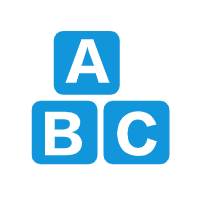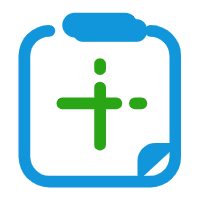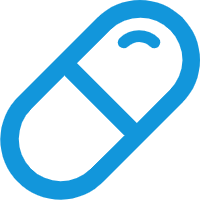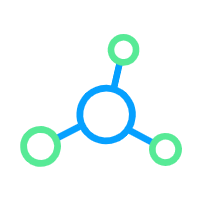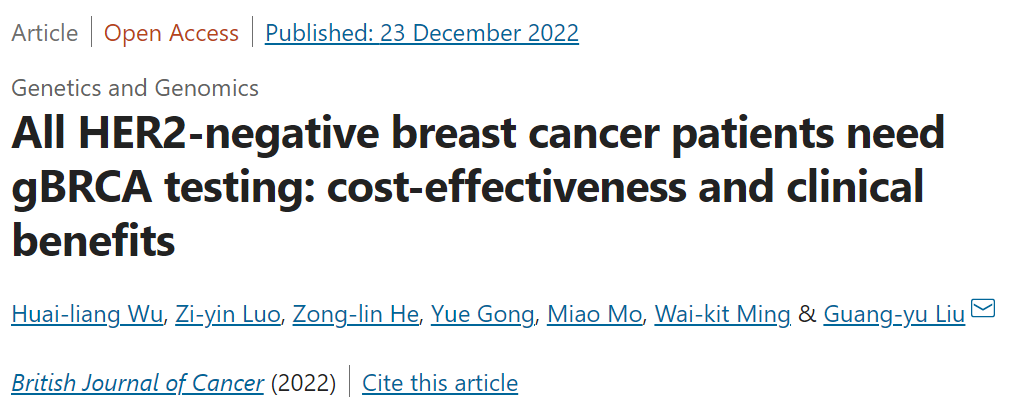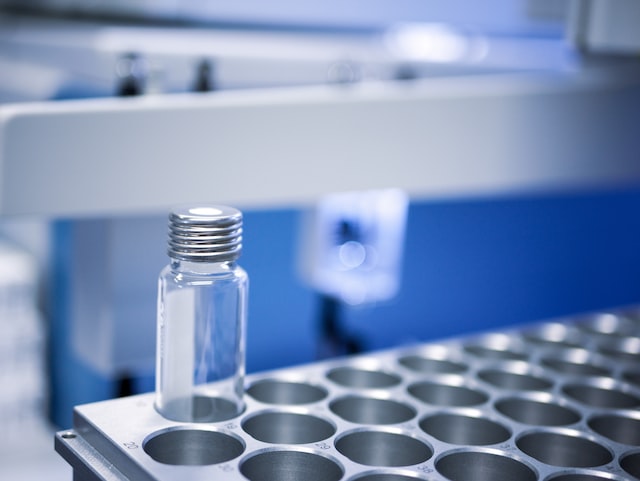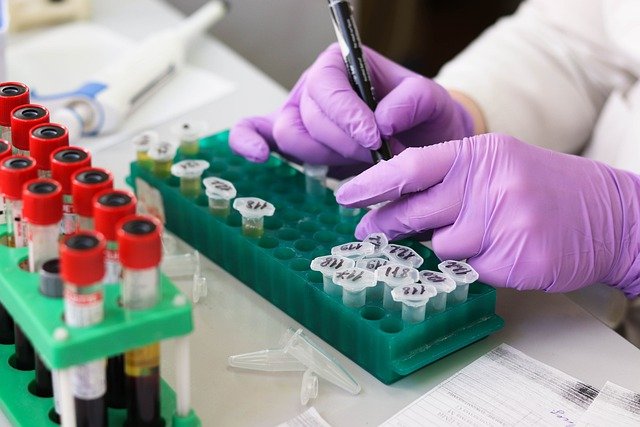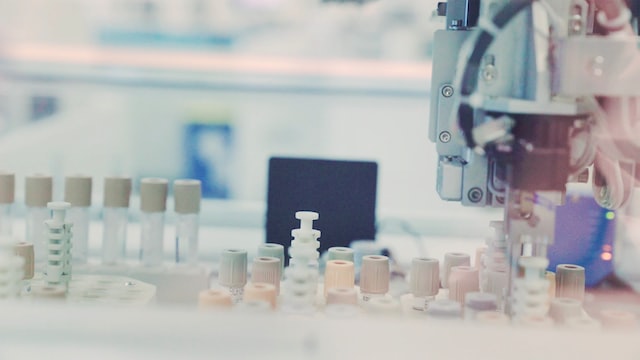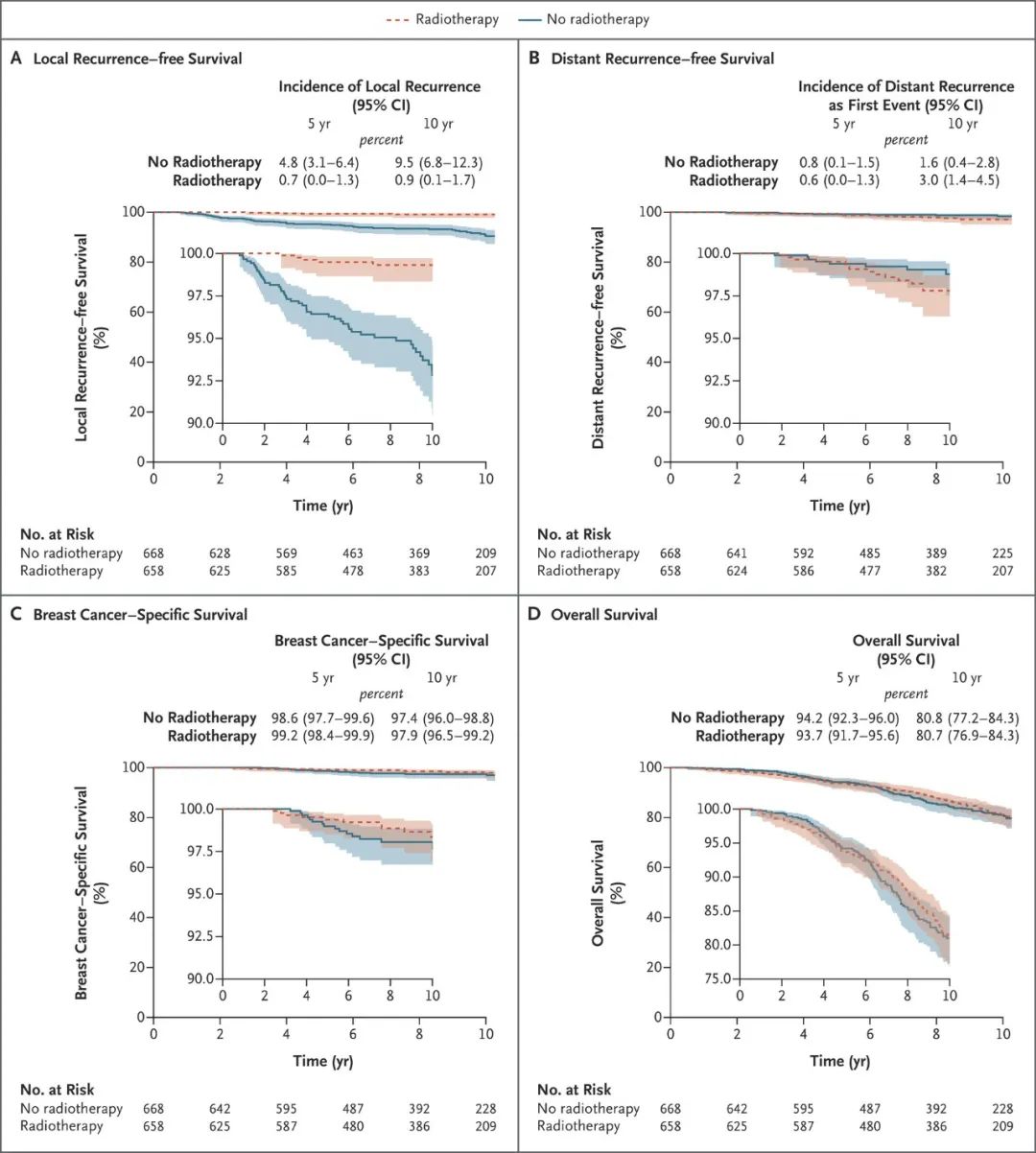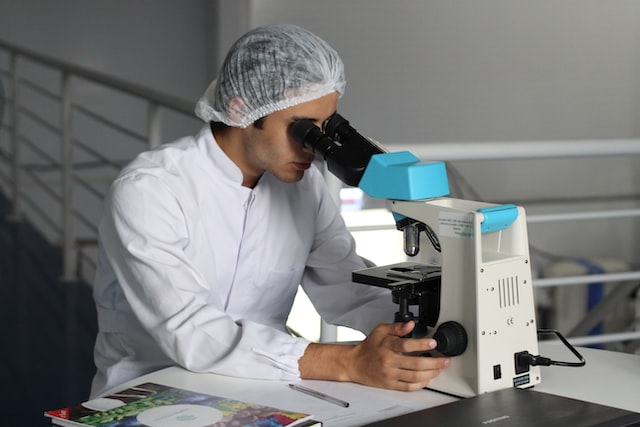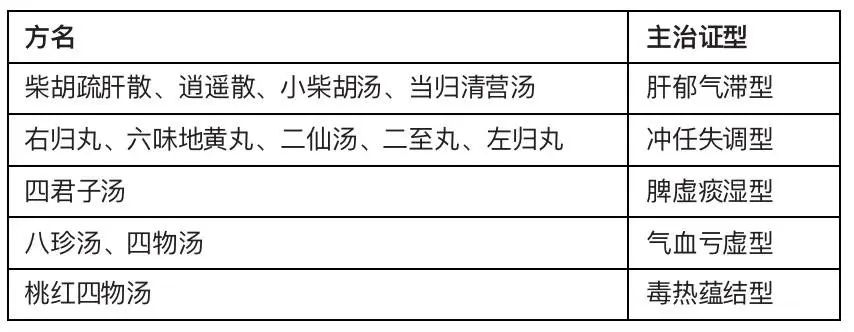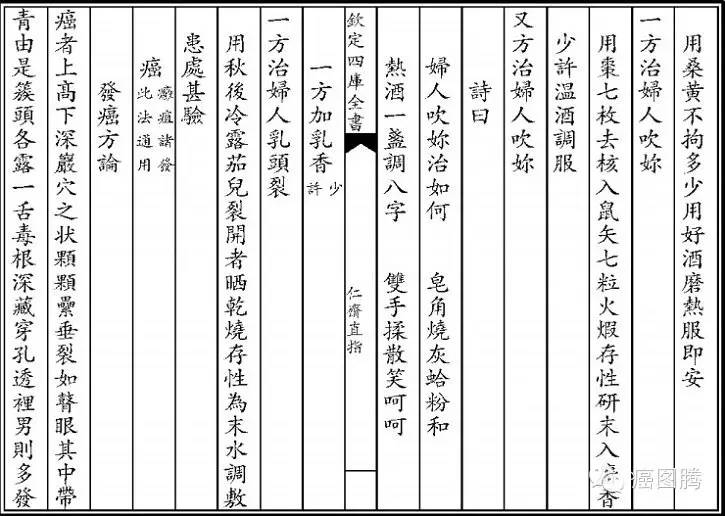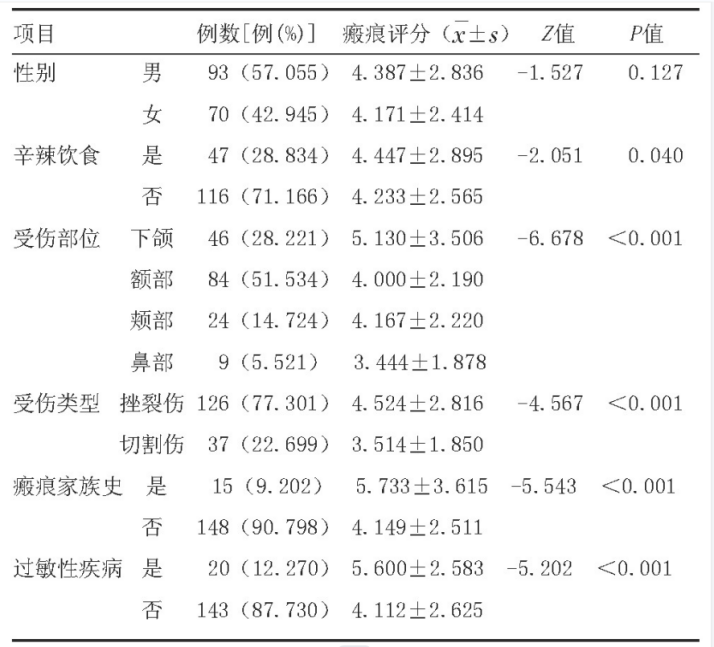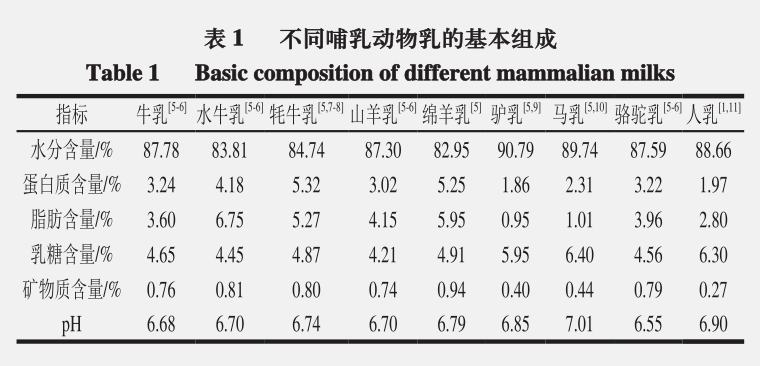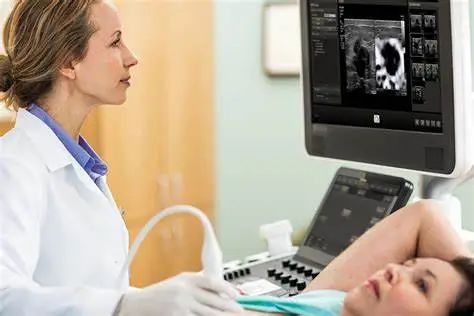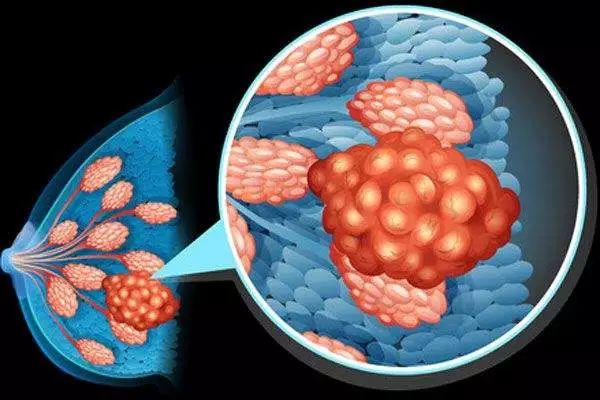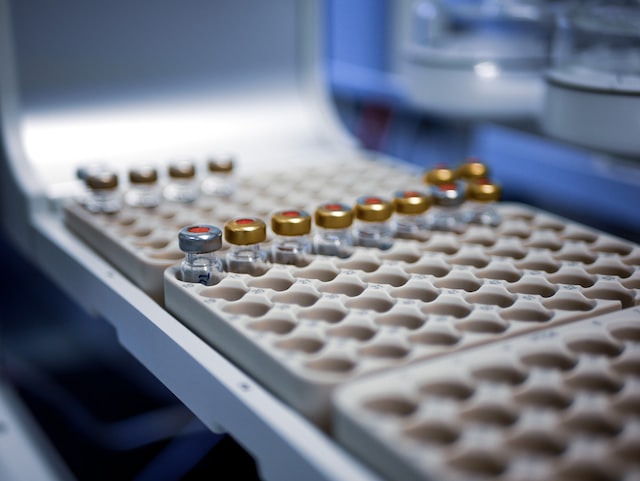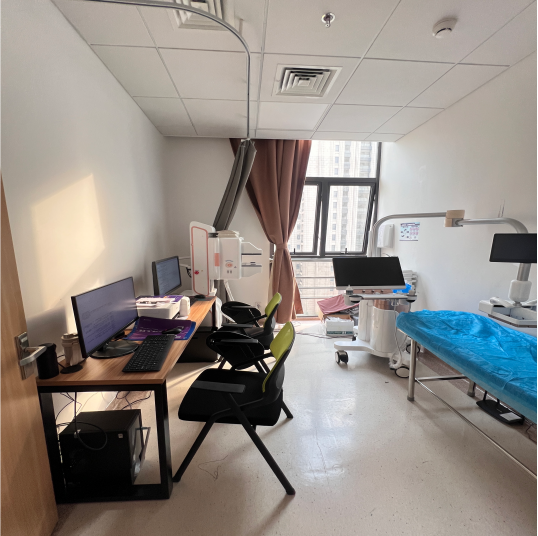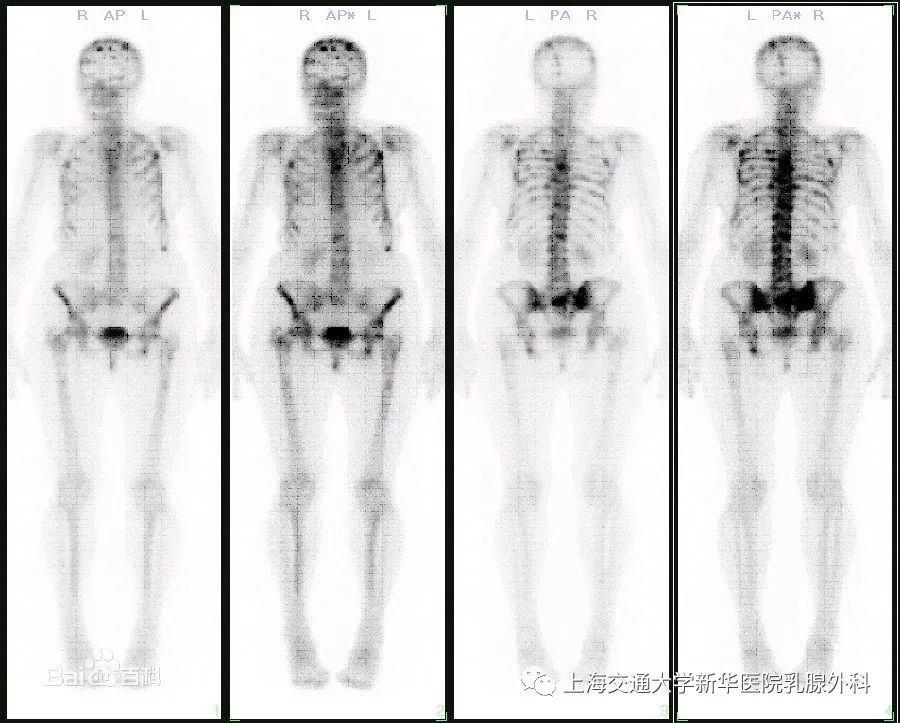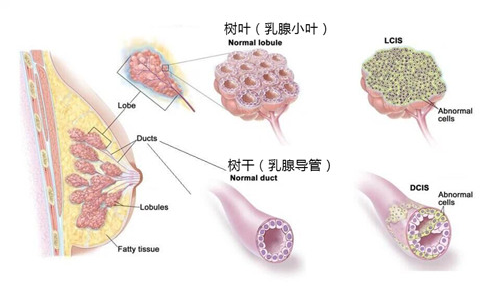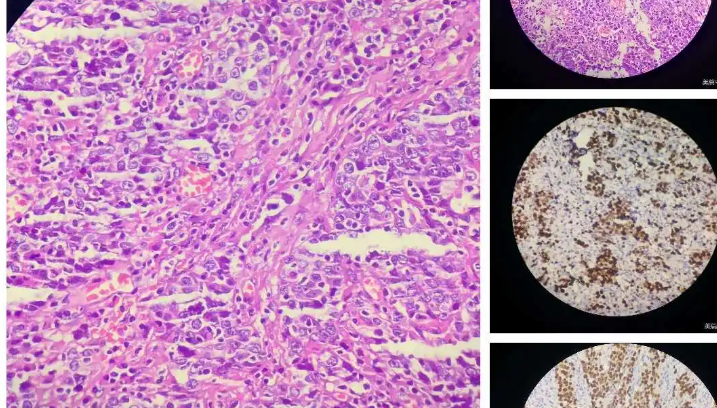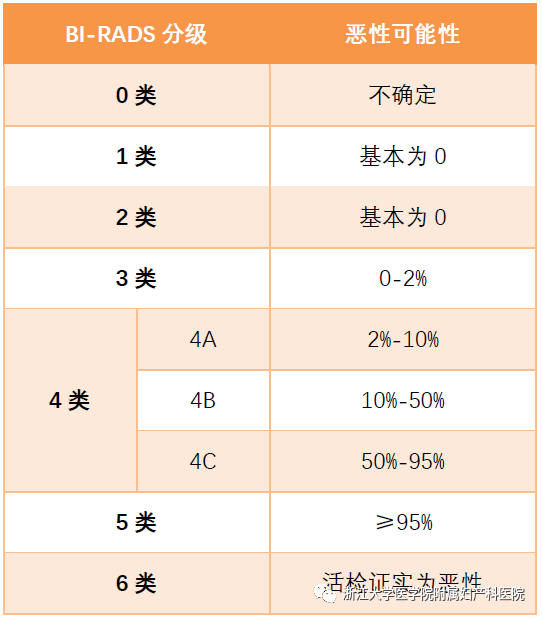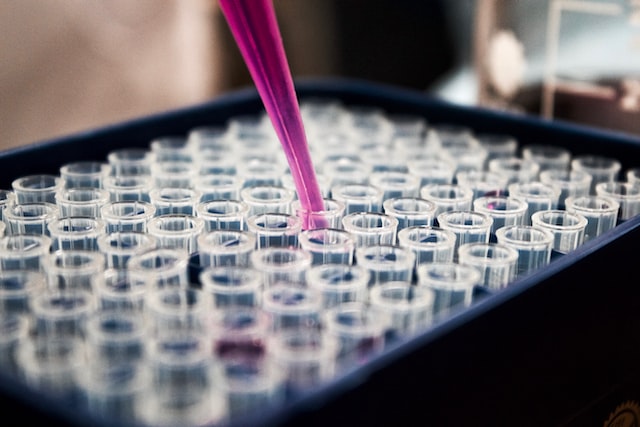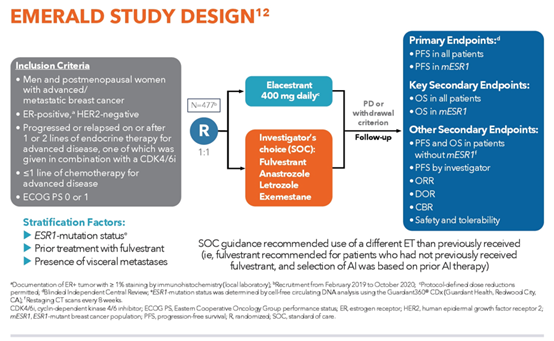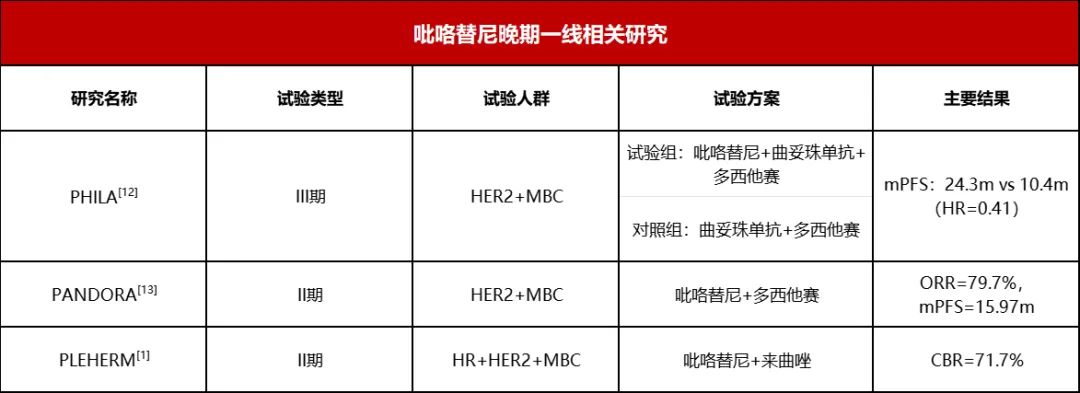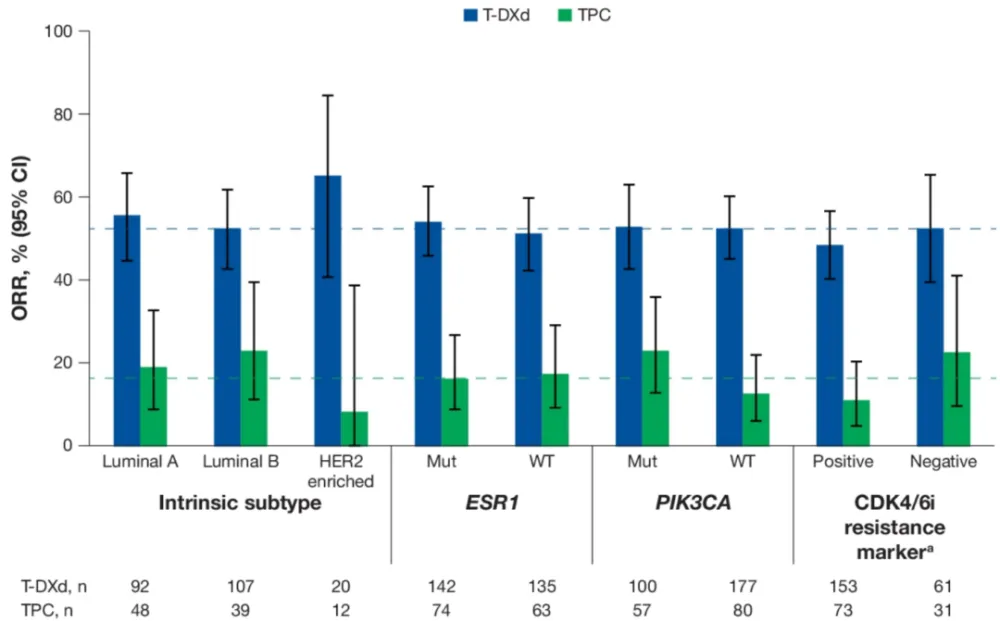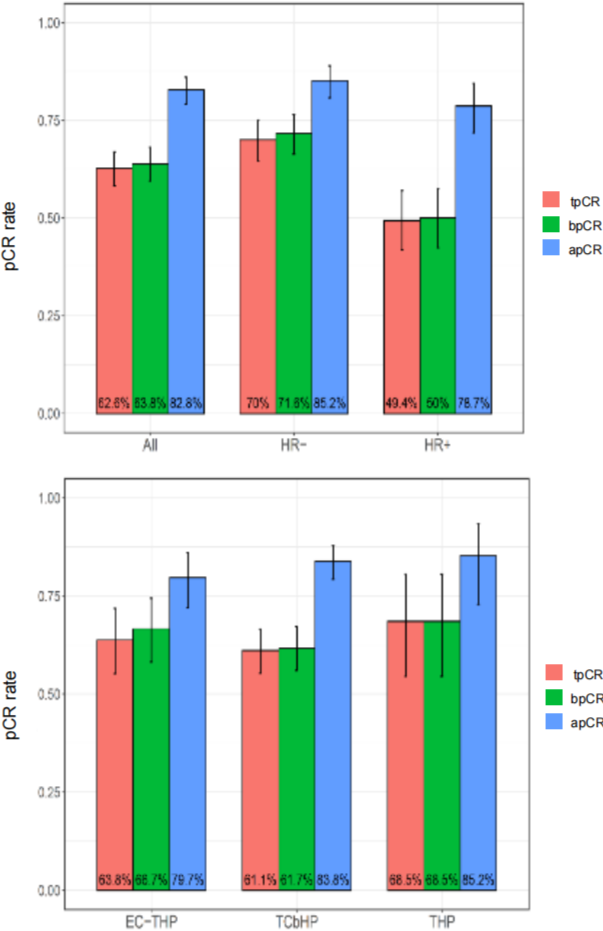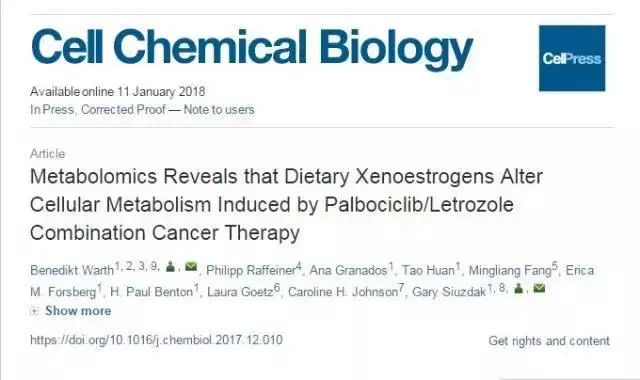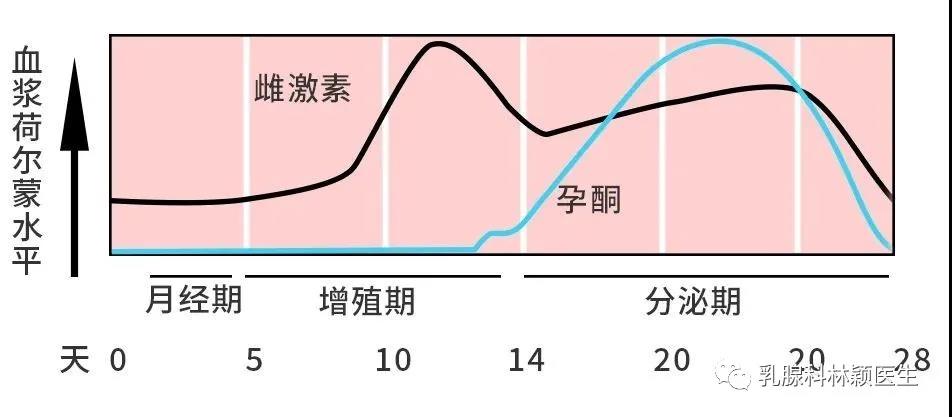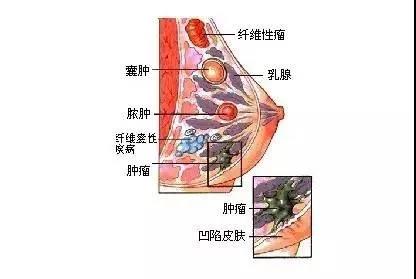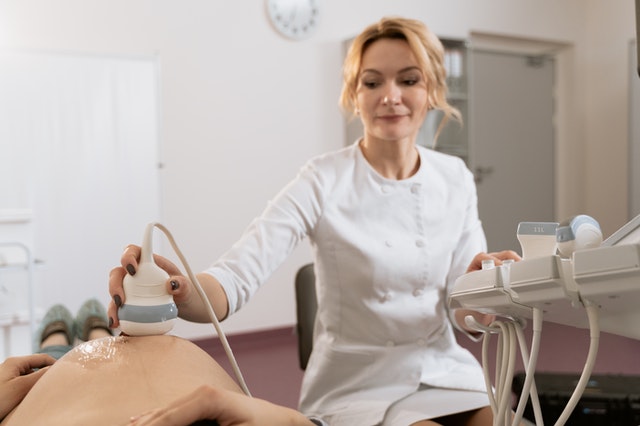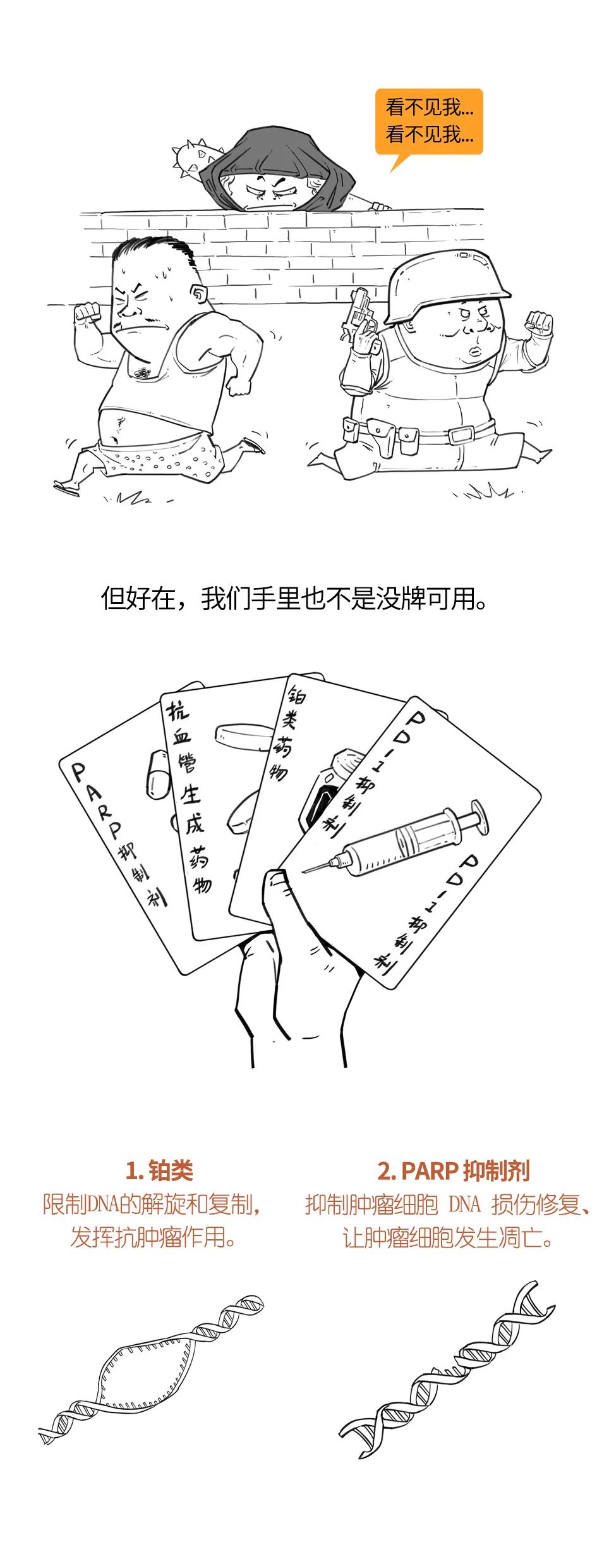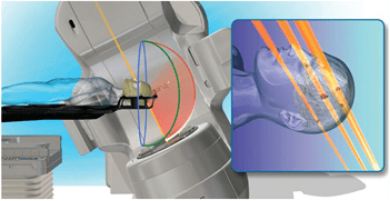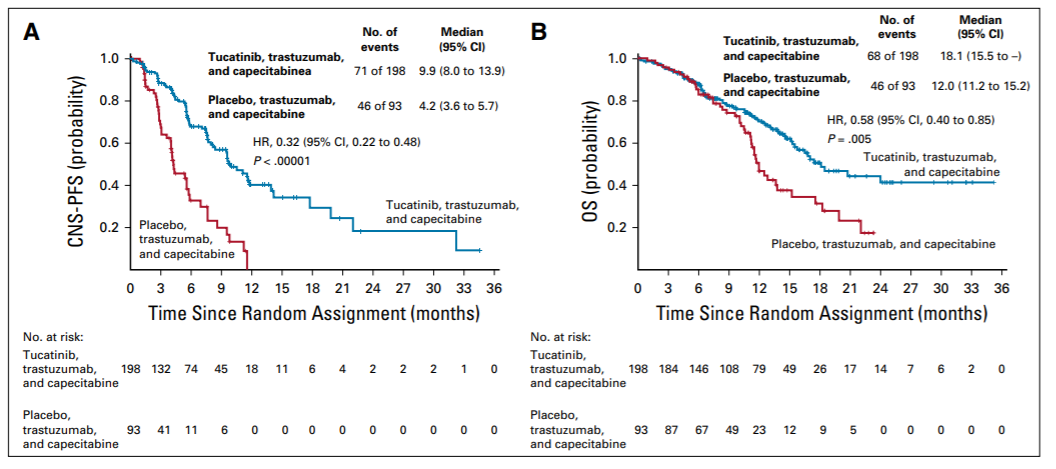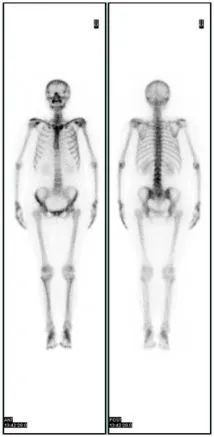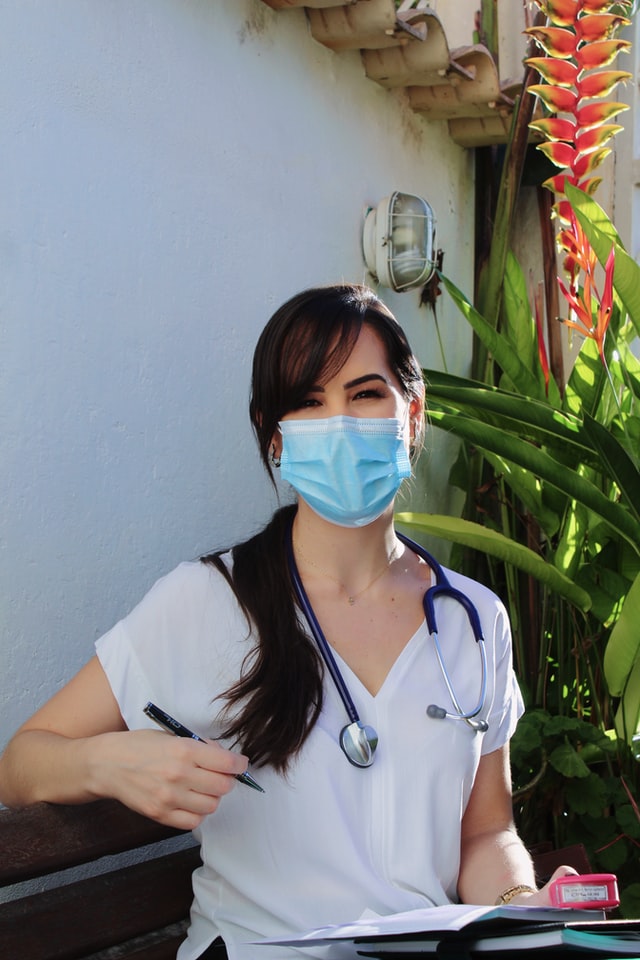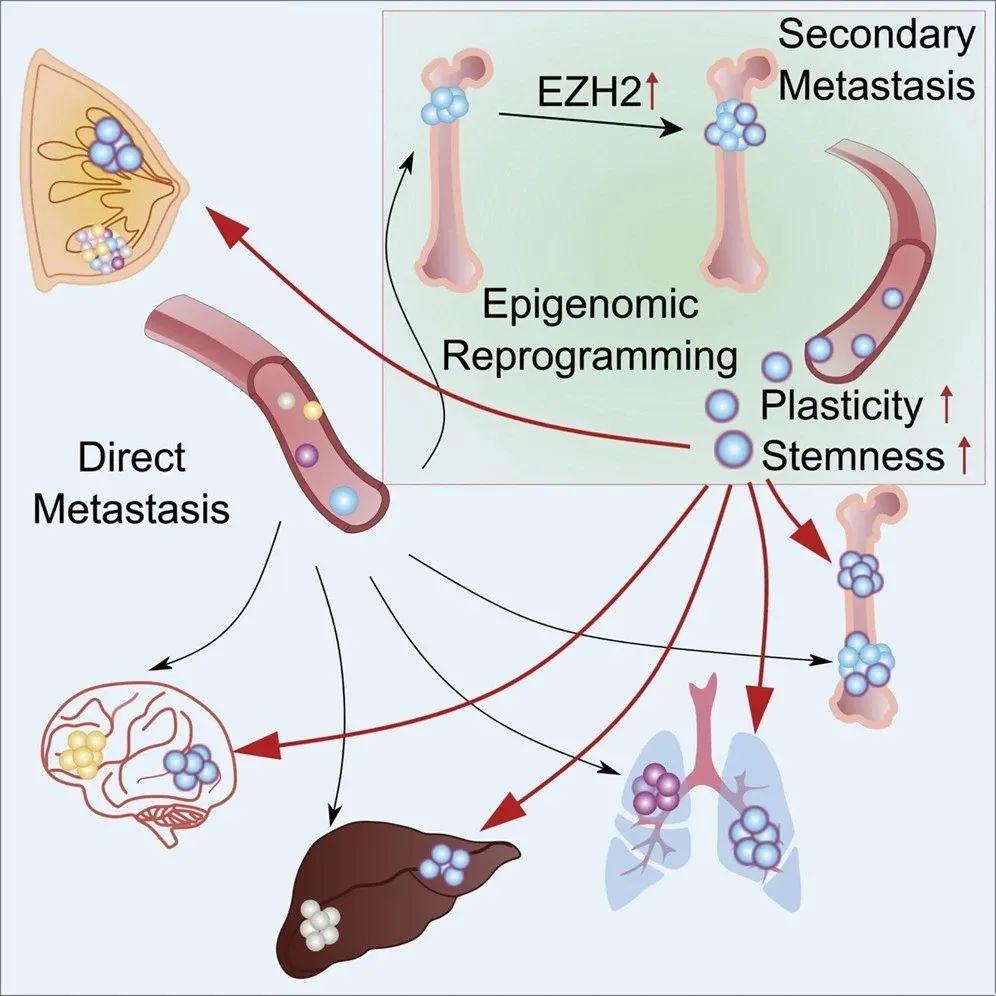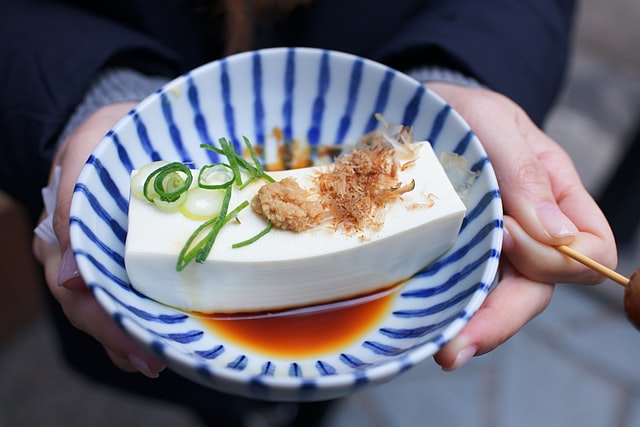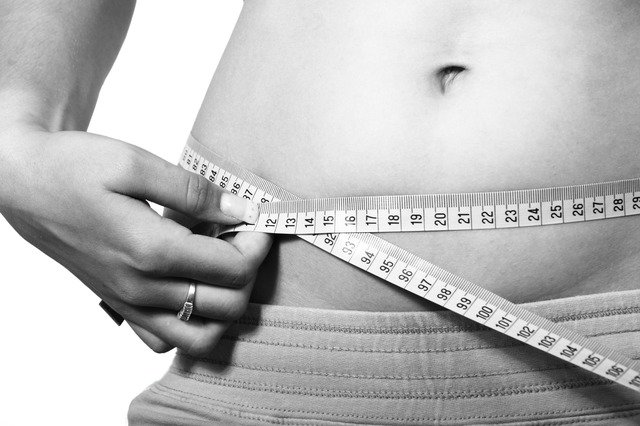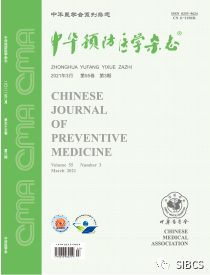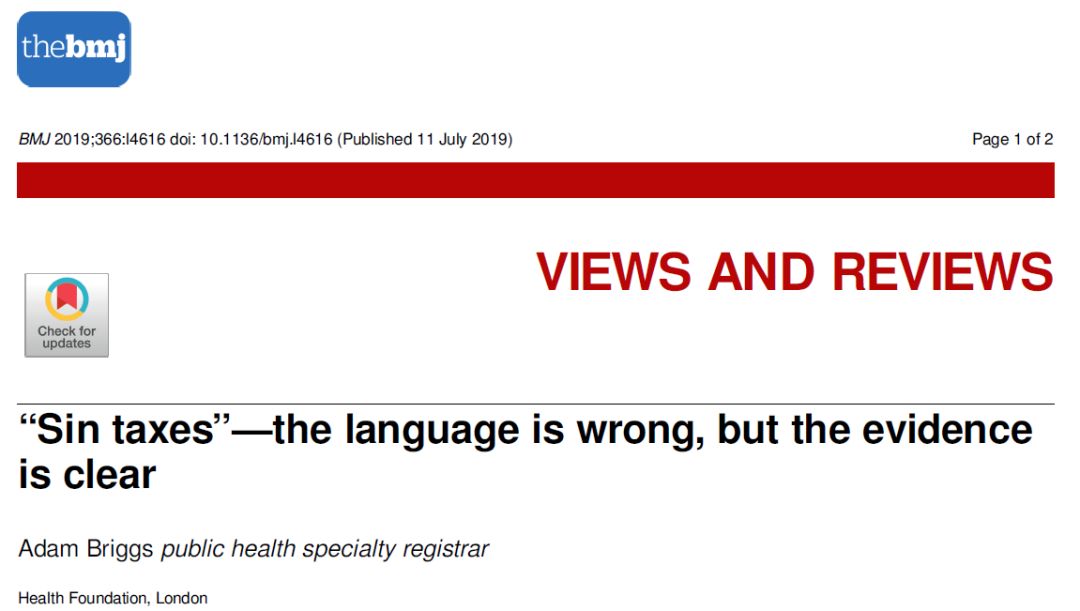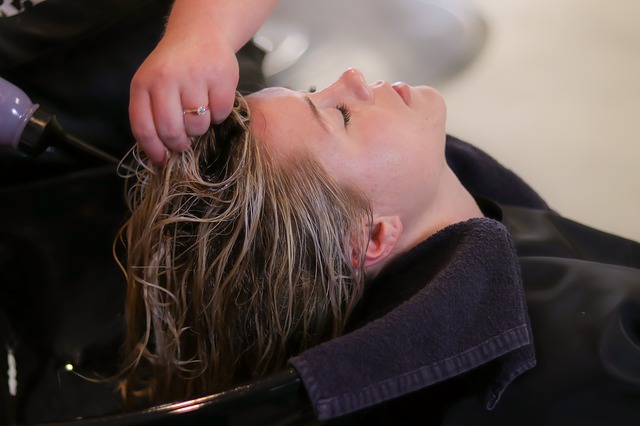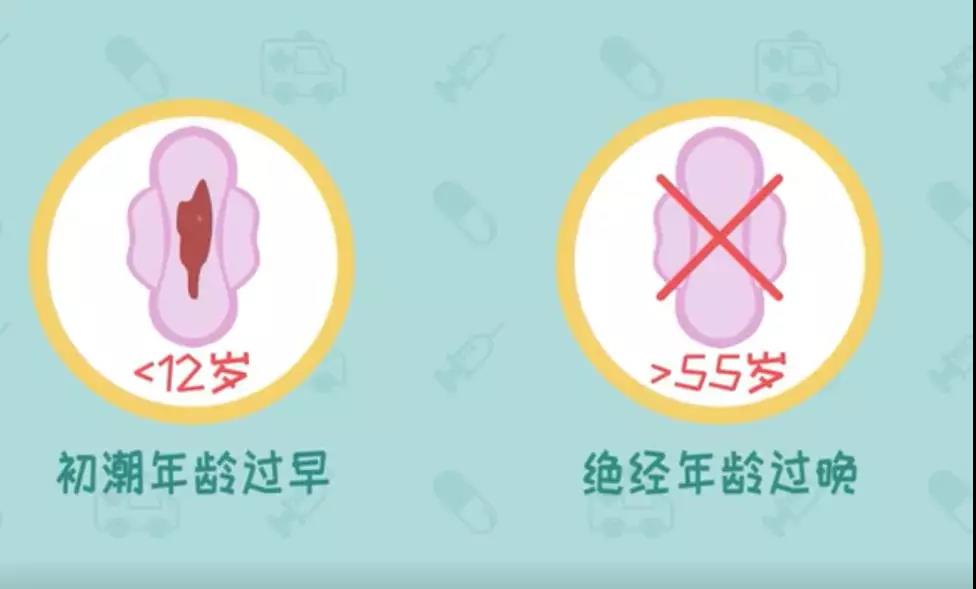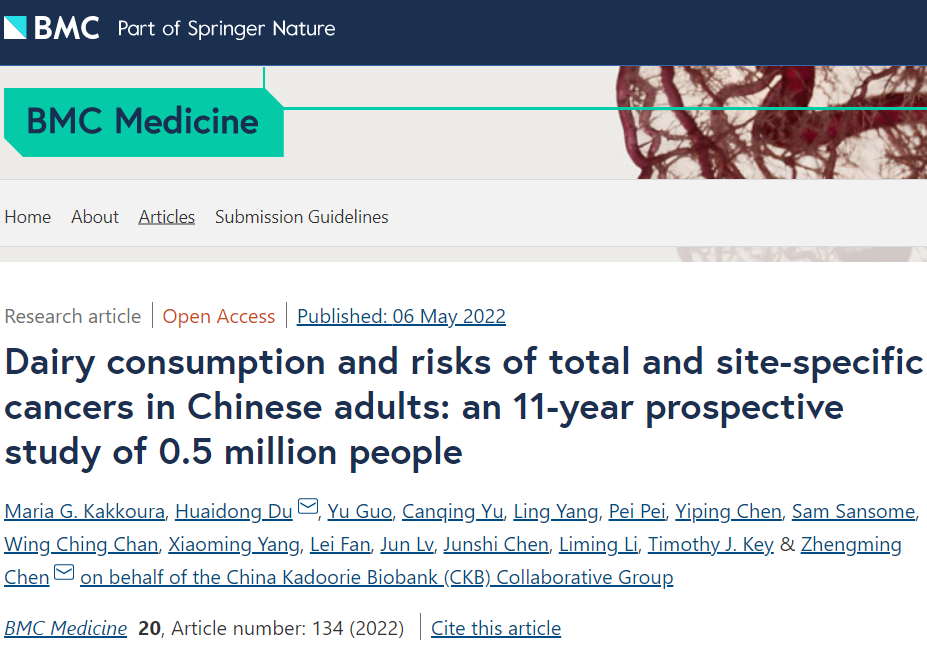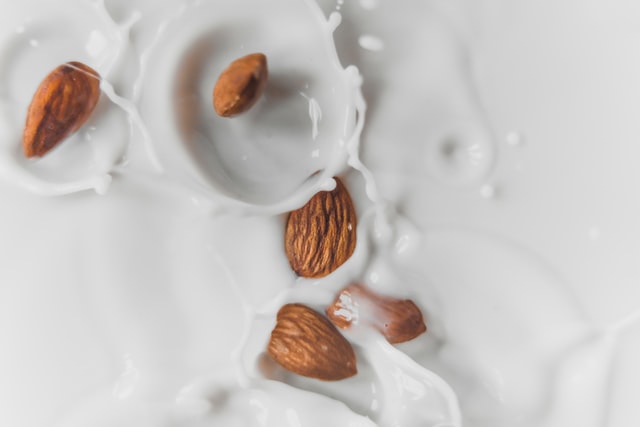{
"categories": [
{
"bclassname": "肺癌",
"classid": 6,
"subcategories": [
{
"name": "预防肺癌",
"id": 7 }
, {
"name": "肺癌护理",
"id": 29 }
, {
"name": "初识肺癌",
"id": 23 }
, {
"name": "诊断筛查",
"id": 24 }
, {
"name": "肺癌特药",
"id": 25 }
, {
"name": "肺癌治疗",
"id": 27 }
, {
"name": "肺癌并发症",
"id": 82 }
, {
"name": "肺癌复发转移",
"id": 211 }
, {
"name": "寻医问诊",
"id": 299 }
]
}
, {
"bclassname": "乳腺癌",
"classid": 8,
"subcategories": [
{
"name": "乳腺癌特药",
"id": 9 }
, {
"name": "预防乳腺癌",
"id": 64 }
, {
"name": "乳腺癌护理",
"id": 67 }
, {
"name": "乳腺癌治疗",
"id": 71 }
, {
"name": "诊断筛查",
"id": 72 }
, {
"name": "初识乳腺癌",
"id": 79 }
, {
"name": "乳腺癌复发转移",
"id": 212 }
, {
"name": "寻医问诊",
"id": 280 }
]
}
, {
"bclassname": "结直肠癌",
"classid": 10,
"subcategories": [
{
"name": "诊断筛查",
"id": 11 }
, {
"name": "预防结直肠癌",
"id": 57 }
, {
"name": "初识结直肠癌",
"id": 63 }
, {
"name": "结直肠癌治疗",
"id": 86 }
, {
"name": "结直肠癌护理",
"id": 87 }
, {
"name": "结直肠癌特药",
"id": 255 }
, {
"name": "结直肠癌复发转移",
"id": 260 }
, {
"name": "寻医问诊",
"id": 279 }
, {
"name": "结直肠癌并发症",
"id": 588 }
]
}
, {
"bclassname": "前列腺癌",
"classid": 45,
"subcategories": [
{
"name": "诊断筛查",
"id": 46 }
, {
"name": "前列腺癌治疗",
"id": 80 }
, {
"name": "初识前列腺癌",
"id": 88 }
, {
"name": "前列腺癌特药",
"id": 106 }
, {
"name": "前列腺癌护理",
"id": 130 }
, {
"name": "预防前列腺癌",
"id": 277 }
, {
"name": "寻医问诊",
"id": 281 }
, {
"name": "前列腺癌复发转移",
"id": 438 }
]
}
, {
"bclassname": "甲状腺癌",
"classid": 42,
"subcategories": [
{
"name": "初识甲状腺癌",
"id": 85 }
, {
"name": "诊断筛查",
"id": 103 }
, {
"name": "预防甲状腺癌",
"id": 107 }
, {
"name": "甲状腺癌护理",
"id": 108 }
, {
"name": "甲状腺癌治疗",
"id": 114 }
, {
"name": "甲状腺癌特药",
"id": 150 }
, {
"name": "寻医问诊",
"id": 289 }
, {
"name": "甲状腺癌复发转移",
"id": 412 }
]
}
, {
"bclassname": "宫颈癌",
"classid": 61,
"subcategories": [
{
"name": "预防宫颈癌",
"id": 62 }
, {
"name": "初识宫颈癌",
"id": 91 }
, {
"name": "诊断筛查",
"id": 104 }
, {
"name": "宫颈癌治疗",
"id": 146 }
, {
"name": "宫颈癌特药",
"id": 248 }
, {
"name": "宫颈癌护理",
"id": 290 }
, {
"name": "寻医问诊",
"id": 452 }
, {
"name": "宫颈癌复发转移",
"id": 498 }
]
}
, {
"bclassname": "胃癌",
"classid": 40,
"subcategories": [
{
"name": "诊断筛查",
"id": 41 }
, {
"name": "预防胃癌",
"id": 77 }
, {
"name": "初识胃癌",
"id": 90 }
, {
"name": "胃癌护理",
"id": 102 }
, {
"name": "胃癌特药",
"id": 127 }
, {
"name": "胃癌治疗",
"id": 224 }
, {
"name": "寻医问诊",
"id": 320 }
, {
"name": "胃癌复发转移",
"id": 355 }
]
}
, {
"bclassname": "肝癌",
"classid": 53,
"subcategories": [
{
"name": "初识肝癌",
"id": 54 }
, {
"name": "诊断筛查",
"id": 55 }
, {
"name": "肝癌特药",
"id": 78 }
, {
"name": "预防肝癌",
"id": 83 }
, {
"name": "肝癌护理",
"id": 84 }
, {
"name": "肝癌治疗",
"id": 131 }
, {
"name": "寻医问诊",
"id": 456 }
, {
"name": "肝癌复发转移",
"id": 499 }
, {
"name": "肝癌并发症",
"id": 605 }
]
}
, {
"bclassname": "胆囊癌",
"classid": 69,
"subcategories": [
{
"name": "诊断筛查",
"id": 70 }
, {
"name": "胆囊癌特药",
"id": 120 }
, {
"name": "寻医问诊",
"id": 482 }
, {
"name": "初识胆囊癌",
"id": 602 }
]
}
, {
"bclassname": "卵巢癌",
"classid": 92,
"subcategories": [
{
"name": "卵巢癌治疗",
"id": 93 }
, {
"name": "初识卵巢癌",
"id": 94 }
, {
"name": "卵巢癌护理",
"id": 95 }
, {
"name": "卵巢癌筛查",
"id": 96 }
, {
"name": "预防卵巢癌",
"id": 98 }
, {
"name": "卵巢癌特药",
"id": 105 }
, {
"name": "卵巢癌复发转移",
"id": 377 }
, {
"name": "寻医问症",
"id": 358 }
, {
"name": "卵巢癌并发症",
"id": 485 }
]
}
, {
"bclassname": "食管癌",
"classid": 159,
"subcategories": [
{
"name": "食管癌护理",
"id": 160 }
, {
"name": "食管癌治疗",
"id": 204 }
, {
"name": "食管癌特药",
"id": 225 }
, {
"name": "初识食管癌",
"id": 278 }
, {
"name": "寻医问诊",
"id": 297 }
, {
"name": "诊断筛查",
"id": 345 }
, {
"name": "预防食管癌",
"id": 346 }
]
}
, {
"bclassname": "胰腺癌",
"classid": 161,
"subcategories": [
{
"name": "胰腺癌特药",
"id": 162 }
, {
"name": "胰腺癌治疗",
"id": 190 }
, {
"name": "初识胰腺癌",
"id": 217 }
, {
"name": "胰腺癌复发转移",
"id": 295 }
, {
"name": "诊断筛查",
"id": 296 }
, {
"name": "预防胰腺癌",
"id": 361 }
, {
"name": "寻医问症",
"id": 404 }
, {
"name": "胰腺癌护理",
"id": 544 }
]
}
, {
"bclassname": "膀胱癌",
"classid": 178,
"subcategories": [
{
"name": "膀胱癌预防",
"id": 179 }
, {
"name": "膀胱癌特药",
"id": 186 }
, {
"name": "膀胱癌护理",
"id": 409 }
, {
"name": "诊断筛查",
"id": 411 }
, {
"name": "初识膀胱癌",
"id": 469 }
, {
"name": "寻医问诊",
"id": 492 }
, {
"name": "膀胱癌治疗",
"id": 493 }
]
}
, {
"bclassname": "淋巴瘤",
"classid": 268,
"subcategories": [
{
"name": "淋巴瘤特药",
"id": 269 }
, {
"name": "初识淋巴瘤",
"id": 270 }
, {
"name": "淋巴瘤护理",
"id": 449 }
, {
"name": "寻医问诊",
"id": 504 }
, {
"name": "淋巴瘤复发",
"id": 979 }
, {
"name": "诊断筛查",
"id": 980 }
, {
"name": "淋巴瘤并发症",
"id": 981 }
]
}
, {
"bclassname": "子宫内膜癌",
"classid": 308,
"subcategories": [
{
"name": "子宫内膜癌治疗",
"id": 309 }
, {
"name": "诊断筛查",
"id": 465 }
, {
"name": "初识子宫内膜癌",
"id": 496 }
, {
"name": "子宫内膜癌预防",
"id": 497 }
, {
"name": "子宫内膜癌特药",
"id": 505 }
, {
"name": "寻医问诊",
"id": 527 }
]
}
, {
"bclassname": "肾癌",
"classid": 331,
"subcategories": [
{
"name": "诊断筛查",
"id": 332 }
, {
"name": "肾癌特药",
"id": 364 }
, {
"name": "肾癌治疗",
"id": 372 }
, {
"name": "寻医问诊",
"id": 373 }
, {
"name": "预防肾癌",
"id": 389 }
, {
"name": "肾癌护理",
"id": 543 }
, {
"name": "初识肾癌",
"id": 554 }
]
}
, {
"bclassname": "罕见肿瘤",
"classid": 350,
"subcategories": [
{
"name": "鼻咽癌",
"id": 351 }
, {
"name": "胶质母细胞瘤",
"id": 371 }
, {
"name": "口腔癌",
"id": 382 }
, {
"name": "胸膜间皮瘤",
"id": 391 }
, {
"name": "黑色素瘤",
"id": 393 }
, {
"name": "胆道癌",
"id": 518 }
, {
"name": "腹膜癌",
"id": 521 }
, {
"name": "肝门癌",
"id": 545 }
, {
"name": "睾丸癌",
"id": 548 }
, {
"name": "输尿管癌",
"id": 561 }
, {
"name": "阴茎癌",
"id": 600 }
]
}
, {
"bclassname": "多发性骨髓瘤",
"classid": 960,
"subcategories": [
{
"name": "多发性骨髓瘤护理",
"id": 961 }
, {
"name": "多发性骨髓瘤治疗",
"id": 962 }
, {
"name": "寻医问诊",
"id": 964 }
, {
"name": "初识多发性骨髓瘤",
"id": 965 }
, {
"name": "多发性骨髓瘤复发转移",
"id": 966 }
, {
"name": "多发性骨髓瘤并发症",
"id": 968 }
]
}
, {
"bclassname": "白血病",
"classid": 975,
"subcategories": [
{
"name": "白血病护理",
"id": 976 }
, {
"name": "诊断筛查",
"id": 982 }
]
}
]
}
{
"drugs": [
{
"通用名": "尼拉帕利",
"栏目ID": "122",
"商业名": "则乐",
"英文名": "Niraparib",
"靶点": "PARP"
}
, {
"通用名": "德曲妥珠单抗",
"栏目ID": "125",
"商业名": "优赫得(Enhertu)",
"英文名": "DS-8201(T-DXd)",
"靶点": "HER-2"
}
, {
"通用名": "塞普替尼",
"栏目ID": "128",
"商业名": "睿妥",
"英文名": "selpercatinib",
"靶点": "RET"
}
, {
"通用名": "达可替尼",
"栏目ID": "132",
"商业名": "多泽润",
"英文名": "Dacomitinib",
"靶点": "EGFR"
}
, {
"通用名": "利妥昔单抗",
"栏目ID": "384",
"商业名": "美罗华",
"英文名": "Rituximab",
"靶点": "CD20"
}
, {
"通用名": "曲妥珠单抗",
"栏目ID": "142",
"商业名": "赫赛汀",
"英文名": "Trastuzumab",
"靶点": "HER-2"
}
, {
"通用名": "阿法替尼",
"栏目ID": "144",
"商业名": "吉泰瑞",
"英文名": "Afatinib",
"靶点": "EGFR"
}
, {
"通用名": "lurbinectedin",
"栏目ID": "147",
"商业名": "Zepzelca",
"英文名": "lurbinectedin",
"靶点": "RNA聚合酶II"
}
, {
"通用名": "索拉非尼",
"栏目ID": "168",
"商业名": "多吉美",
"英文名": "sorafenib",
"靶点": "多靶点"
}
, {
"通用名": "奈拉替尼",
"栏目ID": "180",
"商业名": "贺俪安",
"英文名": "Neratinib",
"靶点": "HER2"
}
, {
"通用名": "帕妥珠单抗",
"栏目ID": "187",
"商业名": "帕捷特",
"英文名": "Pertuzumab",
"靶点": "HER2"
}
, {
"通用名": "仑伐替尼",
"栏目ID": "191",
"商业名": "乐卫玛",
"英文名": "lenvatinib",
"靶点": "多靶点"
}
, {
"通用名": "阿伐替尼",
"栏目ID": "726",
"商业名": "泰吉华",
"英文名": "avapritinib2",
"靶点": "PDGFRA"
}
, {
"通用名": "瑞派替尼",
"栏目ID": "201",
"商业名": "擎乐",
"英文名": "ripretinib",
"靶点": "KIT,PDGFRA"
}
, {
"通用名": "奥拉帕利",
"栏目ID": "209",
"商业名": "利普卓",
"英文名": "Olaparib",
"靶点": "PARP"
}
, {
"通用名": "地舒单抗",
"栏目ID": "213",
"商业名": "安加维",
"英文名": "XGEVA",
"靶点": "RANKL"
}
, {
"通用名": "卡博替尼",
"栏目ID": "215",
"商业名": "CABOMETYX",
"英文名": "cabozantinib",
"靶点": "多靶点"
}
, {
"通用名": "Tivozanib",
"栏目ID": "466",
"商业名": "Fotivda",
"英文名": "Tivozanib",
"靶点": "VEGFR"
}
, {
"通用名": "卡妥索单抗",
"栏目ID": "232",
"商业名": "卡妥索双抗",
"英文名": "catumaxomab",
"靶点": "CD3,EpCAM"
}
, {
"通用名": "贝伐珠单抗",
"栏目ID": "236",
"商业名": "安维汀(Avastin)",
"英文名": "Bevacizumab",
"靶点": "VEGF"
}
, {
"通用名": "伊尼妥单抗",
"栏目ID": "239",
"商业名": "赛普汀",
"英文名": "Margetuximab",
"靶点": "HER-2"
}
, {
"通用名": "吡咯替尼",
"栏目ID": "244",
"商业名": "艾瑞妮",
"英文名": "Pyrotinib",
"靶点": "HER-2"
}
, {
"通用名": "帕米帕利",
"栏目ID": "246",
"商业名": "百汇泽",
"英文名": "pamiparib",
"靶点": "PARP"
}
, {
"通用名": "奥希替尼",
"栏目ID": "258",
"商业名": "泰瑞沙",
"英文名": "Osimertinib",
"靶点": "EGFR"
}
, {
"通用名": "赛沃替尼",
"栏目ID": "274",
"商业名": "沃瑞沙",
"英文名": "savolitinib",
"靶点": "MET"
}
, {
"通用名": "吉非替尼",
"栏目ID": "283",
"商业名": "易瑞沙",
"英文名": "Gefitinib",
"靶点": "EGFR"
}
, {
"通用名": "初识靶向药",
"栏目ID": "301",
"商业名": "初识靶向药",
"英文名": "basic",
"靶点": ""
}
, {
"通用名": "拉帕替尼",
"栏目ID": "310",
"商业名": "泰立沙",
"英文名": "Lapatinib",
"靶点": "HER1,HER2"
}
, {
"通用名": "泽布替尼",
"栏目ID": "317",
"商业名": "百悦泽",
"英文名": "Ibrutinib",
"靶点": "BTK"
}
, {
"通用名": "恩沙替尼",
"栏目ID": "321",
"商业名": "贝美纳",
"英文名": "ensartinib",
"靶点": "ALK"
}
, {
"通用名": "瑞普替尼",
"栏目ID": "329",
"商业名": "瑞普替尼",
"英文名": "Repotrectinib",
"靶点": "ROS1,NTRK"
}
, {
"通用名": "阿帕替尼",
"栏目ID": "333",
"商业名": "艾坦",
"英文名": "Apatinib",
"靶点": "VEGFR-2"
}
, {
"通用名": "戈沙妥珠单抗",
"栏目ID": "362",
"商业名": "拓达维",
"英文名": "Trodelvy",
"靶点": "TROP-2"
}
, {
"通用名": "amivantamab",
"栏目ID": "365",
"商业名": "Rybrevant",
"英文名": "amivantamab",
"靶点": "EGFR,cMET"
}
, {
"通用名": "重组人血管内皮抑制素",
"栏目ID": "378",
"商业名": "恩度",
"英文名": "ENDOSTAR",
"靶点": "VEGF"
}
, {
"通用名": "索托雷塞",
"栏目ID": "386",
"商业名": "Lumakras",
"英文名": "Sotorasib",
"靶点": "KRAS"
}
, {
"通用名": "恩美曲妥珠单抗",
"栏目ID": "397",
"商业名": "赫赛莱",
"英文名": "Kadcyla",
"靶点": "HER-2"
}
, {
"通用名": "艾拉司群",
"栏目ID": "1056",
"商业名": "艾拉司群",
"英文名": "elacestrant",
"靶点": "ESR1"
}
, {
"通用名": "洛拉替尼",
"栏目ID": "400",
"商业名": "博瑞纳",
"英文名": "Lorlatinib",
"靶点": "ALK"
}
, {
"通用名": "氟唑帕利",
"栏目ID": "405",
"商业名": "艾瑞颐",
"英文名": "airuiyi",
"靶点": "PARP"
}
, {
"通用名": "阿美替尼",
"栏目ID": "415",
"商业名": "阿美乐",
"英文名": "almonertinib",
"靶点": "EGFR"
}
, {
"通用名": "安罗替尼",
"栏目ID": "420",
"商业名": "福可维",
"英文名": "Anlotinib",
"靶点": "VEGFR,PDGFR"
}
, {
"通用名": "索凡替尼",
"栏目ID": "426",
"商业名": "苏泰达",
"英文名": "surufatinib",
"靶点": "VEGFR,FGFR,CSF-1R"
}
, {
"通用名": "伏美替尼",
"栏目ID": "453",
"商业名": "艾弗沙",
"英文名": "fumeitili",
"靶点": "EGFR"
}
, {
"通用名": "Tipifarnib",
"栏目ID": "457",
"商业名": "Zarnestra",
"英文名": "Tipifarnib",
"靶点": "HRAS"
}
, {
"通用名": "西达本胺",
"栏目ID": "623",
"商业名": "爱谱沙",
"英文名": "Chidamide",
"靶点": "HDAC"
}
, {
"通用名": "普拉替尼",
"栏目ID": "474",
"商业名": "普吉华",
"英文名": "pralsetinib",
"靶点": "RET"
}
, {
"通用名": "SHR6390",
"栏目ID": "476",
"商业名": "SHR6390",
"英文名": "SHR6390",
"靶点": ""
}
, {
"通用名": "他雷替尼",
"栏目ID": "643",
"商业名": "他雷替尼",
"英文名": "Taletrectinib",
"靶点": "ROS1"
}
, {
"通用名": "berzosertib",
"栏目ID": "494",
"商业名": "berzosertib",
"英文名": "berzosertib",
"靶点": ""
}
, {
"通用名": "度维利塞",
"栏目ID": "500",
"商业名": "克必妥",
"英文名": "duvelisib",
"靶点": "PI3K"
}
, {
"通用名": "舒尼替尼",
"栏目ID": "502",
"商业名": "索坦",
"英文名": "SUTENT",
"靶点": "多靶点"
}
, {
"通用名": "达雷妥尤单抗",
"栏目ID": "513",
"商业名": "兆珂",
"英文名": "daratumumab",
"靶点": "CD38"
}
, {
"通用名": "西妥昔单抗",
"栏目ID": "525",
"商业名": "爱必妥",
"英文名": "cetuximab",
"靶点": "EGFR"
}
, {
"通用名": "阿昔替尼",
"栏目ID": "529",
"商业名": "英立达",
"英文名": "Axitinib",
"靶点": "VEGFR,Kit,PDGFR"
}
, {
"通用名": "维迪西妥单抗",
"栏目ID": "531",
"商业名": "爱地希",
"英文名": "RC48",
"靶点": "HER-2"
}
, {
"通用名": "多纳非尼",
"栏目ID": "533",
"商业名": "泽普生",
"英文名": "zepsun",
"靶点": "多靶点"
}
, {
"通用名": "厄洛替尼",
"栏目ID": "535",
"商业名": "特罗凯",
"英文名": "Erlotinib",
"靶点": "EGFR"
}
, {
"通用名": "克唑替尼",
"栏目ID": "537",
"商业名": "赛可瑞",
"英文名": "Crizotinib",
"靶点": "ALK,MET,ROS1"
}
, {
"通用名": "奥雷巴替尼",
"栏目ID": "546",
"商业名": "耐立克",
"英文名": "olverembatinib",
"靶点": "BCR-ABL"
}
, {
"通用名": "布格替尼",
"栏目ID": "549",
"商业名": "安伯瑞",
"英文名": "Brigatinib",
"靶点": "ALK"
}
, {
"通用名": "瑞戈非尼",
"栏目ID": "555",
"商业名": "拜万戈",
"英文名": "Regorafenib",
"靶点": "VEGF"
}
, {
"通用名": "埃克替尼",
"栏目ID": "566",
"商业名": "凯美纳",
"英文名": "icotinib",
"靶点": "EGFR"
}
, {
"通用名": "阿来替尼",
"栏目ID": "570",
"商业名": "安圣莎",
"英文名": "alectinib",
"靶点": "ALK"
}
, {
"通用名": "塞瑞替尼",
"栏目ID": "572",
"商业名": "赞可达",
"英文名": "ceritinib",
"靶点": "ALK"
}
, {
"通用名": "恩曲替尼",
"栏目ID": "641",
"商业名": "罗圣全",
"英文名": "Entrectinib",
"靶点": "NTRK,ROS1"
}
, {
"通用名": "艾伏尼布",
"栏目ID": "579",
"商业名": "拓舒沃",
"英文名": "Ivosidenib",
"靶点": "IDH1"
}
, {
"通用名": "伯瑞替尼",
"栏目ID": "1003",
"商业名": "万比锐",
"英文名": "Vebreltinib",
"靶点": "MET"
}
, {
"通用名": "呋喹替尼",
"栏目ID": "610",
"商业名": "爱优特",
"英文名": "fruquintinib",
"靶点": "VEGFR"
}
, {
"通用名": "曲拉西利",
"栏目ID": "617",
"商业名": "科赛拉",
"英文名": "trilaciclib",
"靶点": "CDK4/6"
}
, {
"通用名": "Phesgo",
"栏目ID": "620",
"商业名": "Phesgo",
"英文名": "Phesgo",
"靶点": "HER2"
}
, {
"通用名": "佩米替尼",
"栏目ID": "645",
"商业名": "达伯坦",
"英文名": "Pemazyre",
"靶点": "FGFR2"
}
, {
"通用名": "雷莫西尤单抗",
"栏目ID": "648",
"商业名": "希冉择",
"英文名": "Ramucirumab",
"靶点": "VEGF"
}
, {
"通用名": "马吉妥昔单抗",
"栏目ID": "660",
"商业名": "马吉妥昔单抗",
"英文名": "margetuximab",
"靶点": "HER2"
}
, {
"通用名": "奥妥珠单抗",
"栏目ID": "663",
"商业名": "佳罗华",
"英文名": "obinutuzumab",
"靶点": "CD20"
}
, {
"通用名": "拉罗替尼",
"栏目ID": "665",
"商业名": "维泰凯",
"英文名": "larotrectinib",
"靶点": "NTRK"
}
, {
"通用名": "他泽司他",
"栏目ID": "668",
"商业名": "达唯珂",
"英文名": "tazemetostat",
"靶点": "EZH2"
}
, {
"通用名": "林普利塞",
"栏目ID": "679",
"商业名": "因他瑞",
"英文名": "linperlisib",
"靶点": "PI3K"
}
, {
"通用名": "贝林妥欧单抗",
"栏目ID": "684",
"商业名": "倍利妥",
"英文名": "BLINCYTO",
"靶点": "CD19,CD3"
}
, {
"通用名": "卡非佐米",
"栏目ID": "685",
"商业名": "凯洛斯(Kyprolis)",
"英文名": "carfilzomib",
"靶点": "蛋白酶体"
}
, {
"通用名": "奥布替尼",
"栏目ID": "686",
"商业名": "宜诺凯",
"英文名": "Orelabrutinib",
"靶点": "BTK"
}
, {
"通用名": "吉瑞替尼",
"栏目ID": "688",
"商业名": "适加坦",
"英文名": "Gilteritinib",
"靶点": "FLT3"
}
, {
"通用名": "奥加伊妥珠单抗",
"栏目ID": "690",
"商业名": "贝博萨",
"英文名": "inotuzumab ozogamicin",
"靶点": "CD22"
}
, {
"通用名": "曲美替尼",
"栏目ID": "696",
"商业名": "迈吉宁",
"英文名": "Trametinib",
"靶点": "MEK1,MEK2"
}
, {
"通用名": "氟马替尼",
"栏目ID": "697",
"商业名": "豪森昕福",
"英文名": "Flumatinib",
"靶点": "TKI"
}
, {
"通用名": "达拉非尼",
"栏目ID": "699",
"商业名": "泰菲乐",
"英文名": "Dabrafenib",
"靶点": "BRAF"
}
, {
"通用名": "维布妥昔单抗",
"栏目ID": "700",
"商业名": "安适利",
"英文名": "Brentuximab vedotin",
"靶点": "CD30"
}
, {
"通用名": "尼妥珠单抗",
"栏目ID": "701",
"商业名": "泰欣生",
"英文名": "Nimotuzumab",
"靶点": "EGFR"
}
, {
"通用名": "伊布替尼",
"栏目ID": "702",
"商业名": "亿珂",
"英文名": "ibrutinib",
"靶点": "BTK"
}
, {
"通用名": "培唑帕尼",
"栏目ID": "703",
"商业名": "维全特",
"英文名": "Pazopanib",
"靶点": "多靶点"
}
, {
"通用名": "硼替佐米",
"栏目ID": "705",
"商业名": "万珂",
"英文名": "Bortezomib",
"靶点": "蛋白酶体"
}
, {
"通用名": "阿可替尼",
"栏目ID": "844",
"商业名": "康可期",
"英文名": "acalabrutinib",
"靶点": "BTK"
}
, {
"通用名": "达沙替尼",
"栏目ID": "710",
"商业名": "施达赛",
"英文名": "Dasatinib",
"靶点": "BCR-ABL"
}
, {
"通用名": "伊马替尼",
"栏目ID": "711",
"商业名": "格列卫",
"英文名": "Imatinib",
"靶点": "BCR-ABL"
}
, {
"通用名": "卡马替尼",
"栏目ID": "816",
"商业名": "Tabrecta",
"英文名": "Capmatinib",
"靶点": "MET"
}
, {
"通用名": "来那度胺",
"栏目ID": "712",
"商业名": "瑞复美",
"英文名": "Lenalidomide",
"靶点": "多靶点"
}
, {
"通用名": "莫博赛替尼",
"栏目ID": "744",
"商业名": "安卫力",
"英文名": "mobocertinib",
"靶点": "EGFR"
}
, {
"通用名": "维泊妥珠单抗",
"栏目ID": "764",
"商业名": "优罗华",
"英文名": "Polatuzumab Vedotin",
"靶点": "CD79b"
}
, {
"通用名": "维莫非尼",
"栏目ID": "772",
"商业名": "佐博伏",
"英文名": "Vemurafenib",
"靶点": "BRAF"
}
, {
"通用名": "维奈克拉",
"栏目ID": "788",
"商业名": "唯可来",
"英文名": "Venetoclax",
"靶点": "BCL-2"
}
, {
"通用名": "尼洛替尼",
"栏目ID": "790",
"商业名": "达希纳",
"英文名": "nilotinib",
"靶点": "BCR-ABL"
}
, {
"通用名": "谷美替尼",
"栏目ID": "841",
"商业名": "海益坦",
"英文名": "glumetnib",
"靶点": "MET"
}
, {
"通用名": "伏罗尼布",
"栏目ID": "860",
"商业名": "伏美纳",
"英文名": "vorolanib",
"靶点": "多靶点"
}
, {
"通用名": "贝福替尼",
"栏目ID": "862",
"商业名": "赛美纳",
"英文名": "Befotertinib",
"靶点": "EGFR"
}
, {
"通用名": "舒沃替尼",
"栏目ID": "865",
"商业名": "舒沃替尼",
"英文名": "Sunvozertinib",
"靶点": "EGFR,HER2"
}
, {
"通用名": "伊鲁阿克",
"栏目ID": "878",
"商业名": "启欣可",
"英文名": "Iruplinalkib",
"靶点": "ROS1,ALK"
}
, {
"通用名": "纳鲁索拜单抗",
"栏目ID": "986",
"商业名": "津立泰",
"英文名": "narlumosbart",
"靶点": "RANKL"
}
, {
"通用名": "格罗菲妥单抗",
"栏目ID": "998",
"商业名": "高罗华",
"英文名": "glofitamab-gxbm",
"靶点": "CD20,CD3"
}
, {
"通用名": "特泊替尼",
"栏目ID": "1007",
"商业名": "特泊替尼",
"英文名": "Tepotinib",
"靶点": "MET"
}
, {
"通用名": "佐妥昔单抗",
"栏目ID": "1015",
"商业名": "威络益(VYLOY)",
"英文名": "zolbetuximab",
"靶点": "CLDN18.2"
}
, {
"通用名": "伊那利塞",
"栏目ID": "1026",
"商业名": "伊赫莱",
"英文名": "inavolisib",
"靶点": "PIK3CA"
}
, {
"通用名": "卡匹色替",
"栏目ID": "1032",
"商业名": "荃科得",
"英文名": "capivasertib",
"靶点": "PIK3CA,AKT1,PTEN"
}
, {
"通用名": "芦康沙妥珠单抗",
"栏目ID": "1037",
"商业名": "佳泰莱,sac-TMT",
"英文名": "Sacituzumab Tirumotecan",
"靶点": "TROP-2"
}
, {
"通用名": "datopotamab deruxtecan",
"栏目ID": "1049",
"商业名": "Datroway(Dato-DXd)",
"英文名": "datopotamab deruxtecan",
"靶点": "TROP-2"
}
, {
"通用名": "吡洛西利",
"栏目ID": "1052",
"商业名": "轩悦宁",
"英文名": "bireociclib",
"靶点": "CDK4/6"
}
, {
"通用名": "来罗西利",
"栏目ID": "1058",
"商业名": "汝佳宁(GB491)",
"英文名": "Lerociclib",
"靶点": "CDK4/6"
}
]
}
{
"tags": [
{
"tagname": "Imfinzi",
"tagid": "1",
"cid":"1"
}
,
{
"tagname": "癌症检查",
"tagid": "2",
"cid":"0"
}
,
{
"tagname": "癌症预防",
"tagid": "3",
"cid":"0"
}
,
{
"tagname": "研究前沿",
"tagid": "4",
"cid":"0"
}
,
{
"tagname": "饮食",
"tagid": "5",
"cid":"0"
}
,
{
"tagname": "紫外线",
"tagid": "6",
"cid":"0"
}
,
{
"tagname": "治疗",
"tagid": "7",
"cid":"0"
}
,
{
"tagname": "健身",
"tagid": "8",
"cid":"0"
}
,
{
"tagname": "癌症基础",
"tagid": "9",
"cid":"0"
}
,
{
"tagname": "肺癌",
"tagid": "10",
"cid":"3"
}
,
{
"tagname": "肺癌基础",
"tagid": "11",
"cid":"0"
}
,
{
"tagname": "肺癌分期",
"tagid": "12",
"cid":"0"
}
,
{
"tagname": "非小细胞肺癌",
"tagid": "13",
"cid":"7"
}
,
{
"tagname": "吸烟",
"tagid": "14",
"cid":"0"
}
,
{
"tagname": "氡气",
"tagid": "15",
"cid":"0"
}
,
{
"tagname": "空气污染物",
"tagid": "16",
"cid":"0"
}
,
{
"tagname": "最新进展",
"tagid": "17",
"cid":"10"
}
,
{
"tagname": "空气污染",
"tagid": "18",
"cid":"0"
}
,
{
"tagname": "副作用",
"tagid": "19",
"cid":"0"
}
,
{
"tagname": "克唑替尼",
"tagid": "20",
"cid":"0"
}
,
{
"tagname": "ALK",
"tagid": "21",
"cid":"0"
}
,
{
"tagname": "EGFR",
"tagid": "22",
"cid":"0"
}
,
{
"tagname": "布加替尼",
"tagid": "23",
"cid":"0"
}
,
{
"tagname": "Brigatinib",
"tagid": "24",
"cid":"0"
}
,
{
"tagname": "牛油果核",
"tagid": "25",
"cid":"0"
}
,
{
"tagname": "胃癌筛查",
"tagid": "26",
"cid":"0"
}
,
{
"tagname": "日本",
"tagid": "27",
"cid":"5"
}
,
{
"tagname": "胃镜",
"tagid": "28",
"cid":"0"
}
,
{
"tagname": "ADC",
"tagid": "29",
"cid":"0"
}
,
{
"tagname": "DS-8201",
"tagid": "30",
"cid":"0"
}
,
{
"tagname": "阿斯利康",
"tagid": "31",
"cid":"0"
}
,
{
"tagname": "第一三共",
"tagid": "32",
"cid":"0"
}
,
{
"tagname": "HER2",
"tagid": "33",
"cid":"0"
}
,
{
"tagname": "Kadcyla",
"tagid": "34",
"cid":"0"
}
,
{
"tagname": "贫血",
"tagid": "35",
"cid":"0"
}
,
{
"tagname": "EPO",
"tagid": "36",
"cid":"0"
}
,
{
"tagname": "促红细胞生成素",
"tagid": "37",
"cid":"0"
}
,
{
"tagname": "肠梗阻",
"tagid": "38",
"cid":"0"
}
,
{
"tagname": "便秘",
"tagid": "39",
"cid":"0"
}
,
{
"tagname": "自杀",
"tagid": "40",
"cid":"0"
}
,
{
"tagname": "心理护理",
"tagid": "41",
"cid":"0"
}
,
{
"tagname": "儿童",
"tagid": "42",
"cid":"0"
}
,
{
"tagname": "医生问题",
"tagid": "43",
"cid":"0"
}
,
{
"tagname": "活检",
"tagid": "44",
"cid":"0"
}
,
{
"tagname": "PSA",
"tagid": "45",
"cid":"0"
}
,
{
"tagname": "患者家属",
"tagid": "46",
"cid":"0"
}
,
{
"tagname": "家属",
"tagid": "47",
"cid":"0"
}
,
{
"tagname": "免疫疗法",
"tagid": "48",
"cid":"0"
}
,
{
"tagname": "免疫治疗",
"tagid": "49",
"cid":"0"
}
,
{
"tagname": "临床试验",
"tagid": "50",
"cid":"0"
}
,
{
"tagname": "戒烟",
"tagid": "51",
"cid":"0"
}
,
{
"tagname": "贝伐珠单抗",
"tagid": "52",
"cid":"0"
}
,
{
"tagname": "安罗替尼",
"tagid": "53",
"cid":"0"
}
,
{
"tagname": "Atezolizumab",
"tagid": "54",
"cid":"0"
}
,
{
"tagname": "VEGF",
"tagid": "55",
"cid":"0"
}
,
{
"tagname": "肺结节",
"tagid": "56",
"cid":"0"
}
,
{
"tagname": "CT",
"tagid": "57",
"cid":"12"
}
,
{
"tagname": "诊断",
"tagid": "58",
"cid":"0"
}
,
{
"tagname": "MRI",
"tagid": "59",
"cid":"12"
}
,
{
"tagname": "PET",
"tagid": "60",
"cid":"0"
}
,
{
"tagname": "胸腔镜",
"tagid": "61",
"cid":"0"
}
,
{
"tagname": "存活率",
"tagid": "62",
"cid":"0"
}
,
{
"tagname": "原研药",
"tagid": "63",
"cid":"0"
}
,
{
"tagname": "仿制药",
"tagid": "64",
"cid":"0"
}
,
{
"tagname": "复发",
"tagid": "65",
"cid":"0"
}
,
{
"tagname": "肺磨玻璃影",
"tagid": "66",
"cid":"0"
}
,
{
"tagname": "groundglassopacity",
"tagid": "67",
"cid":"0"
}
,
{
"tagname": "肺癌诊断",
"tagid": "68",
"cid":"0"
}
,
{
"tagname": "恶心",
"tagid": "69",
"cid":"0"
}
,
{
"tagname": "呕吐",
"tagid": "70",
"cid":"0"
}
,
{
"tagname": "细胞l疗法",
"tagid": "71",
"cid":"0"
}
,
{
"tagname": "CART细胞疗法",
"tagid": "72",
"cid":"0"
}
,
{
"tagname": "TIL治疗",
"tagid": "73",
"cid":"0"
}
,
{
"tagname": "肿瘤标志物",
"tagid": "74",
"cid":"0"
}
,
{
"tagname": "甲胎蛋白",
"tagid": "75",
"cid":"0"
}
,
{
"tagname": "癌胚抗原",
"tagid": "76",
"cid":"0"
}
,
{
"tagname": "细胞角蛋白19片段抗原",
"tagid": "77",
"cid":"0"
}
,
{
"tagname": "糖类抗原125",
"tagid": "78",
"cid":"0"
}
,
{
"tagname": "血清甲胎蛋白",
"tagid": "79",
"cid":"0"
}
,
{
"tagname": "AFP",
"tagid": "80",
"cid":"0"
}
,
{
"tagname": "肥胖",
"tagid": "81",
"cid":"0"
}
,
{
"tagname": "NSCLC",
"tagid": "82",
"cid":"0"
}
,
{
"tagname": "癌症故事",
"tagid": "83",
"cid":"0"
}
,
{
"tagname": "大肠癌",
"tagid": "84",
"cid":"0"
}
,
{
"tagname": "胰腺癌",
"tagid": "85",
"cid":"3"
}
,
{
"tagname": "中药",
"tagid": "86",
"cid":"0"
}
,
{
"tagname": "黄芪",
"tagid": "87",
"cid":"0"
}
,
{
"tagname": "党参",
"tagid": "88",
"cid":"0"
}
,
{
"tagname": "吉非替尼",
"tagid": "89",
"cid":"0"
}
,
{
"tagname": "喝酒",
"tagid": "90",
"cid":"0"
}
,
{
"tagname": "酒精",
"tagid": "91",
"cid":"0"
}
,
{
"tagname": "化疗",
"tagid": "92",
"cid":"0"
}
,
{
"tagname": "促红细胞生成治疗",
"tagid": "93",
"cid":"0"
}
,
{
"tagname": "外部放射疗法",
"tagid": "94",
"cid":"8"
}
,
{
"tagname": "IMRT",
"tagid": "95",
"cid":"0"
}
,
{
"tagname": "3DCRT",
"tagid": "96",
"cid":"0"
}
,
{
"tagname": "Tomo刀",
"tagid": "97",
"cid":"0"
}
,
{
"tagname": "美国国家癌症研究所",
"tagid": "98",
"cid":"0"
}
,
{
"tagname": "癌症",
"tagid": "99",
"cid":"0"
}
,
{
"tagname": "肝脏占位病变",
"tagid": "100",
"cid":"0"
}
,
{
"tagname": "脂肪肝",
"tagid": "101",
"cid":"0"
}
,
{
"tagname": "肝血管瘤",
"tagid": "102",
"cid":"0"
}
,
{
"tagname": "局灶性结节性增生",
"tagid": "103",
"cid":"0"
}
,
{
"tagname": "肝脏炎性假瘤",
"tagid": "104",
"cid":"0"
}
,
{
"tagname": "运动",
"tagid": "105",
"cid":"0"
}
,
{
"tagname": "坚果",
"tagid": "106",
"cid":"0"
}
,
{
"tagname": "黄连素",
"tagid": "107",
"cid":"0"
}
,
{
"tagname": "结直肠腺瘤",
"tagid": "108",
"cid":"0"
}
,
{
"tagname": "小檗碱",
"tagid": "109",
"cid":"0"
}
,
{
"tagname": "抗癌故事",
"tagid": "110",
"cid":"0"
}
,
{
"tagname": "肝癌",
"tagid": "111",
"cid":"3"
}
,
{
"tagname": "生存率",
"tagid": "112",
"cid":"0"
}
,
{
"tagname": "心理",
"tagid": "113",
"cid":"0"
}
,
{
"tagname": "结肠镜检查",
"tagid": "114",
"cid":"0"
}
,
{
"tagname": "结直肠癌",
"tagid": "115",
"cid":"3"
}
,
{
"tagname": "肛门指检",
"tagid": "116",
"cid":"0"
}
,
{
"tagname": "肠癌",
"tagid": "117",
"cid":"0"
}
,
{
"tagname": "厨房油烟",
"tagid": "118",
"cid":"0"
}
,
{
"tagname": "癌性疲劳",
"tagid": "119",
"cid":"0"
}
,
{
"tagname": "乏力",
"tagid": "120",
"cid":"0"
}
,
{
"tagname": "中医",
"tagid": "121",
"cid":"0"
}
,
{
"tagname": "按摩",
"tagid": "122",
"cid":"0"
}
,
{
"tagname": "静脉血栓",
"tagid": "123",
"cid":"0"
}
,
{
"tagname": "利伐沙班",
"tagid": "124",
"cid":"0"
}
,
{
"tagname": "阿哌沙班",
"tagid": "125",
"cid":"0"
}
,
{
"tagname": "骨髓抑制",
"tagid": "126",
"cid":"0"
}
,
{
"tagname": "升白针",
"tagid": "127",
"cid":"0"
}
,
{
"tagname": "化疗副作用",
"tagid": "128",
"cid":"0"
}
,
{
"tagname": "宫颈癌",
"tagid": "129",
"cid":"3"
}
,
{
"tagname": "预防",
"tagid": "130",
"cid":"0"
}
,
{
"tagname": "疫苗",
"tagid": "131",
"cid":"0"
}
,
{
"tagname": "手术",
"tagid": "132",
"cid":"0"
}
,
{
"tagname": "胶囊内镜",
"tagid": "133",
"cid":"0"
}
,
{
"tagname": "脑转移",
"tagid": "134",
"cid":"0"
}
,
{
"tagname": "白介素11",
"tagid": "135",
"cid":"0"
}
,
{
"tagname": "血小板减少",
"tagid": "136",
"cid":"0"
}
,
{
"tagname": "血小板低",
"tagid": "137",
"cid":"0"
}
,
{
"tagname": "放疗护理",
"tagid": "138",
"cid":"8"
}
,
{
"tagname": "质子重离子治疗",
"tagid": "139",
"cid":"0"
}
,
{
"tagname": "乳腺癌",
"tagid": "140",
"cid":"3"
}
,
{
"tagname": "维生素",
"tagid": "141",
"cid":"0"
}
,
{
"tagname": "抗氧化补充剂",
"tagid": "142",
"cid":"0"
}
,
{
"tagname": "文胸",
"tagid": "143",
"cid":"0"
}
,
{
"tagname": "赫赛莱",
"tagid": "144",
"cid":"0"
}
,
{
"tagname": "乳腺癌新药",
"tagid": "145",
"cid":"0"
}
,
{
"tagname": "靶向药副作用",
"tagid": "146",
"cid":"0"
}
,
{
"tagname": "中性粒细胞减少",
"tagid": "147",
"cid":"0"
}
,
{
"tagname": "心脏毒性",
"tagid": "148",
"cid":"0"
}
,
{
"tagname": "肝脏毒性",
"tagid": "149",
"cid":"0"
}
,
{
"tagname": "肾脏毒性",
"tagid": "150",
"cid":"0"
}
,
{
"tagname": "神经系统不良反应",
"tagid": "151",
"cid":"0"
}
,
{
"tagname": "口腔黏膜炎&160",
"tagid": "152",
"cid":"0"
}
,
{
"tagname": "BRCA靶点",
"tagid": "153",
"cid":"0"
}
,
{
"tagname": "PARP抑制剂",
"tagid": "154",
"cid":"0"
}
,
{
"tagname": "奥拉帕尼",
"tagid": "155",
"cid":"0"
}
,
{
"tagname": "鲁卡帕尼",
"tagid": "156",
"cid":"0"
}
,
{
"tagname": "尼拉帕尼",
"tagid": "157",
"cid":"0"
}
,
{
"tagname": "定期复查",
"tagid": "158",
"cid":"0"
}
,
{
"tagname": "&8203&",
"tagid": "159",
"cid":"0"
}
,
{
"tagname": "胆囊癌",
"tagid": "160",
"cid":"3"
}
,
{
"tagname": "胆囊息肉",
"tagid": "161",
"cid":"0"
}
,
{
"tagname": "豆浆",
"tagid": "162",
"cid":"0"
}
,
{
"tagname": "饮茶",
"tagid": "163",
"cid":"0"
}
,
{
"tagname": "内分泌治疗",
"tagid": "164",
"cid":"0"
}
,
{
"tagname": "他莫昔芬",
"tagid": "165",
"cid":"0"
}
,
{
"tagname": "托瑞米芬",
"tagid": "166",
"cid":"0"
}
,
{
"tagname": "诺雷得",
"tagid": "167",
"cid":"0"
}
,
{
"tagname": "抑那通",
"tagid": "168",
"cid":"0"
}
,
{
"tagname": "来曲唑",
"tagid": "169",
"cid":"0"
}
,
{
"tagname": "阿那曲唑",
"tagid": "170",
"cid":"0"
}
,
{
"tagname": "氟维司群依西美坦",
"tagid": "171",
"cid":"0"
}
,
{
"tagname": "牛羊肉",
"tagid": "172",
"cid":"0"
}
,
{
"tagname": "IIIC期",
"tagid": "173",
"cid":"0"
}
,
{
"tagname": "阿来替尼",
"tagid": "174",
"cid":"0"
}
,
{
"tagname": "ALK靶向药",
"tagid": "175",
"cid":"0"
}
,
{
"tagname": "阿司匹林",
"tagid": "176",
"cid":"0"
}
,
{
"tagname": "骨转移",
"tagid": "177",
"cid":"0"
}
,
{
"tagname": "症状",
"tagid": "178",
"cid":"0"
}
,
{
"tagname": "灵芝孢子粉",
"tagid": "179",
"cid":"0"
}
,
{
"tagname": "冬虫夏草",
"tagid": "180",
"cid":"0"
}
,
{
"tagname": "抗癌",
"tagid": "181",
"cid":"0"
}
,
{
"tagname": "神经炎",
"tagid": "182",
"cid":"0"
}
,
{
"tagname": "针灸",
"tagid": "183",
"cid":"0"
}
,
{
"tagname": "辣椒",
"tagid": "184",
"cid":"0"
}
,
{
"tagname": "幽门螺旋杆菌",
"tagid": "185",
"cid":"0"
}
,
{
"tagname": "胃癌",
"tagid": "186",
"cid":"3"
}
,
{
"tagname": "塞瑞替尼",
"tagid": "187",
"cid":"0"
}
,
{
"tagname": "仑伐替尼",
"tagid": "188",
"cid":"0"
}
,
{
"tagname": "O药",
"tagid": "189",
"cid":"0"
}
,
{
"tagname": "K药",
"tagid": "190",
"cid":"0"
}
,
{
"tagname": "腹泻",
"tagid": "191",
"cid":"0"
}
,
{
"tagname": "糖皮质激素",
"tagid": "192",
"cid":"0"
}
,
{
"tagname": "omega-3",
"tagid": "193",
"cid":"0"
}
,
{
"tagname": "鱼油",
"tagid": "194",
"cid":"0"
}
,
{
"tagname": "高脂肪",
"tagid": "195",
"cid":"0"
}
,
{
"tagname": "低脂",
"tagid": "196",
"cid":"0"
}
,
{
"tagname": "胸部增强CT",
"tagid": "3115",
"cid":"0"
}
,
{
"tagname": "邵志敏",
"tagid": "198",
"cid":"11"
}
,
{
"tagname": "PICC",
"tagid": "199",
"cid":"0"
}
,
{
"tagname": "化疗护理",
"tagid": "200",
"cid":"0"
}
,
{
"tagname": "特罗凯",
"tagid": "201",
"cid":"0"
}
,
{
"tagname": "2992",
"tagid": "202",
"cid":"0"
}
,
{
"tagname": "299804",
"tagid": "203",
"cid":"0"
}
,
{
"tagname": "红薯",
"tagid": "204",
"cid":"0"
}
,
{
"tagname": "膳食纤维",
"tagid": "205",
"cid":"0"
}
,
{
"tagname": "脱氧异雄固酮",
"tagid": "206",
"cid":"0"
}
,
{
"tagname": "PRRT",
"tagid": "207",
"cid":"0"
}
,
{
"tagname": "神经内分泌肿瘤",
"tagid": "208",
"cid":"0"
}
,
{
"tagname": "甲状腺功能减退",
"tagid": "209",
"cid":"0"
}
,
{
"tagname": "甲状腺毒症",
"tagid": "210",
"cid":"0"
}
,
{
"tagname": "血常规",
"tagid": "211",
"cid":"0"
}
,
{
"tagname": "血小板",
"tagid": "212",
"cid":"0"
}
,
{
"tagname": "血栓",
"tagid": "213",
"cid":"0"
}
,
{
"tagname": "升高白细胞",
"tagid": "214",
"cid":"0"
}
,
{
"tagname": "胰腺不良反应",
"tagid": "215",
"cid":"0"
}
,
{
"tagname": "免疫治疗不良反应",
"tagid": "216",
"cid":"0"
}
,
{
"tagname": "炎性关节炎",
"tagid": "217",
"cid":"0"
}
,
{
"tagname": "肌痛",
"tagid": "218",
"cid":"0"
}
,
{
"tagname": "肌炎",
"tagid": "219",
"cid":"0"
}
,
{
"tagname": "肌无力",
"tagid": "220",
"cid":"0"
}
,
{
"tagname": "维生素B12",
"tagid": "221",
"cid":"0"
}
,
{
"tagname": "甲钴胺",
"tagid": "222",
"cid":"0"
}
,
{
"tagname": "周围神经病变",
"tagid": "223",
"cid":"0"
}
,
{
"tagname": "手脚麻木",
"tagid": "224",
"cid":"0"
}
,
{
"tagname": "乳腺癌放疗",
"tagid": "225",
"cid":"0"
}
,
{
"tagname": "阿法替尼",
"tagid": "226",
"cid":"0"
}
,
{
"tagname": "半夏泻心汤",
"tagid": "227",
"cid":"0"
}
,
{
"tagname": "胰腺炎",
"tagid": "228",
"cid":"0"
}
,
{
"tagname": "KRAS",
"tagid": "229",
"cid":"0"
}
,
{
"tagname": "NRAS",
"tagid": "230",
"cid":"0"
}
,
{
"tagname": "BRAF",
"tagid": "231",
"cid":"0"
}
,
{
"tagname": "MSI",
"tagid": "232",
"cid":"0"
}
,
{
"tagname": "VEGFR",
"tagid": "233",
"cid":"0"
}
,
{
"tagname": "西妥昔单抗",
"tagid": "234",
"cid":"0"
}
,
{
"tagname": "帕尼单抗",
"tagid": "235",
"cid":"0"
}
,
{
"tagname": "阿帕西普",
"tagid": "236",
"cid":"0"
}
,
{
"tagname": "三阴性乳腺癌",
"tagid": "237",
"cid":"0"
}
,
{
"tagname": "PD-L1",
"tagid": "238",
"cid":"0"
}
,
{
"tagname": "手术治疗",
"tagid": "239",
"cid":"0"
}
,
{
"tagname": "微创手术",
"tagid": "240",
"cid":"0"
}
,
{
"tagname": "低剂量螺旋CT",
"tagid": "241",
"cid":"12"
}
,
{
"tagname": "肺癌筛查",
"tagid": "242",
"cid":"0"
}
,
{
"tagname": "帕博利珠单抗",
"tagid": "243",
"cid":"0"
}
,
{
"tagname": "新辅助化疗",
"tagid": "244",
"cid":"0"
}
,
{
"tagname": "Keytuda",
"tagid": "245",
"cid":"0"
}
,
{
"tagname": "低脂饮食",
"tagid": "246",
"cid":"0"
}
,
{
"tagname": "牛奶",
"tagid": "247",
"cid":"0"
}
,
{
"tagname": "总蛋白",
"tagid": "248",
"cid":"0"
}
,
{
"tagname": "白蛋白",
"tagid": "249",
"cid":"0"
}
,
{
"tagname": "前白蛋白",
"tagid": "250",
"cid":"0"
}
,
{
"tagname": "口腔黏膜炎",
"tagid": "251",
"cid":"0"
}
,
{
"tagname": "芬太尼",
"tagid": "252",
"cid":"0"
}
,
{
"tagname": "癌症疼痛",
"tagid": "253",
"cid":"0"
}
,
{
"tagname": "海参",
"tagid": "254",
"cid":"0"
}
,
{
"tagname": "香椿",
"tagid": "255",
"cid":"0"
}
,
{
"tagname": "乳腺癌术后",
"tagid": "256",
"cid":"0"
}
,
{
"tagname": "引流管",
"tagid": "257",
"cid":"0"
}
,
{
"tagname": "居家护理",
"tagid": "258",
"cid":"0"
}
,
{
"tagname": "乳腺全切手术",
"tagid": "259",
"cid":"0"
}
,
{
"tagname": "二甲双胍",
"tagid": "260",
"cid":"0"
}
,
{
"tagname": "放射性肠损伤",
"tagid": "261",
"cid":"8"
}
,
{
"tagname": "放疗",
"tagid": "262",
"cid":"8"
}
,
{
"tagname": "癌症筛查",
"tagid": "263",
"cid":"0"
}
,
{
"tagname": "疲劳",
"tagid": "264",
"cid":"0"
}
,
{
"tagname": "疲乏",
"tagid": "265",
"cid":"0"
}
,
{
"tagname": "核磁共振成像",
"tagid": "266",
"cid":"0"
}
,
{
"tagname": "定义",
"tagid": "267",
"cid":"0"
}
,
{
"tagname": "升高",
"tagid": "268",
"cid":"0"
}
,
{
"tagname": "降低",
"tagid": "269",
"cid":"0"
}
,
{
"tagname": "甲抗",
"tagid": "270",
"cid":"0"
}
,
{
"tagname": "甲减",
"tagid": "271",
"cid":"0"
}
,
{
"tagname": "痔疮",
"tagid": "272",
"cid":"0"
}
,
{
"tagname": "预防痔疮",
"tagid": "273",
"cid":"0"
}
,
{
"tagname": "周期",
"tagid": "274",
"cid":"0"
}
,
{
"tagname": "乳腺增生",
"tagid": "275",
"cid":"0"
}
,
{
"tagname": "抗菌肽",
"tagid": "276",
"cid":"0"
}
,
{
"tagname": "NCT0225366",
"tagid": "277",
"cid":"0"
}
,
{
"tagname": "黑色素瘤",
"tagid": "278",
"cid":"3"
}
,
{
"tagname": "茶",
"tagid": "279",
"cid":"0"
}
,
{
"tagname": "防癌",
"tagid": "280",
"cid":"0"
}
,
{
"tagname": "杨德松",
"tagid": "3089",
"cid":"11"
}
,
{
"tagname": "家族性息肉病;结肠息肉",
"tagid": "282",
"cid":"0"
}
,
{
"tagname": "癌症问答",
"tagid": "283",
"cid":"0"
}
,
{
"tagname": "癌症手术",
"tagid": "284",
"cid":"0"
}
,
{
"tagname": "息肉",
"tagid": "285",
"cid":"0"
}
,
{
"tagname": "增生性息肉",
"tagid": "286",
"cid":"0"
}
,
{
"tagname": "无柄锯齿状息肉",
"tagid": "287",
"cid":"0"
}
,
{
"tagname": "管状腺瘤",
"tagid": "288",
"cid":"0"
}
,
{
"tagname": "管状绒毛状腺瘤",
"tagid": "289",
"cid":"0"
}
,
{
"tagname": "绒毛状腺瘤",
"tagid": "290",
"cid":"0"
}
,
{
"tagname": "隐瞒病情",
"tagid": "291",
"cid":"0"
}
,
{
"tagname": "坦诚相告",
"tagid": "292",
"cid":"0"
}
,
{
"tagname": "知情权",
"tagid": "293",
"cid":"0"
}
,
{
"tagname": "减肥",
"tagid": "294",
"cid":"0"
}
,
{
"tagname": "食管鳞癌",
"tagid": "295",
"cid":"0"
}
,
{
"tagname": "免疫治疗用药;",
"tagid": "296",
"cid":"0"
}
,
{
"tagname": "乳腺癌癌症问答",
"tagid": "297",
"cid":"0"
}
,
{
"tagname": "人参",
"tagid": "298",
"cid":"0"
}
,
{
"tagname": "乳腺癌问答",
"tagid": "299",
"cid":"0"
}
,
{
"tagname": "乳腺钼靶",
"tagid": "300",
"cid":"0"
}
,
{
"tagname": "乳腺癌分型",
"tagid": "301",
"cid":"0"
}
,
{
"tagname": "术前新辅助化疗",
"tagid": "302",
"cid":"0"
}
,
{
"tagname": "小细胞肺癌",
"tagid": "303",
"cid":"7"
}
,
{
"tagname": "卵巢癌晚期",
"tagid": "304",
"cid":"0"
}
,
{
"tagname": "CA125",
"tagid": "305",
"cid":"0"
}
,
{
"tagname": "卵巢癌",
"tagid": "306",
"cid":"3"
}
,
{
"tagname": "HE4",
"tagid": "307",
"cid":"0"
}
,
{
"tagname": "乳房肿块",
"tagid": "308",
"cid":"0"
}
,
{
"tagname": "M7824",
"tagid": "309",
"cid":"0"
}
,
{
"tagname": "PD-1",
"tagid": "310",
"cid":"0"
}
,
{
"tagname": "原料药",
"tagid": "311",
"cid":"0"
}
,
{
"tagname": "价格",
"tagid": "312",
"cid":"0"
}
,
{
"tagname": "深静脉血栓",
"tagid": "313",
"cid":"0"
}
,
{
"tagname": "DVT",
"tagid": "314",
"cid":"0"
}
,
{
"tagname": "腹胀",
"tagid": "315",
"cid":"0"
}
,
{
"tagname": "PET-CT",
"tagid": "316",
"cid":"0"
}
,
{
"tagname": "海参多糖",
"tagid": "317",
"cid":"0"
}
,
{
"tagname": "刺参酸性粘多糖",
"tagid": "318",
"cid":"0"
}
,
{
"tagname": "海参粥",
"tagid": "319",
"cid":"0"
}
,
{
"tagname": "肿瘤突变负荷",
"tagid": "320",
"cid":"0"
}
,
{
"tagname": "TMB",
"tagid": "321",
"cid":"0"
}
,
{
"tagname": "双膦酸盐",
"tagid": "322",
"cid":"0"
}
,
{
"tagname": "骨溶解抑制剂",
"tagid": "323",
"cid":"0"
}
,
{
"tagname": "癌症骨转移",
"tagid": "324",
"cid":"0"
}
,
{
"tagname": "小叶原位癌",
"tagid": "325",
"cid":"0"
}
,
{
"tagname": "LCIS",
"tagid": "326",
"cid":"0"
}
,
{
"tagname": "总生存期",
"tagid": "327",
"cid":"0"
}
,
{
"tagname": "overallsurvival",
"tagid": "328",
"cid":"0"
}
,
{
"tagname": "OS",
"tagid": "329",
"cid":"0"
}
,
{
"tagname": "无进展生存期",
"tagid": "330",
"cid":"0"
}
,
{
"tagname": "progression-freesurv",
"tagid": "331",
"cid":"0"
}
,
{
"tagname": "PFS",
"tagid": "332",
"cid":"0"
}
,
{
"tagname": "核磁共振",
"tagid": "333",
"cid":"0"
}
,
{
"tagname": "磁共振成像",
"tagid": "334",
"cid":"0"
}
,
{
"tagname": "胃瘫",
"tagid": "335",
"cid":"0"
}
,
{
"tagname": "辐射",
"tagid": "336",
"cid":"8"
}
,
{
"tagname": "胎儿",
"tagid": "337",
"cid":"0"
}
,
{
"tagname": "怀孕",
"tagid": "338",
"cid":"0"
}
,
{
"tagname": "肿瘤根治术",
"tagid": "339",
"cid":"0"
}
,
{
"tagname": "根治术",
"tagid": "340",
"cid":"0"
}
,
{
"tagname": "乳腺癌根治术",
"tagid": "341",
"cid":"0"
}
,
{
"tagname": "甲状腺结节",
"tagid": "342",
"cid":"0"
}
,
{
"tagname": "甲状腺癌",
"tagid": "343",
"cid":"3"
}
,
{
"tagname": "甲状腺超声检查",
"tagid": "344",
"cid":"0"
}
,
{
"tagname": "粗大钙化",
"tagid": "345",
"cid":"0"
}
,
{
"tagname": "微钙化",
"tagid": "346",
"cid":"0"
}
,
{
"tagname": "淋巴结异常",
"tagid": "347",
"cid":"0"
}
,
{
"tagname": "TSH",
"tagid": "348",
"cid":"0"
}
,
{
"tagname": "甲状腺细针穿刺活检",
"tagid": "349",
"cid":"0"
}
,
{
"tagname": "降钙素",
"tagid": "350",
"cid":"0"
}
,
{
"tagname": "病理报告",
"tagid": "351",
"cid":"0"
}
,
{
"tagname": "乳腺癌病理报告",
"tagid": "352",
"cid":"0"
}
,
{
"tagname": "HER-2",
"tagid": "353",
"cid":"0"
}
,
{
"tagname": "Ki-67",
"tagid": "354",
"cid":"0"
}
,
{
"tagname": "肝损伤",
"tagid": "355",
"cid":"0"
}
,
{
"tagname": "抗肿瘤药物",
"tagid": "356",
"cid":"0"
}
,
{
"tagname": "保肝药物",
"tagid": "357",
"cid":"0"
}
,
{
"tagname": "运动抗癌",
"tagid": "358",
"cid":"0"
}
,
{
"tagname": "p53",
"tagid": "359",
"cid":"0"
}
,
{
"tagname": "保乳术",
"tagid": "360",
"cid":"0"
}
,
{
"tagname": "乳房重建",
"tagid": "361",
"cid":"0"
}
,
{
"tagname": "RCA1",
"tagid": "362",
"cid":"0"
}
,
{
"tagname": "BRCA2",
"tagid": "363",
"cid":"0"
}
,
{
"tagname": "乳腺癌遗传",
"tagid": "364",
"cid":"0"
}
,
{
"tagname": "乳腺癌基因筛查",
"tagid": "365",
"cid":"0"
}
,
{
"tagname": "乳腺癌基因检测",
"tagid": "366",
"cid":"0"
}
,
{
"tagname": "检查结果",
"tagid": "367",
"cid":"0"
}
,
{
"tagname": "互认",
"tagid": "368",
"cid":"0"
}
,
{
"tagname": "检查",
"tagid": "369",
"cid":"0"
}
,
{
"tagname": "B超",
"tagid": "370",
"cid":"12"
}
,
{
"tagname": "血常规检查",
"tagid": "371",
"cid":"0"
}
,
{
"tagname": "肺癌骨转移",
"tagid": "372",
"cid":"0"
}
,
{
"tagname": "活多久",
"tagid": "373",
"cid":"0"
}
,
{
"tagname": "生存期",
"tagid": "374",
"cid":"0"
}
,
{
"tagname": "放射性核素骨扫描",
"tagid": "375",
"cid":"8"
}
,
{
"tagname": "溶骨性破坏",
"tagid": "376",
"cid":"0"
}
,
{
"tagname": "成骨性破坏",
"tagid": "377",
"cid":"0"
}
,
{
"tagname": "唑来膦酸",
"tagid": "378",
"cid":"0"
}
,
{
"tagname": "肝毒性",
"tagid": "379",
"cid":"0"
}
,
{
"tagname": "姑息治疗",
"tagid": "380",
"cid":"0"
}
,
{
"tagname": "带瘤生存",
"tagid": "381",
"cid":"0"
}
,
{
"tagname": "新辅助治疗",
"tagid": "382",
"cid":"0"
}
,
{
"tagname": "辅助治疗",
"tagid": "383",
"cid":"0"
}
,
{
"tagname": "微卫星不稳定",
"tagid": "384",
"cid":"0"
}
,
{
"tagname": "肿瘤标记物",
"tagid": "385",
"cid":"0"
}
,
{
"tagname": "新辅助疗法",
"tagid": "386",
"cid":"0"
}
,
{
"tagname": "辅助疗法",
"tagid": "387",
"cid":"0"
}
,
{
"tagname": "眼部不良事件",
"tagid": "388",
"cid":"0"
}
,
{
"tagname": "免疫治疗不良事件",
"tagid": "389",
"cid":"0"
}
,
{
"tagname": "免疫检查点抑制剂",
"tagid": "390",
"cid":"0"
}
,
{
"tagname": "葡萄膜炎",
"tagid": "391",
"cid":"0"
}
,
{
"tagname": "Grave’s眼病",
"tagid": "392",
"cid":"0"
}
,
{
"tagname": "巩膜外层炎",
"tagid": "393",
"cid":"0"
}
,
{
"tagname": "免疫输液反应",
"tagid": "394",
"cid":"0"
}
,
{
"tagname": "avelumab",
"tagid": "395",
"cid":"0"
}
,
{
"tagname": "免疫抑制剂超进展",
"tagid": "396",
"cid":"0"
}
,
{
"tagname": "免疫治疗超进展",
"tagid": "397",
"cid":"0"
}
,
{
"tagname": "三阳性晚期乳腺癌",
"tagid": "398",
"cid":"0"
}
,
{
"tagname": "阿贝西利",
"tagid": "399",
"cid":"0"
}
,
{
"tagname": "曲妥珠单抗",
"tagid": "400",
"cid":"0"
}
,
{
"tagname": "氟维司群",
"tagid": "401",
"cid":"0"
}
,
{
"tagname": "Abemaciclib",
"tagid": "402",
"cid":"0"
}
,
{
"tagname": "Trastuzumab",
"tagid": "403",
"cid":"0"
}
,
{
"tagname": "Fulvestrant",
"tagid": "404",
"cid":"0"
}
,
{
"tagname": "CDK46",
"tagid": "405",
"cid":"0"
}
,
{
"tagname": "光动力疗法",
"tagid": "406",
"cid":"0"
}
,
{
"tagname": "Photodynamictherapy",
"tagid": "407",
"cid":"0"
}
,
{
"tagname": "光动力治疗",
"tagid": "408",
"cid":"0"
}
,
{
"tagname": "光敏剂",
"tagid": "409",
"cid":"0"
}
,
{
"tagname": "卟吩姆钠",
"tagid": "410",
"cid":"0"
}
,
{
"tagname": "MET",
"tagid": "411",
"cid":"0"
}
,
{
"tagname": "MET抑制剂",
"tagid": "412",
"cid":"0"
}
,
{
"tagname": "Capmatinib",
"tagid": "413",
"cid":"0"
}
,
{
"tagname": "INC280",
"tagid": "414",
"cid":"0"
}
,
{
"tagname": "紫杉类药物",
"tagid": "415",
"cid":"0"
}
,
{
"tagname": "紫杉醇",
"tagid": "416",
"cid":"0"
}
,
{
"tagname": "多西他赛",
"tagid": "417",
"cid":"0"
}
,
{
"tagname": "紫杉醇脂质体",
"tagid": "418",
"cid":"0"
}
,
{
"tagname": "紫杉醇白蛋白",
"tagid": "419",
"cid":"0"
}
,
{
"tagname": "免疫检测点抑制剂",
"tagid": "420",
"cid":"0"
}
,
{
"tagname": "肝炎",
"tagid": "421",
"cid":"0"
}
,
{
"tagname": "肝炎发生率",
"tagid": "422",
"cid":"0"
}
,
{
"tagname": "CTLA-4",
"tagid": "423",
"cid":"0"
}
,
{
"tagname": "irAEs",
"tagid": "424",
"cid":"0"
}
,
{
"tagname": "免疫性心肌炎",
"tagid": "425",
"cid":"0"
}
,
{
"tagname": "阴道镜",
"tagid": "426",
"cid":"0"
}
,
{
"tagname": "宫颈癌筛查",
"tagid": "427",
"cid":"0"
}
,
{
"tagname": "宫颈癌活检",
"tagid": "428",
"cid":"0"
}
,
{
"tagname": "最佳时间",
"tagid": "429",
"cid":"0"
}
,
{
"tagname": "不良反应与疗效",
"tagid": "430",
"cid":"0"
}
,
{
"tagname": "关联",
"tagid": "431",
"cid":"0"
}
,
{
"tagname": "索拉非尼",
"tagid": "432",
"cid":"0"
}
,
{
"tagname": "瑞格非尼",
"tagid": "433",
"cid":"0"
}
,
{
"tagname": "停药时间",
"tagid": "434",
"cid":"0"
}
,
{
"tagname": "免疫治疗假进展",
"tagid": "435",
"cid":"0"
}
,
{
"tagname": "癌症随访",
"tagid": "436",
"cid":"0"
}
,
{
"tagname": "穿刺活检",
"tagid": "437",
"cid":"0"
}
,
{
"tagname": "微创活检",
"tagid": "438",
"cid":"0"
}
,
{
"tagname": "骨髓活检",
"tagid": "439",
"cid":"0"
}
,
{
"tagname": "内镜活检",
"tagid": "440",
"cid":"0"
}
,
{
"tagname": "针刺活检",
"tagid": "441",
"cid":"0"
}
,
{
"tagname": "皮肤活检",
"tagid": "442",
"cid":"0"
}
,
{
"tagname": "手术活检",
"tagid": "443",
"cid":"0"
}
,
{
"tagname": "并发症",
"tagid": "444",
"cid":"0"
}
,
{
"tagname": "脑肿瘤",
"tagid": "445",
"cid":"0"
}
,
{
"tagname": "脑部病变",
"tagid": "446",
"cid":"0"
}
,
{
"tagname": "伽马刀",
"tagid": "447",
"cid":"0"
}
,
{
"tagname": "ALDH2",
"tagid": "448",
"cid":"0"
}
,
{
"tagname": "CDH1",
"tagid": "449",
"cid":"0"
}
,
{
"tagname": "CIPN",
"tagid": "450",
"cid":"0"
}
,
{
"tagname": "癌性疲乏",
"tagid": "451",
"cid":"0"
}
,
{
"tagname": "三阴乳腺癌",
"tagid": "452",
"cid":"0"
}
,
{
"tagname": "Keytruda",
"tagid": "453",
"cid":"0"
}
,
{
"tagname": "Tecentriq",
"tagid": "454",
"cid":"0"
}
,
{
"tagname": "Trodelvy",
"tagid": "455",
"cid":"0"
}
,
{
"tagname": "Abraxane",
"tagid": "456",
"cid":"0"
}
,
{
"tagname": "IL-8",
"tagid": "457",
"cid":"0"
}
,
{
"tagname": "白介素-8",
"tagid": "458",
"cid":"0"
}
,
{
"tagname": "免疫肿瘤标志物",
"tagid": "459",
"cid":"0"
}
,
{
"tagname": "免疫治疗标志物",
"tagid": "460",
"cid":"0"
}
,
{
"tagname": "CXCL8基因",
"tagid": "461",
"cid":"0"
}
,
{
"tagname": "免疫检查点抑制剂耐药",
"tagid": "462",
"cid":"0"
}
,
{
"tagname": "李楠",
"tagid": "463",
"cid":"0"
}
,
{
"tagname": "肝癌护理",
"tagid": "464",
"cid":"0"
}
,
{
"tagname": "抗癌食物",
"tagid": "465",
"cid":"0"
}
,
{
"tagname": "甲状腺炎",
"tagid": "466",
"cid":"0"
}
,
{
"tagname": "甲状腺功能失调",
"tagid": "467",
"cid":"0"
}
,
{
"tagname": "甲亢",
"tagid": "468",
"cid":"0"
}
,
{
"tagname": "上肢淋巴水肿",
"tagid": "469",
"cid":"0"
}
,
{
"tagname": "乳腺癌腋窝淋巴结清扫",
"tagid": "470",
"cid":"0"
}
,
{
"tagname": "芳香化酶抑制剂",
"tagid": "471",
"cid":"0"
}
,
{
"tagname": "骨质疏松",
"tagid": "472",
"cid":"0"
}
,
{
"tagname": "骨丢失",
"tagid": "473",
"cid":"0"
}
,
{
"tagname": "双磷酸盐",
"tagid": "474",
"cid":"0"
}
,
{
"tagname": "地诺单抗",
"tagid": "475",
"cid":"0"
}
,
{
"tagname": "乳腺癌内分泌治疗副作用",
"tagid": "476",
"cid":"0"
}
,
{
"tagname": "内分泌治疗副作用",
"tagid": "477",
"cid":"0"
}
,
{
"tagname": "关节疼痛",
"tagid": "478",
"cid":"0"
}
,
{
"tagname": "肠息肉",
"tagid": "479",
"cid":"0"
}
,
{
"tagname": "腺瘤性息肉",
"tagid": "480",
"cid":"0"
}
,
{
"tagname": "质子重离子",
"tagid": "481",
"cid":"0"
}
,
{
"tagname": "上海市质子重离子医院",
"tagid": "482",
"cid":"9"
}
,
{
"tagname": "山东淄博万杰质子治疗中心",
"tagid": "483",
"cid":"0"
}
,
{
"tagname": "辅酶Q10",
"tagid": "484",
"cid":"0"
}
,
{
"tagname": "超声检查",
"tagid": "485",
"cid":"0"
}
,
{
"tagname": "甲状腺癌发病率",
"tagid": "486",
"cid":"0"
}
,
{
"tagname": "新抗原",
"tagid": "487",
"cid":"0"
}
,
{
"tagname": "neoantigens",
"tagid": "488",
"cid":"0"
}
,
{
"tagname": "术后恢复",
"tagid": "489",
"cid":"0"
}
,
{
"tagname": "锻炼肺功能",
"tagid": "490",
"cid":"0"
}
,
{
"tagname": "直肠癌根治术",
"tagid": "491",
"cid":"0"
}
,
{
"tagname": "乳房切除手术",
"tagid": "492",
"cid":"0"
}
,
{
"tagname": "乳腺癌脑转移",
"tagid": "493",
"cid":"0"
}
,
{
"tagname": "脑脊液梗阻",
"tagid": "494",
"cid":"0"
}
,
{
"tagname": "海马保护的全脑放疗",
"tagid": "495",
"cid":"0"
}
,
{
"tagname": "立体定向放射治疗",
"tagid": "496",
"cid":"8"
}
,
{
"tagname": "单一结节",
"tagid": "497",
"cid":"0"
}
,
{
"tagname": "抗癌饮食",
"tagid": "498",
"cid":"0"
}
,
{
"tagname": "冬瓜",
"tagid": "499",
"cid":"0"
}
,
{
"tagname": "维生素B",
"tagid": "500",
"cid":"0"
}
,
{
"tagname": "纤维素",
"tagid": "501",
"cid":"0"
}
,
{
"tagname": "B超报告",
"tagid": "502",
"cid":"12"
}
,
{
"tagname": "子宫内膜息肉",
"tagid": "503",
"cid":"0"
}
,
{
"tagname": "镇痛泵",
"tagid": "504",
"cid":"0"
}
,
{
"tagname": "肺部CT",
"tagid": "505",
"cid":"0"
}
,
{
"tagname": "化疗相关性肝损伤",
"tagid": "506",
"cid":"0"
}
,
{
"tagname": "优甲乐",
"tagid": "507",
"cid":"0"
}
,
{
"tagname": "甲状腺癌手术",
"tagid": "508",
"cid":"0"
}
,
{
"tagname": "肺结节问答",
"tagid": "509",
"cid":"0"
}
,
{
"tagname": "PETCT",
"tagid": "510",
"cid":"12"
}
,
{
"tagname": "ORR",
"tagid": "511",
"cid":"0"
}
,
{
"tagname": "overallresponserate",
"tagid": "512",
"cid":"0"
}
,
{
"tagname": "客观缓解率",
"tagid": "513",
"cid":"0"
}
,
{
"tagname": "主要终点",
"tagid": "514",
"cid":"0"
}
,
{
"tagname": "次要终点",
"tagid": "515",
"cid":"0"
}
,
{
"tagname": "治愈率",
"tagid": "516",
"cid":"0"
}
,
{
"tagname": "酸性食物",
"tagid": "517",
"cid":"0"
}
,
{
"tagname": "TOMO",
"tagid": "518",
"cid":"0"
}
,
{
"tagname": "掉发",
"tagid": "519",
"cid":"0"
}
,
{
"tagname": "长发",
"tagid": "520",
"cid":"0"
}
,
{
"tagname": "甲状腺手术",
"tagid": "521",
"cid":"0"
}
,
{
"tagname": "湖南省肿瘤医院",
"tagid": "522",
"cid":"9"
}
,
{
"tagname": "opdivo",
"tagid": "523",
"cid":"0"
}
,
{
"tagname": "yervoy",
"tagid": "524",
"cid":"0"
}
,
{
"tagname": "CheckMate227",
"tagid": "525",
"cid":"0"
}
,
{
"tagname": "Ipilimumab",
"tagid": "526",
"cid":"0"
}
,
{
"tagname": "Nivolumab",
"tagid": "527",
"cid":"0"
}
,
{
"tagname": "O+Y方案",
"tagid": "528",
"cid":"0"
}
,
{
"tagname": "肺癌一线",
"tagid": "529",
"cid":"0"
}
,
{
"tagname": "双免疫治疗",
"tagid": "530",
"cid":"0"
}
,
{
"tagname": "CheckMate-227",
"tagid": "531",
"cid":"13"
}
,
{
"tagname": "CheckMate-9LA",
"tagid": "532",
"cid":"13"
}
,
{
"tagname": "肿瘤超进展",
"tagid": "533",
"cid":"0"
}
,
{
"tagname": "耐药性",
"tagid": "534",
"cid":"0"
}
,
{
"tagname": "耐药",
"tagid": "535",
"cid":"0"
}
,
{
"tagname": "西兰花",
"tagid": "536",
"cid":"0"
}
,
{
"tagname": "I3C",
"tagid": "537",
"cid":"0"
}
,
{
"tagname": "十字花科",
"tagid": "538",
"cid":"0"
}
,
{
"tagname": "吲哚-3-甲醇",
"tagid": "539",
"cid":"0"
}
,
{
"tagname": "癌性咳嗽",
"tagid": "540",
"cid":"0"
}
,
{
"tagname": "间质性肺炎",
"tagid": "541",
"cid":"0"
}
,
{
"tagname": "钙化灶",
"tagid": "542",
"cid":"0"
}
,
{
"tagname": "甲状腺B超",
"tagid": "543",
"cid":"0"
}
,
{
"tagname": "肺门阴影",
"tagid": "544",
"cid":"0"
}
,
{
"tagname": "宫颈糜烂",
"tagid": "545",
"cid":"0"
}
,
{
"tagname": "宫颈上皮内瘤变",
"tagid": "546",
"cid":"0"
}
,
{
"tagname": "CIN",
"tagid": "547",
"cid":"0"
}
,
{
"tagname": "植物油",
"tagid": "548",
"cid":"0"
}
,
{
"tagname": "饱和脂肪酸",
"tagid": "549",
"cid":"0"
}
,
{
"tagname": "不饱和脂肪酸",
"tagid": "550",
"cid":"0"
}
,
{
"tagname": "顺铂",
"tagid": "551",
"cid":"0"
}
,
{
"tagname": "腋窝淋巴结",
"tagid": "552",
"cid":"0"
}
,
{
"tagname": "乳腺癌手术",
"tagid": "553",
"cid":"0"
}
,
{
"tagname": "胸大肌前乳房重建",
"tagid": "554",
"cid":"0"
}
,
{
"tagname": "癌症转移预防",
"tagid": "555",
"cid":"0"
}
,
{
"tagname": "欧狄沃",
"tagid": "556",
"cid":"0"
}
,
{
"tagname": "纳武利尤单抗",
"tagid": "557",
"cid":"0"
}
,
{
"tagname": "肝内胆管癌",
"tagid": "558",
"cid":"0"
}
,
{
"tagname": "超进展",
"tagid": "559",
"cid":"0"
}
,
{
"tagname": "DESTINY-Gastric01",
"tagid": "560",
"cid":"13"
}
,
{
"tagname": "trastuzumabderuxteca",
"tagid": "561",
"cid":"0"
}
,
{
"tagname": "靶向药耐药性",
"tagid": "562",
"cid":"0"
}
,
{
"tagname": "最新研究",
"tagid": "563",
"cid":"0"
}
,
{
"tagname": "CAR-T",
"tagid": "564",
"cid":"0"
}
,
{
"tagname": "细胞治疗",
"tagid": "565",
"cid":"0"
}
,
{
"tagname": "酸奶",
"tagid": "566",
"cid":"0"
}
,
{
"tagname": "磁共振",
"tagid": "567",
"cid":"0"
}
,
{
"tagname": "磁共振准备",
"tagid": "568",
"cid":"0"
}
,
{
"tagname": "三苯氧胺",
"tagid": "569",
"cid":"0"
}
,
{
"tagname": "绝经前",
"tagid": "570",
"cid":"0"
}
,
{
"tagname": "鞘内镇痛",
"tagid": "571",
"cid":"0"
}
,
{
"tagname": "癌痛",
"tagid": "572",
"cid":"0"
}
,
{
"tagname": "癌性疼痛",
"tagid": "573",
"cid":"0"
}
,
{
"tagname": "农药",
"tagid": "574",
"cid":"0"
}
,
{
"tagname": "致癌",
"tagid": "575",
"cid":"0"
}
,
{
"tagname": "咖啡",
"tagid": "576",
"cid":"0"
}
,
{
"tagname": "有机食品",
"tagid": "577",
"cid":"0"
}
,
{
"tagname": "杀虫剂",
"tagid": "578",
"cid":"0"
}
,
{
"tagname": "食用油",
"tagid": "579",
"cid":"0"
}
,
{
"tagname": "绿原酸",
"tagid": "580",
"cid":"0"
}
,
{
"tagname": "酚酸",
"tagid": "581",
"cid":"0"
}
,
{
"tagname": "乳腺癌复发",
"tagid": "582",
"cid":"0"
}
,
{
"tagname": "乳腺癌转移",
"tagid": "583",
"cid":"0"
}
,
{
"tagname": "转移",
"tagid": "584",
"cid":"0"
}
,
{
"tagname": "根治性手术",
"tagid": "585",
"cid":"0"
}
,
{
"tagname": "癌症转移",
"tagid": "586",
"cid":"0"
}
,
{
"tagname": "肺转移",
"tagid": "587",
"cid":"0"
}
,
{
"tagname": "白细胞减少",
"tagid": "588",
"cid":"0"
}
,
{
"tagname": "升白",
"tagid": "589",
"cid":"0"
}
,
{
"tagname": "胃肠道梗阻",
"tagid": "590",
"cid":"0"
}
,
{
"tagname": "甲状腺癌微创手术",
"tagid": "591",
"cid":"0"
}
,
{
"tagname": "前列腺癌根治术",
"tagid": "592",
"cid":"0"
}
,
{
"tagname": "前列癌手术",
"tagid": "593",
"cid":"0"
}
,
{
"tagname": "提肛训练",
"tagid": "594",
"cid":"0"
}
,
{
"tagname": "胆囊切除",
"tagid": "595",
"cid":"0"
}
,
{
"tagname": "直肠癌问答",
"tagid": "596",
"cid":"0"
}
,
{
"tagname": "胆囊结石",
"tagid": "597",
"cid":"0"
}
,
{
"tagname": "乳腺肿块",
"tagid": "598",
"cid":"0"
}
,
{
"tagname": "小叶增生",
"tagid": "599",
"cid":"0"
}
,
{
"tagname": "囊性增生",
"tagid": "600",
"cid":"0"
}
,
{
"tagname": "乳腺纤维腺瘤",
"tagid": "601",
"cid":"0"
}
,
{
"tagname": "乳腺癌前期病变",
"tagid": "602",
"cid":"0"
}
,
{
"tagname": "超声波",
"tagid": "603",
"cid":"0"
}
,
{
"tagname": "彩色超声",
"tagid": "604",
"cid":"0"
}
,
{
"tagname": "彩超",
"tagid": "605",
"cid":"0"
}
,
{
"tagname": "三维超声",
"tagid": "606",
"cid":"0"
}
,
{
"tagname": "肝癌射频消融",
"tagid": "607",
"cid":"0"
}
,
{
"tagname": "射频消融",
"tagid": "608",
"cid":"0"
}
,
{
"tagname": "发物",
"tagid": "609",
"cid":"0"
}
,
{
"tagname": "海鲜",
"tagid": "610",
"cid":"0"
}
,
{
"tagname": "TNM分期",
"tagid": "611",
"cid":"0"
}
,
{
"tagname": "肿瘤分期",
"tagid": "612",
"cid":"0"
}
,
{
"tagname": "自体重建",
"tagid": "613",
"cid":"0"
}
,
{
"tagname": "假体重建",
"tagid": "614",
"cid":"0"
}
,
{
"tagname": "乳房切除术",
"tagid": "615",
"cid":"0"
}
,
{
"tagname": "经皮骨水泥注射术",
"tagid": "616",
"cid":"0"
}
,
{
"tagname": "压缩性骨折",
"tagid": "617",
"cid":"0"
}
,
{
"tagname": "经皮椎体成形术",
"tagid": "618",
"cid":"0"
}
,
{
"tagname": "保肛手术",
"tagid": "619",
"cid":"0"
}
,
{
"tagname": "直肠前切手术",
"tagid": "620",
"cid":"0"
}
,
{
"tagname": "直肠前切除综合征",
"tagid": "621",
"cid":"0"
}
,
{
"tagname": "失眠",
"tagid": "622",
"cid":"0"
}
,
{
"tagname": "分期治疗",
"tagid": "623",
"cid":"0"
}
,
{
"tagname": "心理治疗",
"tagid": "624",
"cid":"0"
}
,
{
"tagname": "肺癌手术",
"tagid": "625",
"cid":"0"
}
,
{
"tagname": "肺癌手术并发症",
"tagid": "626",
"cid":"0"
}
,
{
"tagname": "小细胞肺癌转移",
"tagid": "627",
"cid":"0"
}
,
{
"tagname": "纵隔淋巴结",
"tagid": "628",
"cid":"0"
}
,
{
"tagname": "肺癌转移",
"tagid": "629",
"cid":"0"
}
,
{
"tagname": "淋巴结转移",
"tagid": "630",
"cid":"0"
}
,
{
"tagname": "抽烟",
"tagid": "631",
"cid":"0"
}
,
{
"tagname": "洗澡",
"tagid": "632",
"cid":"0"
}
,
{
"tagname": "假性进展",
"tagid": "633",
"cid":"0"
}
,
{
"tagname": "ctDNA",
"tagid": "634",
"cid":"0"
}
,
{
"tagname": "术后疼痛",
"tagid": "635",
"cid":"0"
}
,
{
"tagname": "PD1",
"tagid": "636",
"cid":"0"
}
,
{
"tagname": "PD1单克隆抗体",
"tagid": "637",
"cid":"0"
}
,
{
"tagname": "结构",
"tagid": "638",
"cid":"0"
}
,
{
"tagname": "口腔溃疡",
"tagid": "639",
"cid":"0"
}
,
{
"tagname": "厌食",
"tagid": "640",
"cid":"0"
}
,
{
"tagname": "肺癌手术检查",
"tagid": "641",
"cid":"0"
}
,
{
"tagname": "肺癌手术准备",
"tagid": "642",
"cid":"0"
}
,
{
"tagname": "化妆品",
"tagid": "643",
"cid":"0"
}
,
{
"tagname": "外寡转移乳腺癌",
"tagid": "644",
"cid":"0"
}
,
{
"tagname": "颅内寡转移",
"tagid": "645",
"cid":"0"
}
,
{
"tagname": "感染",
"tagid": "646",
"cid":"0"
}
,
{
"tagname": "突发性疼痛",
"tagid": "647",
"cid":"0"
}
,
{
"tagname": "爆发痛",
"tagid": "648",
"cid":"0"
}
,
{
"tagname": "体重下降",
"tagid": "649",
"cid":"0"
}
,
{
"tagname": "肌肉减少",
"tagid": "650",
"cid":"0"
}
,
{
"tagname": "瘦体组织",
"tagid": "651",
"cid":"0"
}
,
{
"tagname": "林奇综合征",
"tagid": "652",
"cid":"0"
}
,
{
"tagname": "卡培他滨",
"tagid": "653",
"cid":"0"
}
,
{
"tagname": "辅助方案",
"tagid": "654",
"cid":"0"
}
,
{
"tagname": "小米手环",
"tagid": "655",
"cid":"0"
}
,
{
"tagname": "碱性食物",
"tagid": "656",
"cid":"0"
}
,
{
"tagname": "谣言",
"tagid": "657",
"cid":"0"
}
,
{
"tagname": "散步",
"tagid": "658",
"cid":"0"
}
,
{
"tagname": "太极",
"tagid": "659",
"cid":"0"
}
,
{
"tagname": "Her2阳性",
"tagid": "660",
"cid":"0"
}
,
{
"tagname": "Her2阴性",
"tagid": "661",
"cid":"0"
}
,
{
"tagname": "基线检查",
"tagid": "662",
"cid":"0"
}
,
{
"tagname": "微创根治性子宫切除术",
"tagid": "663",
"cid":"0"
}
,
{
"tagname": "宫颈癌手术",
"tagid": "664",
"cid":"0"
}
,
{
"tagname": "开放性根治性子宫切除术",
"tagid": "665",
"cid":"0"
}
,
{
"tagname": "宫颈癌微创手术",
"tagid": "666",
"cid":"0"
}
,
{
"tagname": "机器人辅助微创手术",
"tagid": "667",
"cid":"0"
}
,
{
"tagname": "乳腺癌脑转移生存率",
"tagid": "668",
"cid":"0"
}
,
{
"tagname": "真空辅助乳腺活检",
"tagid": "669",
"cid":"0"
}
,
{
"tagname": "乳腺癌活检",
"tagid": "670",
"cid":"0"
}
,
{
"tagname": "lurbinectedin",
"tagid": "671",
"cid":"0"
}
,
{
"tagname": "拓扑替康",
"tagid": "672",
"cid":"0"
}
,
{
"tagname": "二线小细胞肺癌",
"tagid": "673",
"cid":"0"
}
,
{
"tagname": "无基因突变",
"tagid": "674",
"cid":"0"
}
,
{
"tagname": "肺腺癌",
"tagid": "675",
"cid":"0"
}
,
{
"tagname": "T790M",
"tagid": "676",
"cid":"0"
}
,
{
"tagname": "乳腺癌复查",
"tagid": "677",
"cid":"0"
}
,
{
"tagname": "随访",
"tagid": "678",
"cid":"0"
}
,
{
"tagname": "精准PETCT",
"tagid": "679",
"cid":"0"
}
,
{
"tagname": "复旦大学附属肿瘤医院",
"tagid": "680",
"cid":"9"
}
,
{
"tagname": "前列腺癌转移",
"tagid": "681",
"cid":"0"
}
,
{
"tagname": "前列腺癌骨转移",
"tagid": "682",
"cid":"0"
}
,
{
"tagname": "癌症脑转移",
"tagid": "683",
"cid":"0"
}
,
{
"tagname": "立体定向放射外科",
"tagid": "684",
"cid":"8"
}
,
{
"tagname": "SRS",
"tagid": "685",
"cid":"0"
}
,
{
"tagname": "癌症脑转移手术",
"tagid": "686",
"cid":"0"
}
,
{
"tagname": "补钙",
"tagid": "687",
"cid":"0"
}
,
{
"tagname": "保健品",
"tagid": "688",
"cid":"0"
}
,
{
"tagname": "钙片",
"tagid": "689",
"cid":"0"
}
,
{
"tagname": "LOXO-292",
"tagid": "690",
"cid":"0"
}
,
{
"tagname": "RET",
"tagid": "691",
"cid":"0"
}
,
{
"tagname": "Selpercatinib",
"tagid": "692",
"cid":"0"
}
,
{
"tagname": "放疗问答",
"tagid": "693",
"cid":"8"
}
,
{
"tagname": "性激素",
"tagid": "694",
"cid":"0"
}
,
{
"tagname": "雌激素",
"tagid": "695",
"cid":"0"
}
,
{
"tagname": "孕激素",
"tagid": "696",
"cid":"0"
}
,
{
"tagname": "雄激素",
"tagid": "697",
"cid":"0"
}
,
{
"tagname": "催乳素",
"tagid": "698",
"cid":"0"
}
,
{
"tagname": "乳腺癌致癌原因",
"tagid": "699",
"cid":"0"
}
,
{
"tagname": "黄曲霉毒素",
"tagid": "700",
"cid":"0"
}
,
{
"tagname": "致癌物",
"tagid": "701",
"cid":"0"
}
,
{
"tagname": "孕妇",
"tagid": "702",
"cid":"0"
}
,
{
"tagname": "大便带粘液",
"tagid": "703",
"cid":"0"
}
,
{
"tagname": "大便不成形",
"tagid": "704",
"cid":"0"
}
,
{
"tagname": "长期便秘",
"tagid": "705",
"cid":"0"
}
,
{
"tagname": "乳腺癌术后康复",
"tagid": "706",
"cid":"0"
}
,
{
"tagname": "肺结节外科手术",
"tagid": "707",
"cid":"0"
}
,
{
"tagname": "卵巢囊肿",
"tagid": "708",
"cid":"0"
}
,
{
"tagname": "立体定向放疗",
"tagid": "709",
"cid":"8"
}
,
{
"tagname": "SRT",
"tagid": "710",
"cid":"0"
}
,
{
"tagname": "放射性肺炎",
"tagid": "711",
"cid":"8"
}
,
{
"tagname": "绝经",
"tagid": "712",
"cid":"0"
}
,
{
"tagname": "闭经",
"tagid": "713",
"cid":"0"
}
,
{
"tagname": "乳头瘙痒",
"tagid": "714",
"cid":"0"
}
,
{
"tagname": "Paget病",
"tagid": "715",
"cid":"0"
}
,
{
"tagname": "湿疹样癌",
"tagid": "716",
"cid":"0"
}
,
{
"tagname": "性生活",
"tagid": "717",
"cid":"0"
}
,
{
"tagname": "皮下积液",
"tagid": "718",
"cid":"0"
}
,
{
"tagname": "疾病进展时间",
"tagid": "719",
"cid":"0"
}
,
{
"tagname": "TTP",
"tagid": "720",
"cid":"0"
}
,
{
"tagname": "timetoprogress",
"tagid": "721",
"cid":"0"
}
,
{
"tagname": "无病生存期定义",
"tagid": "722",
"cid":"0"
}
,
{
"tagname": "无病生存期",
"tagid": "723",
"cid":"0"
}
,
{
"tagname": "disease-freesurvival",
"tagid": "724",
"cid":"0"
}
,
{
"tagname": "DFS",
"tagid": "725",
"cid":"0"
}
,
{
"tagname": "治疗失败时间",
"tagid": "726",
"cid":"0"
}
,
{
"tagname": "timetotreatmentfailu",
"tagid": "727",
"cid":"0"
}
,
{
"tagname": "TTF",
"tagid": "728",
"cid":"0"
}
,
{
"tagname": "帕利夫明",
"tagid": "729",
"cid":"0"
}
,
{
"tagname": "卵巢癌一线维持治疗",
"tagid": "730",
"cid":"0"
}
,
{
"tagname": "中晚期卵巢癌",
"tagid": "731",
"cid":"0"
}
,
{
"tagname": "甲状腺癌术后",
"tagid": "732",
"cid":"0"
}
,
{
"tagname": "睡眠",
"tagid": "733",
"cid":"0"
}
,
{
"tagname": "卵巢癌早期发现",
"tagid": "734",
"cid":"0"
}
,
{
"tagname": "CA-125",
"tagid": "735",
"cid":"0"
}
,
{
"tagname": "BRCA1",
"tagid": "736",
"cid":"0"
}
,
{
"tagname": "膀胱癌",
"tagid": "737",
"cid":"3"
}
,
{
"tagname": "食管癌",
"tagid": "738",
"cid":"3"
}
,
{
"tagname": "发酵乳制品",
"tagid": "739",
"cid":"0"
}
,
{
"tagname": "结肠癌",
"tagid": "740",
"cid":"0"
}
,
{
"tagname": "DC细胞",
"tagid": "741",
"cid":"0"
}
,
{
"tagname": "DC肿瘤疫苗",
"tagid": "742",
"cid":"0"
}
,
{
"tagname": "癌症疫苗",
"tagid": "743",
"cid":"0"
}
,
{
"tagname": "抑癌基因",
"tagid": "744",
"cid":"0"
}
,
{
"tagname": "P53基因检测",
"tagid": "745",
"cid":"0"
}
,
{
"tagname": "食管癌术后",
"tagid": "746",
"cid":"0"
}
,
{
"tagname": "上海市胸科医院",
"tagid": "747",
"cid":"9"
}
,
{
"tagname": "肺癌早期",
"tagid": "748",
"cid":"0"
}
,
{
"tagname": "混合性磨玻璃结节",
"tagid": "749",
"cid":"0"
}
,
{
"tagname": "肺癌术后护理",
"tagid": "750",
"cid":"0"
}
,
{
"tagname": "中医药",
"tagid": "751",
"cid":"0"
}
,
{
"tagname": "微卫星不稳定性",
"tagid": "752",
"cid":"0"
}
,
{
"tagname": "MSI-L",
"tagid": "753",
"cid":"0"
}
,
{
"tagname": "MSI-H",
"tagid": "754",
"cid":"0"
}
,
{
"tagname": "肠镜",
"tagid": "755",
"cid":"0"
}
,
{
"tagname": "肠镜准备",
"tagid": "756",
"cid":"0"
}
,
{
"tagname": "结肠镜",
"tagid": "757",
"cid":"0"
}
,
{
"tagname": "结肠镜准备",
"tagid": "758",
"cid":"0"
}
,
{
"tagname": "肝囊肿",
"tagid": "759",
"cid":"0"
}
,
{
"tagname": "乳腺癌内分泌治疗",
"tagid": "760",
"cid":"0"
}
,
{
"tagname": "胸腺肽类药物",
"tagid": "761",
"cid":"0"
}
,
{
"tagname": "胸腺肽",
"tagid": "762",
"cid":"0"
}
,
{
"tagname": "胸腺法新",
"tagid": "763",
"cid":"0"
}
,
{
"tagname": "胸腺五肽",
"tagid": "764",
"cid":"0"
}
,
{
"tagname": "日达仙",
"tagid": "765",
"cid":"0"
}
,
{
"tagname": "乳腺癌自检",
"tagid": "766",
"cid":"0"
}
,
{
"tagname": "乳腺癌预防",
"tagid": "767",
"cid":"0"
}
,
{
"tagname": "Tazemetostat",
"tagid": "768",
"cid":"0"
}
,
{
"tagname": "EPZ-6438",
"tagid": "769",
"cid":"0"
}
,
{
"tagname": "EZH2",
"tagid": "770",
"cid":"0"
}
,
{
"tagname": "预防饮食",
"tagid": "771",
"cid":"0"
}
,
{
"tagname": "低聚糖",
"tagid": "772",
"cid":"0"
}
,
{
"tagname": "姜黄素",
"tagid": "773",
"cid":"0"
}
,
{
"tagname": "槲皮素",
"tagid": "774",
"cid":"0"
}
,
{
"tagname": "叶酸",
"tagid": "775",
"cid":"0"
}
,
{
"tagname": "维生素D",
"tagid": "776",
"cid":"0"
}
,
{
"tagname": "维生素E",
"tagid": "777",
"cid":"0"
}
,
{
"tagname": "蚊香",
"tagid": "778",
"cid":"0"
}
,
{
"tagname": "扁桃体癌",
"tagid": "779",
"cid":"0"
}
,
{
"tagname": "结肠炎",
"tagid": "780",
"cid":"0"
}
,
{
"tagname": "免疫治疗副作用",
"tagid": "781",
"cid":"0"
}
,
{
"tagname": "pembrolizumab",
"tagid": "782",
"cid":"0"
}
,
{
"tagname": "胃肠不良反应",
"tagid": "783",
"cid":"0"
}
,
{
"tagname": "胃肠不良反应pembrolizumab",
"tagid": "784",
"cid":"0"
}
,
{
"tagname": "肺癌罕见突变基因",
"tagid": "3088",
"cid":"0"
}
,
{
"tagname": "恶性胸腔积液",
"tagid": "786",
"cid":"0"
}
,
{
"tagname": "胸水",
"tagid": "787",
"cid":"0"
}
,
{
"tagname": "MPE",
"tagid": "788",
"cid":"0"
}
,
{
"tagname": "胸腔穿刺放液术",
"tagid": "789",
"cid":"0"
}
,
{
"tagname": "槐耳颗粒",
"tagid": "790",
"cid":"0"
}
,
{
"tagname": "肝癌术后辅助治疗",
"tagid": "791",
"cid":"0"
}
,
{
"tagname": "肝癌术后",
"tagid": "792",
"cid":"0"
}
,
{
"tagname": "肝癌手术",
"tagid": "793",
"cid":"0"
}
,
{
"tagname": "华蟾素",
"tagid": "794",
"cid":"0"
}
,
{
"tagname": "肝癌术后复发",
"tagid": "795",
"cid":"0"
}
,
{
"tagname": "肝动脉化疗栓塞",
"tagid": "796",
"cid":"0"
}
,
{
"tagname": "GCO",
"tagid": "797",
"cid":"0"
}
,
{
"tagname": "低剂量CT",
"tagid": "798",
"cid":"0"
}
,
{
"tagname": "BI-RADS3",
"tagid": "799",
"cid":"0"
}
,
{
"tagname": "乳腺结节",
"tagid": "800",
"cid":"0"
}
,
{
"tagname": "磨玻璃结节",
"tagid": "801",
"cid":"0"
}
,
{
"tagname": "混合型磨玻璃结节",
"tagid": "802",
"cid":"0"
}
,
{
"tagname": "TIGIT",
"tagid": "803",
"cid":"0"
}
,
{
"tagname": "刘宝刚",
"tagid": "3098",
"cid":"11"
}
,
{
"tagname": "上皮内瘤变",
"tagid": "805",
"cid":"0"
}
,
{
"tagname": "异型增生",
"tagid": "806",
"cid":"0"
}
,
{
"tagname": "肠化",
"tagid": "807",
"cid":"0"
}
,
{
"tagname": "大肠息肉",
"tagid": "808",
"cid":"0"
}
,
{
"tagname": "异黄酮",
"tagid": "809",
"cid":"0"
}
,
{
"tagname": "植物雌激素",
"tagid": "810",
"cid":"0"
}
,
{
"tagname": "大豆",
"tagid": "811",
"cid":"0"
}
,
{
"tagname": "豆腐",
"tagid": "812",
"cid":"0"
}
,
{
"tagname": "豆制品",
"tagid": "813",
"cid":"0"
}
,
{
"tagname": "营养针",
"tagid": "814",
"cid":"0"
}
,
{
"tagname": "乳头状癌",
"tagid": "815",
"cid":"0"
}
,
{
"tagname": "cMET",
"tagid": "3114",
"cid":"0"
}
,
{
"tagname": "医院信息",
"tagid": "817",
"cid":"0"
}
,
{
"tagname": "子宫内模样肿瘤",
"tagid": "818",
"cid":"0"
}
,
{
"tagname": "良性子宫内模样肿瘤",
"tagid": "819",
"cid":"0"
}
,
{
"tagname": "交界性子宫内膜样肿瘤",
"tagid": "820",
"cid":"0"
}
,
{
"tagname": "子宫内膜样癌",
"tagid": "821",
"cid":"0"
}
,
{
"tagname": "治疗费用",
"tagid": "822",
"cid":"0"
}
,
{
"tagname": "Kymriah",
"tagid": "823",
"cid":"0"
}
,
{
"tagname": "Yescarta",
"tagid": "824",
"cid":"0"
}
,
{
"tagname": "久坐",
"tagid": "825",
"cid":"0"
}
,
{
"tagname": "番茄",
"tagid": "826",
"cid":"0"
}
,
{
"tagname": "西红柿",
"tagid": "827",
"cid":"0"
}
,
{
"tagname": "熊去氧胆酸",
"tagid": "828",
"cid":"0"
}
,
{
"tagname": "胃癌术后",
"tagid": "829",
"cid":"0"
}
,
{
"tagname": "胆结石",
"tagid": "830",
"cid":"0"
}
,
{
"tagname": "胃切除术",
"tagid": "831",
"cid":"0"
}
,
{
"tagname": "燕窝",
"tagid": "832",
"cid":"0"
}
,
{
"tagname": "微创介入治疗",
"tagid": "833",
"cid":"0"
}
,
{
"tagname": "自控镇痛技术",
"tagid": "834",
"cid":"0"
}
,
{
"tagname": "神经阻滞",
"tagid": "835",
"cid":"0"
}
,
{
"tagname": "脊髓电刺激",
"tagid": "836",
"cid":"0"
}
,
{
"tagname": "经皮椎体强化技术",
"tagid": "837",
"cid":"0"
}
,
{
"tagname": "放射性粒子植入术",
"tagid": "838",
"cid":"8"
}
,
{
"tagname": "鞘内泵植入术",
"tagid": "839",
"cid":"0"
}
,
{
"tagname": "乳腺钙化",
"tagid": "840",
"cid":"0"
}
,
{
"tagname": "乳腺钙化灶",
"tagid": "841",
"cid":"0"
}
,
{
"tagname": "CYAD-01",
"tagid": "842",
"cid":"0"
}
,
{
"tagname": "NKG2D",
"tagid": "843",
"cid":"0"
}
,
{
"tagname": "胰腺癌患者",
"tagid": "844",
"cid":"0"
}
,
{
"tagname": "肝脏血管瘤",
"tagid": "845",
"cid":"0"
}
,
{
"tagname": "癌症风险",
"tagid": "846",
"cid":"0"
}
,
{
"tagname": "癌症副作用",
"tagid": "847",
"cid":"0"
}
,
{
"tagname": "大蒜",
"tagid": "848",
"cid":"0"
}
,
{
"tagname": "马兜铃酸",
"tagid": "849",
"cid":"0"
}
,
{
"tagname": "排石汤",
"tagid": "850",
"cid":"0"
}
,
{
"tagname": "龙胆泻肝丸",
"tagid": "851",
"cid":"0"
}
,
{
"tagname": "排石颗粒",
"tagid": "852",
"cid":"0"
}
,
{
"tagname": "中草药",
"tagid": "853",
"cid":"0"
}
,
{
"tagname": "奈拉替尼",
"tagid": "854",
"cid":"0"
}
,
{
"tagname": "Neratinib",
"tagid": "855",
"cid":"0"
}
,
{
"tagname": "双阳性乳腺癌",
"tagid": "856",
"cid":"0"
}
,
{
"tagname": "ExteNET",
"tagid": "857",
"cid":"13"
}
,
{
"tagname": "头发",
"tagid": "858",
"cid":"0"
}
,
{
"tagname": "PD-1副作用",
"tagid": "859",
"cid":"0"
}
,
{
"tagname": "医院介绍",
"tagid": "860",
"cid":"0"
}
,
{
"tagname": "发烧",
"tagid": "3112",
"cid":"0"
}
,
{
"tagname": "质子治疗",
"tagid": "862",
"cid":"8"
}
,
{
"tagname": "前列癌",
"tagid": "863",
"cid":"0"
}
,
{
"tagname": "Bavencio",
"tagid": "864",
"cid":"0"
}
,
{
"tagname": "液体活检",
"tagid": "865",
"cid":"0"
}
,
{
"tagname": "肾功能",
"tagid": "866",
"cid":"0"
}
,
{
"tagname": "肺癌脑转移",
"tagid": "867",
"cid":"0"
}
,
{
"tagname": "帕妥珠单抗",
"tagid": "868",
"cid":"0"
}
,
{
"tagname": "乳腺癌一线方案",
"tagid": "869",
"cid":"0"
}
,
{
"tagname": "帕捷特",
"tagid": "870",
"cid":"0"
}
,
{
"tagname": "Perjeta",
"tagid": "871",
"cid":"0"
}
,
{
"tagname": "Herceptin",
"tagid": "872",
"cid":"0"
}
,
{
"tagname": "赫赛汀",
"tagid": "873",
"cid":"0"
}
,
{
"tagname": "肝硬化",
"tagid": "874",
"cid":"0"
}
,
{
"tagname": "托姆刀",
"tagid": "875",
"cid":"0"
}
,
{
"tagname": "射波刀",
"tagid": "876",
"cid":"8"
}
,
{
"tagname": "速峰刀",
"tagid": "877",
"cid":"0"
}
,
{
"tagname": "放射治疗",
"tagid": "878",
"cid":"0"
}
,
{
"tagname": "重离子质子",
"tagid": "879",
"cid":"0"
}
,
{
"tagname": "慈善赠药",
"tagid": "880",
"cid":"0"
}
,
{
"tagname": "恶液质",
"tagid": "881",
"cid":"0"
}
,
{
"tagname": "Cachexia",
"tagid": "882",
"cid":"0"
}
,
{
"tagname": "恶病质",
"tagid": "883",
"cid":"0"
}
,
{
"tagname": "谭强",
"tagid": "3094",
"cid":"11"
}
,
{
"tagname": "纳米刀",
"tagid": "885",
"cid":"0"
}
,
{
"tagname": "微创消融术",
"tagid": "886",
"cid":"0"
}
,
{
"tagname": "肺癌根治性治疗",
"tagid": "887",
"cid":"0"
}
,
{
"tagname": "ASCO",
"tagid": "888",
"cid":"0"
}
,
{
"tagname": "lenvatinib",
"tagid": "889",
"cid":"0"
}
,
{
"tagname": "甲磺酸仑伐替尼",
"tagid": "890",
"cid":"0"
}
,
{
"tagname": "VEGFR1-3",
"tagid": "891",
"cid":"0"
}
,
{
"tagname": "FGFR1-4",
"tagid": "892",
"cid":"0"
}
,
{
"tagname": "PDGFRα",
"tagid": "893",
"cid":"0"
}
,
{
"tagname": "KIT",
"tagid": "894",
"cid":"0"
}
,
{
"tagname": "卫材",
"tagid": "895",
"cid":"0"
}
,
{
"tagname": "肋骨疼痛",
"tagid": "896",
"cid":"0"
}
,
{
"tagname": "药品价格",
"tagid": "897",
"cid":"0"
}
,
{
"tagname": "可瑞达",
"tagid": "898",
"cid":"0"
}
,
{
"tagname": "病人援助项目",
"tagid": "899",
"cid":"0"
}
,
{
"tagname": "药价",
"tagid": "900",
"cid":"0"
}
,
{
"tagname": "酸碱体质",
"tagid": "901",
"cid":"0"
}
,
{
"tagname": "抗癌谣言",
"tagid": "902",
"cid":"0"
}
,
{
"tagname": "结直肠",
"tagid": "903",
"cid":"0"
}
,
{
"tagname": "结直肠癌术后",
"tagid": "904",
"cid":"0"
}
,
{
"tagname": "增强CT",
"tagid": "905",
"cid":"0"
}
,
{
"tagname": "造影剂",
"tagid": "906",
"cid":"0"
}
,
{
"tagname": "对比剂",
"tagid": "907",
"cid":"0"
}
,
{
"tagname": "炎性息肉",
"tagid": "908",
"cid":"0"
}
,
{
"tagname": "混合性腺瘤",
"tagid": "909",
"cid":"0"
}
,
{
"tagname": "便血",
"tagid": "910",
"cid":"0"
}
,
{
"tagname": "胃粘膜活检",
"tagid": "911",
"cid":"0"
}
,
{
"tagname": "胃肠镜",
"tagid": "912",
"cid":"0"
}
,
{
"tagname": "胃镜活检",
"tagid": "913",
"cid":"0"
}
,
{
"tagname": "avapritinib",
"tagid": "914",
"cid":"0"
}
,
{
"tagname": "PDGFRA",
"tagid": "915",
"cid":"0"
}
,
{
"tagname": "GIST",
"tagid": "916",
"cid":"0"
}
,
{
"tagname": "基石药业",
"tagid": "917",
"cid":"0"
}
,
{
"tagname": "胃肠道间质瘤",
"tagid": "918",
"cid":"3"
}
,
{
"tagname": "NAVIGATOR",
"tagid": "919",
"cid":"13"
}
,
{
"tagname": "胃肠间质瘤",
"tagid": "920",
"cid":"3"
}
,
{
"tagname": "消融治疗",
"tagid": "921",
"cid":"0"
}
,
{
"tagname": "早期肺癌",
"tagid": "922",
"cid":"0"
}
,
{
"tagname": "立体定向消融治疗",
"tagid": "923",
"cid":"0"
}
,
{
"tagname": "ICOS",
"tagid": "924",
"cid":"0"
}
,
{
"tagname": "CD278",
"tagid": "925",
"cid":"0"
}
,
{
"tagname": "CD28",
"tagid": "926",
"cid":"0"
}
,
{
"tagname": "GSK3359609",
"tagid": "927",
"cid":"0"
}
,
{
"tagname": "BMS-986226",
"tagid": "928",
"cid":"0"
}
,
{
"tagname": "MEDI-570",
"tagid": "929",
"cid":"0"
}
,
{
"tagname": "Vopratelimab",
"tagid": "930",
"cid":"0"
}
,
{
"tagname": "XmAb23104",
"tagid": "931",
"cid":"0"
}
,
{
"tagname": "碳水化合物",
"tagid": "932",
"cid":"0"
}
,
{
"tagname": "粽子",
"tagid": "933",
"cid":"0"
}
,
{
"tagname": "上海交通大学医学院附属瑞金医院",
"tagid": "934",
"cid":"9"
}
,
{
"tagname": "胰腺癌案例",
"tagid": "935",
"cid":"0"
}
,
{
"tagname": "胰腺导管腺癌",
"tagid": "936",
"cid":"0"
}
,
{
"tagname": "直肠腹腔镜手术",
"tagid": "937",
"cid":"0"
}
,
{
"tagname": "3D腹腔镜手术",
"tagid": "938",
"cid":"0"
}
,
{
"tagname": "机器人辅助腹腔镜手术",
"tagid": "939",
"cid":"0"
}
,
{
"tagname": "循环肿瘤细胞检测",
"tagid": "940",
"cid":"0"
}
,
{
"tagname": "结直肠癌复发",
"tagid": "941",
"cid":"0"
}
,
{
"tagname": "结直肠癌转移",
"tagid": "942",
"cid":"0"
}
,
{
"tagname": "CTC",
"tagid": "943",
"cid":"0"
}
,
{
"tagname": "EMT",
"tagid": "944",
"cid":"0"
}
,
{
"tagname": "循环肿瘤细胞",
"tagid": "945",
"cid":"0"
}
,
{
"tagname": "AR-V7",
"tagid": "946",
"cid":"0"
}
,
{
"tagname": "前列腺癌",
"tagid": "947",
"cid":"3"
}
,
{
"tagname": "肠上皮化生",
"tagid": "948",
"cid":"0"
}
,
{
"tagname": "小肠型化生",
"tagid": "949",
"cid":"0"
}
,
{
"tagname": "结肠型化生",
"tagid": "950",
"cid":"0"
}
,
{
"tagname": "质子泵抑制剂",
"tagid": "951",
"cid":"0"
}
,
{
"tagname": "IL-18",
"tagid": "952",
"cid":"0"
}
,
{
"tagname": "白介素-18",
"tagid": "953",
"cid":"0"
}
,
{
"tagname": "IL-18BP",
"tagid": "954",
"cid":"0"
}
,
{
"tagname": "DR-18",
"tagid": "955",
"cid":"0"
}
,
{
"tagname": "前沿研究",
"tagid": "956",
"cid":"0"
}
,
{
"tagname": "橄榄油",
"tagid": "957",
"cid":"0"
}
,
{
"tagname": "萎缩性胃炎",
"tagid": "958",
"cid":"0"
}
,
{
"tagname": "光催化疗法",
"tagid": "959",
"cid":"0"
}
,
{
"tagname": "瑞普替尼",
"tagid": "960",
"cid":"0"
}
,
{
"tagname": "Ripretinib",
"tagid": "961",
"cid":"0"
}
,
{
"tagname": "食道癌",
"tagid": "962",
"cid":"0"
}
,
{
"tagname": "食管内镜下手术",
"tagid": "963",
"cid":"0"
}
,
{
"tagname": "食道癌手术",
"tagid": "964",
"cid":"0"
}
,
{
"tagname": "食道癌切除术",
"tagid": "965",
"cid":"0"
}
,
{
"tagname": "假阳性率",
"tagid": "966",
"cid":"0"
}
,
{
"tagname": "医疗保险",
"tagid": "967",
"cid":"0"
}
,
{
"tagname": "压力",
"tagid": "968",
"cid":"0"
}
,
{
"tagname": "IL-6",
"tagid": "969",
"cid":"0"
}
,
{
"tagname": "兆珂",
"tagid": "970",
"cid":"0"
}
,
{
"tagname": "达雷妥尤单抗",
"tagid": "971",
"cid":"0"
}
,
{
"tagname": "多发性骨髓瘤",
"tagid": "972",
"cid":"3"
}
,
{
"tagname": "PARP",
"tagid": "973",
"cid":"0"
}
,
{
"tagname": "PARP-1",
"tagid": "974",
"cid":"0"
}
,
{
"tagname": "Olaparib",
"tagid": "975",
"cid":"0"
}
,
{
"tagname": "Niraparib",
"tagid": "976",
"cid":"0"
}
,
{
"tagname": "Rucaparib",
"tagid": "977",
"cid":"0"
}
,
{
"tagname": "氟唑帕利",
"tagid": "978",
"cid":"0"
}
,
{
"tagname": "地舒单抗",
"tagid": "979",
"cid":"0"
}
,
{
"tagname": "安加维",
"tagid": "980",
"cid":"0"
}
,
{
"tagname": "XGEVA",
"tagid": "981",
"cid":"0"
}
,
{
"tagname": "乳腺癌骨转移",
"tagid": "982",
"cid":"0"
}
,
{
"tagname": "SREs",
"tagid": "983",
"cid":"0"
}
,
{
"tagname": "RANK",
"tagid": "984",
"cid":"0"
}
,
{
"tagname": "甲状腺髓样癌",
"tagid": "985",
"cid":"0"
}
,
{
"tagname": "MTC",
"tagid": "986",
"cid":"0"
}
,
{
"tagname": "ROS1",
"tagid": "987",
"cid":"0"
}
,
{
"tagname": "AXL",
"tagid": "988",
"cid":"0"
}
,
{
"tagname": "NTRK",
"tagid": "989",
"cid":"0"
}
,
{
"tagname": "卡博替尼",
"tagid": "990",
"cid":"0"
}
,
{
"tagname": "cabozantinib",
"tagid": "991",
"cid":"0"
}
,
{
"tagname": "甲状腺结节手术",
"tagid": "992",
"cid":"0"
}
,
{
"tagname": "癌症谣言",
"tagid": "993",
"cid":"0"
}
,
{
"tagname": "就医指南",
"tagid": "994",
"cid":"0"
}
,
{
"tagname": "体重",
"tagid": "995",
"cid":"0"
}
,
{
"tagname": "碘125粒子",
"tagid": "996",
"cid":"0"
}
,
{
"tagname": "体检报告",
"tagid": "3113",
"cid":"0"
}
,
{
"tagname": "复杂性纤维腺瘤",
"tagid": "998",
"cid":"0"
}
,
{
"tagname": "治疗案例",
"tagid": "999",
"cid":"0"
}
,
{
"tagname": "早期胰腺癌",
"tagid": "1000",
"cid":"0"
}
,
{
"tagname": "tiragolumab",
"tagid": "1001",
"cid":"0"
}
,
{
"tagname": "CITYSCAPE",
"tagid": "1002",
"cid":"0"
}
,
{
"tagname": "BMS-986207",
"tagid": "1003",
"cid":"0"
}
,
{
"tagname": "AB154",
"tagid": "1004",
"cid":"0"
}
,
{
"tagname": "MK-7684",
"tagid": "1005",
"cid":"0"
}
,
{
"tagname": "双黄升白颗粒",
"tagid": "1006",
"cid":"0"
}
,
{
"tagname": "参苓白术散",
"tagid": "1007",
"cid":"0"
}
,
{
"tagname": "白头翁汤",
"tagid": "1008",
"cid":"0"
}
,
{
"tagname": "胃溃疡",
"tagid": "1009",
"cid":"0"
}
,
{
"tagname": "胃癌早期",
"tagid": "1010",
"cid":"0"
}
,
{
"tagname": "炎症性肠病",
"tagid": "1011",
"cid":"0"
}
,
{
"tagname": "溃疡性结肠炎",
"tagid": "1012",
"cid":"0"
}
,
{
"tagname": "克罗恩病",
"tagid": "1013",
"cid":"0"
}
,
{
"tagname": "无痛胃镜",
"tagid": "1014",
"cid":"0"
}
,
{
"tagname": "胃超声检查",
"tagid": "1015",
"cid":"0"
}
,
{
"tagname": "胃造影剂",
"tagid": "1016",
"cid":"0"
}
,
{
"tagname": "肠道清洁剂",
"tagid": "1017",
"cid":"0"
}
,
{
"tagname": "无痛肠镜",
"tagid": "1018",
"cid":"0"
}
,
{
"tagname": "冬令膏方",
"tagid": "1019",
"cid":"0"
}
,
{
"tagname": "乳腺疾病",
"tagid": "1020",
"cid":"0"
}
,
{
"tagname": "乳腺炎",
"tagid": "1021",
"cid":"0"
}
,
{
"tagname": "穿刺",
"tagid": "1022",
"cid":"0"
}
,
{
"tagname": "甲状腺腺瘤",
"tagid": "1023",
"cid":"0"
}
,
{
"tagname": "生物标记物",
"tagid": "1024",
"cid":"0"
}
,
{
"tagname": "卵巢癌复发",
"tagid": "1025",
"cid":"0"
}
,
{
"tagname": "上皮性卵巢癌",
"tagid": "1026",
"cid":"0"
}
,
{
"tagname": "直肠癌",
"tagid": "1027",
"cid":"0"
}
,
{
"tagname": "TP53",
"tagid": "1028",
"cid":"0"
}
,
{
"tagname": "Ki67",
"tagid": "1029",
"cid":"0"
}
,
{
"tagname": "内镜粘膜下剥离术",
"tagid": "1030",
"cid":"0"
}
,
{
"tagname": "胃镜活检病理报告单",
"tagid": "1031",
"cid":"0"
}
,
{
"tagname": "慢性萎缩胃炎",
"tagid": "1032",
"cid":"0"
}
,
{
"tagname": "非萎缩性胃炎",
"tagid": "1033",
"cid":"0"
}
,
{
"tagname": "慢性萎缩性胃炎",
"tagid": "1034",
"cid":"0"
}
,
{
"tagname": "早期肝癌",
"tagid": "1035",
"cid":"0"
}
,
{
"tagname": "基因检测",
"tagid": "1036",
"cid":"0"
}
,
{
"tagname": "JAK1、JAK2、BM2、HLA、ST",
"tagid": "1037",
"cid":"0"
}
,
{
"tagname": "泰纳咳斯",
"tagid": "1038",
"cid":"0"
}
,
{
"tagname": "肺纹理增粗",
"tagid": "1039",
"cid":"0"
}
,
{
"tagname": "肺纹理",
"tagid": "1040",
"cid":"0"
}
,
{
"tagname": "拔牙",
"tagid": "1041",
"cid":"0"
}
,
{
"tagname": "刮痧",
"tagid": "1042",
"cid":"0"
}
,
{
"tagname": "胰腺神经内分泌肿瘤",
"tagid": "1043",
"cid":"0"
}
,
{
"tagname": "心肌炎",
"tagid": "1044",
"cid":"0"
}
,
{
"tagname": "信迪利单抗",
"tagid": "1045",
"cid":"0"
}
,
{
"tagname": "免疫抑制剂",
"tagid": "1046",
"cid":"0"
}
,
{
"tagname": "精油按摩",
"tagid": "1047",
"cid":"0"
}
,
{
"tagname": "空芯针穿刺活检",
"tagid": "1048",
"cid":"0"
}
,
{
"tagname": "巨大性乳腺纤维腺瘤",
"tagid": "1049",
"cid":"0"
}
,
{
"tagname": "幼年性乳腺纤维腺瘤",
"tagid": "1050",
"cid":"0"
}
,
{
"tagname": "复杂性乳腺纤维腺瘤",
"tagid": "1051",
"cid":"0"
}
,
{
"tagname": "乳腺囊肿",
"tagid": "1052",
"cid":"0"
}
,
{
"tagname": "单纯性囊肿",
"tagid": "1053",
"cid":"0"
}
,
{
"tagname": "复杂性囊肿",
"tagid": "1054",
"cid":"0"
}
,
{
"tagname": "混合性囊肿",
"tagid": "1055",
"cid":"0"
}
,
{
"tagname": "分化型甲状腺癌手术",
"tagid": "1056",
"cid":"0"
}
,
{
"tagname": "TSH抑制治疗",
"tagid": "1057",
"cid":"0"
}
,
{
"tagname": "促甲状腺激素",
"tagid": "1058",
"cid":"0"
}
,
{
"tagname": "奥拉帕利",
"tagid": "1059",
"cid":"0"
}
,
{
"tagname": "BRCA",
"tagid": "1060",
"cid":"0"
}
,
{
"tagname": "Lynparza",
"tagid": "1061",
"cid":"0"
}
,
{
"tagname": "运动防癌",
"tagid": "1062",
"cid":"0"
}
,
{
"tagname": "cusatuzumab",
"tagid": "1063",
"cid":"0"
}
,
{
"tagname": "CD70",
"tagid": "1064",
"cid":"0"
}
,
{
"tagname": "鞘内镇痛泵植入术",
"tagid": "1065",
"cid":"0"
}
,
{
"tagname": "癌症饮食",
"tagid": "1066",
"cid":"0"
}
,
{
"tagname": "味精",
"tagid": "1067",
"cid":"0"
}
,
{
"tagname": "鸡精",
"tagid": "1068",
"cid":"0"
}
,
{
"tagname": "慢性浅表性胃炎",
"tagid": "1069",
"cid":"0"
}
,
{
"tagname": "直肠神经内分泌肿瘤",
"tagid": "1070",
"cid":"0"
}
,
{
"tagname": "神经内分泌癌",
"tagid": "1071",
"cid":"0"
}
,
{
"tagname": "ESD",
"tagid": "1072",
"cid":"0"
}
,
{
"tagname": "EMR",
"tagid": "1073",
"cid":"0"
}
,
{
"tagname": "脉管癌栓",
"tagid": "1074",
"cid":"0"
}
,
{
"tagname": "卵巢抑制针",
"tagid": "1075",
"cid":"0"
}
,
{
"tagname": "自检",
"tagid": "1076",
"cid":"0"
}
,
{
"tagname": "硬纤维瘤",
"tagid": "1077",
"cid":"0"
}
,
{
"tagname": "侵袭性纤维瘤病",
"tagid": "1078",
"cid":"0"
}
,
{
"tagname": "全胃切除",
"tagid": "1079",
"cid":"0"
}
,
{
"tagname": "术后并发症",
"tagid": "1080",
"cid":"0"
}
,
{
"tagname": "早期胃癌",
"tagid": "1081",
"cid":"0"
}
,
{
"tagname": "肺癌局部治疗",
"tagid": "1082",
"cid":"0"
}
,
{
"tagname": "肺癌热消融治疗",
"tagid": "1083",
"cid":"0"
}
,
{
"tagname": "普通胃镜",
"tagid": "1084",
"cid":"0"
}
,
{
"tagname": "KEYNOTE-181",
"tagid": "1085",
"cid":"13"
}
,
{
"tagname": "食管鳞状细胞癌",
"tagid": "1086",
"cid":"0"
}
,
{
"tagname": "卡瑞立珠单抗",
"tagid": "1087",
"cid":"0"
}
,
{
"tagname": "艾瑞卡",
"tagid": "1088",
"cid":"0"
}
,
{
"tagname": "Camrelizumab",
"tagid": "1089",
"cid":"0"
}
,
{
"tagname": "甲状腺全切术",
"tagid": "1090",
"cid":"0"
}
,
{
"tagname": "甲状腺手术术后",
"tagid": "1091",
"cid":"0"
}
,
{
"tagname": "同位素治疗",
"tagid": "1092",
"cid":"0"
}
,
{
"tagname": "依西美坦",
"tagid": "1093",
"cid":"0"
}
,
{
"tagname": "乳腺癌靶向治疗",
"tagid": "1094",
"cid":"0"
}
,
{
"tagname": "BI-RADS",
"tagid": "1095",
"cid":"0"
}
,
{
"tagname": "肺癌标记物",
"tagid": "1096",
"cid":"0"
}
,
{
"tagname": "聚合红茶多酚",
"tagid": "1097",
"cid":"0"
}
,
{
"tagname": "茶黄素",
"tagid": "1098",
"cid":"0"
}
,
{
"tagname": "红茶",
"tagid": "1099",
"cid":"0"
}
,
{
"tagname": "肺结节微创手术",
"tagid": "1100",
"cid":"0"
}
,
{
"tagname": "肺结节手术",
"tagid": "1101",
"cid":"0"
}
,
{
"tagname": "脊柱",
"tagid": "1102",
"cid":"0"
}
,
{
"tagname": "瘫痪",
"tagid": "1103",
"cid":"0"
}
,
{
"tagname": "介入超声",
"tagid": "1104",
"cid":"0"
}
,
{
"tagname": "超声引导经皮穿刺",
"tagid": "1105",
"cid":"0"
}
,
{
"tagname": "超声引导经皮肿瘤消融治疗",
"tagid": "1106",
"cid":"0"
}
,
{
"tagname": "肿瘤消融治疗",
"tagid": "1107",
"cid":"0"
}
,
{
"tagname": "结直肠息肉",
"tagid": "1108",
"cid":"0"
}
,
{
"tagname": "结肠息肉",
"tagid": "1109",
"cid":"0"
}
,
{
"tagname": "巴雷特食管",
"tagid": "1110",
"cid":"0"
}
,
{
"tagname": "Barrett",
"tagid": "1111",
"cid":"0"
}
,
{
"tagname": "复宏汉霖",
"tagid": "1112",
"cid":"0"
}
,
{
"tagname": "HLX02",
"tagid": "1113",
"cid":"0"
}
,
{
"tagname": "超声内镜",
"tagid": "1114",
"cid":"0"
}
,
{
"tagname": "MDT",
"tagid": "1115",
"cid":"0"
}
,
{
"tagname": "多学科综合治疗",
"tagid": "1116",
"cid":"0"
}
,
{
"tagname": "伊尼妥单抗",
"tagid": "1117",
"cid":"0"
}
,
{
"tagname": "拉帕替尼",
"tagid": "1118",
"cid":"0"
}
,
{
"tagname": "来那替尼",
"tagid": "1119",
"cid":"0"
}
,
{
"tagname": "吡咯替尼",
"tagid": "1120",
"cid":"0"
}
,
{
"tagname": "T-DM1",
"tagid": "1121",
"cid":"0"
}
,
{
"tagname": "癌细胞",
"tagid": "1122",
"cid":"0"
}
,
{
"tagname": "微转移灶",
"tagid": "1123",
"cid":"0"
}
,
{
"tagname": "HPV",
"tagid": "1124",
"cid":"0"
}
,
{
"tagname": "HPV疫苗",
"tagid": "1125",
"cid":"0"
}
,
{
"tagname": "KEYNOTE-189",
"tagid": "1126",
"cid":"13"
}
,
{
"tagname": "科瑞达",
"tagid": "1127",
"cid":"0"
}
,
{
"tagname": "培美曲塞",
"tagid": "1128",
"cid":"0"
}
,
{
"tagname": "肝动脉化疗栓塞术",
"tagid": "1129",
"cid":"0"
}
,
{
"tagname": "介入栓塞治疗",
"tagid": "1130",
"cid":"0"
}
,
{
"tagname": "胃窦隆起性糜烂",
"tagid": "1131",
"cid":"0"
}
,
{
"tagname": "疣状胃炎",
"tagid": "1132",
"cid":"0"
}
,
{
"tagname": "癌前疾病",
"tagid": "1133",
"cid":"0"
}
,
{
"tagname": "胃息肉",
"tagid": "1134",
"cid":"0"
}
,
{
"tagname": "混合性息肉",
"tagid": "1135",
"cid":"0"
}
,
{
"tagname": "王晖",
"tagid": "3097",
"cid":"11"
}
,
{
"tagname": "医疗费用",
"tagid": "1137",
"cid":"0"
}
,
{
"tagname": "保险",
"tagid": "1138",
"cid":"0"
}
,
{
"tagname": "合肥离子医学中心",
"tagid": "1139",
"cid":"0"
}
,
{
"tagname": "早期非小细胞肺癌",
"tagid": "1140",
"cid":"0"
}
,
{
"tagname": "局部晚期非小细胞肺癌",
"tagid": "1141",
"cid":"0"
}
,
{
"tagname": "SBRT",
"tagid": "1142",
"cid":"0"
}
,
{
"tagname": "局部晚期NSCLC",
"tagid": "1143",
"cid":"0"
}
,
{
"tagname": "毒性反应",
"tagid": "1144",
"cid":"0"
}
,
{
"tagname": "联合免疫治疗",
"tagid": "1145",
"cid":"0"
}
,
{
"tagname": "IV期",
"tagid": "1146",
"cid":"0"
}
,
{
"tagname": "乳腺导管原位癌",
"tagid": "1147",
"cid":"0"
}
,
{
"tagname": "乳房全切手术",
"tagid": "1148",
"cid":"0"
}
,
{
"tagname": "保乳手术",
"tagid": "1149",
"cid":"0"
}
,
{
"tagname": "导管原位癌",
"tagid": "1150",
"cid":"0"
}
,
{
"tagname": "阿替利珠单抗",
"tagid": "1151",
"cid":"0"
}
,
{
"tagname": "SCLC",
"tagid": "1152",
"cid":"0"
}
,
{
"tagname": "T药",
"tagid": "1153",
"cid":"0"
}
,
{
"tagname": "IMpower133",
"tagid": "1154",
"cid":"13"
}
,
{
"tagname": "肺切除术",
"tagid": "1155",
"cid":"0"
}
,
{
"tagname": "全肺切除术",
"tagid": "1156",
"cid":"0"
}
,
{
"tagname": "肺叶切除术",
"tagid": "1157",
"cid":"0"
}
,
{
"tagname": "肺段切除术",
"tagid": "1158",
"cid":"0"
}
,
{
"tagname": "肺楔形切除术",
"tagid": "1159",
"cid":"0"
}
,
{
"tagname": "乳腺核磁共振",
"tagid": "1160",
"cid":"0"
}
,
{
"tagname": "肺纹理增多",
"tagid": "1161",
"cid":"0"
}
,
{
"tagname": "乳腺彩超",
"tagid": "1162",
"cid":"0"
}
,
{
"tagname": "乳腺超声",
"tagid": "1163",
"cid":"0"
}
,
{
"tagname": "乳腺B超",
"tagid": "1164",
"cid":"12"
}
,
{
"tagname": "CTCs",
"tagid": "1165",
"cid":"0"
}
,
{
"tagname": "生物类似物",
"tagid": "1166",
"cid":"0"
}
,
{
"tagname": "MRI增强",
"tagid": "1167",
"cid":"0"
}
,
{
"tagname": "增强MRI",
"tagid": "1168",
"cid":"0"
}
,
{
"tagname": "MRI造影剂",
"tagid": "1169",
"cid":"0"
}
,
{
"tagname": "Gd-DTPA",
"tagid": "1170",
"cid":"0"
}
,
{
"tagname": "二次患癌",
"tagid": "1171",
"cid":"0"
}
,
{
"tagname": "VATS",
"tagid": "1172",
"cid":"0"
}
,
{
"tagname": "卡妥索双抗",
"tagid": "1173",
"cid":"0"
}
,
{
"tagname": "catumaxomab",
"tagid": "1174",
"cid":"0"
}
,
{
"tagname": "伴腹膜转移胃癌",
"tagid": "1175",
"cid":"0"
}
,
{
"tagname": "CD3",
"tagid": "1176",
"cid":"0"
}
,
{
"tagname": "EpCAM",
"tagid": "1177",
"cid":"0"
}
,
{
"tagname": "心脏病",
"tagid": "1178",
"cid":"0"
}
,
{
"tagname": "鼻咽癌",
"tagid": "1179",
"cid":"3"
}
,
{
"tagname": "Hippo",
"tagid": "1180",
"cid":"0"
}
,
{
"tagname": "术前新辅助治疗",
"tagid": "1181",
"cid":"0"
}
,
{
"tagname": "早期肺腺癌",
"tagid": "1182",
"cid":"0"
}
,
{
"tagname": "GGN",
"tagid": "1183",
"cid":"0"
}
,
{
"tagname": "CT引导下穿刺活检",
"tagid": "1184",
"cid":"0"
}
,
{
"tagname": "介入治疗",
"tagid": "1185",
"cid":"0"
}
,
{
"tagname": "电穿孔技术",
"tagid": "1186",
"cid":"0"
}
,
{
"tagname": "循环肿瘤DNA",
"tagid": "1187",
"cid":"0"
}
,
{
"tagname": "cfDNA",
"tagid": "1188",
"cid":"0"
}
,
{
"tagname": "胃上皮内瘤变",
"tagid": "1189",
"cid":"0"
}
,
{
"tagname": "淋巴瘤",
"tagid": "1190",
"cid":"3"
}
,
{
"tagname": "质子重离子治疗保险",
"tagid": "1191",
"cid":"0"
}
,
{
"tagname": "重离子治疗",
"tagid": "1192",
"cid":"0"
}
,
{
"tagname": "肝转移癌",
"tagid": "1193",
"cid":"0"
}
,
{
"tagname": "夏天护理",
"tagid": "1194",
"cid":"0"
}
,
{
"tagname": "一线肝癌",
"tagid": "1195",
"cid":"0"
}
,
{
"tagname": "Bevacizumab",
"tagid": "1196",
"cid":"0"
}
,
{
"tagname": "赛普汀",
"tagid": "1197",
"cid":"0"
}
,
{
"tagname": "乳房肿块切除术",
"tagid": "1198",
"cid":"0"
}
,
{
"tagname": "乳房保留手术",
"tagid": "1199",
"cid":"0"
}
,
{
"tagname": "乳腺癌1期",
"tagid": "1200",
"cid":"0"
}
,
{
"tagname": "乳腺癌2期",
"tagid": "1201",
"cid":"0"
}
,
{
"tagname": "恶性胸膜间皮瘤",
"tagid": "1202",
"cid":"3"
}
,
{
"tagname": "乳癌骨转移",
"tagid": "1203",
"cid":"0"
}
,
{
"tagname": "复查",
"tagid": "1204",
"cid":"0"
}
,
{
"tagname": "医疗险",
"tagid": "1205",
"cid":"0"
}
,
{
"tagname": "保险名词解释",
"tagid": "1206",
"cid":"0"
}
,
{
"tagname": "癌症保险",
"tagid": "1207",
"cid":"0"
}
,
{
"tagname": "防癌医疗险",
"tagid": "1208",
"cid":"0"
}
,
{
"tagname": "原位癌",
"tagid": "1209",
"cid":"0"
}
,
{
"tagname": "浸润前癌",
"tagid": "1210",
"cid":"0"
}
,
{
"tagname": "防癌险",
"tagid": "1211",
"cid":"0"
}
,
{
"tagname": "CIMAvax-EGF",
"tagid": "1212",
"cid":"0"
}
,
{
"tagname": "EGF",
"tagid": "1213",
"cid":"0"
}
,
{
"tagname": "咳嗽",
"tagid": "1214",
"cid":"0"
}
,
{
"tagname": "痰液",
"tagid": "1215",
"cid":"0"
}
,
{
"tagname": "Optune",
"tagid": "1216",
"cid":"0"
}
,
{
"tagname": "爱普盾",
"tagid": "1217",
"cid":"0"
}
,
{
"tagname": "电场疗法",
"tagid": "1218",
"cid":"0"
}
,
{
"tagname": "艾瑞妮",
"tagid": "1219",
"cid":"0"
}
,
{
"tagname": "夏季",
"tagid": "1220",
"cid":"0"
}
,
{
"tagname": "穴位敷贴",
"tagid": "1221",
"cid":"0"
}
,
{
"tagname": "艾灸",
"tagid": "1222",
"cid":"0"
}
,
{
"tagname": "肿瘤骨转移",
"tagid": "1223",
"cid":"0"
}
,
{
"tagname": "心理压力",
"tagid": "1224",
"cid":"0"
}
,
{
"tagname": "造口",
"tagid": "1225",
"cid":"0"
}
,
{
"tagname": "家庭护理",
"tagid": "1226",
"cid":"0"
}
,
{
"tagname": "mRNA肿瘤疫苗",
"tagid": "1227",
"cid":"0"
}
,
{
"tagname": "幽门螺杆菌",
"tagid": "1228",
"cid":"0"
}
,
{
"tagname": "PD-1耐药",
"tagid": "1229",
"cid":"0"
}
,
{
"tagname": "肿瘤疫苗",
"tagid": "1230",
"cid":"0"
}
,
{
"tagname": "Tedopi",
"tagid": "1231",
"cid":"0"
}
,
{
"tagname": "经典霍奇金淋巴瘤",
"tagid": "1232",
"cid":"3"
}
,
{
"tagname": "乳腺包块穿刺",
"tagid": "1233",
"cid":"0"
}
,
{
"tagname": "乳腺穿刺活检",
"tagid": "1234",
"cid":"0"
}
,
{
"tagname": "腹膜肿瘤减灭术",
"tagid": "1235",
"cid":"0"
}
,
{
"tagname": "腹腔热灌注化疗",
"tagid": "1236",
"cid":"0"
}
,
{
"tagname": "腹膜转移大肠癌",
"tagid": "1237",
"cid":"0"
}
,
{
"tagname": "预计生存期",
"tagid": "1238",
"cid":"0"
}
,
{
"tagname": "钴胺素",
"tagid": "1239",
"cid":"0"
}
,
{
"tagname": "胃肠道肿瘤",
"tagid": "1240",
"cid":"0"
}
,
{
"tagname": "胃癌全胃切除",
"tagid": "1241",
"cid":"0"
}
,
{
"tagname": "CD19",
"tagid": "1242",
"cid":"0"
}
,
{
"tagname": "细胞疗法",
"tagid": "1243",
"cid":"0"
}
,
{
"tagname": "liso-cel",
"tagid": "1244",
"cid":"0"
}
,
{
"tagname": "lisocabtagenemaraleu",
"tagid": "1245",
"cid":"0"
}
,
{
"tagname": "JCAR017",
"tagid": "1246",
"cid":"0"
}
,
{
"tagname": "ZKAB001",
"tagid": "1247",
"cid":"0"
}
,
{
"tagname": "晚期乳腺癌",
"tagid": "1248",
"cid":"0"
}
,
{
"tagname": "达可替尼",
"tagid": "1249",
"cid":"0"
}
,
{
"tagname": "多泽润",
"tagid": "1250",
"cid":"0"
}
,
{
"tagname": "tafasitamab",
"tagid": "1251",
"cid":"0"
}
,
{
"tagname": "Blincyto",
"tagid": "1252",
"cid":"0"
}
,
{
"tagname": "活检病理报告",
"tagid": "1253",
"cid":"0"
}
,
{
"tagname": "降压药",
"tagid": "1254",
"cid":"0"
}
,
{
"tagname": "医保",
"tagid": "1255",
"cid":"0"
}
,
{
"tagname": "一级致癌物",
"tagid": "1256",
"cid":"0"
}
,
{
"tagname": "乳腺手术",
"tagid": "1257",
"cid":"0"
}
,
{
"tagname": "B族维生素",
"tagid": "1258",
"cid":"0"
}
,
{
"tagname": "中国医学科学院肿瘤医院",
"tagid": "1259",
"cid":"9"
}
,
{
"tagname": "化疗药物外渗",
"tagid": "1260",
"cid":"0"
}
,
{
"tagname": "Tepotinib",
"tagid": "1261",
"cid":"0"
}
,
{
"tagname": "Tabrecta",
"tagid": "1262",
"cid":"0"
}
,
{
"tagname": "奥西替尼",
"tagid": "1263",
"cid":"0"
}
,
{
"tagname": "泰瑞沙",
"tagid": "1264",
"cid":"0"
}
,
{
"tagname": "脑膜转移",
"tagid": "1265",
"cid":"0"
}
,
{
"tagname": "肠癌骨转移",
"tagid": "1266",
"cid":"0"
}
,
{
"tagname": "CD30",
"tagid": "1267",
"cid":"0"
}
,
{
"tagname": "维布妥昔单抗",
"tagid": "1268",
"cid":"0"
}
,
{
"tagname": "brentuximabvedotin",
"tagid": "1269",
"cid":"0"
}
,
{
"tagname": "安适利",
"tagid": "1270",
"cid":"0"
}
,
{
"tagname": "全脑放疗",
"tagid": "1271",
"cid":"0"
}
,
{
"tagname": "肺癌患者",
"tagid": "1272",
"cid":"0"
}
,
{
"tagname": "全谷物",
"tagid": "1273",
"cid":"0"
}
,
{
"tagname": "胆管癌",
"tagid": "1274",
"cid":"3"
}
,
{
"tagname": "维生素C",
"tagid": "1275",
"cid":"0"
}
,
{
"tagname": "肠道菌群",
"tagid": "1276",
"cid":"0"
}
,
{
"tagname": "抗生素",
"tagid": "1277",
"cid":"0"
}
,
{
"tagname": "益生菌",
"tagid": "1278",
"cid":"0"
}
,
{
"tagname": "脉络膜黑色素瘤",
"tagid": "1279",
"cid":"0"
}
,
{
"tagname": "哌柏西利",
"tagid": "1280",
"cid":"0"
}
,
{
"tagname": "Palbociclib",
"tagid": "1281",
"cid":"0"
}
,
{
"tagname": "乳腺癌放射治疗",
"tagid": "1282",
"cid":"0"
}
,
{
"tagname": "脑转移癌术",
"tagid": "1283",
"cid":"0"
}
,
{
"tagname": "中心静脉输液",
"tagid": "1284",
"cid":"0"
}
,
{
"tagname": "Port",
"tagid": "1285",
"cid":"0"
}
,
{
"tagname": "中心型肺癌",
"tagid": "1286",
"cid":"0"
}
,
{
"tagname": "装订肽",
"tagid": "1287",
"cid":"0"
}
,
{
"tagname": "PROTAC",
"tagid": "1288",
"cid":"0"
}
,
{
"tagname": "MDM2",
"tagid": "1289",
"cid":"0"
}
,
{
"tagname": "奥美定",
"tagid": "1290",
"cid":"0"
}
,
{
"tagname": "隆胸",
"tagid": "1291",
"cid":"0"
}
,
{
"tagname": "隆臀",
"tagid": "1292",
"cid":"0"
}
,
{
"tagname": "ATTRACTION-2",
"tagid": "1293",
"cid":"13"
}
,
{
"tagname": "治疗副作用",
"tagid": "3102",
"cid":"0"
}
,
{
"tagname": "ElektaInfinity",
"tagid": "1295",
"cid":"0"
}
,
{
"tagname": "寻医问诊",
"tagid": "1296",
"cid":"0"
}
,
{
"tagname": "癌症术后",
"tagid": "1297",
"cid":"0"
}
,
{
"tagname": "PD-L1检测",
"tagid": "1299",
"cid":"0"
}
,
{
"tagname": "PD-L1-IHC",
"tagid": "1300",
"cid":"0"
}
,
{
"tagname": "试验简介",
"tagid": "4722",
"cid":"0"
}
,
{
"tagname": "度伐利尤单抗",
"tagid": "1302",
"cid":"0"
}
,
{
"tagname": "立体定向放射",
"tagid": "1303",
"cid":"8"
}
,
{
"tagname": "WBRT",
"tagid": "1304",
"cid":"0"
}
,
{
"tagname": "小胃肠间质瘤",
"tagid": "1305",
"cid":"0"
}
,
{
"tagname": "结直肠癌基因检测",
"tagid": "1306",
"cid":"0"
}
,
{
"tagname": "dMMR",
"tagid": "1307",
"cid":"0"
}
,
{
"tagname": "MLH1",
"tagid": "1308",
"cid":"0"
}
,
{
"tagname": "低剂量薄层CT",
"tagid": "1309",
"cid":"0"
}
,
{
"tagname": "膏方",
"tagid": "1310",
"cid":"0"
}
,
{
"tagname": "赵军",
"tagid": "3081",
"cid":"11"
}
,
{
"tagname": "科普答疑",
"tagid": "3077",
"cid":"10"
}
,
{
"tagname": "食管穿孔",
"tagid": "1313",
"cid":"0"
}
,
{
"tagname": "放射性食管炎",
"tagid": "1314",
"cid":"8"
}
,
{
"tagname": "食管梗阻",
"tagid": "1315",
"cid":"0"
}
,
{
"tagname": "高盐饮食",
"tagid": "1316",
"cid":"0"
}
,
{
"tagname": "鼻咽癌.咸鱼",
"tagid": "1317",
"cid":"0"
}
,
{
"tagname": "致癌因素",
"tagid": "1318",
"cid":"0"
}
,
{
"tagname": "肛门指诊",
"tagid": "1319",
"cid":"0"
}
,
{
"tagname": "低位直肠癌",
"tagid": "1320",
"cid":"0"
}
,
{
"tagname": "肛门直肠指诊",
"tagid": "1321",
"cid":"0"
}
,
{
"tagname": "化疗药物",
"tagid": "1322",
"cid":"0"
}
,
{
"tagname": "癌性肠梗阻",
"tagid": "1323",
"cid":"0"
}
,
{
"tagname": "小肠梗阻",
"tagid": "1324",
"cid":"0"
}
,
{
"tagname": "大肠梗阻",
"tagid": "1325",
"cid":"0"
}
,
{
"tagname": "LAG-3",
"tagid": "1326",
"cid":"0"
}
,
{
"tagname": "布妥昔单抗",
"tagid": "1327",
"cid":"0"
}
,
{
"tagname": "系统性间变性大细胞淋巴瘤",
"tagid": "1328",
"cid":"3"
}
,
{
"tagname": "经典型霍奇金淋巴瘤",
"tagid": "1329",
"cid":"0"
}
,
{
"tagname": "外周T细胞淋巴瘤",
"tagid": "1330",
"cid":"0"
}
,
{
"tagname": "PTCLs",
"tagid": "1331",
"cid":"0"
}
,
{
"tagname": "保肛",
"tagid": "1332",
"cid":"0"
}
,
{
"tagname": "直肠癌手术",
"tagid": "1333",
"cid":"0"
}
,
{
"tagname": "结肠造口术",
"tagid": "1334",
"cid":"0"
}
,
{
"tagname": "Brentuximab",
"tagid": "1335",
"cid":"0"
}
,
{
"tagname": "MD安德森癌症中心",
"tagid": "1336",
"cid":"0"
}
,
{
"tagname": "梅奥诊所",
"tagid": "1337",
"cid":"0"
}
,
{
"tagname": "胡瑛",
"tagid": "3099",
"cid":"11"
}
,
{
"tagname": "FGFR",
"tagid": "1339",
"cid":"0"
}
,
{
"tagname": "Pemigatinib",
"tagid": "1340",
"cid":"0"
}
,
{
"tagname": "Erdafitinib",
"tagid": "1341",
"cid":"0"
}
,
{
"tagname": "厄达替尼",
"tagid": "1342",
"cid":"0"
}
,
{
"tagname": "Zercepac",
"tagid": "1343",
"cid":"0"
}
,
{
"tagname": "pamiparib",
"tagid": "1344",
"cid":"0"
}
,
{
"tagname": "帕米帕利",
"tagid": "1345",
"cid":"0"
}
,
{
"tagname": "百济神州",
"tagid": "1346",
"cid":"0"
}
,
{
"tagname": "HPV检测",
"tagid": "1347",
"cid":"0"
}
,
{
"tagname": "TCT检查",
"tagid": "1348",
"cid":"0"
}
,
{
"tagname": "靶向治疗",
"tagid": "1349",
"cid":"0"
}
,
{
"tagname": "savolitinib",
"tagid": "1350",
"cid":"0"
}
,
{
"tagname": "沃利替尼",
"tagid": "1351",
"cid":"0"
}
,
{
"tagname": "牙周病",
"tagid": "1352",
"cid":"0"
}
,
{
"tagname": "抗氧化",
"tagid": "1353",
"cid":"0"
}
,
{
"tagname": "蓝光",
"tagid": "1354",
"cid":"0"
}
,
{
"tagname": "无痛胃肠镜",
"tagid": "1355",
"cid":"0"
}
,
{
"tagname": "肝脏囊性灶",
"tagid": "1356",
"cid":"0"
}
,
{
"tagname": "多发肝囊肿",
"tagid": "1357",
"cid":"0"
}
,
{
"tagname": "蟾酥",
"tagid": "1358",
"cid":"0"
}
,
{
"tagname": "蟾毒灵",
"tagid": "1359",
"cid":"0"
}
,
{
"tagname": "红肉",
"tagid": "1360",
"cid":"0"
}
,
{
"tagname": "甜食",
"tagid": "1361",
"cid":"0"
}
,
{
"tagname": "前列腺转移",
"tagid": "1362",
"cid":"0"
}
,
{
"tagname": "近端锯齿状息肉",
"tagid": "1363",
"cid":"0"
}
,
{
"tagname": "直肠癌晚期",
"tagid": "1364",
"cid":"0"
}
,
{
"tagname": "大病医保",
"tagid": "1365",
"cid":"0"
}
,
{
"tagname": "咽炎",
"tagid": "1366",
"cid":"0"
}
,
{
"tagname": "veliparib",
"tagid": "1367",
"cid":"0"
}
,
{
"tagname": "Durvalumab",
"tagid": "1368",
"cid":"0"
}
,
{
"tagname": "前列腺炎",
"tagid": "1369",
"cid":"0"
}
,
{
"tagname": "前列腺增生",
"tagid": "1370",
"cid":"0"
}
,
{
"tagname": "TERT",
"tagid": "1371",
"cid":"0"
}
,
{
"tagname": "NOTCH",
"tagid": "1372",
"cid":"0"
}
,
{
"tagname": "报销比例",
"tagid": "1373",
"cid":"0"
}
,
{
"tagname": "发热",
"tagid": "1374",
"cid":"0"
}
,
{
"tagname": "口腔癌",
"tagid": "1375",
"cid":"3"
}
,
{
"tagname": "槟榔",
"tagid": "1376",
"cid":"0"
}
,
{
"tagname": "冬季",
"tagid": "1377",
"cid":"0"
}
,
{
"tagname": "NRG1",
"tagid": "1378",
"cid":"0"
}
,
{
"tagname": "FGFR1",
"tagid": "1379",
"cid":"0"
}
,
{
"tagname": "PIK3CA",
"tagid": "1380",
"cid":"0"
}
,
{
"tagname": "DDR2",
"tagid": "1381",
"cid":"0"
}
,
{
"tagname": "超级响应者",
"tagid": "1382",
"cid":"0"
}
,
{
"tagname": "无癌生存",
"tagid": "1383",
"cid":"0"
}
,
{
"tagname": "腹部肿块",
"tagid": "1384",
"cid":"0"
}
,
{
"tagname": "上海新华医院",
"tagid": "1385",
"cid":"9"
}
,
{
"tagname": "结直肠癌根治性手术",
"tagid": "1386",
"cid":"0"
}
,
{
"tagname": "靶向药",
"tagid": "1387",
"cid":"0"
}
,
{
"tagname": "子宫肌瘤",
"tagid": "1388",
"cid":"0"
}
,
{
"tagname": "雄激素受体",
"tagid": "1389",
"cid":"0"
}
,
{
"tagname": "CD8",
"tagid": "1390",
"cid":"0"
}
,
{
"tagname": "FOXC1",
"tagid": "1391",
"cid":"0"
}
,
{
"tagname": "DCLK1",
"tagid": "1392",
"cid":"0"
}
,
{
"tagname": "医院概况",
"tagid": "3073",
"cid":"0"
}
,
{
"tagname": "乳腺B超报告",
"tagid": "1394",
"cid":"0"
}
,
{
"tagname": "钼靶",
"tagid": "1395",
"cid":"0"
}
,
{
"tagname": "Zelboraf",
"tagid": "1396",
"cid":"0"
}
,
{
"tagname": "vemurafenib",
"tagid": "1397",
"cid":"0"
}
,
{
"tagname": "罗氏",
"tagid": "1398",
"cid":"0"
}
,
{
"tagname": "MEK",
"tagid": "1399",
"cid":"0"
}
,
{
"tagname": "冷冻消融",
"tagid": "1400",
"cid":"0"
}
,
{
"tagname": "超微创手术",
"tagid": "1401",
"cid":"0"
}
,
{
"tagname": "前列腺手术",
"tagid": "1402",
"cid":"0"
}
,
{
"tagname": "机器人手术",
"tagid": "1403",
"cid":"0"
}
,
{
"tagname": "根治性前列腺切除术",
"tagid": "1404",
"cid":"0"
}
,
{
"tagname": "黄利坚",
"tagid": "3093",
"cid":"11"
}
,
{
"tagname": "胶囊胃镜",
"tagid": "1406",
"cid":"0"
}
,
{
"tagname": "癌前病变",
"tagid": "1407",
"cid":"0"
}
,
{
"tagname": "科伦药业",
"tagid": "1408",
"cid":"0"
}
,
{
"tagname": "KL-A289",
"tagid": "1409",
"cid":"0"
}
,
{
"tagname": "圆白菜",
"tagid": "1410",
"cid":"0"
}
,
{
"tagname": "茴香菜",
"tagid": "1411",
"cid":"0"
}
,
{
"tagname": "南瓜",
"tagid": "1412",
"cid":"0"
}
,
{
"tagname": "IDH-1",
"tagid": "1413",
"cid":"0"
}
,
{
"tagname": "Ivosidenib",
"tagid": "1414",
"cid":"0"
}
,
{
"tagname": "生育",
"tagid": "1415",
"cid":"0"
}
,
{
"tagname": "全身转移",
"tagid": "1416",
"cid":"0"
}
,
{
"tagname": "胃癌手术",
"tagid": "1417",
"cid":"0"
}
,
{
"tagname": "mTNBC",
"tagid": "1418",
"cid":"0"
}
,
{
"tagname": "白蛋白紫杉醇",
"tagid": "1419",
"cid":"0"
}
,
{
"tagname": "导管内乳头状瘤",
"tagid": "1420",
"cid":"0"
}
,
{
"tagname": "KEYNOTE-158",
"tagid": "1421",
"cid":"13"
}
,
{
"tagname": "帕博丽珠单抗",
"tagid": "1422",
"cid":"0"
}
,
{
"tagname": "ω-3",
"tagid": "1423",
"cid":"0"
}
,
{
"tagname": "BCAA",
"tagid": "1424",
"cid":"0"
}
,
{
"tagname": "L-左旋肉碱",
"tagid": "1425",
"cid":"0"
}
,
{
"tagname": "味觉变化",
"tagid": "1426",
"cid":"0"
}
,
{
"tagname": "味觉减退",
"tagid": "1427",
"cid":"0"
}
,
{
"tagname": "味觉障碍",
"tagid": "1428",
"cid":"0"
}
,
{
"tagname": "老年",
"tagid": "1429",
"cid":"0"
}
,
{
"tagname": "易瑞沙",
"tagid": "1430",
"cid":"0"
}
,
{
"tagname": "抗血管生成",
"tagid": "1431",
"cid":"0"
}
,
{
"tagname": "TIL细胞疗法",
"tagid": "1432",
"cid":"0"
}
,
{
"tagname": "TNBC",
"tagid": "1433",
"cid":"0"
}
,
{
"tagname": "KEYNOTE-355",
"tagid": "1434",
"cid":"13"
}
,
{
"tagname": "I药",
"tagid": "1435",
"cid":"0"
}
,
{
"tagname": "英飞凡",
"tagid": "1436",
"cid":"0"
}
,
{
"tagname": "华西医院",
"tagid": "1437",
"cid":"9"
}
,
{
"tagname": "腔镜甲状腺癌手术",
"tagid": "1438",
"cid":"0"
}
,
{
"tagname": "滤泡性淋巴瘤",
"tagid": "1439",
"cid":"0"
}
,
{
"tagname": "汗蒸",
"tagid": "1440",
"cid":"0"
}
,
{
"tagname": "桑拿",
"tagid": "1441",
"cid":"0"
}
,
{
"tagname": "泡澡",
"tagid": "1442",
"cid":"0"
}
,
{
"tagname": "中药熏蒸",
"tagid": "1443",
"cid":"0"
}
,
{
"tagname": "CD38",
"tagid": "1444",
"cid":"0"
}
,
{
"tagname": "SG301",
"tagid": "1445",
"cid":"0"
}
,
{
"tagname": "双氧水",
"tagid": "1446",
"cid":"0"
}
,
{
"tagname": "避孕药",
"tagid": "1447",
"cid":"0"
}
,
{
"tagname": "mRNA药物",
"tagid": "1448",
"cid":"0"
}
,
{
"tagname": "反式脂肪酸",
"tagid": "1449",
"cid":"0"
}
,
{
"tagname": "KEYNOTE-522",
"tagid": "1450",
"cid":"13"
}
,
{
"tagname": "病理诊断",
"tagid": "1451",
"cid":"0"
}
,
{
"tagname": "浸润性癌",
"tagid": "1452",
"cid":"0"
}
,
{
"tagname": "乳腺癌病理活检",
"tagid": "1453",
"cid":"0"
}
,
{
"tagname": "细针抽吸活检",
"tagid": "1454",
"cid":"0"
}
,
{
"tagname": "芯针活检",
"tagid": "1455",
"cid":"0"
}
,
{
"tagname": "切除活检",
"tagid": "1456",
"cid":"0"
}
,
{
"tagname": "免疫组织化学",
"tagid": "1457",
"cid":"0"
}
,
{
"tagname": "免疫组化",
"tagid": "1458",
"cid":"0"
}
,
{
"tagname": "IHC",
"tagid": "1459",
"cid":"0"
}
,
{
"tagname": "乳腺小叶肿瘤",
"tagid": "1460",
"cid":"0"
}
,
{
"tagname": "不典型小叶增生",
"tagid": "1461",
"cid":"0"
}
,
{
"tagname": "子宫内膜癌",
"tagid": "1462",
"cid":"3"
}
,
{
"tagname": "内分泌疗法",
"tagid": "1463",
"cid":"0"
}
,
{
"tagname": "康复食谱",
"tagid": "1464",
"cid":"0"
}
,
{
"tagname": "提高免疫力",
"tagid": "1465",
"cid":"0"
}
,
{
"tagname": "乳腺不典型增生",
"tagid": "1466",
"cid":"0"
}
,
{
"tagname": "乳腺非典型增生",
"tagid": "1467",
"cid":"0"
}
,
{
"tagname": "乳腺异型增生",
"tagid": "1468",
"cid":"0"
}
,
{
"tagname": "纤维囊性乳腺病",
"tagid": "1469",
"cid":"0"
}
,
{
"tagname": "乳头溢液",
"tagid": "1470",
"cid":"0"
}
,
{
"tagname": "首次治疗",
"tagid": "1471",
"cid":"0"
}
,
{
"tagname": "乳腺疼痛",
"tagid": "1472",
"cid":"0"
}
,
{
"tagname": "乳腺外疼痛",
"tagid": "1473",
"cid":"0"
}
,
{
"tagname": "地中海饮食",
"tagid": "1474",
"cid":"0"
}
,
{
"tagname": "亚硝酸盐",
"tagid": "1475",
"cid":"0"
}
,
{
"tagname": "CAR-NK",
"tagid": "1476",
"cid":"0"
}
,
{
"tagname": "Guardant360CDx",
"tagid": "1477",
"cid":"0"
}
,
{
"tagname": "NGS",
"tagid": "1478",
"cid":"0"
}
,
{
"tagname": "osimertinib",
"tagid": "1479",
"cid":"0"
}
,
{
"tagname": "慢跑",
"tagid": "1480",
"cid":"0"
}
,
{
"tagname": "锻炼",
"tagid": "1481",
"cid":"0"
}
,
{
"tagname": "骨巨细胞瘤",
"tagid": "1482",
"cid":"3"
}
,
{
"tagname": "安进",
"tagid": "1483",
"cid":"0"
}
,
{
"tagname": "睾丸癌",
"tagid": "1484",
"cid":"0"
}
,
{
"tagname": "ScTIL",
"tagid": "1485",
"cid":"0"
}
,
{
"tagname": "实体瘤",
"tagid": "1486",
"cid":"0"
}
,
{
"tagname": "卡替医疗",
"tagid": "1487",
"cid":"0"
}
,
{
"tagname": "宫颈刮片",
"tagid": "1488",
"cid":"0"
}
,
{
"tagname": "EGFR20",
"tagid": "1489",
"cid":"0"
}
,
{
"tagname": "肺癌基因突变",
"tagid": "1490",
"cid":"0"
}
,
{
"tagname": "癌症性格",
"tagid": "1491",
"cid":"0"
}
,
{
"tagname": "五年生存率",
"tagid": "1492",
"cid":"0"
}
,
{
"tagname": "贝伐单抗",
"tagid": "1493",
"cid":"0"
}
,
{
"tagname": "非鳞肺癌",
"tagid": "1494",
"cid":"0"
}
,
{
"tagname": "小野制药",
"tagid": "1495",
"cid":"0"
}
,
{
"tagname": "腺泡状横纹肌肉瘤",
"tagid": "1496",
"cid":"0"
}
,
{
"tagname": "诊断故事",
"tagid": "3109",
"cid":"0"
}
,
{
"tagname": "王理伟",
"tagid": "1498",
"cid":"0"
}
,
{
"tagname": "曲妥珠单抗耐药",
"tagid": "1499",
"cid":"0"
}
,
{
"tagname": "乳腺癌21基因检测",
"tagid": "1500",
"cid":"0"
}
,
{
"tagname": "伽玛刀",
"tagid": "1501",
"cid":"0"
}
,
{
"tagname": "T3011",
"tagid": "1502",
"cid":"0"
}
,
{
"tagname": "疱疹溶瘤病毒",
"tagid": "1503",
"cid":"0"
}
,
{
"tagname": "溶瘤病毒",
"tagid": "1504",
"cid":"0"
}
,
{
"tagname": "瘤内注射",
"tagid": "1505",
"cid":"0"
}
,
{
"tagname": "中山大学附属第一医院",
"tagid": "1506",
"cid":"9"
}
,
{
"tagname": "肖海鹏",
"tagid": "1507",
"cid":"11"
}
,
{
"tagname": "辟谷",
"tagid": "1508",
"cid":"0"
}
,
{
"tagname": "麻醉",
"tagid": "1509",
"cid":"0"
}
,
{
"tagname": "抗炎饮食",
"tagid": "1510",
"cid":"0"
}
,
{
"tagname": "广东汤",
"tagid": "1511",
"cid":"0"
}
,
{
"tagname": "热性饮食",
"tagid": "1512",
"cid":"0"
}
,
{
"tagname": "肺癌手术后",
"tagid": "1513",
"cid":"0"
}
,
{
"tagname": "肺功能",
"tagid": "1514",
"cid":"0"
}
,
{
"tagname": "甲状腺乳头状癌",
"tagid": "1515",
"cid":"0"
}
,
{
"tagname": "神经肌肉不良反应",
"tagid": "1516",
"cid":"0"
}
,
{
"tagname": "发生率",
"tagid": "1517",
"cid":"0"
}
,
{
"tagname": "伊匹木单抗治疗",
"tagid": "1518",
"cid":"0"
}
,
{
"tagname": "炎性肌病",
"tagid": "1519",
"cid":"0"
}
,
{
"tagname": "重症肌无力",
"tagid": "1520",
"cid":"0"
}
,
{
"tagname": "宫颈癌s手术",
"tagid": "1521",
"cid":"0"
}
,
{
"tagname": "瑜伽",
"tagid": "1522",
"cid":"0"
}
,
{
"tagname": "乳房按摩",
"tagid": "1523",
"cid":"0"
}
,
{
"tagname": "拔罐",
"tagid": "1524",
"cid":"0"
}
,
{
"tagname": "日本国立癌症中心东医院",
"tagid": "1525",
"cid":"0"
}
,
{
"tagname": "早期NSCLC",
"tagid": "1526",
"cid":"0"
}
,
{
"tagname": "天津中医药大学第一附属医院",
"tagid": "1527",
"cid":"9"
}
,
{
"tagname": "前列腺癌专病",
"tagid": "1528",
"cid":"0"
}
,
{
"tagname": "复发转移",
"tagid": "1529",
"cid":"0"
}
,
{
"tagname": "大雪节气",
"tagid": "1530",
"cid":"0"
}
,
{
"tagname": "足浴",
"tagid": "1531",
"cid":"0"
}
,
{
"tagname": "脱发",
"tagid": "1532",
"cid":"0"
}
,
{
"tagname": "穴位",
"tagid": "1533",
"cid":"0"
}
,
{
"tagname": "胸部高分辨CT",
"tagid": "1534",
"cid":"0"
}
,
{
"tagname": "胸部CT平扫",
"tagid": "1535",
"cid":"0"
}
,
{
"tagname": "低剂量胸部CT",
"tagid": "1536",
"cid":"0"
}
,
{
"tagname": "胸部增强C",
"tagid": "1537",
"cid":"0"
}
,
{
"tagname": "非浸润性乳腺癌",
"tagid": "1538",
"cid":"0"
}
,
{
"tagname": "浸润性乳腺癌",
"tagid": "1539",
"cid":"0"
}
,
{
"tagname": "乳腺原位癌",
"tagid": "1540",
"cid":"0"
}
,
{
"tagname": "乳腺小叶原位癌",
"tagid": "1541",
"cid":"0"
}
,
{
"tagname": "乳头湿疹样乳腺癌",
"tagid": "1542",
"cid":"0"
}
,
{
"tagname": "西柚",
"tagid": "1543",
"cid":"0"
}
,
{
"tagname": "沙田柚",
"tagid": "1544",
"cid":"0"
}
,
{
"tagname": "红心柚",
"tagid": "1545",
"cid":"0"
}
,
{
"tagname": "葡萄",
"tagid": "1546",
"cid":"0"
}
,
{
"tagname": "税优健康险",
"tagid": "1547",
"cid":"0"
}
,
{
"tagname": "安慰剂",
"tagid": "1548",
"cid":"0"
}
,
{
"tagname": "单臂研究",
"tagid": "1549",
"cid":"0"
}
,
{
"tagname": "牙龈疾病",
"tagid": "1550",
"cid":"0"
}
,
{
"tagname": "口腔疾病",
"tagid": "1551",
"cid":"0"
}
,
{
"tagname": "恩曲替尼",
"tagid": "1552",
"cid":"0"
}
,
{
"tagname": "TRK",
"tagid": "1553",
"cid":"0"
}
,
{
"tagname": "塞尔帕替尼",
"tagid": "1554",
"cid":"0"
}
,
{
"tagname": "广谱抗癌药",
"tagid": "1555",
"cid":"0"
}
,
{
"tagname": "达拉菲尼",
"tagid": "1556",
"cid":"0"
}
,
{
"tagname": "曲美替尼",
"tagid": "1557",
"cid":"0"
}
,
{
"tagname": "奥希替尼",
"tagid": "1558",
"cid":"0"
}
,
{
"tagname": "甲磺酸奥希替尼片",
"tagid": "1559",
"cid":"0"
}
,
{
"tagname": "万邦医药",
"tagid": "1560",
"cid":"0"
}
,
{
"tagname": "AR",
"tagid": "1561",
"cid":"0"
}
,
{
"tagname": "阿帕他胺",
"tagid": "1562",
"cid":"0"
}
,
{
"tagname": "转移性内分泌治疗敏感性前列腺癌",
"tagid": "1563",
"cid":"0"
}
,
{
"tagname": "mHSPC",
"tagid": "1564",
"cid":"0"
}
,
{
"tagname": "TITAN研究",
"tagid": "1565",
"cid":"0"
}
,
{
"tagname": "医保药品目录",
"tagid": "1566",
"cid":"0"
}
,
{
"tagname": "奥沙利铂",
"tagid": "1567",
"cid":"0"
}
,
{
"tagname": "oxaliplatin",
"tagid": "1568",
"cid":"0"
}
,
{
"tagname": "氟尿嘧啶",
"tagid": "1569",
"cid":"0"
}
,
{
"tagname": "亚叶酸钙",
"tagid": "1570",
"cid":"0"
}
,
{
"tagname": "PETMR",
"tagid": "1571",
"cid":"0"
}
,
{
"tagname": "HER-2阳性",
"tagid": "1572",
"cid":"0"
}
,
{
"tagname": "咸鱼",
"tagid": "1573",
"cid":"0"
}
,
{
"tagname": "HER2阳性乳腺癌",
"tagid": "1574",
"cid":"0"
}
,
{
"tagname": "trastuzumabemtansine",
"tagid": "1575",
"cid":"0"
}
,
{
"tagname": "蚝油",
"tagid": "1576",
"cid":"0"
}
,
{
"tagname": "酱油",
"tagid": "1577",
"cid":"0"
}
,
{
"tagname": "调料",
"tagid": "1578",
"cid":"0"
}
,
{
"tagname": "四阶梯疗法",
"tagid": "1579",
"cid":"0"
}
,
{
"tagname": "癌痛介入治疗",
"tagid": "1580",
"cid":"0"
}
,
{
"tagname": "双特异性抗体",
"tagid": "1581",
"cid":"0"
}
,
{
"tagname": "卡妥索单抗",
"tagid": "1582",
"cid":"0"
}
,
{
"tagname": "倍林妥莫双抗",
"tagid": "1583",
"cid":"0"
}
,
{
"tagname": "AK104",
"tagid": "1584",
"cid":"0"
}
,
{
"tagname": "AK112",
"tagid": "1585",
"cid":"0"
}
,
{
"tagname": "肺癌病理检查报告",
"tagid": "1586",
"cid":"0"
}
,
{
"tagname": "肺癌病理",
"tagid": "1587",
"cid":"0"
}
,
{
"tagname": "果汁",
"tagid": "1588",
"cid":"0"
}
,
{
"tagname": "含糖饮料",
"tagid": "1589",
"cid":"0"
}
,
{
"tagname": "二代测序",
"tagid": "1590",
"cid":"0"
}
,
{
"tagname": "卵巢癌胆管癌",
"tagid": "1591",
"cid":"0"
}
,
{
"tagname": "BRCA12",
"tagid": "1592",
"cid":"0"
}
,
{
"tagname": "IDH1",
"tagid": "1593",
"cid":"0"
}
,
{
"tagname": "氯化镭223",
"tagid": "1594",
"cid":"0"
}
,
{
"tagname": "多菲戈",
"tagid": "1595",
"cid":"0"
}
,
{
"tagname": "拜耳",
"tagid": "1596",
"cid":"0"
}
,
{
"tagname": "CRPC",
"tagid": "1597",
"cid":"0"
}
,
{
"tagname": "百悦泽",
"tagid": "1598",
"cid":"0"
}
,
{
"tagname": "泽布替尼",
"tagid": "1599",
"cid":"0"
}
,
{
"tagname": "BTK",
"tagid": "1600",
"cid":"0"
}
,
{
"tagname": "成人套细胞淋巴瘤",
"tagid": "1601",
"cid":"0"
}
,
{
"tagname": "小淋巴细胞淋巴瘤",
"tagid": "1602",
"cid":"0"
}
,
{
"tagname": "白血病",
"tagid": "1603",
"cid":"3"
}
,
{
"tagname": "四期乳腺癌",
"tagid": "1604",
"cid":"0"
}
,
{
"tagname": "礼来",
"tagid": "1605",
"cid":"0"
}
,
{
"tagname": "胃管",
"tagid": "1606",
"cid":"0"
}
,
{
"tagname": "CT报告",
"tagid": "3108",
"cid":"12"
}
,
{
"tagname": "舒适外科",
"tagid": "1608",
"cid":"0"
}
,
{
"tagname": "白蘑菇",
"tagid": "1609",
"cid":"0"
}
,
{
"tagname": "蘑菇",
"tagid": "1610",
"cid":"0"
}
,
{
"tagname": "芳香酶",
"tagid": "1611",
"cid":"0"
}
,
{
"tagname": "二氢睾丸激素",
"tagid": "1612",
"cid":"0"
}
,
{
"tagname": "花生",
"tagid": "1613",
"cid":"0"
}
,
{
"tagname": "地瓜",
"tagid": "1614",
"cid":"0"
}
,
{
"tagname": "甘薯",
"tagid": "1615",
"cid":"0"
}
,
{
"tagname": "抗癌食谱",
"tagid": "1616",
"cid":"0"
}
,
{
"tagname": "生酮饮食",
"tagid": "1617",
"cid":"0"
}
,
{
"tagname": "胡萝卜",
"tagid": "1618",
"cid":"0"
}
,
{
"tagname": "植物化学物",
"tagid": "1619",
"cid":"0"
}
,
{
"tagname": "β-胡萝卜素",
"tagid": "1620",
"cid":"0"
}
,
{
"tagname": "α-胡萝卜素",
"tagid": "1621",
"cid":"0"
}
,
{
"tagname": "木犀草素",
"tagid": "1622",
"cid":"0"
}
,
{
"tagname": "镰叶芹醇",
"tagid": "1623",
"cid":"0"
}
,
{
"tagname": "HER2阳性胃癌",
"tagid": "1624",
"cid":"0"
}
,
{
"tagname": "前列腺",
"tagid": "1625",
"cid":"0"
}
,
{
"tagname": "鼻咽癌.EB病毒",
"tagid": "1626",
"cid":"0"
}
,
{
"tagname": "硼中子俘获疗法",
"tagid": "1627",
"cid":"0"
}
,
{
"tagname": "肠道",
"tagid": "1628",
"cid":"0"
}
,
{
"tagname": "江苏省肿瘤医院",
"tagid": "1629",
"cid":"9"
}
,
{
"tagname": "血液",
"tagid": "1630",
"cid":"0"
}
,
{
"tagname": "甲基丙二酸",
"tagid": "1631",
"cid":"0"
}
,
{
"tagname": "卡铂",
"tagid": "1632",
"cid":"0"
}
,
{
"tagname": "原花青素",
"tagid": "1633",
"cid":"0"
}
,
{
"tagname": "花生红衣",
"tagid": "1634",
"cid":"0"
}
,
{
"tagname": "苹果",
"tagid": "1635",
"cid":"0"
}
,
{
"tagname": "噪声",
"tagid": "1636",
"cid":"0"
}
,
{
"tagname": "重疾赔",
"tagid": "1637",
"cid":"0"
}
,
{
"tagname": "ASP8374",
"tagid": "1638",
"cid":"0"
}
,
{
"tagname": "汉曲优",
"tagid": "1639",
"cid":"0"
}
,
{
"tagname": "甲状腺超声",
"tagid": "1640",
"cid":"0"
}
,
{
"tagname": "甲状腺恶性超声征象",
"tagid": "1641",
"cid":"0"
}
,
{
"tagname": "TI-RADS",
"tagid": "1642",
"cid":"0"
}
,
{
"tagname": "甲状腺外科",
"tagid": "1643",
"cid":"0"
}
,
{
"tagname": "核桃",
"tagid": "1644",
"cid":"0"
}
,
{
"tagname": "1类致癌物",
"tagid": "1645",
"cid":"0"
}
,
{
"tagname": "北京京西肿瘤医院",
"tagid": "1646",
"cid":"9"
}
,
{
"tagname": "张冀松",
"tagid": "3101",
"cid":"11"
}
,
{
"tagname": "姚云峰",
"tagid": "1648",
"cid":"0"
}
,
{
"tagname": "恩沙替尼",
"tagid": "1649",
"cid":"0"
}
,
{
"tagname": "PatrickHwu",
"tagid": "1650",
"cid":"0"
}
,
{
"tagname": "Moffitt",
"tagid": "1651",
"cid":"0"
}
,
{
"tagname": "大便",
"tagid": "1652",
"cid":"0"
}
,
{
"tagname": "急性肾损伤",
"tagid": "1653",
"cid":"0"
}
,
{
"tagname": "癌症并发症",
"tagid": "1654",
"cid":"0"
}
,
{
"tagname": "肾细胞癌",
"tagid": "1655",
"cid":"0"
}
,
{
"tagname": "韭菜",
"tagid": "1656",
"cid":"0"
}
,
{
"tagname": "胃上皮内瘤",
"tagid": "1657",
"cid":"0"
}
,
{
"tagname": "韩吉",
"tagid": "1658",
"cid":"0"
}
,
{
"tagname": "上海普陀区中心医院",
"tagid": "1659",
"cid":"9"
}
,
{
"tagname": "电子烟",
"tagid": "1660",
"cid":"0"
}
,
{
"tagname": "希望之城",
"tagid": "1661",
"cid":"0"
}
,
{
"tagname": "美国",
"tagid": "1662",
"cid":"5"
}
,
{
"tagname": "免疫性肠炎",
"tagid": "1663",
"cid":"0"
}
,
{
"tagname": "免疫性肝炎",
"tagid": "1664",
"cid":"0"
}
,
{
"tagname": "免疫性肺炎",
"tagid": "1665",
"cid":"0"
}
,
{
"tagname": "致死性不良反应",
"tagid": "1666",
"cid":"0"
}
,
{
"tagname": "PD-L",
"tagid": "1667",
"cid":"0"
}
,
{
"tagname": "扁桃体肿大",
"tagid": "1668",
"cid":"0"
}
,
{
"tagname": "鳞状细胞癌",
"tagid": "1669",
"cid":"0"
}
,
{
"tagname": "康复",
"tagid": "1670",
"cid":"0"
}
,
{
"tagname": "亲脂性他汀类药物",
"tagid": "1671",
"cid":"0"
}
,
{
"tagname": "抗卵巢癌",
"tagid": "1672",
"cid":"0"
}
,
{
"tagname": "FixVac",
"tagid": "1673",
"cid":"0"
}
,
{
"tagname": "RNA疫苗",
"tagid": "1674",
"cid":"0"
}
,
{
"tagname": "MSIMMR",
"tagid": "1675",
"cid":"0"
}
,
{
"tagname": "MUC16",
"tagid": "1676",
"cid":"0"
}
,
{
"tagname": "免疫治疗生物标志物",
"tagid": "1677",
"cid":"0"
}
,
{
"tagname": "三阳性乳腺癌.生存率",
"tagid": "1678",
"cid":"0"
}
,
{
"tagname": "蜂毒",
"tagid": "1679",
"cid":"0"
}
,
{
"tagname": "石棉",
"tagid": "1680",
"cid":"0"
}
,
{
"tagname": "I类致癌物",
"tagid": "1681",
"cid":"0"
}
,
{
"tagname": "口服紫杉醇",
"tagid": "1682",
"cid":"0"
}
,
{
"tagname": "Encequidar",
"tagid": "1683",
"cid":"0"
}
,
{
"tagname": "染发剂",
"tagid": "1684",
"cid":"0"
}
,
{
"tagname": "柔顺剂",
"tagid": "1685",
"cid":"0"
}
,
{
"tagname": "辅助放疗",
"tagid": "1686",
"cid":"8"
}
,
{
"tagname": "乳腺癌辅助放疗",
"tagid": "1687",
"cid":"0"
}
,
{
"tagname": "永久染发剂",
"tagid": "1688",
"cid":"0"
}
,
{
"tagname": "肿瘤复发",
"tagid": "1689",
"cid":"0"
}
,
{
"tagname": "熬夜",
"tagid": "1690",
"cid":"0"
}
,
{
"tagname": "甲苯磺酸索拉非尼片",
"tagid": "1691",
"cid":"0"
}
,
{
"tagname": "Nexavar",
"tagid": "1692",
"cid":"0"
}
,
{
"tagname": "多吉美",
"tagid": "1693",
"cid":"0"
}
,
{
"tagname": "利格思泰",
"tagid": "1694",
"cid":"0"
}
,
{
"tagname": "c-Kit",
"tagid": "1695",
"cid":"0"
}
,
{
"tagname": "慢粒白血病",
"tagid": "1696",
"cid":"0"
}
,
{
"tagname": "格列卫",
"tagid": "1697",
"cid":"0"
}
,
{
"tagname": "恶性胃肠道间质肿瘤",
"tagid": "1698",
"cid":"0"
}
,
{
"tagname": "秋季",
"tagid": "1699",
"cid":"0"
}
,
{
"tagname": "立体定向消融放疗",
"tagid": "1700",
"cid":"0"
}
,
{
"tagname": "蜂毒肽",
"tagid": "1701",
"cid":"0"
}
,
{
"tagname": "Retevmo",
"tagid": "1702",
"cid":"0"
}
,
{
"tagname": "Repotrectinib",
"tagid": "1703",
"cid":"0"
}
,
{
"tagname": "洛普替尼",
"tagid": "1704",
"cid":"0"
}
,
{
"tagname": "自发消退",
"tagid": "1705",
"cid":"0"
}
,
{
"tagname": "直发剂",
"tagid": "1706",
"cid":"0"
}
,
{
"tagname": "体重管理",
"tagid": "1707",
"cid":"0"
}
,
{
"tagname": "腺瘤性息肉管状腺瘤",
"tagid": "1708",
"cid":"0"
}
,
{
"tagname": "白蛋白结合型紫杉醇",
"tagid": "1709",
"cid":"0"
}
,
{
"tagname": "脂质体紫杉醇",
"tagid": "1710",
"cid":"0"
}
,
{
"tagname": "头颈部肿瘤",
"tagid": "1711",
"cid":"0"
}
,
{
"tagname": "CA125阴性",
"tagid": "1712",
"cid":"0"
}
,
{
"tagname": "肾囊肿",
"tagid": "1713",
"cid":"0"
}
,
{
"tagname": "肾癌",
"tagid": "1714",
"cid":"3"
}
,
{
"tagname": "单纯性肾囊肿",
"tagid": "1715",
"cid":"0"
}
,
{
"tagname": "复杂性肾囊肿",
"tagid": "1716",
"cid":"0"
}
,
{
"tagname": "囊性肾细胞癌",
"tagid": "1717",
"cid":"0"
}
,
{
"tagname": "多房囊性肾细胞癌",
"tagid": "1718",
"cid":"0"
}
,
{
"tagname": "获得性肾囊肿",
"tagid": "1719",
"cid":"0"
}
,
{
"tagname": "多囊肾",
"tagid": "1720",
"cid":"0"
}
,
{
"tagname": "白露",
"tagid": "1721",
"cid":"0"
}
,
{
"tagname": "四季",
"tagid": "1722",
"cid":"0"
}
,
{
"tagname": "阿帕替尼",
"tagid": "1723",
"cid":"0"
}
,
{
"tagname": "脊索瘤",
"tagid": "1724",
"cid":"0"
}
,
{
"tagname": "PDL1",
"tagid": "1725",
"cid":"0"
}
,
{
"tagname": "特瑞普利单抗",
"tagid": "1726",
"cid":"0"
}
,
{
"tagname": "重疾险",
"tagid": "1727",
"cid":"0"
}
,
{
"tagname": "Ⅳ期肿瘤",
"tagid": "1728",
"cid":"0"
}
,
{
"tagname": "伊立替康",
"tagid": "1729",
"cid":"0"
}
,
{
"tagname": "BLU-667",
"tagid": "1730",
"cid":"0"
}
,
{
"tagname": "Pralsetinib",
"tagid": "1731",
"cid":"0"
}
,
{
"tagname": "RET融合阳性非小细胞肺癌",
"tagid": "1732",
"cid":"0"
}
,
{
"tagname": "RET融合阳性甲状腺癌",
"tagid": "1733",
"cid":"0"
}
,
{
"tagname": "二次原发肿瘤",
"tagid": "1734",
"cid":"0"
}
,
{
"tagname": "病理切片",
"tagid": "1735",
"cid":"0"
}
,
{
"tagname": "病理会诊",
"tagid": "1736",
"cid":"0"
}
,
{
"tagname": "韩国",
"tagid": "1737",
"cid":"5"
}
,
{
"tagname": "泡菜",
"tagid": "1738",
"cid":"0"
}
,
{
"tagname": "图卡替尼",
"tagid": "1739",
"cid":"0"
}
,
{
"tagname": "tucatinib",
"tagid": "1740",
"cid":"0"
}
,
{
"tagname": "HER2单克隆抗体",
"tagid": "1741",
"cid":"0"
}
,
{
"tagname": "MGAH22",
"tagid": "1742",
"cid":"0"
}
,
{
"tagname": "ZW25",
"tagid": "1743",
"cid":"0"
}
,
{
"tagname": "胃炎",
"tagid": "1744",
"cid":"0"
}
,
{
"tagname": "胃部癌前病变",
"tagid": "1745",
"cid":"0"
}
,
{
"tagname": "内分泌药",
"tagid": "1746",
"cid":"0"
}
,
{
"tagname": "Dako22C3",
"tagid": "1747",
"cid":"0"
}
,
{
"tagname": "Dako28-8",
"tagid": "1748",
"cid":"0"
}
,
{
"tagname": "Checkmate057",
"tagid": "1749",
"cid":"0"
}
,
{
"tagname": "季节",
"tagid": "1750",
"cid":"0"
}
,
{
"tagname": "营养不良",
"tagid": "1751",
"cid":"0"
}
,
{
"tagname": "TCT",
"tagid": "1752",
"cid":"0"
}
,
{
"tagname": "君实",
"tagid": "1753",
"cid":"0"
}
,
{
"tagname": "拓益",
"tagid": "1754",
"cid":"0"
}
,
{
"tagname": "复发性难治性滤泡性淋巴瘤",
"tagid": "1755",
"cid":"0"
}
,
{
"tagname": "边缘区淋巴瘤",
"tagid": "1756",
"cid":"0"
}
,
{
"tagname": "癌症扩散转移",
"tagid": "1757",
"cid":"0"
}
,
{
"tagname": "基因突变",
"tagid": "1758",
"cid":"0"
}
,
{
"tagname": "免疫逃逸",
"tagid": "1759",
"cid":"0"
}
,
{
"tagname": "苯并芘",
"tagid": "1760",
"cid":"0"
}
,
{
"tagname": "烧烤",
"tagid": "1761",
"cid":"0"
}
,
{
"tagname": "鸡蛋",
"tagid": "1762",
"cid":"0"
}
,
{
"tagname": "粒子放疗",
"tagid": "1763",
"cid":"0"
}
,
{
"tagname": "碘-125",
"tagid": "1764",
"cid":"0"
}
,
{
"tagname": "钯-103",
"tagid": "1765",
"cid":"0"
}
,
{
"tagname": "手机",
"tagid": "1766",
"cid":"0"
}
,
{
"tagname": "放射性肺损伤",
"tagid": "1767",
"cid":"8"
}
,
{
"tagname": "模拟定位",
"tagid": "1768",
"cid":"0"
}
,
{
"tagname": "放疗流程",
"tagid": "1769",
"cid":"8"
}
,
{
"tagname": "MMR",
"tagid": "1770",
"cid":"0"
}
,
{
"tagname": "Ⅱ期结直肠癌",
"tagid": "1771",
"cid":"0"
}
,
{
"tagname": "Ⅲ期结直肠癌",
"tagid": "1772",
"cid":"0"
}
,
{
"tagname": "Ⅳ期结直肠癌",
"tagid": "1773",
"cid":"0"
}
,
{
"tagname": "BRAFV600",
"tagid": "1774",
"cid":"0"
}
,
{
"tagname": "热茶",
"tagid": "1775",
"cid":"0"
}
,
{
"tagname": "影像学检查",
"tagid": "1776",
"cid":"0"
}
,
{
"tagname": "放疗联合免疫治疗",
"tagid": "1777",
"cid":"0"
}
,
{
"tagname": "放疗联合治疗",
"tagid": "1778",
"cid":"0"
}
,
{
"tagname": "尼拉帕利",
"tagid": "1779",
"cid":"0"
}
,
{
"tagname": "PARP12",
"tagid": "1780",
"cid":"0"
}
,
{
"tagname": "肾功能损害",
"tagid": "1781",
"cid":"0"
}
,
{
"tagname": "超级反应",
"tagid": "1782",
"cid":"0"
}
,
{
"tagname": "生殖系统",
"tagid": "1783",
"cid":"0"
}
,
{
"tagname": "不孕不育",
"tagid": "1784",
"cid":"0"
}
,
{
"tagname": "甲状腺微小乳头状癌",
"tagid": "1785",
"cid":"0"
}
,
{
"tagname": "碘-131",
"tagid": "1786",
"cid":"0"
}
,
{
"tagname": "指南共识",
"tagid": "3075",
"cid":"10"
}
,
{
"tagname": "免疫治疗致死性副作用",
"tagid": "1788",
"cid":"0"
}
,
{
"tagname": "结直肠癌肝转移",
"tagid": "1789",
"cid":"0"
}
,
{
"tagname": "肺癌耐药",
"tagid": "1790",
"cid":"0"
}
,
{
"tagname": "急性淋巴性白血病",
"tagid": "1791",
"cid":"0"
}
,
{
"tagname": "STING蛋白",
"tagid": "1792",
"cid":"0"
}
,
{
"tagname": "fei结节",
"tagid": "1793",
"cid":"0"
}
,
{
"tagname": "阿片类药物",
"tagid": "1794",
"cid":"0"
}
,
{
"tagname": "出血",
"tagid": "1795",
"cid":"0"
}
,
{
"tagname": "居家",
"tagid": "1796",
"cid":"0"
}
,
{
"tagname": "瘙痒",
"tagid": "1797",
"cid":"0"
}
,
{
"tagname": "乳腺核磁",
"tagid": "1798",
"cid":"0"
}
,
{
"tagname": "放疗过程",
"tagid": "1799",
"cid":"0"
}
,
{
"tagname": "体位固定",
"tagid": "1800",
"cid":"0"
}
,
{
"tagname": "标记线",
"tagid": "1801",
"cid":"0"
}
,
{
"tagname": "营养治疗",
"tagid": "1802",
"cid":"0"
}
,
{
"tagname": "鼻咽癌放疗",
"tagid": "1803",
"cid":"0"
}
,
{
"tagname": "鼻腔护理",
"tagid": "1804",
"cid":"0"
}
,
{
"tagname": "吴一龙",
"tagid": "3448",
"cid":"11"
}
,
{
"tagname": "颈部淋巴结清扫",
"tagid": "1806",
"cid":"0"
}
,
{
"tagname": "甲状腺滤泡癌",
"tagid": "1807",
"cid":"0"
}
,
{
"tagname": "CYP3A4",
"tagid": "1808",
"cid":"0"
}
,
{
"tagname": "CYP3A4强抑制剂",
"tagid": "1809",
"cid":"0"
}
,
{
"tagname": "圣约翰草",
"tagid": "1810",
"cid":"0"
}
,
{
"tagname": "分化型甲状腺癌",
"tagid": "1811",
"cid":"0"
}
,
{
"tagname": "全甲状腺切除术",
"tagid": "1812",
"cid":"0"
}
,
{
"tagname": "甲状腺叶+峡部切除术",
"tagid": "1813",
"cid":"0"
}
,
{
"tagname": "不限癌种",
"tagid": "1814",
"cid":"0"
}
,
{
"tagname": "tTMB-H",
"tagid": "1815",
"cid":"0"
}
,
{
"tagname": "免疫联合疗法",
"tagid": "1816",
"cid":"0"
}
,
{
"tagname": "恩扎卢胺",
"tagid": "1817",
"cid":"0"
}
,
{
"tagname": "NCCN",
"tagid": "1818",
"cid":"0"
}
,
{
"tagname": "EAU",
"tagid": "1819",
"cid":"0"
}
,
{
"tagname": "甲状腺癌手术并发症",
"tagid": "1820",
"cid":"0"
}
,
{
"tagname": "甲状腺癌术后随访",
"tagid": "1821",
"cid":"0"
}
,
{
"tagname": "安可坦",
"tagid": "1822",
"cid":"0"
}
,
{
"tagname": "甲状腺癌复发",
"tagid": "1823",
"cid":"0"
}
,
{
"tagname": "单侧腺叶切除手术",
"tagid": "1824",
"cid":"0"
}
,
{
"tagname": "全甲状腺切除手术",
"tagid": "1825",
"cid":"0"
}
,
{
"tagname": "脑质母细胞瘤",
"tagid": "1826",
"cid":"0"
}
,
{
"tagname": "DHA",
"tagid": "1827",
"cid":"0"
}
,
{
"tagname": "EPA",
"tagid": "1828",
"cid":"0"
}
,
{
"tagname": "良性乳腺肿瘤",
"tagid": "1829",
"cid":"0"
}
,
{
"tagname": "高蛋白饮食",
"tagid": "1830",
"cid":"0"
}
,
{
"tagname": "口服营养补充剂",
"tagid": "1831",
"cid":"0"
}
,
{
"tagname": "管饲营养",
"tagid": "1832",
"cid":"0"
}
,
{
"tagname": "肠内营养",
"tagid": "1833",
"cid":"0"
}
,
{
"tagname": "回声欠均匀",
"tagid": "1834",
"cid":"0"
}
,
{
"tagname": "张春芳",
"tagid": "3111",
"cid":"11"
}
,
{
"tagname": "鞘内药物灌注疗法",
"tagid": "1836",
"cid":"0"
}
,
{
"tagname": "高yan",
"tagid": "1837",
"cid":"0"
}
,
{
"tagname": "胃癌腹膜转移",
"tagid": "1838",
"cid":"0"
}
,
{
"tagname": "胃癌根治性手术",
"tagid": "1839",
"cid":"0"
}
,
{
"tagname": "微波炉",
"tagid": "1840",
"cid":"0"
}
,
{
"tagname": "ALK-TKI",
"tagid": "1841",
"cid":"0"
}
,
{
"tagname": "色瑞替尼",
"tagid": "1842",
"cid":"0"
}
,
{
"tagname": "劳拉替尼",
"tagid": "1843",
"cid":"0"
}
,
{
"tagname": "乳酸菌",
"tagid": "1844",
"cid":"0"
}
,
{
"tagname": "双歧杆菌",
"tagid": "1845",
"cid":"0"
}
,
{
"tagname": "PLK1",
"tagid": "1846",
"cid":"0"
}
,
{
"tagname": "膨化食品",
"tagid": "1847",
"cid":"0"
}
,
{
"tagname": "高盐",
"tagid": "1848",
"cid":"0"
}
,
{
"tagname": "致癌饮食",
"tagid": "1849",
"cid":"0"
}
,
{
"tagname": "结直肠癌患者",
"tagid": "1850",
"cid":"0"
}
,
{
"tagname": "鱼",
"tagid": "1851",
"cid":"0"
}
,
{
"tagname": "微创治疗",
"tagid": "1852",
"cid":"0"
}
,
{
"tagname": "直乙结肠肠癌根治术",
"tagid": "1853",
"cid":"0"
}
,
{
"tagname": "3D腹腔镜直肠癌根治术",
"tagid": "1854",
"cid":"0"
}
,
{
"tagname": "顾勇",
"tagid": "3107",
"cid":"11"
}
,
{
"tagname": "卵巢癌三期",
"tagid": "1856",
"cid":"0"
}
,
{
"tagname": "李明",
"tagid": "3095",
"cid":"11"
}
,
{
"tagname": "浙江省肿瘤医院",
"tagid": "1858",
"cid":"9"
}
,
{
"tagname": "朱滔",
"tagid": "1859",
"cid":"0"
}
,
{
"tagname": "第四代达芬奇机器人",
"tagid": "1860",
"cid":"0"
}
,
{
"tagname": "卵巢癌手术",
"tagid": "1861",
"cid":"0"
}
,
{
"tagname": "腹腔循环热灌注化疗",
"tagid": "1862",
"cid":"0"
}
,
{
"tagname": "热疗",
"tagid": "1863",
"cid":"0"
}
,
{
"tagname": "机器人辅助微创胸腔镜手术",
"tagid": "3110",
"cid":"0"
}
,
{
"tagname": "多发乳腺结节",
"tagid": "6599",
"cid":"0"
}
,
{
"tagname": "染发",
"tagid": "1866",
"cid":"0"
}
,
{
"tagname": "ER-乳腺癌",
"tagid": "1867",
"cid":"0"
}
,
{
"tagname": "PR-乳腺癌",
"tagid": "1868",
"cid":"0"
}
,
{
"tagname": "HR-乳腺癌",
"tagid": "1869",
"cid":"0"
}
,
{
"tagname": "乳腺癌致癌因素",
"tagid": "1870",
"cid":"0"
}
,
{
"tagname": "p16",
"tagid": "1871",
"cid":"0"
}
,
{
"tagname": "生物标志物",
"tagid": "1872",
"cid":"0"
}
,
{
"tagname": "褪黑素",
"tagid": "1873",
"cid":"0"
}
,
{
"tagname": "晚期肿瘤患者",
"tagid": "1874",
"cid":"0"
}
,
{
"tagname": "炎症",
"tagid": "1875",
"cid":"0"
}
,
{
"tagname": "Ⅱ期临床",
"tagid": "1876",
"cid":"0"
}
,
{
"tagname": "PACIFIC",
"tagid": "1877",
"cid":"13"
}
,
{
"tagname": "免疫同步放化疗",
"tagid": "1878",
"cid":"0"
}
,
{
"tagname": "增生性喉炎",
"tagid": "1879",
"cid":"0"
}
,
{
"tagname": "更年期",
"tagid": "1880",
"cid":"0"
}
,
{
"tagname": "内分泌",
"tagid": "1881",
"cid":"0"
}
,
{
"tagname": "浅表性胃炎",
"tagid": "1882",
"cid":"0"
}
,
{
"tagname": "免疫治疗耐药",
"tagid": "1883",
"cid":"0"
}
,
{
"tagname": "糖",
"tagid": "1884",
"cid":"0"
}
,
{
"tagname": "Trop-2",
"tagid": "1885",
"cid":"0"
}
,
{
"tagname": "Cabometyx",
"tagid": "1886",
"cid":"0"
}
,
{
"tagname": "晚期肾细胞癌",
"tagid": "1887",
"cid":"0"
}
,
{
"tagname": "一线晚期肾细胞癌",
"tagid": "1888",
"cid":"0"
}
,
{
"tagname": "EGFR阳性非小细胞肺癌",
"tagid": "1889",
"cid":"0"
}
,
{
"tagname": "amivantamab",
"tagid": "1890",
"cid":"0"
}
,
{
"tagname": "azertinib",
"tagid": "1891",
"cid":"0"
}
,
{
"tagname": "力扑素",
"tagid": "1892",
"cid":"0"
}
,
{
"tagname": "肺鳞癌",
"tagid": "1893",
"cid":"0"
}
,
{
"tagname": "吉西他滨",
"tagid": "1894",
"cid":"0"
}
,
{
"tagname": "年轻人",
"tagid": "1895",
"cid":"0"
}
,
{
"tagname": "3D钼靶",
"tagid": "1896",
"cid":"0"
}
,
{
"tagname": "3D乳腺钼靶",
"tagid": "1897",
"cid":"0"
}
,
{
"tagname": "SOLO-1",
"tagid": "1898",
"cid":"13"
}
,
{
"tagname": "CD47",
"tagid": "1899",
"cid":"0"
}
,
{
"tagname": "magrolimab",
"tagid": "1900",
"cid":"0"
}
,
{
"tagname": "SIRP-α",
"tagid": "1901",
"cid":"0"
}
,
{
"tagname": "claudin18.2",
"tagid": "1902",
"cid":"0"
}
,
{
"tagname": "Zolbetuximab",
"tagid": "1903",
"cid":"0"
}
,
{
"tagname": "AMG910",
"tagid": "1904",
"cid":"0"
}
,
{
"tagname": "纳武单抗",
"tagid": "1905",
"cid":"0"
}
,
{
"tagname": "腔镜甲状腺手术",
"tagid": "1906",
"cid":"0"
}
,
{
"tagname": "PAPR",
"tagid": "1907",
"cid":"0"
}
,
{
"tagname": "铂耐药卵巢癌",
"tagid": "1908",
"cid":"0"
}
,
{
"tagname": "Avastin",
"tagid": "1909",
"cid":"0"
}
,
{
"tagname": "Tagrisso",
"tagid": "1910",
"cid":"0"
}
,
{
"tagname": "EGFR-TKI",
"tagid": "1911",
"cid":"0"
}
,
{
"tagname": "EGFR阳性NSCLC",
"tagid": "1912",
"cid":"0"
}
,
{
"tagname": "试管婴儿",
"tagid": "1913",
"cid":"0"
}
,
{
"tagname": "辅助生殖技术",
"tagid": "1914",
"cid":"0"
}
,
{
"tagname": "tisotumabvedotin",
"tagid": "1915",
"cid":"0"
}
,
{
"tagname": "转移性宫颈癌",
"tagid": "1916",
"cid":"0"
}
,
{
"tagname": "胶质母细胞瘤",
"tagid": "1917",
"cid":"3"
}
,
{
"tagname": "安维汀",
"tagid": "1918",
"cid":"0"
}
,
{
"tagname": "CheckMate-649",
"tagid": "1919",
"cid":"13"
}
,
{
"tagname": "胃食管连接部癌",
"tagid": "1920",
"cid":"0"
}
,
{
"tagname": "食管腺癌",
"tagid": "1921",
"cid":"0"
}
,
{
"tagname": "KETNOTE-590",
"tagid": "1922",
"cid":"0"
}
,
{
"tagname": "转移性食管癌",
"tagid": "1923",
"cid":"0"
}
,
{
"tagname": "食管癌术后辅助治疗",
"tagid": "1924",
"cid":"0"
}
,
{
"tagname": "亚硝胺类化合物",
"tagid": "1925",
"cid":"0"
}
,
{
"tagname": "真菌霉素",
"tagid": "1926",
"cid":"0"
}
,
{
"tagname": "barrett食管",
"tagid": "1927",
"cid":"0"
}
,
{
"tagname": "前列腺癌III期",
"tagid": "1928",
"cid":"0"
}
,
{
"tagname": "保肾手术",
"tagid": "1929",
"cid":"0"
}
,
{
"tagname": "肾癌手术",
"tagid": "1930",
"cid":"0"
}
,
{
"tagname": "甲状腺全切手术",
"tagid": "3572",
"cid":"0"
}
,
{
"tagname": "微创肺癌手术",
"tagid": "1932",
"cid":"0"
}
,
{
"tagname": "高树庚",
"tagid": "1933",
"cid":"0"
}
,
{
"tagname": "二甲基双胍",
"tagid": "1934",
"cid":"0"
}
,
{
"tagname": "darolutamide",
"tagid": "1935",
"cid":"0"
}
,
{
"tagname": "Nubeqa",
"tagid": "1936",
"cid":"0"
}
,
{
"tagname": "雄激素受体拮抗剂",
"tagid": "1937",
"cid":"0"
}
,
{
"tagname": "甲状腺素抑制治疗",
"tagid": "1938",
"cid":"0"
}
,
{
"tagname": "阿特珠单抗",
"tagid": "1939",
"cid":"0"
}
,
{
"tagname": "Exelixis",
"tagid": "1940",
"cid":"0"
}
,
{
"tagname": "上海医保",
"tagid": "1941",
"cid":"0"
}
,
{
"tagname": "鼻咽癌治疗",
"tagid": "1942",
"cid":"0"
}
,
{
"tagname": "复发鼻咽癌",
"tagid": "1943",
"cid":"0"
}
,
{
"tagname": "寻医问症",
"tagid": "1944",
"cid":"0"
}
,
{
"tagname": "麻醉肠镜",
"tagid": "1945",
"cid":"0"
}
,
{
"tagname": "5年生存率",
"tagid": "1946",
"cid":"0"
}
,
{
"tagname": "结肠癌生存率",
"tagid": "1947",
"cid":"0"
}
,
{
"tagname": "PBRM1",
"tagid": "1948",
"cid":"0"
}
,
{
"tagname": "ADAURA",
"tagid": "1949",
"cid":"13"
}
,
{
"tagname": "阿比特龙",
"tagid": "1950",
"cid":"0"
}
,
{
"tagname": "Abiraterone",
"tagid": "1951",
"cid":"0"
}
,
{
"tagname": "恩杂鲁胺",
"tagid": "1952",
"cid":"0"
}
,
{
"tagname": "Enzalutamide",
"tagid": "1953",
"cid":"0"
}
,
{
"tagname": "去势抵抗性前列腺癌",
"tagid": "1954",
"cid":"0"
}
,
{
"tagname": "relatlimab",
"tagid": "1955",
"cid":"0"
}
,
{
"tagname": "BMS-986016",
"tagid": "1956",
"cid":"0"
}
,
{
"tagname": "IMP321",
"tagid": "1957",
"cid":"0"
}
,
{
"tagname": "恶心呕吐",
"tagid": "1958",
"cid":"0"
}
,
{
"tagname": "维生素A",
"tagid": "1959",
"cid":"0"
}
,
{
"tagname": "原发性支气管肺癌",
"tagid": "1960",
"cid":"0"
}
,
{
"tagname": "IMpassion031",
"tagid": "1961",
"cid":"13"
}
,
{
"tagname": "IMpassion130",
"tagid": "1962",
"cid":"0"
}
,
{
"tagname": "卵巢癌3C期",
"tagid": "1963",
"cid":"0"
}
,
{
"tagname": "妇瘤外科",
"tagid": "1964",
"cid":"0"
}
,
{
"tagname": "定位单",
"tagid": "1965",
"cid":"0"
}
,
{
"tagname": "放疗计划",
"tagid": "1966",
"cid":"8"
}
,
{
"tagname": "住院",
"tagid": "1967",
"cid":"0"
}
,
{
"tagname": "门诊",
"tagid": "1968",
"cid":"0"
}
,
{
"tagname": "梅雨季",
"tagid": "1969",
"cid":"0"
}
,
{
"tagname": "淋巴水肿",
"tagid": "1970",
"cid":"0"
}
,
{
"tagname": "继发性淋巴水肿",
"tagid": "1971",
"cid":"0"
}
,
{
"tagname": "癌基因",
"tagid": "1972",
"cid":"0"
}
,
{
"tagname": "原癌基因",
"tagid": "1973",
"cid":"0"
}
,
{
"tagname": "放疗副作用",
"tagid": "1974",
"cid":"8"
}
,
{
"tagname": "性功能",
"tagid": "1975",
"cid":"0"
}
,
{
"tagname": "乳腺癌扫描",
"tagid": "1976",
"cid":"0"
}
,
{
"tagname": "一线肺鳞癌",
"tagid": "1977",
"cid":"0"
}
,
{
"tagname": "免疫治疗基因检测",
"tagid": "1978",
"cid":"0"
}
,
{
"tagname": "安慰组",
"tagid": "1979",
"cid":"0"
}
,
{
"tagname": "对照组",
"tagid": "1980",
"cid":"0"
}
,
{
"tagname": "真实世界研究",
"tagid": "1981",
"cid":"0"
}
,
{
"tagname": "肺癌活检",
"tagid": "1982",
"cid":"0"
}
,
{
"tagname": "复发性卵巢癌",
"tagid": "1983",
"cid":"0"
}
,
{
"tagname": "MET基因",
"tagid": "1984",
"cid":"0"
}
,
{
"tagname": "MET14号外显子",
"tagid": "1985",
"cid":"0"
}
,
{
"tagname": "MET基因扩增",
"tagid": "1986",
"cid":"0"
}
,
{
"tagname": "c-Met蛋白",
"tagid": "1987",
"cid":"0"
}
,
{
"tagname": "卡马替尼",
"tagid": "1988",
"cid":"0"
}
,
{
"tagname": "Savolitnib",
"tagid": "1989",
"cid":"0"
}
,
{
"tagname": "Crizotinib",
"tagid": "1990",
"cid":"0"
}
,
{
"tagname": "换肺",
"tagid": "1991",
"cid":"0"
}
,
{
"tagname": "乙肝病毒激活",
"tagid": "1992",
"cid":"0"
}
,
{
"tagname": "肾脏损伤",
"tagid": "1993",
"cid":"0"
}
,
{
"tagname": "下肢水肿",
"tagid": "1994",
"cid":"0"
}
,
{
"tagname": "甲状腺激素治疗",
"tagid": "1995",
"cid":"0"
}
,
{
"tagname": "分化型甲状腺癌术后",
"tagid": "1996",
"cid":"0"
}
,
{
"tagname": "骨水泥",
"tagid": "1997",
"cid":"0"
}
,
{
"tagname": "胸腺肽α1",
"tagid": "1998",
"cid":"0"
}
,
{
"tagname": "基泰",
"tagid": "1999",
"cid":"0"
}
,
{
"tagname": "迈普新",
"tagid": "2000",
"cid":"0"
}
,
{
"tagname": "恩度",
"tagid": "2001",
"cid":"0"
}
,
{
"tagname": "基因丰度",
"tagid": "2002",
"cid":"0"
}
,
{
"tagname": "免疫治疗用药",
"tagid": "2003",
"cid":"0"
}
,
{
"tagname": "肺癌疫苗",
"tagid": "2004",
"cid":"0"
}
,
{
"tagname": "螃蟹",
"tagid": "2005",
"cid":"0"
}
,
{
"tagname": "心碎综合征",
"tagid": "2006",
"cid":"0"
}
,
{
"tagname": "Takotsubo",
"tagid": "2007",
"cid":"0"
}
,
{
"tagname": "射频刀",
"tagid": "2008",
"cid":"0"
}
,
{
"tagname": "化疗准备",
"tagid": "2009",
"cid":"0"
}
,
{
"tagname": "微波消融",
"tagid": "2010",
"cid":"0"
}
,
{
"tagname": "氩氦刀",
"tagid": "2011",
"cid":"0"
}
,
{
"tagname": "激光烧蚀",
"tagid": "2012",
"cid":"0"
}
,
{
"tagname": "激光",
"tagid": "2013",
"cid":"0"
}
,
{
"tagname": "盲试靶向药",
"tagid": "2014",
"cid":"0"
}
,
{
"tagname": "5年生存",
"tagid": "2015",
"cid":"0"
}
,
{
"tagname": "Checkmate-003",
"tagid": "2016",
"cid":"0"
}
,
{
"tagname": "绝对淋巴细胞计数",
"tagid": "2017",
"cid":"0"
}
,
{
"tagname": "NK细胞疗法",
"tagid": "2018",
"cid":"0"
}
,
{
"tagname": "CD96",
"tagid": "2019",
"cid":"0"
}
,
{
"tagname": "PD-1L1",
"tagid": "2020",
"cid":"0"
}
,
{
"tagname": "TIM3",
"tagid": "2021",
"cid":"0"
}
,
{
"tagname": "维生素B9",
"tagid": "2022",
"cid":"0"
}
,
{
"tagname": "宫颈癌免疫治疗",
"tagid": "2023",
"cid":"0"
}
,
{
"tagname": "SCC",
"tagid": "2024",
"cid":"0"
}
,
{
"tagname": "Glypican-3",
"tagid": "2025",
"cid":"0"
}
,
{
"tagname": "乳腺癌化疗",
"tagid": "2026",
"cid":"0"
}
,
{
"tagname": "HPV-18",
"tagid": "2027",
"cid":"0"
}
,
{
"tagname": "恶性腹水",
"tagid": "2028",
"cid":"0"
}
,
{
"tagname": "免疫力",
"tagid": "2029",
"cid":"0"
}
,
{
"tagname": "肿瘤介入治疗",
"tagid": "2030",
"cid":"0"
}
,
{
"tagname": "血管介入治疗",
"tagid": "2031",
"cid":"0"
}
,
{
"tagname": "天津中一附院癌症诊疗中心",
"tagid": "2032",
"cid":"0"
}
,
{
"tagname": "继发便秘",
"tagid": "2033",
"cid":"0"
}
,
{
"tagname": "口香糖",
"tagid": "2034",
"cid":"0"
}
,
{
"tagname": "口腔粘膜炎",
"tagid": "2035",
"cid":"0"
}
,
{
"tagname": "阿片类药物便秘",
"tagid": "2036",
"cid":"0"
}
,
{
"tagname": "口腔癌症状",
"tagid": "2037",
"cid":"0"
}
,
{
"tagname": "直肠癌抗癌饮食",
"tagid": "2038",
"cid":"0"
}
,
{
"tagname": "癌症症状",
"tagid": "2039",
"cid":"0"
}
,
{
"tagname": "肺癌预防",
"tagid": "2040",
"cid":"0"
}
,
{
"tagname": "胃癌一线",
"tagid": "2041",
"cid":"0"
}
,
{
"tagname": "雌激素依赖型子宫内膜癌",
"tagid": "2042",
"cid":"0"
}
,
{
"tagname": "寒露",
"tagid": "2043",
"cid":"0"
}
,
{
"tagname": "宫颈癌癌症疫苗",
"tagid": "2044",
"cid":"0"
}
,
{
"tagname": "Axalimogenefilolisba",
"tagid": "2045",
"cid":"0"
}
,
{
"tagname": "ADXS11-001",
"tagid": "2046",
"cid":"0"
}
,
{
"tagname": "CTLA-4抗体",
"tagid": "2047",
"cid":"0"
}
,
{
"tagname": "卵巢癌免疫治疗",
"tagid": "2048",
"cid":"0"
}
,
{
"tagname": "CLDN6",
"tagid": "2049",
"cid":"0"
}
,
{
"tagname": "Relugolix",
"tagid": "2050",
"cid":"0"
}
,
{
"tagname": "HLA-G",
"tagid": "2051",
"cid":"0"
}
,
{
"tagname": "心理调节",
"tagid": "2052",
"cid":"0"
}
,
{
"tagname": "胃癌数据",
"tagid": "2053",
"cid":"0"
}
,
{
"tagname": "免疫治疗效果",
"tagid": "2054",
"cid":"0"
}
,
{
"tagname": "乳腺X线",
"tagid": "2055",
"cid":"0"
}
,
{
"tagname": "甲状腺癌基因检测",
"tagid": "2056",
"cid":"0"
}
,
{
"tagname": "APR-246",
"tagid": "2057",
"cid":"0"
}
,
{
"tagname": "TAR1",
"tagid": "2058",
"cid":"0"
}
,
{
"tagname": "肝癌疫苗",
"tagid": "2059",
"cid":"0"
}
,
{
"tagname": "糖基蛋白3",
"tagid": "2060",
"cid":"0"
}
,
{
"tagname": "多药耐药相关蛋白3",
"tagid": "2061",
"cid":"0"
}
,
{
"tagname": "ilixadencel",
"tagid": "2062",
"cid":"0"
}
,
{
"tagname": "Immunicum",
"tagid": "2063",
"cid":"0"
}
,
{
"tagname": "肝穿刺活检",
"tagid": "2064",
"cid":"0"
}
,
{
"tagname": "HALPRYZA",
"tagid": "2065",
"cid":"0"
}
,
{
"tagname": "达伯华",
"tagid": "2066",
"cid":"0"
}
,
{
"tagname": "利妥昔单抗",
"tagid": "2067",
"cid":"0"
}
,
{
"tagname": "CD20",
"tagid": "2068",
"cid":"0"
}
,
{
"tagname": "弥漫性大B细胞淋巴瘤",
"tagid": "2069",
"cid":"0"
}
,
{
"tagname": "慢性淋巴细胞性白血病",
"tagid": "2070",
"cid":"0"
}
,
{
"tagname": "流感疫苗",
"tagid": "2071",
"cid":"0"
}
,
{
"tagname": "宵夜",
"tagid": "2072",
"cid":"0"
}
,
{
"tagname": "癌性乏力",
"tagid": "2073",
"cid":"0"
}
,
{
"tagname": "三伏贴",
"tagid": "2074",
"cid":"0"
}
,
{
"tagname": "杨雯娟",
"tagid": "3092",
"cid":"11"
}
,
{
"tagname": "侯代伦",
"tagid": "3091",
"cid":"11"
}
,
{
"tagname": "X光",
"tagid": "2077",
"cid":"0"
}
,
{
"tagname": "胸部CT",
"tagid": "2078",
"cid":"0"
}
,
{
"tagname": "红薯叶",
"tagid": "2079",
"cid":"0"
}
,
{
"tagname": "蔬菜",
"tagid": "2080",
"cid":"0"
}
,
{
"tagname": "栓塞治疗",
"tagid": "2081",
"cid":"0"
}
,
{
"tagname": "TACE",
"tagid": "2082",
"cid":"0"
}
,
{
"tagname": "结直肠癌多学科团队",
"tagid": "2083",
"cid":"0"
}
,
{
"tagname": "剩饭菜",
"tagid": "2084",
"cid":"0"
}
,
{
"tagname": "麦默通旋切术",
"tagid": "2085",
"cid":"0"
}
,
{
"tagname": "碘",
"tagid": "2086",
"cid":"0"
}
,
{
"tagname": "专业综述",
"tagid": "3078",
"cid":"10"
}
,
{
"tagname": "前列腺癌根治术后",
"tagid": "2088",
"cid":"0"
}
,
{
"tagname": "Sotorasib",
"tagid": "2089",
"cid":"0"
}
,
{
"tagname": "AMG510",
"tagid": "2090",
"cid":"0"
}
,
{
"tagname": "结直肠癌免疫治疗",
"tagid": "2091",
"cid":"0"
}
,
{
"tagname": "白细胞",
"tagid": "2092",
"cid":"0"
}
,
{
"tagname": "癌症末期患者",
"tagid": "2093",
"cid":"0"
}
,
{
"tagname": "舒适照料",
"tagid": "2094",
"cid":"0"
}
,
{
"tagname": "良性肿瘤",
"tagid": "2095",
"cid":"0"
}
,
{
"tagname": "恶性肿瘤",
"tagid": "2096",
"cid":"0"
}
,
{
"tagname": "非癌性肿瘤",
"tagid": "2097",
"cid":"0"
}
,
{
"tagname": "癌性肿瘤",
"tagid": "2098",
"cid":"0"
}
,
{
"tagname": "内镜黏膜下剥离术",
"tagid": "2099",
"cid":"0"
}
,
{
"tagname": "ESD手术",
"tagid": "2100",
"cid":"0"
}
,
{
"tagname": "化疗期间护理",
"tagid": "2101",
"cid":"0"
}
,
{
"tagname": "乙肝",
"tagid": "2102",
"cid":"0"
}
,
{
"tagname": "他汀类药物",
"tagid": "2103",
"cid":"0"
}
,
{
"tagname": "猕猴桃",
"tagid": "2104",
"cid":"0"
}
,
{
"tagname": "十字花科蔬菜",
"tagid": "2105",
"cid":"0"
}
,
{
"tagname": "左甲状腺素钠片",
"tagid": "2106",
"cid":"0"
}
,
{
"tagname": "STING",
"tagid": "2107",
"cid":"0"
}
,
{
"tagname": "MSA-2",
"tagid": "2108",
"cid":"0"
}
,
{
"tagname": "鼻咽癌免疫治疗",
"tagid": "2109",
"cid":"0"
}
,
{
"tagname": "甲状腺",
"tagid": "2110",
"cid":"0"
}
,
{
"tagname": "内分泌药物",
"tagid": "2111",
"cid":"0"
}
,
{
"tagname": "胰腺癌生物标志物",
"tagid": "2112",
"cid":"0"
}
,
{
"tagname": "乳房重建植入物",
"tagid": "2113",
"cid":"0"
}
,
{
"tagname": "免疫治疗疗效",
"tagid": "2114",
"cid":"0"
}
,
{
"tagname": "乳腺退化",
"tagid": "2115",
"cid":"0"
}
,
{
"tagname": "陈恩国",
"tagid": "3080",
"cid":"11"
}
,
{
"tagname": "刘洪涛",
"tagid": "3087",
"cid":"11"
}
,
{
"tagname": "专家意见",
"tagid": "3079",
"cid":"10"
}
,
{
"tagname": "宫颈癌近距离放疗",
"tagid": "2119",
"cid":"0"
}
,
{
"tagname": "高尿酸",
"tagid": "2120",
"cid":"0"
}
,
{
"tagname": "肾癌致癌因素",
"tagid": "2121",
"cid":"0"
}
,
{
"tagname": "芹菜",
"tagid": "2122",
"cid":"0"
}
,
{
"tagname": "早期乳腺癌",
"tagid": "2123",
"cid":"0"
}
,
{
"tagname": "食管癌免疫治疗",
"tagid": "2124",
"cid":"0"
}
,
{
"tagname": "榄香烯",
"tagid": "2125",
"cid":"0"
}
,
{
"tagname": "男性乳腺癌",
"tagid": "2126",
"cid":"0"
}
,
{
"tagname": "卡瑞利珠",
"tagid": "2127",
"cid":"0"
}
,
{
"tagname": "HRD",
"tagid": "2128",
"cid":"0"
}
,
{
"tagname": "PPAR",
"tagid": "2129",
"cid":"0"
}
,
{
"tagname": "乳房结节",
"tagid": "2130",
"cid":"0"
}
,
{
"tagname": "放射性皮炎",
"tagid": "2131",
"cid":"0"
}
,
{
"tagname": "皮肤标记线",
"tagid": "2132",
"cid":"0"
}
,
{
"tagname": "真空垫",
"tagid": "2133",
"cid":"0"
}
,
{
"tagname": "体膜",
"tagid": "2134",
"cid":"0"
}
,
{
"tagname": "头颈部肿瘤放疗",
"tagid": "2135",
"cid":"0"
}
,
{
"tagname": "TIL",
"tagid": "2136",
"cid":"0"
}
,
{
"tagname": "乳腺癌致病因素",
"tagid": "2137",
"cid":"0"
}
,
{
"tagname": "口腔癌致癌因素",
"tagid": "2138",
"cid":"0"
}
,
{
"tagname": "化疗耐药",
"tagid": "2139",
"cid":"0"
}
,
{
"tagname": "骨质疏松症",
"tagid": "2140",
"cid":"0"
}
,
{
"tagname": "高脂膳食",
"tagid": "2141",
"cid":"0"
}
,
{
"tagname": "结直肠癌腹膜种植转移",
"tagid": "2142",
"cid":"0"
}
,
{
"tagname": "胸膜间皮瘤",
"tagid": "2143",
"cid":"3"
}
,
{
"tagname": "低钾血症",
"tagid": "2144",
"cid":"0"
}
,
{
"tagname": "小细胞肺癌肿瘤标志物",
"tagid": "2145",
"cid":"0"
}
,
{
"tagname": "晚期癌症",
"tagid": "2146",
"cid":"0"
}
,
{
"tagname": "乳腺癌膏方",
"tagid": "2147",
"cid":"0"
}
,
{
"tagname": "复发卵巢癌患者",
"tagid": "2148",
"cid":"0"
}
,
{
"tagname": "镭-223",
"tagid": "2149",
"cid":"0"
}
,
{
"tagname": "维生素B3",
"tagid": "2150",
"cid":"0"
}
,
{
"tagname": "肿瘤免疫治疗",
"tagid": "2151",
"cid":"0"
}
,
{
"tagname": "胸腔积液",
"tagid": "2152",
"cid":"0"
}
,
{
"tagname": "菌菇",
"tagid": "2153",
"cid":"0"
}
,
{
"tagname": "真菌多糖",
"tagid": "2154",
"cid":"0"
}
,
{
"tagname": "白细胞低下",
"tagid": "2155",
"cid":"0"
}
,
{
"tagname": "血小板低下",
"tagid": "2156",
"cid":"0"
}
,
{
"tagname": "结直肠癌抗血管生成治疗",
"tagid": "2157",
"cid":"0"
}
,
{
"tagname": "薯片",
"tagid": "2158",
"cid":"0"
}
,
{
"tagname": "丙烯酰胺",
"tagid": "2159",
"cid":"0"
}
,
{
"tagname": "黑色素瘤致癌因素",
"tagid": "2160",
"cid":"0"
}
,
{
"tagname": "小肠癌",
"tagid": "2161",
"cid":"0"
}
,
{
"tagname": "肺癌抗癌故事",
"tagid": "2162",
"cid":"0"
}
,
{
"tagname": "食管癌致癌因素",
"tagid": "2163",
"cid":"0"
}
,
{
"tagname": "乳头保留乳房切除术",
"tagid": "2164",
"cid":"0"
}
,
{
"tagname": "保留皮肤乳房切除术",
"tagid": "2165",
"cid":"0"
}
,
{
"tagname": "即刻乳房重建术",
"tagid": "2166",
"cid":"0"
}
,
{
"tagname": "乳房全切",
"tagid": "2167",
"cid":"0"
}
,
{
"tagname": "小肠癌抗癌故事",
"tagid": "2168",
"cid":"0"
}
,
{
"tagname": "非转移性去势抵抗性前列腺癌",
"tagid": "2169",
"cid":"0"
}
,
{
"tagname": "乳房钙化灶",
"tagid": "2170",
"cid":"0"
}
,
{
"tagname": "肝转移",
"tagid": "2171",
"cid":"0"
}
,
{
"tagname": "前列腺癌尿失禁",
"tagid": "2172",
"cid":"0"
}
,
{
"tagname": "前列腺癌无法勃起",
"tagid": "2173",
"cid":"0"
}
,
{
"tagname": "前列腺癌术后",
"tagid": "2174",
"cid":"0"
}
,
{
"tagname": "辐射剂量",
"tagid": "2175",
"cid":"8"
}
,
{
"tagname": "甲状腺癌骨质疏松",
"tagid": "2176",
"cid":"0"
}
,
{
"tagname": "Opdivo+Yervoy",
"tagid": "2177",
"cid":"0"
}
,
{
"tagname": "恩美曲妥珠单抗",
"tagid": "2178",
"cid":"0"
}
,
{
"tagname": "KEYNOTE-598",
"tagid": "2179",
"cid":"13"
}
,
{
"tagname": "一线结直肠癌",
"tagid": "2180",
"cid":"0"
}
,
{
"tagname": "肾癌抗癌故事",
"tagid": "2181",
"cid":"0"
}
,
{
"tagname": "结肠癌手术",
"tagid": "2182",
"cid":"0"
}
,
{
"tagname": "tTMB",
"tagid": "2183",
"cid":"0"
}
,
{
"tagname": "oregovomab",
"tagid": "2184",
"cid":"0"
}
,
{
"tagname": "消融疗法",
"tagid": "2185",
"cid":"0"
}
,
{
"tagname": "高温热消融",
"tagid": "2186",
"cid":"0"
}
,
{
"tagname": "节拍化疗",
"tagid": "2187",
"cid":"0"
}
,
{
"tagname": "TGF-β",
"tagid": "2188",
"cid":"0"
}
,
{
"tagname": "Galunsertib",
"tagid": "2189",
"cid":"0"
}
,
{
"tagname": "TEW-7197",
"tagid": "2190",
"cid":"0"
}
,
{
"tagname": "Belagenpumatucel-L",
"tagid": "2191",
"cid":"0"
}
,
{
"tagname": "Trabedersen",
"tagid": "2192",
"cid":"0"
}
,
{
"tagname": "ABBV-151M7824",
"tagid": "2193",
"cid":"0"
}
,
{
"tagname": "GC-1008",
"tagid": "2194",
"cid":"0"
}
,
{
"tagname": "乳腺癌抗癌故事",
"tagid": "2195",
"cid":"0"
}
,
{
"tagname": "IMbrave150",
"tagid": "2196",
"cid":"13"
}
,
{
"tagname": "淋巴癌抗癌故事",
"tagid": "2197",
"cid":"0"
}
,
{
"tagname": "B细胞淋巴癌",
"tagid": "2198",
"cid":"0"
}
,
{
"tagname": "前列腺癌致癌因素",
"tagid": "2199",
"cid":"0"
}
,
{
"tagname": "肝癌免疫治疗",
"tagid": "2200",
"cid":"0"
}
,
{
"tagname": "肺癌药物",
"tagid": "2201",
"cid":"0"
}
,
{
"tagname": "经口甲状腺癌术",
"tagid": "2202",
"cid":"0"
}
,
{
"tagname": "上海市第十人民医院",
"tagid": "2203",
"cid":"9"
}
,
{
"tagname": "乳房",
"tagid": "2204",
"cid":"0"
}
,
{
"tagname": "CA199",
"tagid": "2205",
"cid":"0"
}
,
{
"tagname": "Lorlatinib",
"tagid": "2206",
"cid":"0"
}
,
{
"tagname": "卵巢癌BRCA12",
"tagid": "2207",
"cid":"0"
}
,
{
"tagname": "卵巢癌基因检测",
"tagid": "2208",
"cid":"0"
}
,
{
"tagname": "中山大学附属肿瘤医院",
"tagid": "2209",
"cid":"9"
}
,
{
"tagname": "氟唑帕利胶囊",
"tagid": "2210",
"cid":"0"
}
,
{
"tagname": "卵巢癌抗癌饮食",
"tagid": "2211",
"cid":"0"
}
,
{
"tagname": "罗清泉",
"tagid": "3086",
"cid":"11"
}
,
{
"tagname": "癌症复发",
"tagid": "2213",
"cid":"0"
}
,
{
"tagname": "乳腺癌术中放疗",
"tagid": "2214",
"cid":"0"
}
,
{
"tagname": "重庆大学附属肿瘤医院",
"tagid": "2215",
"cid":"9"
}
,
{
"tagname": "XPO1",
"tagid": "2216",
"cid":"0"
}
,
{
"tagname": "打嗝",
"tagid": "2217",
"cid":"0"
}
,
{
"tagname": "呃逆",
"tagid": "2218",
"cid":"0"
}
,
{
"tagname": "乳腺良性肿瘤",
"tagid": "2219",
"cid":"0"
}
,
{
"tagname": "硬化性病变",
"tagid": "2220",
"cid":"0"
}
,
{
"tagname": "奥希替尼耐药",
"tagid": "2221",
"cid":"0"
}
,
{
"tagname": "乳腺癌症状",
"tagid": "2222",
"cid":"0"
}
,
{
"tagname": "中期宫颈癌",
"tagid": "2223",
"cid":"0"
}
,
{
"tagname": "晚期宫颈癌",
"tagid": "2224",
"cid":"0"
}
,
{
"tagname": "脑中风",
"tagid": "2225",
"cid":"0"
}
,
{
"tagname": "超声胃镜",
"tagid": "2226",
"cid":"0"
}
,
{
"tagname": "膀胱癌术后",
"tagid": "2227",
"cid":"0"
}
,
{
"tagname": "卡瑞利珠单抗",
"tagid": "2228",
"cid":"0"
}
,
{
"tagname": "乳腺癌谣言",
"tagid": "2229",
"cid":"0"
}
,
{
"tagname": "腋毛",
"tagid": "2230",
"cid":"0"
}
,
{
"tagname": "新冠疫苗",
"tagid": "2231",
"cid":"0"
}
,
{
"tagname": "乐伐替尼",
"tagid": "2232",
"cid":"0"
}
,
{
"tagname": "瑞戈非尼",
"tagid": "2233",
"cid":"0"
}
,
{
"tagname": "雷莫芦单抗",
"tagid": "2234",
"cid":"0"
}
,
{
"tagname": "乳腺癌围绝经期",
"tagid": "2235",
"cid":"0"
}
,
{
"tagname": "胃癌抗癌饮食",
"tagid": "2236",
"cid":"0"
}
,
{
"tagname": "胃癌饮食",
"tagid": "2237",
"cid":"0"
}
,
{
"tagname": "胃癌营养治疗",
"tagid": "2238",
"cid":"0"
}
,
{
"tagname": "ramucirumab",
"tagid": "2239",
"cid":"0"
}
,
{
"tagname": "Lapatinib",
"tagid": "2240",
"cid":"0"
}
,
{
"tagname": "膀胱癌症状",
"tagid": "2241",
"cid":"0"
}
,
{
"tagname": "结肠镜病理报告",
"tagid": "2242",
"cid":"0"
}
,
{
"tagname": "癌症村",
"tagid": "2243",
"cid":"0"
}
,
{
"tagname": "达伯舒",
"tagid": "2244",
"cid":"0"
}
,
{
"tagname": "前列腺指南",
"tagid": "2245",
"cid":"0"
}
,
{
"tagname": "达攸同",
"tagid": "2246",
"cid":"0"
}
,
{
"tagname": "药达攸",
"tagid": "2247",
"cid":"0"
}
,
{
"tagname": "赠药",
"tagid": "2248",
"cid":"0"
}
,
{
"tagname": "阿美替尼",
"tagid": "2249",
"cid":"0"
}
,
{
"tagname": "尿潴留",
"tagid": "2250",
"cid":"0"
}
,
{
"tagname": "宫颈癌术后并发症",
"tagid": "2251",
"cid":"0"
}
,
{
"tagname": "尿路感染",
"tagid": "2252",
"cid":"0"
}
,
{
"tagname": "盆腔感染",
"tagid": "2253",
"cid":"0"
}
,
{
"tagname": "KEYNOTE-024",
"tagid": "2254",
"cid":"13"
}
,
{
"tagname": "乳腺癌局部治疗",
"tagid": "2255",
"cid":"0"
}
,
{
"tagname": "乳腺癌全身治疗",
"tagid": "2256",
"cid":"0"
}
,
{
"tagname": "义乳",
"tagid": "2257",
"cid":"0"
}
,
{
"tagname": "乳腺癌切乳术",
"tagid": "2258",
"cid":"0"
}
,
{
"tagname": "福可维",
"tagid": "2259",
"cid":"0"
}
,
{
"tagname": "TKI",
"tagid": "2260",
"cid":"0"
}
,
{
"tagname": "穿心莲",
"tagid": "2261",
"cid":"0"
}
,
{
"tagname": "患者援助项目",
"tagid": "2262",
"cid":"0"
}
,
{
"tagname": "乳腺癌生物标志物",
"tagid": "2263",
"cid":"0"
}
,
{
"tagname": "乳腺癌治疗",
"tagid": "2264",
"cid":"0"
}
,
{
"tagname": "宫颈检查报告",
"tagid": "2265",
"cid":"0"
}
,
{
"tagname": "安全性",
"tagid": "2266",
"cid":"0"
}
,
{
"tagname": "化药联用",
"tagid": "2267",
"cid":"0"
}
,
{
"tagname": "国内上市",
"tagid": "2268",
"cid":"4"
}
,
{
"tagname": "鼻咽癌症状",
"tagid": "2269",
"cid":"0"
}
,
{
"tagname": "骨转移针",
"tagid": "2270",
"cid":"0"
}
,
{
"tagname": "沙粒样钙化灶",
"tagid": "2271",
"cid":"0"
}
,
{
"tagname": "X光引导下真空辅助活检术",
"tagid": "2272",
"cid":"0"
}
,
{
"tagname": "阿贝西利片",
"tagid": "2273",
"cid":"0"
}
,
{
"tagname": "唯择",
"tagid": "2274",
"cid":"0"
}
,
{
"tagname": "骨转移针副作用",
"tagid": "2275",
"cid":"0"
}
,
{
"tagname": "神经内分泌瘤",
"tagid": "2276",
"cid":"3"
}
,
{
"tagname": "索凡替尼",
"tagid": "2277",
"cid":"0"
}
,
{
"tagname": "苏泰达",
"tagid": "2278",
"cid":"0"
}
,
{
"tagname": "surufatinib",
"tagid": "2279",
"cid":"0"
}
,
{
"tagname": "旅行",
"tagid": "2280",
"cid":"0"
}
,
{
"tagname": "结直肠癌症状",
"tagid": "2281",
"cid":"0"
}
,
{
"tagname": "中国",
"tagid": "2282",
"cid":"0"
}
,
{
"tagname": "大B细胞淋巴瘤",
"tagid": "2283",
"cid":"0"
}
,
{
"tagname": "抗过敏处理",
"tagid": "2284",
"cid":"0"
}
,
{
"tagname": "全景动态PET-CT",
"tagid": "2285",
"cid":"0"
}
,
{
"tagname": "桐树基因",
"tagid": "2292",
"cid":"0"
}
,
{
"tagname": "国外上市",
"tagid": "2287",
"cid":"4"
}
,
{
"tagname": "百泽安",
"tagid": "2288",
"cid":"0"
}
,
{
"tagname": "替雷利珠单抗",
"tagid": "2289",
"cid":"0"
}
,
{
"tagname": "信迪利",
"tagid": "2290",
"cid":"0"
}
,
{
"tagname": "欧盟",
"tagid": "2291",
"cid":"5"
}
,
{
"tagname": "碘-131治疗",
"tagid": "2293",
"cid":"0"
}
,
{
"tagname": "碘131治疗",
"tagid": "2294",
"cid":"0"
}
,
{
"tagname": "碘-131治疗并发症",
"tagid": "2295",
"cid":"0"
}
,
{
"tagname": "国外上司",
"tagid": "2296",
"cid":"0"
}
,
{
"tagname": "指南",
"tagid": "2297",
"cid":"0"
}
,
{
"tagname": "美国癌症协会",
"tagid": "2298",
"cid":"0"
}
,
{
"tagname": "恒瑞医药",
"tagid": "2299",
"cid":"0"
}
,
{
"tagname": "毛细血管增生症",
"tagid": "2300",
"cid":"0"
}
,
{
"tagname": "肝癌辅助治疗",
"tagid": "2301",
"cid":"0"
}
,
{
"tagname": "CSCO指南",
"tagid": "2302",
"cid":"0"
}
,
{
"tagname": "法米替尼",
"tagid": "2303",
"cid":"0"
}
,
{
"tagname": "单抗特瑞普利单抗",
"tagid": "2304",
"cid":"0"
}
,
{
"tagname": "尿路上皮癌",
"tagid": "2305",
"cid":"3"
}
,
{
"tagname": "RATIONALE",
"tagid": "2306",
"cid":"0"
}
,
{
"tagname": "一线胃癌治疗",
"tagid": "2307",
"cid":"0"
}
,
{
"tagname": "药物科普",
"tagid": "2308",
"cid":"0"
}
,
{
"tagname": "头颈部鳞癌",
"tagid": "2309",
"cid":"0"
}
,
{
"tagname": "漏尿",
"tagid": "2310",
"cid":"0"
}
,
{
"tagname": "囊肿",
"tagid": "2311",
"cid":"0"
}
,
{
"tagname": "假阳性",
"tagid": "2312",
"cid":"0"
}
,
{
"tagname": "假阴性",
"tagid": "2313",
"cid":"0"
}
,
{
"tagname": "泰圣奇",
"tagid": "2314",
"cid":"0"
}
,
{
"tagname": "ORIENT-11",
"tagid": "2315",
"cid":"13"
}
,
{
"tagname": "ORIENT-12",
"tagid": "2316",
"cid":"13"
}
,
{
"tagname": "利普卓",
"tagid": "2317",
"cid":"0"
}
,
{
"tagname": "BRAC",
"tagid": "2318",
"cid":"0"
}
,
{
"tagname": "肾脏肿物",
"tagid": "2319",
"cid":"0"
}
,
{
"tagname": "PHOEBE",
"tagid": "2320",
"cid":"13"
}
,
{
"tagname": "一线鼻咽癌",
"tagid": "2321",
"cid":"0"
}
,
{
"tagname": "傅真富",
"tagid": "2322",
"cid":"0"
}
,
{
"tagname": "跑步",
"tagid": "2323",
"cid":"0"
}
,
{
"tagname": "副癌综合征",
"tagid": "2324",
"cid":"0"
}
,
{
"tagname": "类癌综合征",
"tagid": "2325",
"cid":"0"
}
,
{
"tagname": "原理",
"tagid": "2327",
"cid":"0"
}
,
{
"tagname": "艾瑞颐",
"tagid": "2328",
"cid":"0"
}
,
{
"tagname": "博利珠单抗",
"tagid": "2329",
"cid":"0"
}
,
{
"tagname": "卵巢癌可",
"tagid": "2330",
"cid":"0"
}
,
{
"tagname": "朱笕青",
"tagid": "2331",
"cid":"0"
}
,
{
"tagname": "太阳",
"tagid": "2332",
"cid":"0"
}
,
{
"tagname": "胃蛋白酶原",
"tagid": "2333",
"cid":"0"
}
,
{
"tagname": "糖尿病",
"tagid": "2334",
"cid":"0"
}
,
{
"tagname": "Libtayo",
"tagid": "2335",
"cid":"0"
}
,
{
"tagname": "甲状腺手术并发症",
"tagid": "2336",
"cid":"0"
}
,
{
"tagname": "HER2乳腺癌",
"tagid": "2337",
"cid":"0"
}
,
{
"tagname": "乳腺癌一线",
"tagid": "2338",
"cid":"0"
}
,
{
"tagname": "恩美曲妥珠",
"tagid": "2339",
"cid":"0"
}
,
{
"tagname": "软组织肉瘤",
"tagid": "2340",
"cid":"3"
}
,
{
"tagname": "盐酸安罗替尼",
"tagid": "2341",
"cid":"0"
}
,
{
"tagname": "专家共识",
"tagid": "2342",
"cid":"0"
}
,
{
"tagname": "不良反应",
"tagid": "2343",
"cid":"0"
}
,
{
"tagname": "LTER0303",
"tagid": "2344",
"cid":"0"
}
,
{
"tagname": "韩宝惠",
"tagid": "2345",
"cid":"0"
}
,
{
"tagname": "LEAP-002",
"tagid": "2346",
"cid":"13"
}
,
{
"tagname": "乐卫玛",
"tagid": "2347",
"cid":"0"
}
,
{
"tagname": "香蕉",
"tagid": "2348",
"cid":"0"
}
,
{
"tagname": "Tislelizumab",
"tagid": "2349",
"cid":"0"
}
,
{
"tagname": "阿帕替尼治疗",
"tagid": "2350",
"cid":"0"
}
,
{
"tagname": "肺功能检查",
"tagid": "2351",
"cid":"0"
}
,
{
"tagname": "生物类似药",
"tagid": "2352",
"cid":"0"
}
,
{
"tagname": "芙仕得",
"tagid": "2353",
"cid":"0"
}
,
{
"tagname": "SHR6390",
"tagid": "2354",
"cid":"0"
}
,
{
"tagname": "依维莫司",
"tagid": "2355",
"cid":"0"
}
,
{
"tagname": "卵巢癌一线",
"tagid": "2356",
"cid":"0"
}
,
{
"tagname": "PRIMA",
"tagid": "2357",
"cid":"0"
}
,
{
"tagname": "输卵管癌",
"tagid": "2358",
"cid":"0"
}
,
{
"tagname": "TF-ADC",
"tagid": "2359",
"cid":"0"
}
,
{
"tagname": "蒲公英",
"tagid": "2360",
"cid":"0"
}
,
{
"tagname": "IL-2",
"tagid": "2361",
"cid":"0"
}
,
{
"tagname": "乳房筛查",
"tagid": "2362",
"cid":"0"
}
,
{
"tagname": "乳房钼靶",
"tagid": "2363",
"cid":"0"
}
,
{
"tagname": "夜间光线",
"tagid": "2364",
"cid":"0"
}
,
{
"tagname": "NORA",
"tagid": "2365",
"cid":"13"
}
,
{
"tagname": "复发卵巢癌",
"tagid": "2366",
"cid":"0"
}
,
{
"tagname": "保乳治疗",
"tagid": "2367",
"cid":"0"
}
,
{
"tagname": "肝癌一线",
"tagid": "2368",
"cid":"0"
}
,
{
"tagname": "sorafenib",
"tagid": "2369",
"cid":"0"
}
,
{
"tagname": "医保价格",
"tagid": "2370",
"cid":"0"
}
,
{
"tagname": "海扶刀",
"tagid": "2371",
"cid":"0"
}
,
{
"tagname": "肺癌二线",
"tagid": "2372",
"cid":"0"
}
,
{
"tagname": "KEYNOTE-042",
"tagid": "2373",
"cid":"13"
}
,
{
"tagname": "KEYNOTE-01",
"tagid": "2374",
"cid":"13"
}
,
{
"tagname": "KEYNOTE-010",
"tagid": "2375",
"cid":"13"
}
,
{
"tagname": "多学科协作",
"tagid": "2376",
"cid":"0"
}
,
{
"tagname": "上海中医药大学附属龙华医院",
"tagid": "2377",
"cid":"9"
}
,
{
"tagname": "中华慈善总会",
"tagid": "2378",
"cid":"0"
}
,
{
"tagname": "二代EGFR靶向药",
"tagid": "2379",
"cid":"0"
}
,
{
"tagname": "总生存时间",
"tagid": "2380",
"cid":"0"
}
,
{
"tagname": "伏美替尼",
"tagid": "2381",
"cid":"0"
}
,
{
"tagname": "中南大学湘雅医院",
"tagid": "2382",
"cid":"9"
}
,
{
"tagname": "李新营",
"tagid": "2383",
"cid":"11"
}
,
{
"tagname": "喉返上神经损伤",
"tagid": "2384",
"cid":"0"
}
,
{
"tagname": "神经损伤",
"tagid": "2385",
"cid":"0"
}
,
{
"tagname": "甲状腺滤泡状癌",
"tagid": "2386",
"cid":"0"
}
,
{
"tagname": "高蓓莉",
"tagid": "2387",
"cid":"11"
}
,
{
"tagname": "非小细胞肺癌一线",
"tagid": "2388",
"cid":"0"
}
,
{
"tagname": "感染科",
"tagid": "2389",
"cid":"0"
}
,
{
"tagname": "肝脏肿瘤多学科门诊",
"tagid": "2390",
"cid":"0"
}
,
{
"tagname": "皮肤不良事件",
"tagid": "2391",
"cid":"0"
}
,
{
"tagname": "肺小结节",
"tagid": "2392",
"cid":"0"
}
,
{
"tagname": "Tipifarnib",
"tagid": "2393",
"cid":"0"
}
,
{
"tagname": "头颈癌新",
"tagid": "2394",
"cid":"0"
}
,
{
"tagname": "头颈部鳞状细胞癌",
"tagid": "2395",
"cid":"0"
}
,
{
"tagname": "尿失禁",
"tagid": "2396",
"cid":"0"
}
,
{
"tagname": "度洛西丁",
"tagid": "2397",
"cid":"0"
}
,
{
"tagname": "前列腺癌手术",
"tagid": "2398",
"cid":"0"
}
,
{
"tagname": "肿瘤男科及尿控门诊",
"tagid": "2399",
"cid":"0"
}
,
{
"tagname": "炎症性副作用",
"tagid": "2400",
"cid":"0"
}
,
{
"tagname": "甲状腺球蛋白",
"tagid": "2401",
"cid":"0"
}
,
{
"tagname": "甲状腺滤泡状癌术后",
"tagid": "2402",
"cid":"0"
}
,
{
"tagname": "多西紫杉醇",
"tagid": "2403",
"cid":"0"
}
,
{
"tagname": "CheckMate-9ER",
"tagid": "2404",
"cid":"13"
}
,
{
"tagname": "前列腺癌分期",
"tagid": "2405",
"cid":"0"
}
,
{
"tagname": "tPSA",
"tagid": "2406",
"cid":"0"
}
,
{
"tagname": "fPSA",
"tagid": "2407",
"cid":"0"
}
,
{
"tagname": "KEYNOTE-119",
"tagid": "2408",
"cid":"0"
}
,
{
"tagname": "非胰腺来源神经内分泌瘤",
"tagid": "2409",
"cid":"0"
}
,
{
"tagname": "维持治疗",
"tagid": "2410",
"cid":"0"
}
,
{
"tagname": "吉泰瑞",
"tagid": "2411",
"cid":"0"
}
,
{
"tagname": "Giotrif",
"tagid": "2412",
"cid":"0"
}
,
{
"tagname": "那替尼片",
"tagid": "2413",
"cid":"0"
}
,
{
"tagname": "贺俪安",
"tagid": "2414",
"cid":"0"
}
,
{
"tagname": "Nerlynx",
"tagid": "2415",
"cid":"0"
}
,
{
"tagname": "乳腺癌辅助治疗",
"tagid": "2416",
"cid":"0"
}
,
{
"tagname": "西地尼布",
"tagid": "2417",
"cid":"0"
}
,
{
"tagname": "PAOLA-1",
"tagid": "2418",
"cid":"13"
}
,
{
"tagname": "仑伐替尼仿制药",
"tagid": "2419",
"cid":"0"
}
,
{
"tagname": "正大天晴",
"tagid": "2420",
"cid":"0"
}
,
{
"tagname": "CDK4&6",
"tagid": "2421",
"cid":"0"
}
,
{
"tagname": "cemiplimab",
"tagid": "2422",
"cid":"0"
}
,
{
"tagname": "西米普利单抗",
"tagid": "2423",
"cid":"0"
}
,
{
"tagname": "呼吸困难",
"tagid": "2424",
"cid":"0"
}
,
{
"tagname": "子宫内膜增厚",
"tagid": "2425",
"cid":"0"
}
,
{
"tagname": "车内污染",
"tagid": "2426",
"cid":"0"
}
,
{
"tagname": "臧荣余",
"tagid": "2427",
"cid":"0"
}
,
{
"tagname": "复旦大学附属中山医院",
"tagid": "2428",
"cid":"9"
}
,
{
"tagname": "游泳",
"tagid": "2429",
"cid":"0"
}
,
{
"tagname": "致癌基因",
"tagid": "2430",
"cid":"0"
}
,
{
"tagname": "Tivozanib",
"tagid": "2431",
"cid":"0"
}
,
{
"tagname": "临床前测试",
"tagid": "2432",
"cid":"0"
}
,
{
"tagname": "英国",
"tagid": "2433",
"cid":"5"
}
,
{
"tagname": "Retsevmo",
"tagid": "2434",
"cid":"0"
}
,
{
"tagname": "前列腺电切术",
"tagid": "2435",
"cid":"0"
}
,
{
"tagname": "中山大学肿瘤防治中心",
"tagid": "2436",
"cid":"9"
}
,
{
"tagname": "上海交通大学医学院附属仁济医院",
"tagid": "2437",
"cid":"9"
}
,
{
"tagname": "Lenvima",
"tagid": "2438",
"cid":"0"
}
,
{
"tagname": "北京医院",
"tagid": "2439",
"cid":"9"
}
,
{
"tagname": "碘131",
"tagid": "2440",
"cid":"0"
}
,
{
"tagname": "消融手术",
"tagid": "2441",
"cid":"0"
}
,
{
"tagname": "肝癌发病率",
"tagid": "2442",
"cid":"0"
}
,
{
"tagname": "霍奇金淋巴瘤",
"tagid": "2443",
"cid":"3"
}
,
{
"tagname": "欧洲",
"tagid": "2444",
"cid":"0"
}
,
{
"tagname": "儿童肿瘤",
"tagid": "2445",
"cid":"0"
}
,
{
"tagname": "血尿",
"tagid": "2446",
"cid":"0"
}
,
{
"tagname": "头颈癌",
"tagid": "2447",
"cid":"3"
}
,
{
"tagname": "CheckMate459",
"tagid": "2448",
"cid":"0"
}
,
{
"tagname": "鼻腔癌护理",
"tagid": "2449",
"cid":"0"
}
,
{
"tagname": "原发性肝癌",
"tagid": "2450",
"cid":"0"
}
,
{
"tagname": "卵巢保养",
"tagid": "2451",
"cid":"0"
}
,
{
"tagname": "癌症遗传",
"tagid": "2452",
"cid":"0"
}
,
{
"tagname": "优替德隆",
"tagid": "2453",
"cid":"0"
}
,
{
"tagname": "味觉",
"tagid": "2454",
"cid":"0"
}
,
{
"tagname": "硒",
"tagid": "2455",
"cid":"0"
}
,
{
"tagname": "化疗效果",
"tagid": "2456",
"cid":"0"
}
,
{
"tagname": "70基因",
"tagid": "2457",
"cid":"0"
}
,
{
"tagname": "20基因",
"tagid": "2458",
"cid":"0"
}
,
{
"tagname": "RAS",
"tagid": "2459",
"cid":"0"
}
,
{
"tagname": "病理活检",
"tagid": "3117",
"cid":"0"
}
,
{
"tagname": "EphA2",
"tagid": "2461",
"cid":"0"
}
,
{
"tagname": "华中科技大学同济医院",
"tagid": "2462",
"cid":"9"
}
,
{
"tagname": "癌症浸润",
"tagid": "2463",
"cid":"0"
}
,
{
"tagname": "重金属",
"tagid": "2464",
"cid":"0"
}
,
{
"tagname": "镉",
"tagid": "2465",
"cid":"0"
}
,
{
"tagname": "信迪利单抗注射液",
"tagid": "2466",
"cid":"0"
}
,
{
"tagname": "FOXA1",
"tagid": "2467",
"cid":"0"
}
,
{
"tagname": "普拉替尼",
"tagid": "2468",
"cid":"0"
}
,
{
"tagname": "奈达铂",
"tagid": "2469",
"cid":"0"
}
,
{
"tagname": "食管及胃食管交界处癌",
"tagid": "2470",
"cid":"3"
}
,
{
"tagname": "经皮肺穿刺术",
"tagid": "2471",
"cid":"0"
}
,
{
"tagname": "肺穿刺",
"tagid": "2472",
"cid":"0"
}
,
{
"tagname": "针灸疗效",
"tagid": "2473",
"cid":"0"
}
,
{
"tagname": "病理检查报告",
"tagid": "3116",
"cid":"0"
}
,
{
"tagname": "南方医科大学南方医院",
"tagid": "2475",
"cid":"9"
}
,
{
"tagname": "梗阻性黄疸",
"tagid": "2476",
"cid":"0"
}
,
{
"tagname": "肝癌症状",
"tagid": "2477",
"cid":"0"
}
,
{
"tagname": "泌尿科",
"tagid": "2478",
"cid":"0"
}
,
{
"tagname": "易感基因",
"tagid": "2479",
"cid":"0"
}
,
{
"tagname": "癌症基因",
"tagid": "2480",
"cid":"0"
}
,
{
"tagname": "儿童质子治疗",
"tagid": "2481",
"cid":"8"
}
,
{
"tagname": "导管内癌",
"tagid": "2482",
"cid":"0"
}
,
{
"tagname": "Basal-like",
"tagid": "2483",
"cid":"0"
}
,
{
"tagname": "乳腺癌分子分型",
"tagid": "2484",
"cid":"0"
}
,
{
"tagname": "乳腺癌成骨转移",
"tagid": "2485",
"cid":"0"
}
,
{
"tagname": "紫衫类药物",
"tagid": "2486",
"cid":"0"
}
,
{
"tagname": "卵巢癌化疗",
"tagid": "2487",
"cid":"0"
}
,
{
"tagname": "CDK4",
"tagid": "2488",
"cid":"0"
}
,
{
"tagname": "CDK6",
"tagid": "2489",
"cid":"0"
}
,
{
"tagname": "胃癌症状",
"tagid": "2490",
"cid":"0"
}
,
{
"tagname": "宫颈癌术后",
"tagid": "2491",
"cid":"0"
}
,
{
"tagname": "上海市东方医院",
"tagid": "2492",
"cid":"9"
}
,
{
"tagname": "内镜下切除术",
"tagid": "2493",
"cid":"0"
}
,
{
"tagname": "子宫内膜癌症状",
"tagid": "2494",
"cid":"0"
}
,
{
"tagname": "阴道流血",
"tagid": "2495",
"cid":"0"
}
,
{
"tagname": "乳腺癌生存率",
"tagid": "2496",
"cid":"0"
}
,
{
"tagname": "绿茶",
"tagid": "2497",
"cid":"0"
}
,
{
"tagname": "胃癌手术术后",
"tagid": "2498",
"cid":"0"
}
,
{
"tagname": "可乐",
"tagid": "2499",
"cid":"0"
}
,
{
"tagname": "肺结核",
"tagid": "2500",
"cid":"0"
}
,
{
"tagname": "胰体尾癌根治术",
"tagid": "2501",
"cid":"0"
}
,
{
"tagname": "胰腺癌手术",
"tagid": "2502",
"cid":"0"
}
,
{
"tagname": "RELATIVITY-047",
"tagid": "2503",
"cid":"13"
}
,
{
"tagname": "肺癌微小残留病灶",
"tagid": "2504",
"cid":"0"
}
,
{
"tagname": "MRD",
"tagid": "2505",
"cid":"0"
}
,
{
"tagname": "EBRT",
"tagid": "2506",
"cid":"0"
}
,
{
"tagname": "外放疗",
"tagid": "2507",
"cid":"0"
}
,
{
"tagname": "伊匹木单抗",
"tagid": "2508",
"cid":"0"
}
,
{
"tagname": "结直肠癌晚期",
"tagid": "3396",
"cid":"0"
}
,
{
"tagname": "50基因",
"tagid": "2510",
"cid":"0"
}
,
{
"tagname": "12基因",
"tagid": "2511",
"cid":"0"
}
,
{
"tagname": "肿瘤介入科",
"tagid": "2512",
"cid":"0"
}
,
{
"tagname": "希望之城医院",
"tagid": "2513",
"cid":"9"
}
,
{
"tagname": "术后辅助治疗",
"tagid": "2514",
"cid":"0"
}
,
{
"tagname": "刘宁宁",
"tagid": "3082",
"cid":"11"
}
,
{
"tagname": "乳腺癌高危",
"tagid": "2516",
"cid":"0"
}
,
{
"tagname": "并发甲状腺癌",
"tagid": "2517",
"cid":"0"
}
,
{
"tagname": "淋巴结肿大",
"tagid": "2518",
"cid":"0"
}
,
{
"tagname": "恶性淋巴结",
"tagid": "2519",
"cid":"0"
}
,
{
"tagname": "淋巴结水肿",
"tagid": "2520",
"cid":"0"
}
,
{
"tagname": "肿瘤转移",
"tagid": "2521",
"cid":"0"
}
,
{
"tagname": "乳腺癌靶向药物",
"tagid": "2522",
"cid":"0"
}
,
{
"tagname": "高血糖",
"tagid": "2523",
"cid":"0"
}
,
{
"tagname": "血脂异常",
"tagid": "2524",
"cid":"0"
}
,
{
"tagname": "高血压",
"tagid": "2525",
"cid":"0"
}
,
{
"tagname": "近距离放疗",
"tagid": "2526",
"cid":"8"
}
,
{
"tagname": "广州泰和肿瘤医院",
"tagid": "2527",
"cid":"9"
}
,
{
"tagname": "复旦大学附属华山医院",
"tagid": "2528",
"cid":"9"
}
,
{
"tagname": "药品",
"tagid": "3103",
"cid":"0"
}
,
{
"tagname": "靶扫描",
"tagid": "2530",
"cid":"0"
}
,
{
"tagname": "肾癌一线",
"tagid": "2531",
"cid":"0"
}
,
{
"tagname": "类器官",
"tagid": "2532",
"cid":"0"
}
,
{
"tagname": "经皮消融术",
"tagid": "2533",
"cid":"0"
}
,
{
"tagname": "肺癌罕见突变靶向门诊",
"tagid": "2534",
"cid":"0"
}
,
{
"tagname": "低碳食物",
"tagid": "2535",
"cid":"0"
}
,
{
"tagname": "细针穿刺",
"tagid": "2536",
"cid":"0"
}
,
{
"tagname": "IMpower110",
"tagid": "2537",
"cid":"13"
}
,
{
"tagname": "BCMA",
"tagid": "2538",
"cid":"0"
}
,
{
"tagname": "Abecma",
"tagid": "2539",
"cid":"0"
}
,
{
"tagname": "肺癌放疗",
"tagid": "3104",
"cid":"0"
}
,
{
"tagname": "前列腺穿刺",
"tagid": "2541",
"cid":"0"
}
,
{
"tagname": "CheckMate-274",
"tagid": "2542",
"cid":"13"
}
,
{
"tagname": "刘颖斌",
"tagid": "2543",
"cid":"0"
}
,
{
"tagname": "治疗中护理",
"tagid": "3105",
"cid":"0"
}
,
{
"tagname": "肝博士",
"tagid": "2545",
"cid":"0"
}
,
{
"tagname": "肺部感染",
"tagid": "2546",
"cid":"0"
}
,
{
"tagname": "肺癌合并肺炎",
"tagid": "2547",
"cid":"0"
}
,
{
"tagname": "浙江大学医学院附属邵逸夫医院",
"tagid": "2548",
"cid":"9"
}
,
{
"tagname": "曹利平",
"tagid": "2549",
"cid":"0"
}
,
{
"tagname": "HLX10",
"tagid": "2550",
"cid":"0"
}
,
{
"tagname": "肾错构瘤",
"tagid": "2551",
"cid":"0"
}
,
{
"tagname": "REALITY",
"tagid": "2552",
"cid":"13"
}
,
{
"tagname": "TMB-H",
"tagid": "2553",
"cid":"0"
}
,
{
"tagname": "薛蔚",
"tagid": "2554",
"cid":"11"
}
,
{
"tagname": "直肠高能聚焦超声日间手术",
"tagid": "2555",
"cid":"0"
}
,
{
"tagname": "恶性腹腔积液",
"tagid": "2556",
"cid":"0"
}
,
{
"tagname": "生育能力",
"tagid": "2557",
"cid":"0"
}
,
{
"tagname": "卵巢癌症状",
"tagid": "2558",
"cid":"0"
}
,
{
"tagname": "阴道出血",
"tagid": "2559",
"cid":"0"
}
,
{
"tagname": "卵巢癌生存率",
"tagid": "2560",
"cid":"0"
}
,
{
"tagname": "放射性碘治疗",
"tagid": "2561",
"cid":"8"
}
,
{
"tagname": "上海东方肝胆外科医院",
"tagid": "2562",
"cid":"9"
}
,
{
"tagname": "肺鳞癌一线",
"tagid": "2563",
"cid":"0"
}
,
{
"tagname": "肺癌术后辅助治疗",
"tagid": "2564",
"cid":"0"
}
,
{
"tagname": "肺癌辅助治疗",
"tagid": "2565",
"cid":"0"
}
,
{
"tagname": "直肠癌微创手术",
"tagid": "2566",
"cid":"0"
}
,
{
"tagname": "腹腔镜下经肛门直肠全系膜切除术",
"tagid": "2567",
"cid":"0"
}
,
{
"tagname": "结直肠癌手术",
"tagid": "2568",
"cid":"0"
}
,
{
"tagname": "甲状腺滤泡型癌",
"tagid": "2569",
"cid":"0"
}
,
{
"tagname": "甲状腺未分化癌",
"tagid": "2570",
"cid":"0"
}
,
{
"tagname": "PSMA",
"tagid": "2571",
"cid":"0"
}
,
{
"tagname": "镥-177",
"tagid": "2572",
"cid":"0"
}
,
{
"tagname": "腹水",
"tagid": "2573",
"cid":"0"
}
,
{
"tagname": "山东省肿瘤医院",
"tagid": "2574",
"cid":"9"
}
,
{
"tagname": "简红",
"tagid": "2575",
"cid":"11"
}
,
{
"tagname": "阿伐替尼",
"tagid": "2576",
"cid":"0"
}
,
{
"tagname": "泰吉华",
"tagid": "2577",
"cid":"0"
}
,
{
"tagname": "CheckMate-066",
"tagid": "4708",
"cid":"13"
}
,
{
"tagname": "食管癌辅助治疗",
"tagid": "2579",
"cid":"0"
}
,
{
"tagname": "Tg",
"tagid": "2580",
"cid":"0"
}
,
{
"tagname": "RCCEP",
"tagid": "2581",
"cid":"0"
}
,
{
"tagname": "免疫治疗标记物",
"tagid": "2582",
"cid":"0"
}
,
{
"tagname": "不典型增生",
"tagid": "2583",
"cid":"0"
}
,
{
"tagname": "皮肤不良反应",
"tagid": "2584",
"cid":"0"
}
,
{
"tagname": "皮肤副作用",
"tagid": "2585",
"cid":"0"
}
,
{
"tagname": "皮疹",
"tagid": "2586",
"cid":"0"
}
,
{
"tagname": "甲沟炎",
"tagid": "2587",
"cid":"0"
}
,
{
"tagname": "艾弗沙",
"tagid": "2588",
"cid":"0"
}
,
{
"tagname": "膀胱灌注",
"tagid": "2589",
"cid":"0"
}
,
{
"tagname": "膀胱癌复发率",
"tagid": "2590",
"cid":"0"
}
,
{
"tagname": "造口袋",
"tagid": "2591",
"cid":"0"
}
,
{
"tagname": "原位新膀胱手术",
"tagid": "2592",
"cid":"0"
}
,
{
"tagname": "膀胱癌生存率",
"tagid": "2593",
"cid":"0"
}
,
{
"tagname": "肺癌治愈率",
"tagid": "2594",
"cid":"0"
}
,
{
"tagname": "肺癌治愈",
"tagid": "2595",
"cid":"0"
}
,
{
"tagname": "肺癌存活率",
"tagid": "2596",
"cid":"0"
}
,
{
"tagname": "肺癌生存率",
"tagid": "2597",
"cid":"0"
}
,
{
"tagname": "上海中医药大学",
"tagid": "2598",
"cid":"0"
}
,
{
"tagname": "何裕民",
"tagid": "2599",
"cid":"0"
}
,
{
"tagname": "单孔肺叶切除术",
"tagid": "2600",
"cid":"0"
}
,
{
"tagname": "印戒细胞癌",
"tagid": "2601",
"cid":"0"
}
,
{
"tagname": "陆舜",
"tagid": "2602",
"cid":"11"
}
,
{
"tagname": "CheckMate-816",
"tagid": "2603",
"cid":"13"
}
,
{
"tagname": "肺癌新辅助治疗",
"tagid": "2604",
"cid":"0"
}
,
{
"tagname": "滤泡淋巴瘤",
"tagid": "2605",
"cid":"0"
}
,
{
"tagname": "非小细胞肺癌二线",
"tagid": "2606",
"cid":"0"
}
,
{
"tagname": "RATIONALE303",
"tagid": "2607",
"cid":"0"
}
,
{
"tagname": "berzosertib",
"tagid": "2608",
"cid":"0"
}
,
{
"tagname": "ATR",
"tagid": "2609",
"cid":"0"
}
,
{
"tagname": "高度不典型增生结节",
"tagid": "2610",
"cid":"0"
}
,
{
"tagname": "肝癌癌前病变",
"tagid": "2611",
"cid":"0"
}
,
{
"tagname": "性功能障碍",
"tagid": "2612",
"cid":"0"
}
,
{
"tagname": "前列腺癌根治",
"tagid": "2613",
"cid":"0"
}
,
{
"tagname": "癌症统计",
"tagid": "2614",
"cid":"0"
}
,
{
"tagname": "肿瘤防治研究",
"tagid": "2615",
"cid":"0"
}
,
{
"tagname": "北京中医药大学东方医院",
"tagid": "2616",
"cid":"9"
}
,
{
"tagname": "微小残留病灶",
"tagid": "2617",
"cid":"0"
}
,
{
"tagname": "cDNA检查",
"tagid": "2618",
"cid":"0"
}
,
{
"tagname": "肺癌术后",
"tagid": "2619",
"cid":"0"
}
,
{
"tagname": "肺癌微创根治手术",
"tagid": "2620",
"cid":"0"
}
,
{
"tagname": "电视胸腔镜手术",
"tagid": "2621",
"cid":"0"
}
,
{
"tagname": "Novocure",
"tagid": "2622",
"cid":"0"
}
,
{
"tagname": "肿瘤电场治疗",
"tagid": "2623",
"cid":"0"
}
,
{
"tagname": "乳腺癌肺转移",
"tagid": "2624",
"cid":"0"
}
,
{
"tagname": "肿瘤微环境",
"tagid": "2625",
"cid":"0"
}
,
{
"tagname": "乳腺癌发病率",
"tagid": "2626",
"cid":"0"
}
,
{
"tagname": "疼痛",
"tagid": "2627",
"cid":"0"
}
,
{
"tagname": "免疫药物",
"tagid": "2628",
"cid":"0"
}
,
{
"tagname": "胃癌生存率",
"tagid": "2629",
"cid":"0"
}
,
{
"tagname": "胃癌病理报告",
"tagid": "2630",
"cid":"0"
}
,
{
"tagname": "胃癌化疗",
"tagid": "2631",
"cid":"0"
}
,
{
"tagname": "腹腔镜胃癌根治术",
"tagid": "2632",
"cid":"0"
}
,
{
"tagname": "胃癌根治术",
"tagid": "2633",
"cid":"0"
}
,
{
"tagname": "盆腔炎",
"tagid": "2634",
"cid":"0"
}
,
{
"tagname": "胃癌转移",
"tagid": "2635",
"cid":"0"
}
,
{
"tagname": "头疼",
"tagid": "2636",
"cid":"0"
}
,
{
"tagname": "胃癌转移症状",
"tagid": "2637",
"cid":"0"
}
,
{
"tagname": "聂立功",
"tagid": "3083",
"cid":"11"
}
,
{
"tagname": "养正消积胶囊",
"tagid": "2639",
"cid":"0"
}
,
{
"tagname": "瓜子",
"tagid": "2640",
"cid":"0"
}
,
{
"tagname": "免疫治疗检测",
"tagid": "2641",
"cid":"0"
}
,
{
"tagname": "肺癌中期",
"tagid": "2642",
"cid":"0"
}
,
{
"tagname": "肺癌晚期",
"tagid": "2643",
"cid":"0"
}
,
{
"tagname": "肝癌切除术",
"tagid": "2644",
"cid":"0"
}
,
{
"tagname": "雄激素剥夺疗法",
"tagid": "2645",
"cid":"0"
}
,
{
"tagname": "激素疗法",
"tagid": "2646",
"cid":"0"
}
,
{
"tagname": "人工尿道",
"tagid": "2647",
"cid":"0"
}
,
{
"tagname": "生存时间",
"tagid": "2648",
"cid":"0"
}
,
{
"tagname": "黄曲霉素",
"tagid": "2649",
"cid":"0"
}
,
{
"tagname": "组织样本",
"tagid": "2650",
"cid":"0"
}
,
{
"tagname": "石蜡切片",
"tagid": "2651",
"cid":"0"
}
,
{
"tagname": "乳腺结节微创旋切手术",
"tagid": "2652",
"cid":"0"
}
,
{
"tagname": "立体定向近距离消融",
"tagid": "2653",
"cid":"0"
}
,
{
"tagname": "骨转移放疗",
"tagid": "2654",
"cid":"8"
}
,
{
"tagname": "度恩西布",
"tagid": "2655",
"cid":"0"
}
,
{
"tagname": "克必妥",
"tagid": "2656",
"cid":"0"
}
,
{
"tagname": "淋巴癌",
"tagid": "2657",
"cid":"0"
}
,
{
"tagname": "PI3K",
"tagid": "2658",
"cid":"0"
}
,
{
"tagname": "胸部放疗",
"tagid": "2659",
"cid":"8"
}
,
{
"tagname": "致病因素",
"tagid": "2660",
"cid":"0"
}
,
{
"tagname": "蕨菜",
"tagid": "2661",
"cid":"0"
}
,
{
"tagname": "射频消融治疗",
"tagid": "2662",
"cid":"0"
}
,
{
"tagname": "夫妻癌",
"tagid": "2663",
"cid":"0"
}
,
{
"tagname": "实体肿瘤",
"tagid": "2664",
"cid":"0"
}
,
{
"tagname": "非实体肿瘤",
"tagid": "2665",
"cid":"0"
}
,
{
"tagname": "膀胱癌复发",
"tagid": "2666",
"cid":"0"
}
,
{
"tagname": "倪伟",
"tagid": "3084",
"cid":"11"
}
,
{
"tagname": "肺癌罕见突变基因门诊",
"tagid": "2668",
"cid":"0"
}
,
{
"tagname": "云南省肿瘤医院",
"tagid": "2669",
"cid":"9"
}
,
{
"tagname": "锶-89",
"tagid": "2670",
"cid":"0"
}
,
{
"tagname": "北京胸科医院",
"tagid": "2671",
"cid":"9"
}
,
{
"tagname": "肺癌罕见突变门诊",
"tagid": "2672",
"cid":"0"
}
,
{
"tagname": "肺癌除术",
"tagid": "3106",
"cid":"0"
}
,
{
"tagname": "红参",
"tagid": "2674",
"cid":"0"
}
,
{
"tagname": "纯磨玻璃结节",
"tagid": "2675",
"cid":"0"
}
,
{
"tagname": "胸腔镜肺叶切除",
"tagid": "2676",
"cid":"0"
}
,
{
"tagname": "肺癌早期手术",
"tagid": "2677",
"cid":"0"
}
,
{
"tagname": "肝癌肝切除围手术",
"tagid": "2678",
"cid":"0"
}
,
{
"tagname": "人工智能",
"tagid": "2679",
"cid":"0"
}
,
{
"tagname": "肺癌早筛",
"tagid": "2680",
"cid":"0"
}
,
{
"tagname": "Balstilimab",
"tagid": "2681",
"cid":"0"
}
,
{
"tagname": "多原发肺癌",
"tagid": "2682",
"cid":"0"
}
,
{
"tagname": "舒尼替尼",
"tagid": "2683",
"cid":"0"
}
,
{
"tagname": "升福达",
"tagid": "2684",
"cid":"0"
}
,
{
"tagname": "RTK",
"tagid": "2685",
"cid":"0"
}
,
{
"tagname": "中枢靶控镇痛系统植入术",
"tagid": "2686",
"cid":"0"
}
,
{
"tagname": "北京大学人民医院",
"tagid": "2687",
"cid":"9"
}
,
{
"tagname": "彭承宏",
"tagid": "2688",
"cid":"0"
}
,
{
"tagname": "机器人胰腺手术",
"tagid": "2689",
"cid":"0"
}
,
{
"tagname": "弥漫性肝损伤",
"tagid": "2690",
"cid":"0"
}
,
{
"tagname": "弥漫性病变",
"tagid": "2691",
"cid":"0"
}
,
{
"tagname": "肝脏",
"tagid": "2692",
"cid":"0"
}
,
{
"tagname": "早期筛查",
"tagid": "2693",
"cid":"0"
}
,
{
"tagname": "筛查率",
"tagid": "2694",
"cid":"0"
}
,
{
"tagname": "占位性病变",
"tagid": "2695",
"cid":"0"
}
,
{
"tagname": "血流丰富",
"tagid": "2696",
"cid":"0"
}
,
{
"tagname": "肝癌生存率",
"tagid": "2697",
"cid":"0"
}
,
{
"tagname": "肝癌复发率",
"tagid": "2698",
"cid":"0"
}
,
{
"tagname": "肺癌Ⅳ期",
"tagid": "2699",
"cid":"0"
}
,
{
"tagname": "Dostarlimab",
"tagid": "2700",
"cid":"0"
}
,
{
"tagname": "沙西妥珠单抗",
"tagid": "2701",
"cid":"0"
}
,
{
"tagname": "戈维替康",
"tagid": "2702",
"cid":"0"
}
,
{
"tagname": "食管癌手术",
"tagid": "2703",
"cid":"0"
}
,
{
"tagname": "食管癌根治术",
"tagid": "2704",
"cid":"0"
}
,
{
"tagname": "无呕病房",
"tagid": "2705",
"cid":"0"
}
,
{
"tagname": "尿道狭窄",
"tagid": "2706",
"cid":"0"
}
,
{
"tagname": "康复训练",
"tagid": "5973",
"cid":"0"
}
,
{
"tagname": "导航气管镜",
"tagid": "2708",
"cid":"0"
}
,
{
"tagname": "慢阻肺",
"tagid": "2709",
"cid":"0"
}
,
{
"tagname": "肺癌随访",
"tagid": "2710",
"cid":"0"
}
,
{
"tagname": "共识",
"tagid": "2711",
"cid":"0"
}
,
{
"tagname": "碘-131全身显像",
"tagid": "2712",
"cid":"0"
}
,
{
"tagname": "蛋白粉",
"tagid": "2713",
"cid":"0"
}
,
{
"tagname": "新辅助免疫治疗",
"tagid": "2714",
"cid":"0"
}
,
{
"tagname": "微生物竟",
"tagid": "2715",
"cid":"0"
}
,
{
"tagname": "分子免疫PET",
"tagid": "2716",
"cid":"0"
}
,
{
"tagname": "荞麦",
"tagid": "2717",
"cid":"0"
}
,
{
"tagname": "前哨淋巴结",
"tagid": "2718",
"cid":"0"
}
,
{
"tagname": "前哨淋巴结活检",
"tagid": "2719",
"cid":"0"
}
,
{
"tagname": "风险",
"tagid": "2720",
"cid":"0"
}
,
{
"tagname": "前哨淋巴清扫术",
"tagid": "2721",
"cid":"0"
}
,
{
"tagname": "腋窝淋巴结清扫",
"tagid": "2722",
"cid":"0"
}
,
{
"tagname": "猪肝",
"tagid": "2723",
"cid":"0"
}
,
{
"tagname": "心脏药",
"tagid": "2724",
"cid":"0"
}
,
{
"tagname": "遗传风险",
"tagid": "2725",
"cid":"0"
}
,
{
"tagname": "牛肉",
"tagid": "2726",
"cid":"0"
}
,
{
"tagname": "鸡肉",
"tagid": "2727",
"cid":"0"
}
,
{
"tagname": "心梗",
"tagid": "2728",
"cid":"0"
}
,
{
"tagname": "肺癌并发症",
"tagid": "2729",
"cid":"0"
}
,
{
"tagname": "哈尔滨医科大学附属肿瘤医院",
"tagid": "2730",
"cid":"9"
}
,
{
"tagname": "微波消融治疗",
"tagid": "2731",
"cid":"0"
}
,
{
"tagname": "徐世东",
"tagid": "2732",
"cid":"11"
}
,
{
"tagname": "肺癌机器人手术",
"tagid": "2733",
"cid":"0"
}
,
{
"tagname": "成功案例",
"tagid": "2734",
"cid":"0"
}
,
{
"tagname": "电子直乙肠镜",
"tagid": "2735",
"cid":"0"
}
,
{
"tagname": "超加工食品",
"tagid": "2736",
"cid":"0"
}
,
{
"tagname": "中山大学附属第五医院",
"tagid": "2737",
"cid":"9"
}
,
{
"tagname": "治疗效果",
"tagid": "2738",
"cid":"0"
}
,
{
"tagname": "年龄",
"tagid": "2739",
"cid":"0"
}
,
{
"tagname": "胃粘膜下隆起",
"tagid": "2740",
"cid":"0"
}
,
{
"tagname": "甲状腺术后",
"tagid": "2741",
"cid":"0"
}
,
{
"tagname": "淋巴结清扫手术",
"tagid": "2742",
"cid":"0"
}
,
{
"tagname": "一线",
"tagid": "2743",
"cid":"0"
}
,
{
"tagname": "二线",
"tagid": "2744",
"cid":"0"
}
,
{
"tagname": "三线",
"tagid": "2745",
"cid":"0"
}
,
{
"tagname": "NCCN指南",
"tagid": "2746",
"cid":"0"
}
,
{
"tagname": "NGS基因检测",
"tagid": "2747",
"cid":"0"
}
,
{
"tagname": "Adlumiz",
"tagid": "2748",
"cid":"0"
}
,
{
"tagname": "anamorelin",
"tagid": "2749",
"cid":"0"
}
,
{
"tagname": "癌症恶病质",
"tagid": "2750",
"cid":"0"
}
,
{
"tagname": "Daratumumab",
"tagid": "2751",
"cid":"0"
}
,
{
"tagname": "死亡率",
"tagid": "2752",
"cid":"0"
}
,
{
"tagname": "石文君",
"tagid": "3096",
"cid":"11"
}
,
{
"tagname": "急性阑尾炎",
"tagid": "2754",
"cid":"0"
}
,
{
"tagname": "肠结核",
"tagid": "2755",
"cid":"0"
}
,
{
"tagname": "术中放疗",
"tagid": "2756",
"cid":"8"
}
,
{
"tagname": "伊布替尼",
"tagid": "2757",
"cid":"0"
}
,
{
"tagname": "饮料",
"tagid": "2758",
"cid":"0"
}
,
{
"tagname": "五红汤",
"tagid": "2759",
"cid":"0"
}
,
{
"tagname": "肾静脉癌栓",
"tagid": "2760",
"cid":"0"
}
,
{
"tagname": "晚期卵巢癌",
"tagid": "2761",
"cid":"0"
}
,
{
"tagname": "沈波",
"tagid": "3085",
"cid":"11"
}
,
{
"tagname": "胃癌免疫治疗",
"tagid": "2763",
"cid":"0"
}
,
{
"tagname": "胃神经内分泌肿瘤",
"tagid": "2764",
"cid":"0"
}
,
{
"tagname": "肿瘤异质性",
"tagid": "2765",
"cid":"0"
}
,
{
"tagname": "乳腺微创手术",
"tagid": "2766",
"cid":"0"
}
,
{
"tagname": "甲状腺癌未分化癌",
"tagid": "2767",
"cid":"0"
}
,
{
"tagname": "上海长海医院",
"tagid": "2768",
"cid":"9"
}
,
{
"tagname": "胃癌早筛",
"tagid": "2769",
"cid":"0"
}
,
{
"tagname": "单孔腔镜手术",
"tagid": "2770",
"cid":"0"
}
,
{
"tagname": "胃癌精准治疗",
"tagid": "2771",
"cid":"0"
}
,
{
"tagname": "曾林涓",
"tagid": "2772",
"cid":"11"
}
,
{
"tagname": "达芬奇机器人手术",
"tagid": "2773",
"cid":"0"
}
,
{
"tagname": "科室介绍",
"tagid": "2774",
"cid":"0"
}
,
{
"tagname": "中国医科大学附属第一医院",
"tagid": "2775",
"cid":"9"
}
,
{
"tagname": "致癌风险",
"tagid": "2776",
"cid":"0"
}
,
{
"tagname": "五年无病生存率",
"tagid": "2777",
"cid":"0"
}
,
{
"tagname": "胰腺微创手术",
"tagid": "2778",
"cid":"0"
}
,
{
"tagname": "中国医科大学附属盛京医院",
"tagid": "2779",
"cid":"9"
}
,
{
"tagname": "tremelimuma",
"tagid": "2780",
"cid":"0"
}
,
{
"tagname": "卵巢去势",
"tagid": "2781",
"cid":"0"
}
,
{
"tagname": "肚皮针",
"tagid": "2782",
"cid":"0"
}
,
{
"tagname": "磨玻璃结节手术",
"tagid": "2783",
"cid":"0"
}
,
{
"tagname": "卵巢癌高危人群",
"tagid": "2784",
"cid":"0"
}
,
{
"tagname": "萝卜硫素",
"tagid": "2785",
"cid":"0"
}
,
{
"tagname": "乳腺癌手术后",
"tagid": "2786",
"cid":"0"
}
,
{
"tagname": "低位保肛术",
"tagid": "2787",
"cid":"0"
}
,
{
"tagname": "KEYNOTE-016",
"tagid": "2788",
"cid":"0"
}
,
{
"tagname": "REGONIVO",
"tagid": "2789",
"cid":"0"
}
,
{
"tagname": "CheckMate142",
"tagid": "2790",
"cid":"0"
}
,
{
"tagname": "单孔胸腔镜手术",
"tagid": "2791",
"cid":"0"
}
,
{
"tagname": "曹庆东",
"tagid": "2792",
"cid":"11"
}
,
{
"tagname": "湖北省肿瘤医院",
"tagid": "2793",
"cid":"9"
}
,
{
"tagname": "抗血管生成药",
"tagid": "2794",
"cid":"0"
}
,
{
"tagname": "结肠胶囊内镜",
"tagid": "2795",
"cid":"0"
}
,
{
"tagname": "浙江大学医学院附属第一医院",
"tagid": "2796",
"cid":"9"
}
,
{
"tagname": "小肠移植手术",
"tagid": "2797",
"cid":"0"
}
,
{
"tagname": "乳腺Paget’s癌",
"tagid": "2798",
"cid":"0"
}
,
{
"tagname": "乳头糜烂",
"tagid": "2799",
"cid":"0"
}
,
{
"tagname": "天津医科大学肿瘤医院",
"tagid": "2800",
"cid":"9"
}
,
{
"tagname": "术中放射治疗",
"tagid": "2801",
"cid":"8"
}
,
{
"tagname": "胰体尾癌根治手术",
"tagid": "2802",
"cid":"0"
}
,
{
"tagname": "沪惠保",
"tagid": "2803",
"cid":"0"
}
,
{
"tagname": "低位直肠癌手术",
"tagid": "2804",
"cid":"0"
}
,
{
"tagname": "浙大二院",
"tagid": "2805",
"cid":"9"
}
,
{
"tagname": "达芬奇手术",
"tagid": "2806",
"cid":"0"
}
,
{
"tagname": "结肠癌根治术",
"tagid": "2807",
"cid":"0"
}
,
{
"tagname": "肝癌微波消融",
"tagid": "2808",
"cid":"0"
}
,
{
"tagname": "丁克峰",
"tagid": "2809",
"cid":"11"
}
,
{
"tagname": "非霍奇金淋巴瘤",
"tagid": "2810",
"cid":"0"
}
,
{
"tagname": "列腺癌根治日间手术",
"tagid": "2811",
"cid":"0"
}
,
{
"tagname": "列腺癌根治手术",
"tagid": "2812",
"cid":"0"
}
,
{
"tagname": "肺癌根治手术",
"tagid": "2813",
"cid":"0"
}
,
{
"tagname": "重建乳房手术",
"tagid": "2814",
"cid":"0"
}
,
{
"tagname": "转基因食品",
"tagid": "2815",
"cid":"0"
}
,
{
"tagname": "北京大学第一医院",
"tagid": "2816",
"cid":"9"
}
,
{
"tagname": "肺癌罕见突变",
"tagid": "2817",
"cid":"0"
}
,
{
"tagname": "胃癌靶向治疗",
"tagid": "2818",
"cid":"0"
}
,
{
"tagname": "胡蕙蕙",
"tagid": "3100",
"cid":"11"
}
,
{
"tagname": "排名",
"tagid": "2820",
"cid":"0"
}
,
{
"tagname": "乳腺癌日间手术",
"tagid": "2821",
"cid":"0"
}
,
{
"tagname": "河南省肿瘤医院",
"tagid": "2822",
"cid":"9"
}
,
{
"tagname": "主食",
"tagid": "2823",
"cid":"0"
}
,
{
"tagname": "阿可拉定",
"tagid": "2824",
"cid":"0"
}
,
{
"tagname": "经皮肾穿刺活检",
"tagid": "2825",
"cid":"0"
}
,
{
"tagname": "癌症手术准备",
"tagid": "2826",
"cid":"0"
}
,
{
"tagname": "博优诺",
"tagid": "2827",
"cid":"0"
}
,
{
"tagname": "甲状腺癌症状",
"tagid": "2828",
"cid":"0"
}
,
{
"tagname": "肺癌根治术",
"tagid": "2829",
"cid":"0"
}
,
{
"tagname": "肺原位腺癌",
"tagid": "2830",
"cid":"0"
}
,
{
"tagname": "Bowen氏病",
"tagid": "2831",
"cid":"0"
}
,
{
"tagname": "上皮内上皮癌",
"tagid": "2832",
"cid":"0"
}
,
{
"tagname": "胆道癌",
"tagid": "2833",
"cid":"0"
}
,
{
"tagname": "分子检测",
"tagid": "2834",
"cid":"0"
}
,
{
"tagname": "骨密度检查",
"tagid": "2835",
"cid":"0"
}
,
{
"tagname": "化疗脑",
"tagid": "2836",
"cid":"0"
}
,
{
"tagname": "肝癌消融治疗",
"tagid": "2837",
"cid":"0"
}
,
{
"tagname": "速溶咖啡",
"tagid": "2838",
"cid":"0"
}
,
{
"tagname": "荧光显微镜",
"tagid": "2839",
"cid":"0"
}
,
{
"tagname": "陈益定",
"tagid": "2840",
"cid":"11"
}
,
{
"tagname": "膀胱癌化疗",
"tagid": "2841",
"cid":"0"
}
,
{
"tagname": "胰腺囊性肿瘤",
"tagid": "2842",
"cid":"0"
}
,
{
"tagname": "激素",
"tagid": "2843",
"cid":"0"
}
,
{
"tagname": "癌症早筛",
"tagid": "2844",
"cid":"0"
}
,
{
"tagname": "Gleason评分",
"tagid": "2845",
"cid":"0"
}
,
{
"tagname": "戈沙妥组单抗",
"tagid": "2846",
"cid":"0"
}
,
{
"tagname": "术后术区疼痛",
"tagid": "2847",
"cid":"0"
}
,
{
"tagname": "肾部分切除术",
"tagid": "2848",
"cid":"0"
}
,
{
"tagname": "PET-MRI",
"tagid": "2849",
"cid":"12"
}
,
{
"tagname": "乳清蛋白",
"tagid": "2850",
"cid":"0"
}
,
{
"tagname": "4期乳腺癌",
"tagid": "2851",
"cid":"0"
}
,
{
"tagname": "dMMRMSI-H",
"tagid": "2852",
"cid":"0"
}
,
{
"tagname": "细胞免疫疗法",
"tagid": "2853",
"cid":"0"
}
,
{
"tagname": "分离性反应",
"tagid": "2854",
"cid":"0"
}
,
{
"tagname": "外卖",
"tagid": "2855",
"cid":"0"
}
,
{
"tagname": "北京协和医院",
"tagid": "2856",
"cid":"9"
}
,
{
"tagname": "总结",
"tagid": "2857",
"cid":"0"
}
,
{
"tagname": "消炎药",
"tagid": "2858",
"cid":"0"
}
,
{
"tagname": "不粘锅",
"tagid": "2859",
"cid":"0"
}
,
{
"tagname": "特氟龙",
"tagid": "2860",
"cid":"0"
}
,
{
"tagname": "空军军医大学西京医院",
"tagid": "2861",
"cid":"9"
}
,
{
"tagname": "小叶乳腺癌",
"tagid": "2862",
"cid":"0"
}
,
{
"tagname": "遗传性卵巢癌",
"tagid": "2863",
"cid":"0"
}
,
{
"tagname": "上海复旦大学附属妇产科医院",
"tagid": "2864",
"cid":"9"
}
,
{
"tagname": "病理检测",
"tagid": "2865",
"cid":"0"
}
,
{
"tagname": "诊断案例",
"tagid": "2866",
"cid":"0"
}
,
{
"tagname": "肺癌脑膜转移",
"tagid": "2867",
"cid":"0"
}
,
{
"tagname": "病理科",
"tagid": "2868",
"cid":"0"
}
,
{
"tagname": "遗传",
"tagid": "2869",
"cid":"0"
}
,
{
"tagname": "筛查",
"tagid": "2870",
"cid":"0"
}
,
{
"tagname": "混合结节",
"tagid": "2871",
"cid":"0"
}
,
{
"tagname": "HER3",
"tagid": "2872",
"cid":"0"
}
,
{
"tagname": "治疗病例",
"tagid": "2873",
"cid":"0"
}
,
{
"tagname": "CheckMate-577",
"tagid": "2874",
"cid":"13"
}
,
{
"tagname": "放射治疗科",
"tagid": "2875",
"cid":"8"
}
,
{
"tagname": "伤口护理",
"tagid": "2876",
"cid":"0"
}
,
{
"tagname": "乳房重建术",
"tagid": "2877",
"cid":"0"
}
,
{
"tagname": "Larotrectinib",
"tagid": "2878",
"cid":"0"
}
,
{
"tagname": "AENEAS",
"tagid": "2879",
"cid":"13"
}
,
{
"tagname": "主要指标",
"tagid": "2880",
"cid":"0"
}
,
{
"tagname": "终点指标",
"tagid": "2881",
"cid":"0"
}
,
{
"tagname": "次要指标",
"tagid": "2882",
"cid":"0"
}
,
{
"tagname": "放射性粒子植入治疗",
"tagid": "2883",
"cid":"8"
}
,
{
"tagname": "碘-125粒子植入术",
"tagid": "2884",
"cid":"0"
}
,
{
"tagname": "上海中医药大学附属曙光医院",
"tagid": "2885",
"cid":"9"
}
,
{
"tagname": "甲状腺功能检查",
"tagid": "2886",
"cid":"0"
}
,
{
"tagname": "原位腺癌",
"tagid": "2887",
"cid":"0"
}
,
{
"tagname": "细针穿刺活检",
"tagid": "2888",
"cid":"0"
}
,
{
"tagname": "真空辅助负压抽吸活检",
"tagid": "2889",
"cid":"0"
}
,
{
"tagname": "膀胱癌手术",
"tagid": "2890",
"cid":"0"
}
,
{
"tagname": "膀胱全切手术",
"tagid": "2891",
"cid":"0"
}
,
{
"tagname": "健康体检",
"tagid": "2892",
"cid":"0"
}
,
{
"tagname": "唑来磷酸",
"tagid": "2893",
"cid":"0"
}
,
{
"tagname": "孟志强",
"tagid": "2894",
"cid":"0"
}
,
{
"tagname": "泛瘤种",
"tagid": "2895",
"cid":"0"
}
,
{
"tagname": "irAE",
"tagid": "2896",
"cid":"0"
}
,
{
"tagname": "免疫相关",
"tagid": "2897",
"cid":"0"
}
,
{
"tagname": "食管癌一线",
"tagid": "2898",
"cid":"0"
}
,
{
"tagname": "食管癌二线",
"tagid": "2899",
"cid":"0"
}
,
{
"tagname": "抑郁",
"tagid": "2900",
"cid":"0"
}
,
{
"tagname": "宫颈癌根治性手术",
"tagid": "2901",
"cid":"0"
}
,
{
"tagname": "全子宫切除术",
"tagid": "2902",
"cid":"0"
}
,
{
"tagname": "女性",
"tagid": "2903",
"cid":"0"
}
,
{
"tagname": "结直肠癌脑转移",
"tagid": "2904",
"cid":"0"
}
,
{
"tagname": "乳腺良性病变",
"tagid": "2905",
"cid":"0"
}
,
{
"tagname": "宫颈癌前病变",
"tagid": "2906",
"cid":"0"
}
,
{
"tagname": "基因测序",
"tagid": "2907",
"cid":"0"
}
,
{
"tagname": "FoundationOneCDx",
"tagid": "2908",
"cid":"0"
}
,
{
"tagname": "CCI",
"tagid": "2909",
"cid":"0"
}
,
{
"tagname": "aCCI",
"tagid": "2910",
"cid":"0"
}
,
{
"tagname": "查尔森合并症指数",
"tagid": "2911",
"cid":"0"
}
,
{
"tagname": "ECOG",
"tagid": "2912",
"cid":"0"
}
,
{
"tagname": "免疫相关性肺炎",
"tagid": "2913",
"cid":"0"
}
,
{
"tagname": "肠息肉复发",
"tagid": "2914",
"cid":"0"
}
,
{
"tagname": "厄洛替尼",
"tagid": "2915",
"cid":"0"
}
,
{
"tagname": "乳腺癌肝转移",
"tagid": "2916",
"cid":"0"
}
,
{
"tagname": "精准诊疗",
"tagid": "2917",
"cid":"0"
}
,
{
"tagname": "宫颈切除手术",
"tagid": "2918",
"cid":"0"
}
,
{
"tagname": "保孕",
"tagid": "2919",
"cid":"0"
}
,
{
"tagname": "日间手术",
"tagid": "2920",
"cid":"0"
}
,
{
"tagname": "肛门微创手术",
"tagid": "2921",
"cid":"0"
}
,
{
"tagname": "EUS-FNA",
"tagid": "2922",
"cid":"0"
}
,
{
"tagname": "EUS-CPN",
"tagid": "2923",
"cid":"0"
}
,
{
"tagname": "武汉大学人民医院",
"tagid": "2924",
"cid":"9"
}
,
{
"tagname": "胰头癌",
"tagid": "2925",
"cid":"0"
}
,
{
"tagname": "经自然腔道手术",
"tagid": "2926",
"cid":"0"
}
,
{
"tagname": "苏州大学附属第一医院",
"tagid": "2927",
"cid":"9"
}
,
{
"tagname": "陈友国",
"tagid": "2928",
"cid":"0"
}
,
{
"tagname": "速锋刀",
"tagid": "2929",
"cid":"0"
}
,
{
"tagname": "EDGE",
"tagid": "2930",
"cid":"0"
}
,
{
"tagname": "胸腔镜微创手术",
"tagid": "2931",
"cid":"0"
}
,
{
"tagname": "安徽医科大学第一附属医院",
"tagid": "2932",
"cid":"9"
}
,
{
"tagname": "超声造影",
"tagid": "2933",
"cid":"0"
}
,
{
"tagname": "腹腔镜手术",
"tagid": "2934",
"cid":"0"
}
,
{
"tagname": "子宫内膜癌手术",
"tagid": "2935",
"cid":"0"
}
,
{
"tagname": "腹腔镜下膀胱癌根治术",
"tagid": "2936",
"cid":"0"
}
,
{
"tagname": "萎缩性胃炎伴",
"tagid": "2937",
"cid":"0"
}
,
{
"tagname": "癌症手术前",
"tagid": "2938",
"cid":"0"
}
,
{
"tagname": "口干",
"tagid": "2939",
"cid":"0"
}
,
{
"tagname": "贝伐珠单抗仿制药",
"tagid": "2940",
"cid":"0"
}
,
{
"tagname": "乳腺癌疫苗",
"tagid": "2941",
"cid":"0"
}
,
{
"tagname": "结直肠癌筛查",
"tagid": "2942",
"cid":"0"
}
,
{
"tagname": "水果",
"tagid": "2943",
"cid":"0"
}
,
{
"tagname": "泡脚",
"tagid": "2944",
"cid":"0"
}
,
{
"tagname": "温泉",
"tagid": "2945",
"cid":"0"
}
,
{
"tagname": "焦虑",
"tagid": "2946",
"cid":"0"
}
,
{
"tagname": "脑放疗",
"tagid": "2947",
"cid":"8"
}
,
{
"tagname": "虚汗",
"tagid": "2948",
"cid":"0"
}
,
{
"tagname": "出汗",
"tagid": "2949",
"cid":"0"
}
,
{
"tagname": "抗血管生成药物",
"tagid": "2950",
"cid":"0"
}
,
{
"tagname": "血小板下降",
"tagid": "2951",
"cid":"0"
}
,
{
"tagname": "HR阳性乳腺癌",
"tagid": "2952",
"cid":"0"
}
,
{
"tagname": "CYP2D610",
"tagid": "2953",
"cid":"0"
}
,
{
"tagname": "肺部磨玻璃结节",
"tagid": "2954",
"cid":"0"
}
,
{
"tagname": "达拉非尼",
"tagid": "2955",
"cid":"0"
}
,
{
"tagname": "达芬奇",
"tagid": "2956",
"cid":"0"
}
,
{
"tagname": "肾癌骨转移",
"tagid": "2957",
"cid":"0"
}
,
{
"tagname": "假体置换手术",
"tagid": "2958",
"cid":"0"
}
,
{
"tagname": "骨转移手术",
"tagid": "2959",
"cid":"0"
}
,
{
"tagname": "乙状结肠癌",
"tagid": "2960",
"cid":"0"
}
,
{
"tagname": "直结肠癌肝转移",
"tagid": "2961",
"cid":"0"
}
,
{
"tagname": "CheckMate-159",
"tagid": "2962",
"cid":"13"
}
,
{
"tagname": "NEOSTAR",
"tagid": "2963",
"cid":"13"
}
,
{
"tagname": "膀胱镜",
"tagid": "2964",
"cid":"0"
}
,
{
"tagname": "肺多形性癌",
"tagid": "2965",
"cid":"0"
}
,
{
"tagname": "肠造口",
"tagid": "2966",
"cid":"0"
}
,
{
"tagname": "弥漫性胃癌",
"tagid": "2967",
"cid":"0"
}
,
{
"tagname": "鼻咽癌护理",
"tagid": "2968",
"cid":"0"
}
,
{
"tagname": "医学界肿瘤频道",
"tagid": "2969",
"cid":"0"
}
,
{
"tagname": "嘶哑",
"tagid": "2970",
"cid":"0"
}
,
{
"tagname": "子宫切除术",
"tagid": "2971",
"cid":"0"
}
,
{
"tagname": "胃肠超声造影",
"tagid": "2972",
"cid":"0"
}
,
{
"tagname": "北京地坛医院",
"tagid": "2973",
"cid":"9"
}
,
{
"tagname": "胸腺法新、胸腺五肽、胸腺肽",
"tagid": "2974",
"cid":"0"
}
,
{
"tagname": "CA19-9",
"tagid": "2975",
"cid":"0"
}
,
{
"tagname": "CEA",
"tagid": "2976",
"cid":"0"
}
,
{
"tagname": "SCC-Ag",
"tagid": "2977",
"cid":"0"
}
,
{
"tagname": "癌症手术术后",
"tagid": "2978",
"cid":"0"
}
,
{
"tagname": "复旦大学附属妇产科医院",
"tagid": "2979",
"cid":"9"
}
,
{
"tagname": "飞机",
"tagid": "2980",
"cid":"0"
}
,
{
"tagname": "OlympiA",
"tagid": "2981",
"cid":"13"
}
,
{
"tagname": "单身",
"tagid": "2982",
"cid":"0"
}
,
{
"tagname": "CheckMate-648",
"tagid": "2983",
"cid":"13"
}
,
{
"tagname": "体质",
"tagid": "2984",
"cid":"0"
}
,
{
"tagname": "CheckMate-743",
"tagid": "2985",
"cid":"13"
}
,
{
"tagname": "胃全切手术",
"tagid": "2986",
"cid":"0"
}
,
{
"tagname": "儿童放疗",
"tagid": "2987",
"cid":"8"
}
,
{
"tagname": "Lumakras",
"tagid": "2988",
"cid":"0"
}
,
{
"tagname": "升白药",
"tagid": "2989",
"cid":"0"
}
,
{
"tagname": "卵巢癌术后",
"tagid": "2990",
"cid":"0"
}
,
{
"tagname": "更年期月经紊乱",
"tagid": "2991",
"cid":"0"
}
,
{
"tagname": "婴儿",
"tagid": "2992",
"cid":"0"
}
,
{
"tagname": "不典型鳞状细胞改变",
"tagid": "2993",
"cid":"0"
}
,
{
"tagname": "乳房痛",
"tagid": "2994",
"cid":"0"
}
,
{
"tagname": "华克勤",
"tagid": "2995",
"cid":"11"
}
,
{
"tagname": "宫颈癌根治术",
"tagid": "2996",
"cid":"0"
}
,
{
"tagname": "宫颈癌一期",
"tagid": "2997",
"cid":"0"
}
,
{
"tagname": "妊娠",
"tagid": "2998",
"cid":"0"
}
,
{
"tagname": "LEEP",
"tagid": "2999",
"cid":"0"
}
,
{
"tagname": "子宫内膜增生过长",
"tagid": "3000",
"cid":"0"
}
,
{
"tagname": "月经",
"tagid": "3001",
"cid":"0"
}
,
{
"tagname": "疗效",
"tagid": "3002",
"cid":"0"
}
,
{
"tagname": "超适应症",
"tagid": "3003",
"cid":"0"
}
,
{
"tagname": "宫颈锥切术",
"tagid": "3004",
"cid":"0"
}
,
{
"tagname": "leep刀",
"tagid": "3005",
"cid":"0"
}
,
{
"tagname": "病人援助",
"tagid": "3006",
"cid":"0"
}
,
{
"tagname": "阿昔替尼",
"tagid": "3007",
"cid":"0"
}
,
{
"tagname": "肾癌二线",
"tagid": "3008",
"cid":"0"
}
,
{
"tagname": "盐酸恩沙替尼",
"tagid": "3009",
"cid":"0"
}
,
{
"tagname": "贝美纳",
"tagid": "3010",
"cid":"0"
}
,
{
"tagname": "高危因素",
"tagid": "3011",
"cid":"0"
}
,
{
"tagname": "维迪西妥单抗",
"tagid": "3012",
"cid":"0"
}
,
{
"tagname": "RC48",
"tagid": "3013",
"cid":"0"
}
,
{
"tagname": "眩晕",
"tagid": "3014",
"cid":"0"
}
,
{
"tagname": "四川省肿瘤医院",
"tagid": "3015",
"cid":"9"
}
,
{
"tagname": "春节",
"tagid": "3016",
"cid":"0"
}
,
{
"tagname": "节假日",
"tagid": "3017",
"cid":"0"
}
,
{
"tagname": "乳腺纤维瘤",
"tagid": "3018",
"cid":"0"
}
,
{
"tagname": "甲苯磺酸多纳非尼片",
"tagid": "3019",
"cid":"0"
}
,
{
"tagname": "泽普生",
"tagid": "3020",
"cid":"0"
}
,
{
"tagname": "肺微浸润癌",
"tagid": "3021",
"cid":"0"
}
,
{
"tagname": "微浸润癌手术",
"tagid": "3022",
"cid":"0"
}
,
{
"tagname": "CheckMate-012",
"tagid": "3023",
"cid":"0"
}
,
{
"tagname": "CheckMate-026",
"tagid": "3024",
"cid":"0"
}
,
{
"tagname": "吐血",
"tagid": "3025",
"cid":"0"
}
,
{
"tagname": "咯血",
"tagid": "3026",
"cid":"0"
}
,
{
"tagname": "逸沃",
"tagid": "3027",
"cid":"0"
}
,
{
"tagname": "KEYNOTE-177",
"tagid": "3028",
"cid":"13"
}
,
{
"tagname": "去势治疗",
"tagid": "3029",
"cid":"0"
}
,
{
"tagname": "靶向药物",
"tagid": "3030",
"cid":"0"
}
,
{
"tagname": "特泊替尼",
"tagid": "3031",
"cid":"0"
}
,
{
"tagname": "骨转移药物",
"tagid": "3032",
"cid":"0"
}
,
{
"tagname": "双膦酸盐类药物",
"tagid": "3033",
"cid":"0"
}
,
{
"tagname": "心血管",
"tagid": "3034",
"cid":"0"
}
,
{
"tagname": "盐",
"tagid": "3035",
"cid":"0"
}
,
{
"tagname": "经济",
"tagid": "3036",
"cid":"0"
}
,
{
"tagname": "口腔微生物",
"tagid": "3037",
"cid":"0"
}
,
{
"tagname": "乳杆菌",
"tagid": "3038",
"cid":"0"
}
,
{
"tagname": "出国治疗",
"tagid": "3039",
"cid":"0"
}
,
{
"tagname": "Afatinib",
"tagid": "3040",
"cid":"0"
}
,
{
"tagname": "彭俊生",
"tagid": "3041",
"cid":"11"
}
,
{
"tagname": "中山六院",
"tagid": "3042",
"cid":"0"
}
,
{
"tagname": "烟",
"tagid": "3043",
"cid":"0"
}
,
{
"tagname": "榴莲",
"tagid": "3044",
"cid":"0"
}
,
{
"tagname": "二手烟",
"tagid": "3045",
"cid":"0"
}
,
{
"tagname": "靶向资料",
"tagid": "3046",
"cid":"0"
}
,
{
"tagname": "CheckMate-017",
"tagid": "3047",
"cid":"0"
}
,
{
"tagname": "CheckMate-057",
"tagid": "3048",
"cid":"0"
}
,
{
"tagname": "CheckMate-078",
"tagid": "3049",
"cid":"13"
}
,
{
"tagname": "胸片",
"tagid": "3050",
"cid":"0"
}
,
{
"tagname": "非小细胞肺",
"tagid": "3051",
"cid":"0"
}
,
{
"tagname": "原位肺腺癌",
"tagid": "3052",
"cid":"0"
}
,
{
"tagname": "苏大附一院",
"tagid": "3053",
"cid":"0"
}
,
{
"tagname": "药物治疗",
"tagid": "3054",
"cid":"0"
}
,
{
"tagname": "中华医学会",
"tagid": "3055",
"cid":"0"
}
,
{
"tagname": "其他治疗",
"tagid": "3056",
"cid":"0"
}
,
{
"tagname": "陈海泉",
"tagid": "3057",
"cid":"11"
}
,
{
"tagname": "血管生成",
"tagid": "3058",
"cid":"0"
}
,
{
"tagname": "换肺手术",
"tagid": "3059",
"cid":"0"
}
,
{
"tagname": "肺癌手术术前",
"tagid": "3060",
"cid":"0"
}
,
{
"tagname": "电场治疗",
"tagid": "3061",
"cid":"0"
}
,
{
"tagname": "雷利珠单抗",
"tagid": "3062",
"cid":"0"
}
,
{
"tagname": "益基利仑赛",
"tagid": "3063",
"cid":"0"
}
,
{
"tagname": "阿基仑赛",
"tagid": "3064",
"cid":"0"
}
,
{
"tagname": "难治性大B细胞淋巴瘤",
"tagid": "3065",
"cid":"0"
}
,
{
"tagname": "赛沃替尼",
"tagid": "3066",
"cid":"0"
}
,
{
"tagname": "KEYNOTE-826",
"tagid": "3067",
"cid":"13"
}
,
{
"tagname": "宫颈癌一线",
"tagid": "3068",
"cid":"0"
}
,
{
"tagname": "PROfound",
"tagid": "3069",
"cid":"13"
}
,
{
"tagname": "多纳非尼",
"tagid": "3070",
"cid":"0"
}
,
{
"tagname": "胰腺神经内分泌瘤",
"tagid": "3071",
"cid":"0"
}
,
{
"tagname": "热消融技术",
"tagid": "3072",
"cid":"0"
}
,
{
"tagname": "胸痛",
"tagid": "3118",
"cid":"0"
}
,
{
"tagname": "干咳",
"tagid": "3119",
"cid":"0"
}
,
{
"tagname": "其他",
"tagid": "3120",
"cid":"0"
}
,
{
"tagname": "江苏豪森药业",
"tagid": "3121",
"cid":"0"
}
,
{
"tagname": "吉非替尼、厄洛替尼、埃克替尼",
"tagid": "3122",
"cid":"0"
}
,
{
"tagname": "达可替尼、阿法替尼",
"tagid": "3123",
"cid":"0"
}
,
{
"tagname": "手册",
"tagid": "3124",
"cid":"0"
}
,
{
"tagname": "普贝希",
"tagid": "3125",
"cid":"0"
}
,
{
"tagname": "林洪生",
"tagid": "3126",
"cid":"0"
}
,
{
"tagname": "参一胶囊",
"tagid": "3127",
"cid":"0"
}
,
{
"tagname": "生血丸",
"tagid": "3128",
"cid":"0"
}
,
{
"tagname": "参芪扶正注射液",
"tagid": "3129",
"cid":"0"
}
,
{
"tagname": "BAT1706",
"tagid": "3130",
"cid":"0"
}
,
{
"tagname": "杨云",
"tagid": "3131",
"cid":"0"
}
,
{
"tagname": "东方肝胆外科医院",
"tagid": "3132",
"cid":"0"
}
,
{
"tagname": "上皮增生",
"tagid": "3133",
"cid":"0"
}
,
{
"tagname": "潘铁文",
"tagid": "3134",
"cid":"11"
}
,
{
"tagname": "肠外营养",
"tagid": "3135",
"cid":"0"
}
,
{
"tagname": "排行",
"tagid": "3136",
"cid":"0"
}
,
{
"tagname": "晚期淋巴瘤",
"tagid": "3137",
"cid":"0"
}
,
{
"tagname": "派姆单抗",
"tagid": "3138",
"cid":"0"
}
,
{
"tagname": "恩维达",
"tagid": "3139",
"cid":"0"
}
,
{
"tagname": "恩沃利单抗",
"tagid": "3140",
"cid":"0"
}
,
{
"tagname": "BGB-10188",
"tagid": "3141",
"cid":"0"
}
,
{
"tagname": "钙剂",
"tagid": "3142",
"cid":"0"
}
,
{
"tagname": "toripalimab",
"tagid": "3143",
"cid":"0"
}
,
{
"tagname": "鼻咽癌一线",
"tagid": "3144",
"cid":"0"
}
,
{
"tagname": "毛玻璃肺结节",
"tagid": "3145",
"cid":"0"
}
,
{
"tagname": "70基因检测",
"tagid": "3146",
"cid":"0"
}
,
{
"tagname": "化疗副反应",
"tagid": "3147",
"cid":"0"
}
,
{
"tagname": "李燕云",
"tagid": "3148",
"cid":"0"
}
,
{
"tagname": "隋龙",
"tagid": "3149",
"cid":"0"
}
,
{
"tagname": "肛门镜",
"tagid": "3150",
"cid":"0"
}
,
{
"tagname": "HPV16",
"tagid": "3151",
"cid":"0"
}
,
{
"tagname": "宫颈癌腹腔镜手术",
"tagid": "3152",
"cid":"0"
}
,
{
"tagname": "宫颈癌开腹手术",
"tagid": "3153",
"cid":"0"
}
,
{
"tagname": "肺毛玻璃肺结节",
"tagid": "3154",
"cid":"0"
}
,
{
"tagname": "肺磨玻璃结节",
"tagid": "3155",
"cid":"0"
}
,
{
"tagname": "皮肤",
"tagid": "3156",
"cid":"0"
}
,
{
"tagname": "尿频尿急",
"tagid": "3157",
"cid":"0"
}
,
{
"tagname": "膀胱镜检查",
"tagid": "3158",
"cid":"0"
}
,
{
"tagname": "鲜鹏",
"tagid": "3159",
"cid":"11"
}
,
{
"tagname": "赵快乐",
"tagid": "3160",
"cid":"11"
}
,
{
"tagname": "廖洪",
"tagid": "3161",
"cid":"11"
}
,
{
"tagname": "李强",
"tagid": "3162",
"cid":"11"
}
,
{
"tagname": "淋巴结",
"tagid": "3163",
"cid":"0"
}
,
{
"tagname": "广东省人民医院",
"tagid": "3164",
"cid":"9"
}
,
{
"tagname": "王坤",
"tagid": "3165",
"cid":"11"
}
,
{
"tagname": "杨柳",
"tagid": "3166",
"cid":"11"
}
,
{
"tagname": "许林",
"tagid": "3167",
"cid":"11"
}
,
{
"tagname": "FURLONG",
"tagid": "3168",
"cid":"13"
}
,
{
"tagname": "甲磺酸伏美替尼",
"tagid": "3169",
"cid":"0"
}
,
{
"tagname": "姑息性化疗",
"tagid": "3170",
"cid":"0"
}
,
{
"tagname": "辅助化疗",
"tagid": "3171",
"cid":"0"
}
,
{
"tagname": "根治性化疗",
"tagid": "3172",
"cid":"0"
}
,
{
"tagname": "熊新贵",
"tagid": "3173",
"cid":"11"
}
,
{
"tagname": "高龄患者",
"tagid": "3174",
"cid":"0"
}
,
{
"tagname": "李杰",
"tagid": "3175",
"cid":"11"
}
,
{
"tagname": "多发性肺结节",
"tagid": "3176",
"cid":"0"
}
,
{
"tagname": "周德俊",
"tagid": "3177",
"cid":"11"
}
,
{
"tagname": "毛玻璃阴影",
"tagid": "3178",
"cid":"0"
}
,
{
"tagname": "子宫内膜癌晚期",
"tagid": "3179",
"cid":"0"
}
,
{
"tagname": "秦磊",
"tagid": "3180",
"cid":"11"
}
,
{
"tagname": "隐睾",
"tagid": "3181",
"cid":"0"
}
,
{
"tagname": "袁和兴",
"tagid": "3182",
"cid":"11"
}
,
{
"tagname": "徐向东",
"tagid": "3183",
"cid":"11"
}
,
{
"tagname": "鼻咽癌手术",
"tagid": "3184",
"cid":"0"
}
,
{
"tagname": "皮内镜下胃造瘘术",
"tagid": "3185",
"cid":"0"
}
,
{
"tagname": "许昀",
"tagid": "3186",
"cid":"11"
}
,
{
"tagname": "福建省肿瘤医院",
"tagid": "3187",
"cid":"9"
}
,
{
"tagname": "甲状腺癌骨转移",
"tagid": "3188",
"cid":"0"
}
,
{
"tagname": "皮肤瘙痒",
"tagid": "3189",
"cid":"0"
}
,
{
"tagname": "IMpower010",
"tagid": "3190",
"cid":"13"
}
,
{
"tagname": "紫杉醇胶束",
"tagid": "3191",
"cid":"0"
}
,
{
"tagname": "布格替尼片",
"tagid": "3192",
"cid":"0"
}
,
{
"tagname": "ALTA-1L",
"tagid": "3193",
"cid":"13"
}
,
{
"tagname": "ALK肺癌",
"tagid": "3194",
"cid":"0"
}
,
{
"tagname": "博鳌恒大国际医院",
"tagid": "3195",
"cid":"0"
}
,
{
"tagname": "叶刚",
"tagid": "3196",
"cid":"11"
}
,
{
"tagname": "肺癌三期",
"tagid": "3197",
"cid":"0"
}
,
{
"tagname": "RATIONALE001",
"tagid": "3198",
"cid":"13"
}
,
{
"tagname": "RATIONALE102",
"tagid": "3199",
"cid":"13"
}
,
{
"tagname": "RATIONALE206",
"tagid": "3200",
"cid":"13"
}
,
{
"tagname": "RATIONALE307",
"tagid": "3201",
"cid":"13"
}
,
{
"tagname": "经络治疗",
"tagid": "3202",
"cid":"0"
}
,
{
"tagname": "甘宁",
"tagid": "3203",
"cid":"11"
}
,
{
"tagname": "病理类型",
"tagid": "3204",
"cid":"0"
}
,
{
"tagname": "微乳头型肺腺癌",
"tagid": "3205",
"cid":"0"
}
,
{
"tagname": "毛张凡",
"tagid": "3206",
"cid":"11"
}
,
{
"tagname": "盐酸阿来替尼胶囊",
"tagid": "3207",
"cid":"0"
}
,
{
"tagname": "肺癌四期",
"tagid": "3208",
"cid":"0"
}
,
{
"tagname": "安圣莎",
"tagid": "3209",
"cid":"0"
}
,
{
"tagname": "钟文昭",
"tagid": "3210",
"cid":"11"
}
,
{
"tagname": "广东省肺癌研究所",
"tagid": "3211",
"cid":"0"
}
,
{
"tagname": "龚伟",
"tagid": "3212",
"cid":"11"
}
,
{
"tagname": "胰腺囊肿",
"tagid": "3213",
"cid":"0"
}
,
{
"tagname": "胰腺囊肿手术",
"tagid": "3214",
"cid":"0"
}
,
{
"tagname": "吴向嵩",
"tagid": "3215",
"cid":"11"
}
,
{
"tagname": "凌昌全",
"tagid": "3216",
"cid":"11"
}
,
{
"tagname": "张晓蓝",
"tagid": "3218",
"cid":"11"
}
,
{
"tagname": "张松亮",
"tagid": "3219",
"cid":"11"
}
,
{
"tagname": "谢广伦",
"tagid": "3220",
"cid":"11"
}
,
{
"tagname": "BRCA基因检测",
"tagid": "6598",
"cid":"0"
}
,
{
"tagname": "Study301",
"tagid": "3222",
"cid":"0"
}
,
{
"tagname": "艾立布林",
"tagid": "3223",
"cid":"0"
}
,
{
"tagname": "海乐卫",
"tagid": "3224",
"cid":"0"
}
,
{
"tagname": "Halaven",
"tagid": "3225",
"cid":"0"
}
,
{
"tagname": "多发肺小结节",
"tagid": "3226",
"cid":"0"
}
,
{
"tagname": "零食",
"tagid": "3227",
"cid":"0"
}
,
{
"tagname": "中南大学湘雅医院肝脏",
"tagid": "3228",
"cid":"0"
}
,
{
"tagname": "周乐杜",
"tagid": "3229",
"cid":"11"
}
,
{
"tagname": "高强",
"tagid": "3230",
"cid":"11"
}
,
{
"tagname": "周俭",
"tagid": "3231",
"cid":"0"
}
,
{
"tagname": "肝癌转移复发",
"tagid": "3232",
"cid":"0"
}
,
{
"tagname": "叶云林",
"tagid": "3233",
"cid":"0"
}
,
{
"tagname": "膀胱癌根治术",
"tagid": "3234",
"cid":"0"
}
,
{
"tagname": "全膀胱切除术",
"tagid": "3235",
"cid":"0"
}
,
{
"tagname": "中日友好医院",
"tagid": "3241",
"cid":"9"
}
,
{
"tagname": "王洛伟",
"tagid": "3237",
"cid":"11"
}
,
{
"tagname": "李兆申",
"tagid": "3238",
"cid":"0"
}
,
{
"tagname": "于吉人",
"tagid": "3240",
"cid":"11"
}
,
{
"tagname": "于明安",
"tagid": "3242",
"cid":"11"
}
,
{
"tagname": "直肠癌转移症状",
"tagid": "3243",
"cid":"0"
}
,
{
"tagname": "临床表现",
"tagid": "3244",
"cid":"0"
}
,
{
"tagname": "GO30140",
"tagid": "3245",
"cid":"0"
}
,
{
"tagname": "郭亚兵",
"tagid": "3246",
"cid":"0"
}
,
{
"tagname": "吴伟顶",
"tagid": "3247",
"cid":"0"
}
,
{
"tagname": "胰十二指肠切除术",
"tagid": "3248",
"cid":"0"
}
,
{
"tagname": "RESCUE",
"tagid": "3249",
"cid":"13"
}
,
{
"tagname": "任杰",
"tagid": "3250",
"cid":"0"
}
,
{
"tagname": "中山大学附属第三医院",
"tagid": "3251",
"cid":"9"
}
,
{
"tagname": "陈汝福",
"tagid": "3252",
"cid":"0"
}
,
{
"tagname": "胰腺癌微创手术",
"tagid": "3253",
"cid":"0"
}
,
{
"tagname": "赵文鹏",
"tagid": "3254",
"cid":"11"
}
,
{
"tagname": "腹膜转移",
"tagid": "3255",
"cid":"0"
}
,
{
"tagname": "裘益青",
"tagid": "3256",
"cid":"11"
}
,
{
"tagname": "李庆东",
"tagid": "3257",
"cid":"11"
}
,
{
"tagname": "刘亚",
"tagid": "3258",
"cid":"11"
}
,
{
"tagname": "李德卫",
"tagid": "3259",
"cid":"11"
}
,
{
"tagname": "江跃全",
"tagid": "3260",
"cid":"11"
}
,
{
"tagname": "曹文明",
"tagid": "3261",
"cid":"11"
}
,
{
"tagname": "方卫民",
"tagid": "3262",
"cid":"11"
}
,
{
"tagname": "食管癌单孔手术",
"tagid": "3263",
"cid":"0"
}
,
{
"tagname": "肝移植",
"tagid": "3264",
"cid":"0"
}
,
{
"tagname": "鞠卫强",
"tagid": "3265",
"cid":"0"
}
,
{
"tagname": "根治性肾切除术",
"tagid": "3266",
"cid":"0"
}
,
{
"tagname": "王实",
"tagid": "3267",
"cid":"11"
}
,
{
"tagname": "原位癌变",
"tagid": "3268",
"cid":"0"
}
,
{
"tagname": "手指粗大",
"tagid": "3269",
"cid":"0"
}
,
{
"tagname": "杵状指",
"tagid": "3270",
"cid":"0"
}
,
{
"tagname": "激光剜除术",
"tagid": "4360",
"cid":"0"
}
,
{
"tagname": "慢性胃炎",
"tagid": "3272",
"cid":"0"
}
,
{
"tagname": "分期",
"tagid": "3273",
"cid":"0"
}
,
{
"tagname": "王志强",
"tagid": "3274",
"cid":"11"
}
,
{
"tagname": "蔡华荣",
"tagid": "3275",
"cid":"11"
}
,
{
"tagname": "尹哲",
"tagid": "3276",
"cid":"0"
}
,
{
"tagname": "单孔肺癌手术",
"tagid": "3277",
"cid":"0"
}
,
{
"tagname": "吴剑",
"tagid": "3278",
"cid":"11"
}
,
{
"tagname": "龚靖淋",
"tagid": "3279",
"cid":"11"
}
,
{
"tagname": "小肠转流支架",
"tagid": "3280",
"cid":"0"
}
,
{
"tagname": "宋章法",
"tagid": "3281",
"cid":"11"
}
,
{
"tagname": "黄学锋",
"tagid": "3282",
"cid":"11"
}
,
{
"tagname": "胰腺神经内分泌性肿瘤",
"tagid": "3283",
"cid":"0"
}
,
{
"tagname": "章德广",
"tagid": "3284",
"cid":"11"
}
,
{
"tagname": "祝子逸",
"tagid": "3285",
"cid":"11"
}
,
{
"tagname": "梁霄",
"tagid": "3286",
"cid":"11"
}
,
{
"tagname": "癌栓",
"tagid": "3287",
"cid":"0"
}
,
{
"tagname": "磨玻璃肺结节",
"tagid": "3288",
"cid":"0"
}
,
{
"tagname": "陈周苗",
"tagid": "3289",
"cid":"11"
}
,
{
"tagname": "早期微浸润肺癌结节",
"tagid": "3290",
"cid":"0"
}
,
{
"tagname": "王宇",
"tagid": "3291",
"cid":"11"
}
,
{
"tagname": "上海美中嘉和肿瘤门诊部",
"tagid": "3292",
"cid":"9"
}
,
{
"tagname": "张小建",
"tagid": "3293",
"cid":"11"
}
,
{
"tagname": "陈文军",
"tagid": "3294",
"cid":"11"
}
,
{
"tagname": "吴仲禺",
"tagid": "3295",
"cid":"0"
}
,
{
"tagname": "甲状腺肿大",
"tagid": "3296",
"cid":"0"
}
,
{
"tagname": "甲状腺肿",
"tagid": "3297",
"cid":"0"
}
,
{
"tagname": "甲状腺肿手术",
"tagid": "3298",
"cid":"0"
}
,
{
"tagname": "董敏俊",
"tagid": "3299",
"cid":"11"
}
,
{
"tagname": "检查报告",
"tagid": "3300",
"cid":"0"
}
,
{
"tagname": "王娴",
"tagid": "3301",
"cid":"11"
}
,
{
"tagname": "ALTA",
"tagid": "3938",
"cid":"13"
}
,
{
"tagname": "乳腺癌晚期",
"tagid": "3303",
"cid":"0"
}
,
{
"tagname": "内放疗",
"tagid": "3304",
"cid":"0"
}
,
{
"tagname": "梁晓华",
"tagid": "3305",
"cid":"11"
}
,
{
"tagname": "碘125",
"tagid": "3306",
"cid":"0"
}
,
{
"tagname": "晚期结肠癌",
"tagid": "3307",
"cid":"0"
}
,
{
"tagname": "许剑民",
"tagid": "3308",
"cid":"11"
}
,
{
"tagname": "化学治疗",
"tagid": "3309",
"cid":"0"
}
,
{
"tagname": "高危人群",
"tagid": "3310",
"cid":"0"
}
,
{
"tagname": "RESORCE",
"tagid": "3311",
"cid":"13"
}
,
{
"tagname": "拜万戈",
"tagid": "3312",
"cid":"0"
}
,
{
"tagname": "Stivarga",
"tagid": "3313",
"cid":"0"
}
,
{
"tagname": "手足皮肤反应",
"tagid": "3314",
"cid":"0"
}
,
{
"tagname": "多发磨玻璃肺结节",
"tagid": "3315",
"cid":"0"
}
,
{
"tagname": "热消融治疗",
"tagid": "3316",
"cid":"0"
}
,
{
"tagname": "皮肤干燥",
"tagid": "3317",
"cid":"0"
}
,
{
"tagname": "食谱",
"tagid": "3318",
"cid":"0"
}
,
{
"tagname": "肺癌手术术后",
"tagid": "3319",
"cid":"0"
}
,
{
"tagname": "艾滋病",
"tagid": "3320",
"cid":"0"
}
,
{
"tagname": "张兰军",
"tagid": "3321",
"cid":"11"
}
,
{
"tagname": "芦笋",
"tagid": "3324",
"cid":"0"
}
,
{
"tagname": "周平",
"tagid": "3323",
"cid":"11"
}
,
{
"tagname": "胡欣",
"tagid": "3325",
"cid":"11"
}
,
{
"tagname": "彭贵勇",
"tagid": "3326",
"cid":"11"
}
,
{
"tagname": "郝迎学",
"tagid": "3327",
"cid":"11"
}
,
{
"tagname": "西南医院",
"tagid": "3328",
"cid":"9"
}
,
{
"tagname": "唐波",
"tagid": "3329",
"cid":"11"
}
,
{
"tagname": "人工肛门",
"tagid": "3330",
"cid":"0"
}
,
{
"tagname": "甲状腺癌转移",
"tagid": "3331",
"cid":"0"
}
,
{
"tagname": "张毅",
"tagid": "3332",
"cid":"11"
}
,
{
"tagname": "郑霁",
"tagid": "3333",
"cid":"11"
}
,
{
"tagname": "舒格利单抗",
"tagid": "3334",
"cid":"0"
}
,
{
"tagname": "择捷美",
"tagid": "3335",
"cid":"0"
}
,
{
"tagname": "转移综述",
"tagid": "3336",
"cid":"0"
}
,
{
"tagname": "国家癌症中心南方分中心",
"tagid": "3337",
"cid":"0"
}
,
{
"tagname": "中国医学科学院肿瘤医院深圳医院",
"tagid": "3338",
"cid":"9"
}
,
{
"tagname": "CameL-sq",
"tagid": "3339",
"cid":"13"
}
,
{
"tagname": "鳞状非小细胞肺",
"tagid": "3340",
"cid":"0"
}
,
{
"tagname": "余佩武",
"tagid": "3341",
"cid":"11"
}
,
{
"tagname": "赵永亮",
"tagid": "3342",
"cid":"11"
}
,
{
"tagname": "甲状腺癌微波消融术",
"tagid": "3343",
"cid":"0"
}
,
{
"tagname": "罗晓茂",
"tagid": "3344",
"cid":"11"
}
,
{
"tagname": "肺癌微创手术",
"tagid": "3345",
"cid":"0"
}
,
{
"tagname": "术前化疗",
"tagid": "3346",
"cid":"0"
}
,
{
"tagname": "术后化疗",
"tagid": "3347",
"cid":"0"
}
,
{
"tagname": "致死率",
"tagid": "3348",
"cid":"0"
}
,
{
"tagname": "拉罗替尼",
"tagid": "3349",
"cid":"0"
}
,
{
"tagname": "卵巢上皮性癌",
"tagid": "3350",
"cid":"0"
}
,
{
"tagname": "发病率",
"tagid": "3351",
"cid":"0"
}
,
{
"tagname": "腰痛",
"tagid": "3352",
"cid":"0"
}
,
{
"tagname": "腹部包块",
"tagid": "3353",
"cid":"0"
}
,
{
"tagname": "腔镜微创手术",
"tagid": "3354",
"cid":"0"
}
,
{
"tagname": "ATTRACTION-4",
"tagid": "3355",
"cid":"0"
}
,
{
"tagname": "朱骥",
"tagid": "3356",
"cid":"11"
}
,
{
"tagname": "放化疗",
"tagid": "3357",
"cid":"0"
}
,
{
"tagname": "陈志文",
"tagid": "3358",
"cid":"11"
}
,
{
"tagname": "腹腔镜直肠癌根治术",
"tagid": "3359",
"cid":"0"
}
,
{
"tagname": "练磊",
"tagid": "3360",
"cid":"11"
}
,
{
"tagname": "邢宝才",
"tagid": "3363",
"cid":"11"
}
,
{
"tagname": "中山大学附属第六医院",
"tagid": "3362",
"cid":"9"
}
,
{
"tagname": "北京大学肿瘤医院",
"tagid": "3364",
"cid":"9"
}
,
{
"tagname": "肺源性骨关节增生症",
"tagid": "3366",
"cid":"0"
}
,
{
"tagname": "手术机器人",
"tagid": "3367",
"cid":"0"
}
,
{
"tagname": "张宇",
"tagid": "3368",
"cid":"11"
}
,
{
"tagname": "南京市胸科医院",
"tagid": "3369",
"cid":"9"
}
,
{
"tagname": "杨如松",
"tagid": "3370",
"cid":"11"
}
,
{
"tagname": "刘锋",
"tagid": "3371",
"cid":"11"
}
,
{
"tagname": "治疗中手术",
"tagid": "3372",
"cid":"0"
}
,
{
"tagname": "术前准备",
"tagid": "3373",
"cid":"0"
}
,
{
"tagname": "全实性结节",
"tagid": "3374",
"cid":"0"
}
,
{
"tagname": "多发小结节",
"tagid": "3375",
"cid":"0"
}
,
{
"tagname": "胸腺瘤",
"tagid": "3376",
"cid":"0"
}
,
{
"tagname": "曹珲",
"tagid": "3378",
"cid":"11"
}
,
{
"tagname": "支气管镜检查",
"tagid": "3379",
"cid":"0"
}
,
{
"tagname": "胸腔镜手术",
"tagid": "3380",
"cid":"0"
}
,
{
"tagname": "消炎治疗",
"tagid": "3381",
"cid":"0"
}
,
{
"tagname": "鳞状细胞癌抗原",
"tagid": "3382",
"cid":"0"
}
,
{
"tagname": "Cyfra21-1SCC",
"tagid": "3383",
"cid":"0"
}
,
{
"tagname": "血痰",
"tagid": "3384",
"cid":"0"
}
,
{
"tagname": "024靶扫",
"tagid": "3385",
"cid":"0"
}
,
{
"tagname": "胸腔闭式引流",
"tagid": "3386",
"cid":"0"
}
,
{
"tagname": "肺结节术后",
"tagid": "3387",
"cid":"0"
}
,
{
"tagname": "肺功能锻炼",
"tagid": "3388",
"cid":"0"
}
,
{
"tagname": "肺原位癌",
"tagid": "3389",
"cid":"0"
}
,
{
"tagname": "不典型腺瘤样增生",
"tagid": "3390",
"cid":"0"
}
,
{
"tagname": "术前谈话",
"tagid": "3391",
"cid":"0"
}
,
{
"tagname": "支气管袖状肺叶切除术",
"tagid": "3392",
"cid":"0"
}
,
{
"tagname": "呼吸功能锻炼",
"tagid": "3393",
"cid":"0"
}
,
{
"tagname": "三阴型乳腺癌",
"tagid": "3394",
"cid":"0"
}
,
{
"tagname": "结直肠癌术前",
"tagid": "3397",
"cid":"0"
}
,
{
"tagname": "术前检查",
"tagid": "3398",
"cid":"0"
}
,
{
"tagname": "进口",
"tagid": "3399",
"cid":"0"
}
,
{
"tagname": "国产",
"tagid": "3400",
"cid":"0"
}
,
{
"tagname": "卵巢转移",
"tagid": "3401",
"cid":"0"
}
,
{
"tagname": "马曾辰",
"tagid": "3402",
"cid":"0"
}
,
{
"tagname": "菠菜",
"tagid": "3403",
"cid":"0"
}
,
{
"tagname": "甲状腺癌根治术",
"tagid": "3404",
"cid":"0"
}
,
{
"tagname": "张园",
"tagid": "3405",
"cid":"11"
}
,
{
"tagname": "刘冰",
"tagid": "3406",
"cid":"11"
}
,
{
"tagname": "内镜下粘膜剥离术",
"tagid": "3407",
"cid":"0"
}
,
{
"tagname": "浙江省人民医院",
"tagid": "3408",
"cid":"9"
}
,
{
"tagname": "张骏",
"tagid": "3409",
"cid":"11"
}
,
{
"tagname": "谭万龙",
"tagid": "3410",
"cid":"0"
}
,
{
"tagname": "肝癌早期",
"tagid": "3411",
"cid":"0"
}
,
{
"tagname": "邹奇飞",
"tagid": "3412",
"cid":"0"
}
,
{
"tagname": "p2PSA检测",
"tagid": "3413",
"cid":"0"
}
,
{
"tagname": "张琦",
"tagid": "3414",
"cid":"11"
}
,
{
"tagname": "乳腺癌早期",
"tagid": "3415",
"cid":"0"
}
,
{
"tagname": "检测报告",
"tagid": "3416",
"cid":"0"
}
,
{
"tagname": "乳腺癌70基因检测",
"tagid": "3417",
"cid":"0"
}
,
{
"tagname": "乳腺癌50基因检测",
"tagid": "3418",
"cid":"0"
}
,
{
"tagname": "乳腺癌12基因检测",
"tagid": "3419",
"cid":"0"
}
,
{
"tagname": "乳腺癌筛查",
"tagid": "3420",
"cid":"0"
}
,
{
"tagname": "影像学检测",
"tagid": "3421",
"cid":"0"
}
,
{
"tagname": "乳腺癌分类",
"tagid": "3422",
"cid":"0"
}
,
{
"tagname": "奥雷巴替尼",
"tagid": "3423",
"cid":"0"
}
,
{
"tagname": "T315I",
"tagid": "3424",
"cid":"0"
}
,
{
"tagname": "结直肠癌癌",
"tagid": "3425",
"cid":"0"
}
,
{
"tagname": "乙状结肠镜",
"tagid": "3426",
"cid":"0"
}
,
{
"tagname": "氡",
"tagid": "3427",
"cid":"0"
}
,
{
"tagname": "味觉消失",
"tagid": "3428",
"cid":"0"
}
,
{
"tagname": "朱坤寿",
"tagid": "3429",
"cid":"11"
}
,
{
"tagname": "肺段切除手术",
"tagid": "3430",
"cid":"0"
}
,
{
"tagname": "吴炅",
"tagid": "3432",
"cid":"11"
}
,
{
"tagname": "曾晓华",
"tagid": "3433",
"cid":"11"
}
,
{
"tagname": "李赞",
"tagid": "3434",
"cid":"11"
}
,
{
"tagname": "陈亮",
"tagid": "3435",
"cid":"11"
}
,
{
"tagname": "胡学庆",
"tagid": "3436",
"cid":"11"
}
,
{
"tagname": "杜正贵",
"tagid": "3437",
"cid":"11"
}
,
{
"tagname": "刘洋",
"tagid": "3438",
"cid":"0"
}
,
{
"tagname": "俞乔",
"tagid": "3439",
"cid":"11"
}
,
{
"tagname": "周霞",
"tagid": "3440",
"cid":"11"
}
,
{
"tagname": "吕伟明",
"tagid": "3441",
"cid":"11"
}
,
{
"tagname": "粘液癌",
"tagid": "3442",
"cid":"0"
}
,
{
"tagname": "金贻婷",
"tagid": "3443",
"cid":"11"
}
,
{
"tagname": "术后放疗",
"tagid": "3444",
"cid":"0"
}
,
{
"tagname": "Ribociclib",
"tagid": "3445",
"cid":"0"
}
,
{
"tagname": "爱博新",
"tagid": "3446",
"cid":"0"
}
,
{
"tagname": "瑞博西利",
"tagid": "3447",
"cid":"0"
}
,
{
"tagname": "局麻下乳腺癌手术",
"tagid": "3450",
"cid":"0"
}
,
{
"tagname": "廖宁",
"tagid": "3451",
"cid":"11"
}
,
{
"tagname": "甲状腺功能",
"tagid": "3452",
"cid":"0"
}
,
{
"tagname": "心血管毒性",
"tagid": "3453",
"cid":"0"
}
,
{
"tagname": "最近进展",
"tagid": "3454",
"cid":"0"
}
,
{
"tagname": "研究进展",
"tagid": "3455",
"cid":"0"
}
,
{
"tagname": "HER-2阳性乳腺癌",
"tagid": "3456",
"cid":"0"
}
,
{
"tagname": "血脂",
"tagid": "3457",
"cid":"0"
}
,
{
"tagname": "胆固醇",
"tagid": "3458",
"cid":"0"
}
,
{
"tagname": "内分泌药物副作用",
"tagid": "3459",
"cid":"0"
}
,
{
"tagname": "内分泌药物不良反应",
"tagid": "3460",
"cid":"0"
}
,
{
"tagname": "达尔西利",
"tagid": "3461",
"cid":"0"
}
,
{
"tagname": "恒瑞",
"tagid": "3462",
"cid":"0"
}
,
{
"tagname": "埃克替尼",
"tagid": "3463",
"cid":"0"
}
,
{
"tagname": "贝达药业",
"tagid": "3464",
"cid":"0"
}
,
{
"tagname": "c-MET",
"tagid": "3465",
"cid":"0"
}
,
{
"tagname": "ASCEND-4",
"tagid": "3466",
"cid":"13"
}
,
{
"tagname": "赛瑞替尼",
"tagid": "3467",
"cid":"0"
}
,
{
"tagname": "诺华",
"tagid": "3468",
"cid":"0"
}
,
{
"tagname": "音乐治疗",
"tagid": "3469",
"cid":"0"
}
,
{
"tagname": "DIBH",
"tagid": "3470",
"cid":"0"
}
,
{
"tagname": "邵丰",
"tagid": "3471",
"cid":"11"
}
,
{
"tagname": "武汉协和医院",
"tagid": "3472",
"cid":"0"
}
,
{
"tagname": "孙家明",
"tagid": "3473",
"cid":"0"
}
,
{
"tagname": "单孔胸腔镜",
"tagid": "3474",
"cid":"0"
}
,
{
"tagname": "消炎",
"tagid": "3475",
"cid":"0"
}
,
{
"tagname": "赵文和",
"tagid": "3476",
"cid":"11"
}
,
{
"tagname": "王林波",
"tagid": "3477",
"cid":"11"
}
,
{
"tagname": "DAWNA-1",
"tagid": "3478",
"cid":"13"
}
,
{
"tagname": "张宇华",
"tagid": "3479",
"cid":"11"
}
,
{
"tagname": "郑家平",
"tagid": "3480",
"cid":"11"
}
,
{
"tagname": "林岩松",
"tagid": "3481",
"cid":"11"
}
,
{
"tagname": "王鲁",
"tagid": "3482",
"cid":"11"
}
,
{
"tagname": "赵一鸣",
"tagid": "3483",
"cid":"11"
}
,
{
"tagname": "李心翔",
"tagid": "3484",
"cid":"11"
}
,
{
"tagname": "保肛根治术",
"tagid": "3485",
"cid":"0"
}
,
{
"tagname": "保肝手术",
"tagid": "3486",
"cid":"0"
}
,
{
"tagname": "叶定伟",
"tagid": "3487",
"cid":"11"
}
,
{
"tagname": "柳光宇",
"tagid": "3488",
"cid":"11"
}
,
{
"tagname": "杭州市肿瘤医院",
"tagid": "3489",
"cid":"9"
}
,
{
"tagname": "郑松",
"tagid": "3490",
"cid":"11"
}
,
{
"tagname": "李大卫",
"tagid": "3492",
"cid":"11"
}
,
{
"tagname": "汪洁",
"tagid": "3493",
"cid":"11"
}
,
{
"tagname": "虞先濬",
"tagid": "3495",
"cid":"11"
}
,
{
"tagname": "魏海燕",
"tagid": "3496",
"cid":"11"
}
,
{
"tagname": "王晓稼",
"tagid": "3497",
"cid":"11"
}
,
{
"tagname": "乳腺结节手术",
"tagid": "3498",
"cid":"0"
}
,
{
"tagname": "微创旋切手术",
"tagid": "3499",
"cid":"0"
}
,
{
"tagname": "卵巢去势治疗",
"tagid": "3500",
"cid":"0"
}
,
{
"tagname": "GnRH",
"tagid": "3501",
"cid":"0"
}
,
{
"tagname": "21基因检测",
"tagid": "3502",
"cid":"0"
}
,
{
"tagname": "陆劲松",
"tagid": "3503",
"cid":"11"
}
,
{
"tagname": "癌腔镜下乳房重建术",
"tagid": "3504",
"cid":"0"
}
,
{
"tagname": "辅助内分泌治疗",
"tagid": "3505",
"cid":"0"
}
,
{
"tagname": "乳腺癌术前",
"tagid": "3506",
"cid":"0"
}
,
{
"tagname": "HER-2阴性乳腺癌",
"tagid": "3507",
"cid":"0"
}
,
{
"tagname": "多发肺结节",
"tagid": "3508",
"cid":"0"
}
,
{
"tagname": "百汇泽",
"tagid": "3509",
"cid":"0"
}
,
{
"tagname": "结直肠癌III期",
"tagid": "3510",
"cid":"0"
}
,
{
"tagname": "罗天航",
"tagid": "3511",
"cid":"11"
}
,
{
"tagname": "体检故事",
"tagid": "3513",
"cid":"0"
}
,
{
"tagname": "前列腺超声",
"tagid": "3514",
"cid":"0"
}
,
{
"tagname": "GEMSTONE-201",
"tagid": "3515",
"cid":"0"
}
,
{
"tagname": "共识指南",
"tagid": "3516",
"cid":"0"
}
,
{
"tagname": "经典型乳腺小叶原位癌",
"tagid": "3517",
"cid":"0"
}
,
{
"tagname": "mTor抑制剂",
"tagid": "3518",
"cid":"0"
}
,
{
"tagname": "董培",
"tagid": "3519",
"cid":"11"
}
,
{
"tagname": "八段锦",
"tagid": "3520",
"cid":"0"
}
,
{
"tagname": "索拉菲尼",
"tagid": "3521",
"cid":"0"
}
,
{
"tagname": "伍路",
"tagid": "3522",
"cid":"11"
}
,
{
"tagname": "上肢淋巴水肿吗",
"tagid": "3523",
"cid":"0"
}
,
{
"tagname": "骨关节痛",
"tagid": "3524",
"cid":"0"
}
,
{
"tagname": "感冒",
"tagid": "3525",
"cid":"0"
}
,
{
"tagname": "浆细胞性乳腺炎",
"tagid": "3526",
"cid":"0"
}
,
{
"tagname": "口咽癌",
"tagid": "3527",
"cid":"0"
}
,
{
"tagname": "宋明",
"tagid": "3528",
"cid":"0"
}
,
{
"tagname": "经口机器人手术",
"tagid": "3529",
"cid":"0"
}
,
{
"tagname": "术后积液",
"tagid": "3530",
"cid":"0"
}
,
{
"tagname": "伊匹木单抗注射液",
"tagid": "3531",
"cid":"0"
}
,
{
"tagname": "总缓解率",
"tagid": "3532",
"cid":"0"
}
,
{
"tagname": "TOPAZ-1",
"tagid": "3533",
"cid":"13"
}
,
{
"tagname": "tremelimumab",
"tagid": "3534",
"cid":"0"
}
,
{
"tagname": "牟永告",
"tagid": "3537",
"cid":"11"
}
,
{
"tagname": "HIMALAYA",
"tagid": "3536",
"cid":"13"
}
,
{
"tagname": "脑转移瘤手术",
"tagid": "3538",
"cid":"0"
}
,
{
"tagname": "有效咳嗽",
"tagid": "3539",
"cid":"0"
}
,
{
"tagname": "刘南芳",
"tagid": "3540",
"cid":"11"
}
,
{
"tagname": "副反应",
"tagid": "3541",
"cid":"0"
}
,
{
"tagname": "林颖",
"tagid": "3542",
"cid":"11"
}
,
{
"tagname": "日间化疗",
"tagid": "3543",
"cid":"0"
}
,
{
"tagname": "全盆脏器切除术",
"tagid": "3544",
"cid":"0"
}
,
{
"tagname": "马腾辉",
"tagid": "3545",
"cid":"11"
}
,
{
"tagname": "王辉",
"tagid": "3546",
"cid":"11"
}
,
{
"tagname": "术后复查",
"tagid": "3547",
"cid":"0"
}
,
{
"tagname": "PM10",
"tagid": "3548",
"cid":"0"
}
,
{
"tagname": "陈卫",
"tagid": "3549",
"cid":"11"
}
,
{
"tagname": "蒋谦",
"tagid": "3550",
"cid":"11"
}
,
{
"tagname": "赵任",
"tagid": "3551",
"cid":"11"
}
,
{
"tagname": "梁廷波",
"tagid": "3552",
"cid":"11"
}
,
{
"tagname": "吴国生",
"tagid": "3553",
"cid":"11"
}
,
{
"tagname": "李军",
"tagid": "3554",
"cid":"11"
}
,
{
"tagname": "王建伟",
"tagid": "3555",
"cid":"11"
}
,
{
"tagname": "周晓俊",
"tagid": "3556",
"cid":"11"
}
,
{
"tagname": "陈孝平",
"tagid": "3557",
"cid":"11"
}
,
{
"tagname": "李德川",
"tagid": "3558",
"cid":"11"
}
,
{
"tagname": "张圣道",
"tagid": "3559",
"cid":"0"
}
,
{
"tagname": "苏逢锡",
"tagid": "3560",
"cid":"11"
}
,
{
"tagname": "邓永春",
"tagid": "3561",
"cid":"11"
}
,
{
"tagname": "手臂水肿",
"tagid": "3563",
"cid":"0"
}
,
{
"tagname": "网络游戏",
"tagid": "3564",
"cid":"0"
}
,
{
"tagname": "静脉输液",
"tagid": "3565",
"cid":"0"
}
,
{
"tagname": "复发风险",
"tagid": "3566",
"cid":"0"
}
,
{
"tagname": "哺乳",
"tagid": "3567",
"cid":"0"
}
,
{
"tagname": "戈沙妥珠单抗",
"tagid": "3568",
"cid":"0"
}
,
{
"tagname": "周建维",
"tagid": "3569",
"cid":"11"
}
,
{
"tagname": "翟凌云",
"tagid": "3570",
"cid":"11"
}
,
{
"tagname": "儿童甲状腺癌",
"tagid": "3571",
"cid":"0"
}
,
{
"tagname": "蒋书算",
"tagid": "3573",
"cid":"11"
}
,
{
"tagname": "膀胱全切除手术",
"tagid": "3574",
"cid":"0"
}
,
{
"tagname": "拓舒沃",
"tagid": "3575",
"cid":"0"
}
,
{
"tagname": "艾伏尼布片",
"tagid": "3576",
"cid":"0"
}
,
{
"tagname": "徐志远",
"tagid": "3577",
"cid":"11"
}
,
{
"tagname": "胃癌根治手术",
"tagid": "3578",
"cid":"0"
}
,
{
"tagname": "俞鹏飞",
"tagid": "3579",
"cid":"11"
}
,
{
"tagname": "甲状腺癌分型",
"tagid": "3580",
"cid":"0"
}
,
{
"tagname": "乳管镜",
"tagid": "3581",
"cid":"0"
}
,
{
"tagname": "CS3010-101",
"tagid": "3582",
"cid":"13"
}
,
{
"tagname": "艾伏尼布",
"tagid": "3583",
"cid":"0"
}
,
{
"tagname": "沈琳",
"tagid": "3584",
"cid":"11"
}
,
{
"tagname": "崔心刚",
"tagid": "3585",
"cid":"11"
}
,
{
"tagname": "f放疗",
"tagid": "3586",
"cid":"0"
}
,
{
"tagname": "闭经针",
"tagid": "3587",
"cid":"0"
}
,
{
"tagname": "他莫西芬",
"tagid": "3588",
"cid":"0"
}
,
{
"tagname": "喝水",
"tagid": "3589",
"cid":"0"
}
,
{
"tagname": "病例活检",
"tagid": "3590",
"cid":"0"
}
,
{
"tagname": "病例报告",
"tagid": "3591",
"cid":"0"
}
,
{
"tagname": "吉林省肿瘤医院",
"tagid": "3592",
"cid":"9"
}
,
{
"tagname": "杨永净",
"tagid": "3593",
"cid":"11"
}
,
{
"tagname": "前列腺癌去势治疗",
"tagid": "3594",
"cid":"0"
}
,
{
"tagname": "放化疗副作用",
"tagid": "3595",
"cid":"0"
}
,
{
"tagname": "全身麻醉",
"tagid": "3596",
"cid":"0"
}
,
{
"tagname": "乳腺癌分期",
"tagid": "3597",
"cid":"0"
}
,
{
"tagname": "刘继红",
"tagid": "3598",
"cid":"11"
}
,
{
"tagname": "贾立涛",
"tagid": "3599",
"cid":"11"
}
,
{
"tagname": "一线宫颈癌",
"tagid": "3600",
"cid":"0"
}
,
{
"tagname": "贝伐珠单抗组",
"tagid": "3601",
"cid":"0"
}
,
{
"tagname": "药物",
"tagid": "3602",
"cid":"0"
}
,
{
"tagname": "陈春林",
"tagid": "3603",
"cid":"11"
}
,
{
"tagname": "套细胞淋巴瘤",
"tagid": "3604",
"cid":"0"
}
,
{
"tagname": "澳大利亚",
"tagid": "3605",
"cid":"5"
}
,
{
"tagname": "何贵金",
"tagid": "3606",
"cid":"11"
}
,
{
"tagname": "后装治疗",
"tagid": "3608",
"cid":"0"
}
,
{
"tagname": "张珂",
"tagid": "3609",
"cid":"11"
}
,
{
"tagname": "严盛",
"tagid": "3610",
"cid":"11"
}
,
{
"tagname": "魏启春",
"tagid": "3611",
"cid":"0"
}
,
{
"tagname": "速光刀",
"tagid": "3612",
"cid":"0"
}
,
{
"tagname": "卵巢癌Ⅳ期",
"tagid": "3613",
"cid":"0"
}
,
{
"tagname": "腹腔镜胃癌手术",
"tagid": "3614",
"cid":"0"
}
,
{
"tagname": "李国新",
"tagid": "3615",
"cid":"11"
}
,
{
"tagname": "嵇庆海",
"tagid": "3616",
"cid":"11"
}
,
{
"tagname": "王玉龙",
"tagid": "3617",
"cid":"11"
}
,
{
"tagname": "声音嘶哑",
"tagid": "3618",
"cid":"0"
}
,
{
"tagname": "肺癌复发",
"tagid": "3619",
"cid":"0"
}
,
{
"tagname": "漫画",
"tagid": "3620",
"cid":"0"
}
,
{
"tagname": "肺结节定位术",
"tagid": "3621",
"cid":"0"
}
,
{
"tagname": "蒋汉梁",
"tagid": "3622",
"cid":"11"
}
,
{
"tagname": "KEYNOTE-811",
"tagid": "3623",
"cid":"13"
}
,
{
"tagname": "激素受体阳性型乳腺癌",
"tagid": "3624",
"cid":"0"
}
,
{
"tagname": "激素受体阳性乳腺癌",
"tagid": "3625",
"cid":"0"
}
,
{
"tagname": "依维莫司片",
"tagid": "3626",
"cid":"0"
}
,
{
"tagname": "飞尼妥",
"tagid": "3627",
"cid":"0"
}
,
{
"tagname": "费用",
"tagid": "3628",
"cid":"0"
}
,
{
"tagname": "乳房再造",
"tagid": "3629",
"cid":"0"
}
,
{
"tagname": "池诏丞",
"tagid": "3630",
"cid":"11"
}
,
{
"tagname": "余金钟",
"tagid": "3631",
"cid":"11"
}
,
{
"tagname": "4K手术",
"tagid": "3632",
"cid":"0"
}
,
{
"tagname": "镜下全层切除术",
"tagid": "3633",
"cid":"0"
}
,
{
"tagname": "CA72-4",
"tagid": "3635",
"cid":"0"
}
,
{
"tagname": "杜鹏",
"tagid": "3636",
"cid":"11"
}
,
{
"tagname": "袁国荣",
"tagid": "3637",
"cid":"11"
}
,
{
"tagname": "非小细胞肺癌手术",
"tagid": "3638",
"cid":"0"
}
,
{
"tagname": "非小细胞肺癌术后",
"tagid": "3639",
"cid":"0"
}
,
{
"tagname": "靶向药物副作用",
"tagid": "3640",
"cid":"0"
}
,
{
"tagname": "TKI药物",
"tagid": "3641",
"cid":"0"
}
,
{
"tagname": "手足综合征",
"tagid": "3642",
"cid":"0"
}
,
{
"tagname": "泻药",
"tagid": "3643",
"cid":"0"
}
,
{
"tagname": "重建手术",
"tagid": "3644",
"cid":"0"
}
,
{
"tagname": "NGS检测",
"tagid": "3645",
"cid":"0"
}
,
{
"tagname": "避孕",
"tagid": "3646",
"cid":"0"
}
,
{
"tagname": "HER-2阳性非小细胞肺癌",
"tagid": "3647",
"cid":"0"
}
,
{
"tagname": "DESTINY-Lung01",
"tagid": "3648",
"cid":"13"
}
,
{
"tagname": "知情同意书",
"tagid": "3649",
"cid":"0"
}
,
{
"tagname": "杨世斌",
"tagid": "3650",
"cid":"11"
}
,
{
"tagname": "腹腔镜微创手术",
"tagid": "3651",
"cid":"0"
}
,
{
"tagname": "大肠癌手术",
"tagid": "3652",
"cid":"0"
}
,
{
"tagname": "长春瑞滨",
"tagid": "3653",
"cid":"0"
}
,
{
"tagname": "甲状腺细针穿刺",
"tagid": "3654",
"cid":"0"
}
,
{
"tagname": "山东大学齐鲁医院",
"tagid": "3655",
"cid":"9"
}
,
{
"tagname": "医院简介",
"tagid": "3656",
"cid":"0"
}
,
{
"tagname": "GEMSTONE-301",
"tagid": "3657",
"cid":"13"
}
,
{
"tagname": "陈华军",
"tagid": "3658",
"cid":"11"
}
,
{
"tagname": "田辉",
"tagid": "3659",
"cid":"11"
}
,
{
"tagname": "卵巢癌4期",
"tagid": "3660",
"cid":"0"
}
,
{
"tagname": "杨兴升",
"tagid": "3661",
"cid":"11"
}
,
{
"tagname": "张宗利",
"tagid": "3662",
"cid":"11"
}
,
{
"tagname": "郭森",
"tagid": "3663",
"cid":"11"
}
,
{
"tagname": "肝切除术",
"tagid": "3664",
"cid":"0"
}
,
{
"tagname": "同步放化疗",
"tagid": "3665",
"cid":"0"
}
,
{
"tagname": "健脾理气汤",
"tagid": "3666",
"cid":"0"
}
,
{
"tagname": "柴胡化积汤",
"tagid": "3667",
"cid":"0"
}
,
{
"tagname": "解毒颗粒",
"tagid": "3668",
"cid":"0"
}
,
{
"tagname": "清肝解毒方",
"tagid": "3669",
"cid":"0"
}
,
{
"tagname": "手术准备",
"tagid": "3670",
"cid":"0"
}
,
{
"tagname": "术后发热",
"tagid": "3671",
"cid":"0"
}
,
{
"tagname": "下肢血栓",
"tagid": "3672",
"cid":"0"
}
,
{
"tagname": "咳痰",
"tagid": "3673",
"cid":"0"
}
,
{
"tagname": "王绚璇",
"tagid": "3674",
"cid":"11"
}
,
{
"tagname": "刘文芳",
"tagid": "3675",
"cid":"11"
}
,
{
"tagname": "淋巴水肿消肿治疗",
"tagid": "3676",
"cid":"0"
}
,
{
"tagname": "金属",
"tagid": "3677",
"cid":"0"
}
,
{
"tagname": "张真发",
"tagid": "3678",
"cid":"11"
}
,
{
"tagname": "乳腺腺样囊性癌",
"tagid": "3679",
"cid":"0"
}
,
{
"tagname": "肺癌分型",
"tagid": "3680",
"cid":"0"
}
,
{
"tagname": "手术费用",
"tagid": "3681",
"cid":"0"
}
,
{
"tagname": "低钠血症",
"tagid": "3682",
"cid":"0"
}
,
{
"tagname": "直肠腺瘤",
"tagid": "3683",
"cid":"0"
}
,
{
"tagname": "邵远",
"tagid": "3684",
"cid":"0"
}
,
{
"tagname": "膀胱部分切除术",
"tagid": "3685",
"cid":"0"
}
,
{
"tagname": "分子病理科",
"tagid": "3686",
"cid":"0"
}
,
{
"tagname": "李际盛",
"tagid": "3687",
"cid":"11"
}
,
{
"tagname": "展翰翔",
"tagid": "3688",
"cid":"11"
}
,
{
"tagname": "Appleby手术",
"tagid": "3689",
"cid":"0"
}
,
{
"tagname": "雷大鹏",
"tagid": "3690",
"cid":"11"
}
,
{
"tagname": "潘新良",
"tagid": "3691",
"cid":"11"
}
,
{
"tagname": "智绪亭",
"tagid": "3692",
"cid":"11"
}
,
{
"tagname": "李涛",
"tagid": "3693",
"cid":"11"
}
,
{
"tagname": "呛咳",
"tagid": "3694",
"cid":"0"
}
,
{
"tagname": "食管-气管瘘",
"tagid": "3695",
"cid":"0"
}
,
{
"tagname": "胃黏膜肠化生",
"tagid": "3696",
"cid":"0"
}
,
{
"tagname": "中成药",
"tagid": "3697",
"cid":"0"
}
,
{
"tagname": "冥想",
"tagid": "3698",
"cid":"0"
}
,
{
"tagname": "磁导航支气管镜",
"tagid": "3699",
"cid":"0"
}
,
{
"tagname": "罗圣全",
"tagid": "4706",
"cid":"0"
}
,
{
"tagname": "低危型甲状腺癌",
"tagid": "3701",
"cid":"0"
}
,
{
"tagname": "昆明医科大学第一附属医院",
"tagid": "3702",
"cid":"0"
}
,
{
"tagname": "程若川",
"tagid": "3703",
"cid":"11"
}
,
{
"tagname": "内膜不均",
"tagid": "3704",
"cid":"0"
}
,
{
"tagname": "肠息肉手术",
"tagid": "3705",
"cid":"0"
}
,
{
"tagname": "紫菜汤",
"tagid": "3706",
"cid":"0"
}
,
{
"tagname": "镁元素",
"tagid": "3707",
"cid":"0"
}
,
{
"tagname": "肺类癌",
"tagid": "3708",
"cid":"0"
}
,
{
"tagname": "荧光胸腔镜肺段切除术",
"tagid": "3709",
"cid":"0"
}
,
{
"tagname": "1024靶扫",
"tagid": "3710",
"cid":"0"
}
,
{
"tagname": "实性成分",
"tagid": "3711",
"cid":"0"
}
,
{
"tagname": "纤维",
"tagid": "3712",
"cid":"0"
}
,
{
"tagname": "肉类",
"tagid": "3713",
"cid":"0"
}
,
{
"tagname": "早期胃黏膜病",
"tagid": "3714",
"cid":"0"
}
,
{
"tagname": "内镜下黏膜剥离术变",
"tagid": "3715",
"cid":"0"
}
,
{
"tagname": "抗高血压药物",
"tagid": "3716",
"cid":"0"
}
,
{
"tagname": "无碘盐",
"tagid": "3717",
"cid":"0"
}
,
{
"tagname": "艾瑞康",
"tagid": "3718",
"cid":"0"
}
,
{
"tagname": "吴德沛",
"tagid": "3719",
"cid":"11"
}
,
{
"tagname": "李彩霞",
"tagid": "3720",
"cid":"11"
}
,
{
"tagname": "弥漫大B淋巴瘤",
"tagid": "3721",
"cid":"0"
}
,
{
"tagname": "黄玉华",
"tagid": "3722",
"cid":"11"
}
,
{
"tagname": "倪才方",
"tagid": "3723",
"cid":"11"
}
,
{
"tagname": "PRIME",
"tagid": "3928",
"cid":"13"
}
,
{
"tagname": "血友病",
"tagid": "3725",
"cid":"0"
}
,
{
"tagname": "周金华",
"tagid": "3726",
"cid":"11"
}
,
{
"tagname": "陈凯",
"tagid": "3727",
"cid":"11"
}
,
{
"tagname": "胃癌腹腔转移",
"tagid": "3728",
"cid":"0"
}
,
{
"tagname": "脊髓电刺激手术",
"tagid": "3729",
"cid":"0"
}
,
{
"tagname": "食管气管瘘",
"tagid": "3732",
"cid":"0"
}
,
{
"tagname": "郑辉哲",
"tagid": "3731",
"cid":"11"
}
,
{
"tagname": "庄武",
"tagid": "3733",
"cid":"11"
}
,
{
"tagname": "邵国良",
"tagid": "3734",
"cid":"11"
}
,
{
"tagname": "魏强",
"tagid": "3735",
"cid":"11"
}
,
{
"tagname": "高龄",
"tagid": "3736",
"cid":"0"
}
,
{
"tagname": "朱海涛",
"tagid": "3737",
"cid":"11"
}
,
{
"tagname": "朱焕锋",
"tagid": "3738",
"cid":"11"
}
,
{
"tagname": "柳硕岩",
"tagid": "3739",
"cid":"11"
}
,
{
"tagname": "张德荣",
"tagid": "3740",
"cid":"11"
}
,
{
"tagname": "王枫",
"tagid": "3741",
"cid":"11"
}
,
{
"tagname": "食管癌三野根治术",
"tagid": "3742",
"cid":"0"
}
,
{
"tagname": "多层螺旋CT",
"tagid": "3743",
"cid":"0"
}
,
{
"tagname": "胸腔镜术后",
"tagid": "3744",
"cid":"0"
}
,
{
"tagname": "王科平",
"tagid": "3745",
"cid":"11"
}
,
{
"tagname": "快速病理",
"tagid": "3746",
"cid":"0"
}
,
{
"tagname": "吻合口漏",
"tagid": "3747",
"cid":"0"
}
,
{
"tagname": "结直肠癌手术并发症",
"tagid": "3748",
"cid":"0"
}
,
{
"tagname": "急腹症",
"tagid": "3749",
"cid":"0"
}
,
{
"tagname": "肠穿孔",
"tagid": "3750",
"cid":"0"
}
,
{
"tagname": "肠道出血",
"tagid": "3751",
"cid":"0"
}
,
{
"tagname": "结直肠癌并发症",
"tagid": "3752",
"cid":"0"
}
,
{
"tagname": "肠造口并发症",
"tagid": "3753",
"cid":"0"
}
,
{
"tagname": "回肠造口",
"tagid": "3754",
"cid":"0"
}
,
{
"tagname": "结肠造口",
"tagid": "3755",
"cid":"0"
}
,
{
"tagname": "癌症手术并发症",
"tagid": "3756",
"cid":"0"
}
,
{
"tagname": "胃癌分期",
"tagid": "3757",
"cid":"0"
}
,
{
"tagname": "切口并发症",
"tagid": "3758",
"cid":"0"
}
,
{
"tagname": "ALK阳性肺癌",
"tagid": "3759",
"cid":"0"
}
,
{
"tagname": "爱必妥",
"tagid": "3760",
"cid":"0"
}
,
{
"tagname": "王跃珍",
"tagid": "3761",
"cid":"11"
}
,
{
"tagname": "刘红亮",
"tagid": "3762",
"cid":"0"
}
,
{
"tagname": "鞘内镇痛泵",
"tagid": "3763",
"cid":"0"
}
,
{
"tagname": "KATHERINE",
"tagid": "3764",
"cid":"13"
}
,
{
"tagname": "易晓芳",
"tagid": "3765",
"cid":"11"
}
,
{
"tagname": "再程放疗",
"tagid": "3766",
"cid":"0"
}
,
{
"tagname": "余奇",
"tagid": "3767",
"cid":"11"
}
,
{
"tagname": "周晓峰",
"tagid": "3768",
"cid":"11"
}
,
{
"tagname": "慈善援助",
"tagid": "3769",
"cid":"0"
}
,
{
"tagname": "中国科学技术大学附属第一医院",
"tagid": "3770",
"cid":"9"
}
,
{
"tagname": "刘连新",
"tagid": "3771",
"cid":"11"
}
,
{
"tagname": "王君",
"tagid": "3773",
"cid":"11"
}
,
{
"tagname": "胡巧英",
"tagid": "3774",
"cid":"11"
}
,
{
"tagname": "胰腺癌术后",
"tagid": "3775",
"cid":"0"
}
,
{
"tagname": "陈环球",
"tagid": "3776",
"cid":"11"
}
,
{
"tagname": "俞晨",
"tagid": "3777",
"cid":"11"
}
,
{
"tagname": "神经毒性",
"tagid": "3778",
"cid":"0"
}
,
{
"tagname": "乌梅丸",
"tagid": "3779",
"cid":"0"
}
,
{
"tagname": "补中益气汤",
"tagid": "3780",
"cid":"0"
}
,
{
"tagname": "李坚",
"tagid": "3781",
"cid":"11"
}
,
{
"tagname": "HER2阳性胃食管腺癌",
"tagid": "3782",
"cid":"0"
}
,
{
"tagname": "胃食管腺癌",
"tagid": "3783",
"cid":"0"
}
,
{
"tagname": "治疗开始时间",
"tagid": "3784",
"cid":"0"
}
,
{
"tagname": "ARCHER1050",
"tagid": "3785",
"cid":"13"
}
,
{
"tagname": "蔡伟",
"tagid": "3786",
"cid":"11"
}
,
{
"tagname": "螺旋断层放疗系统",
"tagid": "3787",
"cid":"0"
}
,
{
"tagname": "张红雁",
"tagid": "3788",
"cid":"11"
}
,
{
"tagname": "吴大保",
"tagid": "3790",
"cid":"11"
}
,
{
"tagname": "周颖",
"tagid": "3791",
"cid":"11"
}
,
{
"tagname": "陈炯",
"tagid": "3792",
"cid":"0"
}
,
{
"tagname": "郑云",
"tagid": "3793",
"cid":"11"
}
,
{
"tagname": "徐辉",
"tagid": "3794",
"cid":"11"
}
,
{
"tagname": "胆囊切除手术",
"tagid": "3795",
"cid":"0"
}
,
{
"tagname": "消化内镜",
"tagid": "3796",
"cid":"0"
}
,
{
"tagname": "李锐",
"tagid": "3797",
"cid":"11"
}
,
{
"tagname": "张志根",
"tagid": "3798",
"cid":"11"
}
,
{
"tagname": "丁国庆",
"tagid": "3799",
"cid":"11"
}
,
{
"tagname": "直肠肿瘤",
"tagid": "3800",
"cid":"0"
}
,
{
"tagname": "劳伟峰",
"tagid": "3801",
"cid":"11"
}
,
{
"tagname": "肖芒",
"tagid": "3802",
"cid":"11"
}
,
{
"tagname": "高位食管癌手术",
"tagid": "3803",
"cid":"0"
}
,
{
"tagname": "高位食管癌",
"tagid": "3804",
"cid":"0"
}
,
{
"tagname": "余慧青",
"tagid": "3805",
"cid":"0"
}
,
{
"tagname": "刘耀",
"tagid": "3806",
"cid":"11"
}
,
{
"tagname": "弥漫大B细胞淋巴瘤",
"tagid": "3807",
"cid":"0"
}
,
{
"tagname": "勃起功能障碍",
"tagid": "3810",
"cid":"0"
}
,
{
"tagname": "付强",
"tagid": "3809",
"cid":"11"
}
,
{
"tagname": "乳头内陷",
"tagid": "3811",
"cid":"0"
}
,
{
"tagname": "前列腺穿刺手术",
"tagid": "3812",
"cid":"0"
}
,
{
"tagname": "西安交通大学第一附属医院",
"tagid": "3813",
"cid":"9"
}
,
{
"tagname": "陈兴发",
"tagid": "3814",
"cid":"11"
}
,
{
"tagname": "李奇灵",
"tagid": "3815",
"cid":"11"
}
,
{
"tagname": "腋窝淋巴结肿大",
"tagid": "6601",
"cid":"0"
}
,
{
"tagname": "和水祥",
"tagid": "3817",
"cid":"11"
}
,
{
"tagname": "顾瑛",
"tagid": "3818",
"cid":"0"
}
,
{
"tagname": "电磁导航支气管镜",
"tagid": "3819",
"cid":"0"
}
,
{
"tagname": "磨玻璃样阴影",
"tagid": "3820",
"cid":"0"
}
,
{
"tagname": "刘志东",
"tagid": "3821",
"cid":"11"
}
,
{
"tagname": "刘真真",
"tagid": "3822",
"cid":"11"
}
,
{
"tagname": "肢体淋巴管静脉吻合手术",
"tagid": "3823",
"cid":"0"
}
,
{
"tagname": "蒜",
"tagid": "3824",
"cid":"0"
}
,
{
"tagname": "葱",
"tagid": "3825",
"cid":"0"
}
,
{
"tagname": "肝内胆管细胞癌",
"tagid": "3826",
"cid":"0"
}
,
{
"tagname": "牛亦农",
"tagid": "3827",
"cid":"11"
}
,
{
"tagname": "北京世纪坛医院",
"tagid": "3828",
"cid":"0"
}
,
{
"tagname": "首都医科大学附属北京世纪坛医院",
"tagid": "3829",
"cid":"9"
}
,
{
"tagname": "任军",
"tagid": "3830",
"cid":"11"
}
,
{
"tagname": "李长福",
"tagid": "3831",
"cid":"0"
}
,
{
"tagname": "滕立臣",
"tagid": "3832",
"cid":"0"
}
,
{
"tagname": "淋巴外科",
"tagid": "3833",
"cid":"0"
}
,
{
"tagname": "沈文彬",
"tagid": "3834",
"cid":"11"
}
,
{
"tagname": "黄元夕",
"tagid": "3835",
"cid":"11"
}
,
{
"tagname": "陈永胜",
"tagid": "3836",
"cid":"11"
}
,
{
"tagname": "单孔胸腔镜技术",
"tagid": "3837",
"cid":"0"
}
,
{
"tagname": "高龄老人",
"tagid": "3838",
"cid":"0"
}
,
{
"tagname": "李大林",
"tagid": "3839",
"cid":"11"
}
,
{
"tagname": "陈辉",
"tagid": "3840",
"cid":"11"
}
,
{
"tagname": "徐海",
"tagid": "3841",
"cid":"0"
}
,
{
"tagname": "聂春磊",
"tagid": "3842",
"cid":"11"
}
,
{
"tagname": "张杰武",
"tagid": "3843",
"cid":"11"
}
,
{
"tagname": "马建群",
"tagid": "3844",
"cid":"11"
}
,
{
"tagname": "微波消融手术",
"tagid": "3845",
"cid":"0"
}
,
{
"tagname": "哈尔滨医科大学附属肿瘤医院陶冀",
"tagid": "3846",
"cid":"0"
}
,
{
"tagname": "陶冀",
"tagid": "3847",
"cid":"11"
}
,
{
"tagname": "宋燕妮",
"tagid": "3848",
"cid":"11"
}
,
{
"tagname": "无痛膀胱镜",
"tagid": "3849",
"cid":"0"
}
,
{
"tagname": "吴华星",
"tagid": "3850",
"cid":"11"
}
,
{
"tagname": "射频止痛",
"tagid": "3851",
"cid":"0"
}
,
{
"tagname": "邹慧超",
"tagid": "3852",
"cid":"0"
}
,
{
"tagname": "庞达",
"tagid": "3853",
"cid":"11"
}
,
{
"tagname": "崔滨滨",
"tagid": "3854",
"cid":"11"
}
,
{
"tagname": "免气腹手术",
"tagid": "3855",
"cid":"0"
}
,
{
"tagname": "薛英威",
"tagid": "3856",
"cid":"11"
}
,
{
"tagname": "张红雨",
"tagid": "3857",
"cid":"11"
}
,
{
"tagname": "多学科门诊",
"tagid": "3858",
"cid":"0"
}
,
{
"tagname": "HER2阴性乳腺癌",
"tagid": "3859",
"cid":"0"
}
,
{
"tagname": "房静",
"tagid": "3860",
"cid":"11"
}
,
{
"tagname": "多学科治疗",
"tagid": "3861",
"cid":"0"
}
,
{
"tagname": "王宽",
"tagid": "3862",
"cid":"11"
}
,
{
"tagname": "郑勇斌",
"tagid": "3863",
"cid":"11"
}
,
{
"tagname": "李振东",
"tagid": "3866",
"cid":"11"
}
,
{
"tagname": "超低位直肠癌",
"tagid": "3865",
"cid":"0"
}
,
{
"tagname": "刘宏伟",
"tagid": "3867",
"cid":"11"
}
,
{
"tagname": "辽宁省肿瘤医院",
"tagid": "3868",
"cid":"9"
}
,
{
"tagname": "乳房重建手术",
"tagid": "3869",
"cid":"0"
}
,
{
"tagname": "魏云涛",
"tagid": "3870",
"cid":"11"
}
,
{
"tagname": "蒋书玲",
"tagid": "3871",
"cid":"11"
}
,
{
"tagname": "马浙夫",
"tagid": "3872",
"cid":"11"
}
,
{
"tagname": "乳房再造手术",
"tagid": "3873",
"cid":"0"
}
,
{
"tagname": "姜大庆",
"tagid": "3874",
"cid":"0"
}
,
{
"tagname": "浸润性导管癌",
"tagid": "3875",
"cid":"0"
}
,
{
"tagname": "经口内镜下甲状腺切除术",
"tagid": "3876",
"cid":"0"
}
,
{
"tagname": "倒T缩乳整形术",
"tagid": "3877",
"cid":"0"
}
,
{
"tagname": "张强",
"tagid": "3878",
"cid":"11"
}
,
{
"tagname": "刘勇",
"tagid": "3879",
"cid":"11"
}
,
{
"tagname": "曾宇",
"tagid": "3880",
"cid":"11"
}
,
{
"tagname": "赵莹",
"tagid": "3881",
"cid":"11"
}
,
{
"tagname": "单孔腹腔镜手术",
"tagid": "3882",
"cid":"0"
}
,
{
"tagname": "王纯雁",
"tagid": "3883",
"cid":"11"
}
,
{
"tagname": "痤疮",
"tagid": "3884",
"cid":"0"
}
,
{
"tagname": "尿痛",
"tagid": "3885",
"cid":"0"
}
,
{
"tagname": "丰胸手术",
"tagid": "3886",
"cid":"0"
}
,
{
"tagname": "JAK",
"tagid": "3887",
"cid":"0"
}
,
{
"tagname": "皮肤癌",
"tagid": "3888",
"cid":"3"
}
,
{
"tagname": "ERCP",
"tagid": "3889",
"cid":"0"
}
,
{
"tagname": "胆胰管逆行造影术",
"tagid": "3890",
"cid":"0"
}
,
{
"tagname": "胃癌肝转移",
"tagid": "3891",
"cid":"0"
}
,
{
"tagname": "动脉输液港置入术",
"tagid": "3892",
"cid":"0"
}
,
{
"tagname": "张涛",
"tagid": "3893",
"cid":"11"
}
,
{
"tagname": "林少俊",
"tagid": "3894",
"cid":"11"
}
,
{
"tagname": "何海新",
"tagid": "3895",
"cid":"11"
}
,
{
"tagname": "广泛全子宫切除术",
"tagid": "3896",
"cid":"0"
}
,
{
"tagname": "陈炜",
"tagid": "3897",
"cid":"11"
}
,
{
"tagname": "李天传",
"tagid": "3898",
"cid":"11"
}
,
{
"tagname": "单孔腹腔镜食管癌手术",
"tagid": "3899",
"cid":"0"
}
,
{
"tagname": "雷雯",
"tagid": "3900",
"cid":"11"
}
,
{
"tagname": "黄峰",
"tagid": "3901",
"cid":"11"
}
,
{
"tagname": "直肠癌肝转移",
"tagid": "3902",
"cid":"0"
}
,
{
"tagname": "周东",
"tagid": "3903",
"cid":"11"
}
,
{
"tagname": "陈誉",
"tagid": "3904",
"cid":"11"
}
,
{
"tagname": "刘健",
"tagid": "3905",
"cid":"11"
}
,
{
"tagname": "腔镜手术",
"tagid": "3906",
"cid":"0"
}
,
{
"tagname": "刘辉",
"tagid": "3907",
"cid":"11"
}
,
{
"tagname": "全腔镜甲状腺癌",
"tagid": "3908",
"cid":"0"
}
,
{
"tagname": "林秀安",
"tagid": "3909",
"cid":"11"
}
,
{
"tagname": "利普刀",
"tagid": "3910",
"cid":"0"
}
,
{
"tagname": "超高频电波刀",
"tagid": "3911",
"cid":"0"
}
,
{
"tagname": "经腋窝入路无充气腔镜手术",
"tagid": "3912",
"cid":"0"
}
,
{
"tagname": "全腹腔镜手术",
"tagid": "3913",
"cid":"0"
}
,
{
"tagname": "王延磊",
"tagid": "3914",
"cid":"11"
}
,
{
"tagname": "史本康",
"tagid": "3915",
"cid":"11"
}
,
{
"tagname": "颞肌瓣修复术",
"tagid": "3916",
"cid":"0"
}
,
{
"tagname": "邻近皮瓣修复术",
"tagid": "3917",
"cid":"0"
}
,
{
"tagname": "内镜辅助腋窝入路术",
"tagid": "3918",
"cid":"0"
}
,
{
"tagname": "李超",
"tagid": "3919",
"cid":"11"
}
,
{
"tagname": "老年乳腺癌",
"tagid": "3920",
"cid":"0"
}
,
{
"tagname": "熊飞",
"tagid": "3921",
"cid":"11"
}
,
{
"tagname": "类PET",
"tagid": "3922",
"cid":"0"
}
,
{
"tagname": "超重",
"tagid": "3923",
"cid":"0"
}
,
{
"tagname": "陈寅波",
"tagid": "3924",
"cid":"11"
}
,
{
"tagname": "hartmann手术",
"tagid": "3925",
"cid":"0"
}
,
{
"tagname": "胆囊息肉样病",
"tagid": "3926",
"cid":"0"
}
,
{
"tagname": "Opdualag",
"tagid": "3927",
"cid":"0"
}
,
{
"tagname": "Cadonilimab",
"tagid": "3929",
"cid":"0"
}
,
{
"tagname": "甲状腺钙化",
"tagid": "3930",
"cid":"0"
}
,
{
"tagname": "保膀胱治疗",
"tagid": "3931",
"cid":"0"
}
,
{
"tagname": "癌症数据",
"tagid": "3932",
"cid":"0"
}
,
{
"tagname": "西达基奥仑赛",
"tagid": "3933",
"cid":"0"
}
,
{
"tagname": "周芳坚",
"tagid": "3934",
"cid":"0"
}
,
{
"tagname": "eXalt3",
"tagid": "3935",
"cid":"13"
}
,
{
"tagname": "初始阴茎癌",
"tagid": "3936",
"cid":"0"
}
,
{
"tagname": "阴茎癌手术",
"tagid": "3937",
"cid":"0"
}
,
{
"tagname": "吕振晔",
"tagid": "3939",
"cid":"11"
}
,
{
"tagname": "MSI-H实体瘤",
"tagid": "3940",
"cid":"3"
}
,
{
"tagname": "斯鲁利单抗",
"tagid": "3941",
"cid":"0"
}
,
{
"tagname": "ASTRUM010",
"tagid": "3942",
"cid":"13"
}
,
{
"tagname": "软脑膜转移",
"tagid": "3943",
"cid":"0"
}
,
{
"tagname": "粒细胞减少",
"tagid": "3944",
"cid":"0"
}
,
{
"tagname": "洛拉替尼",
"tagid": "3945",
"cid":"0"
}
,
{
"tagname": "CROWN",
"tagid": "3946",
"cid":"13"
}
,
{
"tagname": "博瑞纳",
"tagid": "3947",
"cid":"0"
}
,
{
"tagname": "Lorbrena",
"tagid": "3948",
"cid":"0"
}
,
{
"tagname": "ALK阳性非小细胞肺癌",
"tagid": "3949",
"cid":"0"
}
,
{
"tagname": "腹膜癌",
"tagid": "3950",
"cid":"0"
}
,
{
"tagname": "林国乐",
"tagid": "3951",
"cid":"11"
}
,
{
"tagname": "转移性结直肠癌",
"tagid": "3952",
"cid":"0"
}
,
{
"tagname": "陈拥军",
"tagid": "3953",
"cid":"11"
}
,
{
"tagname": "肝癌破裂",
"tagid": "3954",
"cid":"0"
}
,
{
"tagname": "MPR",
"tagid": "3955",
"cid":"0"
}
,
{
"tagname": "CheckMate-650",
"tagid": "3956",
"cid":"13"
}
,
{
"tagname": "ATTRACTION-3",
"tagid": "3957",
"cid":"0"
}
,
{
"tagname": "ESCORT",
"tagid": "3958",
"cid":"13"
}
,
{
"tagname": "CheckMate-459",
"tagid": "3959",
"cid":"13"
}
,
{
"tagname": "CheckMate-451",
"tagid": "3960",
"cid":"13"
}
,
{
"tagname": "CheckMate-214",
"tagid": "3961",
"cid":"13"
}
,
{
"tagname": "胃食管交界处癌",
"tagid": "3962",
"cid":"0"
}
,
{
"tagname": "KEYNOTE-590",
"tagid": "3963",
"cid":"13"
}
,
{
"tagname": "KEYNOTE-204",
"tagid": "3964",
"cid":"13"
}
,
{
"tagname": "Study-111",
"tagid": "3965",
"cid":"13"
}
,
{
"tagname": "洪莉",
"tagid": "3966",
"cid":"11"
}
,
{
"tagname": "山西省肿瘤医院",
"tagid": "3967",
"cid":"9"
}
,
{
"tagname": "邢念增",
"tagid": "3968",
"cid":"11"
}
,
{
"tagname": "经支气管镜手术",
"tagid": "3969",
"cid":"0"
}
,
{
"tagname": "李为民",
"tagid": "3970",
"cid":"11"
}
,
{
"tagname": "刘丹",
"tagid": "3971",
"cid":"0"
}
,
{
"tagname": "李富宇",
"tagid": "3972",
"cid":"11"
}
,
{
"tagname": "胆囊癌手术",
"tagid": "3973",
"cid":"0"
}
,
{
"tagname": "程南生",
"tagid": "3974",
"cid":"11"
}
,
{
"tagname": "新辅助放化疗",
"tagid": "3975",
"cid":"0"
}
,
{
"tagname": "鞠海星",
"tagid": "3976",
"cid":"11"
}
,
{
"tagname": "DIEP重建手术",
"tagid": "3977",
"cid":"0"
}
,
{
"tagname": "张振声",
"tagid": "3978",
"cid":"0"
}
,
{
"tagname": "郭泽雄",
"tagid": "3979",
"cid":"11"
}
,
{
"tagname": "DIEP手术",
"tagid": "3980",
"cid":"0"
}
,
{
"tagname": "李念",
"tagid": "3981",
"cid":"11"
}
,
{
"tagname": "术中冰冻病理诊断",
"tagid": "3982",
"cid":"0"
}
,
{
"tagname": "李顺荣",
"tagid": "3983",
"cid":"11"
}
,
{
"tagname": "磁共振影像引导直线加速器",
"tagid": "3984",
"cid":"0"
}
,
{
"tagname": "赵洪雯",
"tagid": "3985",
"cid":"11"
}
,
{
"tagname": "周强",
"tagid": "3986",
"cid":"11"
}
,
{
"tagname": "唐鹏",
"tagid": "3987",
"cid":"11"
}
,
{
"tagname": "非气管插管手术",
"tagid": "3988",
"cid":"0"
}
,
{
"tagname": "深圳市第三人民医院",
"tagid": "3989",
"cid":"9"
}
,
{
"tagname": "乔坤",
"tagid": "3990",
"cid":"11"
}
,
{
"tagname": "肝腺瘤",
"tagid": "3991",
"cid":"0"
}
,
{
"tagname": "李志伟",
"tagid": "3992",
"cid":"11"
}
,
{
"tagname": "超声介入手术",
"tagid": "3993",
"cid":"0"
}
,
{
"tagname": "李志艳",
"tagid": "3994",
"cid":"11"
}
,
{
"tagname": "吕晨光",
"tagid": "3995",
"cid":"11"
}
,
{
"tagname": "北部战区总医院",
"tagid": "3996",
"cid":"9"
}
,
{
"tagname": "马壮",
"tagid": "3997",
"cid":"11"
}
,
{
"tagname": "中子刀",
"tagid": "3998",
"cid":"0"
}
,
{
"tagname": "周凤佳",
"tagid": "3999",
"cid":"0"
}
,
{
"tagname": "郑振东",
"tagid": "4000",
"cid":"11"
}
,
{
"tagname": "孙刚",
"tagid": "4001",
"cid":"11"
}
,
{
"tagname": "朱长焜",
"tagid": "4002",
"cid":"0"
}
,
{
"tagname": "浙江大学医学院附属妇产科医院",
"tagid": "4003",
"cid":"9"
}
,
{
"tagname": "陈亚侠",
"tagid": "4004",
"cid":"11"
}
,
{
"tagname": "经自然腔道内镜手术",
"tagid": "4005",
"cid":"0"
}
,
{
"tagname": "v-NOTES手术",
"tagid": "4006",
"cid":"0"
}
,
{
"tagname": "兰义兵",
"tagid": "4007",
"cid":"11"
}
,
{
"tagname": "周坚红",
"tagid": "4008",
"cid":"11"
}
,
{
"tagname": "卵巢囊肿手术",
"tagid": "4009",
"cid":"0"
}
,
{
"tagname": "王芬芬",
"tagid": "4010",
"cid":"11"
}
,
{
"tagname": "程晓东",
"tagid": "4011",
"cid":"11"
}
,
{
"tagname": "陈丽莉",
"tagid": "4012",
"cid":"11"
}
,
{
"tagname": "吕卫国",
"tagid": "4013",
"cid":"11"
}
,
{
"tagname": "万芳",
"tagid": "4014",
"cid":"11"
}
,
{
"tagname": "栗宝华",
"tagid": "4015",
"cid":"11"
}
,
{
"tagname": "朱依敏",
"tagid": "4016",
"cid":"0"
}
,
{
"tagname": "汪辉",
"tagid": "4017",
"cid":"11"
}
,
{
"tagname": "戴纪刚",
"tagid": "4018",
"cid":"11"
}
,
{
"tagname": "新桥医院",
"tagid": "4019",
"cid":"9"
}
,
{
"tagname": "马丹",
"tagid": "4020",
"cid":"11"
}
,
{
"tagname": "经肛门全直肠系膜切除术",
"tagid": "4021",
"cid":"0"
}
,
{
"tagname": "Ta-TME",
"tagid": "4022",
"cid":"0"
}
,
{
"tagname": "排尿不畅",
"tagid": "4023",
"cid":"0"
}
,
{
"tagname": "肖卫东",
"tagid": "4024",
"cid":"11"
}
,
{
"tagname": "王述民",
"tagid": "4025",
"cid":"0"
}
,
{
"tagname": "谢晓冬",
"tagid": "4026",
"cid":"0"
}
,
{
"tagname": "3D重建导航定位",
"tagid": "4027",
"cid":"0"
}
,
{
"tagname": "微浸润性腺癌",
"tagid": "4028",
"cid":"0"
}
,
{
"tagname": "NOSES手术",
"tagid": "4029",
"cid":"0"
}
,
{
"tagname": "TATME手术",
"tagid": "4030",
"cid":"0"
}
,
{
"tagname": "ISR手术",
"tagid": "4031",
"cid":"0"
}
,
{
"tagname": "徐梓辉",
"tagid": "4032",
"cid":"11"
}
,
{
"tagname": "立体定向数字导航",
"tagid": "4033",
"cid":"0"
}
,
{
"tagname": "杜广胜",
"tagid": "4034",
"cid":"11"
}
,
{
"tagname": "胃印戒细胞癌",
"tagid": "4035",
"cid":"0"
}
,
{
"tagname": "陈伟",
"tagid": "4036",
"cid":"0"
}
,
{
"tagname": "易善红",
"tagid": "4037",
"cid":"11"
}
,
{
"tagname": "李旭",
"tagid": "4038",
"cid":"11"
}
,
{
"tagname": "邱明链",
"tagid": "4039",
"cid":"11"
}
,
{
"tagname": "福建医科大学附属第一医院",
"tagid": "4040",
"cid":"9"
}
,
{
"tagname": "单孔荧光手术",
"tagid": "4041",
"cid":"0"
}
,
{
"tagname": "早期食管癌",
"tagid": "4042",
"cid":"0"
}
,
{
"tagname": "免插管免禁食手术",
"tagid": "4043",
"cid":"0"
}
,
{
"tagname": "赖繁彩",
"tagid": "4044",
"cid":"11"
}
,
{
"tagname": "薛学义",
"tagid": "4045",
"cid":"11"
}
,
{
"tagname": "PSMA-PETCT",
"tagid": "4046",
"cid":"0"
}
,
{
"tagname": "官国先",
"tagid": "4047",
"cid":"11"
}
,
{
"tagname": "林征宇",
"tagid": "4048",
"cid":"11"
}
,
{
"tagname": "高建华",
"tagid": "4049",
"cid":"0"
}
,
{
"tagname": "哈尔滨医科大学附属第一医院",
"tagid": "4050",
"cid":"9"
}
,
{
"tagname": "商昌珍",
"tagid": "4051",
"cid":"11"
}
,
{
"tagname": "中山大学孙逸仙纪念医院",
"tagid": "4052",
"cid":"9"
}
,
{
"tagname": "姚婷婷",
"tagid": "4053",
"cid":"11"
}
,
{
"tagname": "陈亚进",
"tagid": "4054",
"cid":"11"
}
,
{
"tagname": "黎洪浩",
"tagid": "4055",
"cid":"11"
}
,
{
"tagname": "重建乳头",
"tagid": "4056",
"cid":"0"
}
,
{
"tagname": "宋尔卫",
"tagid": "4057",
"cid":"11"
}
,
{
"tagname": "姚燕丹",
"tagid": "4058",
"cid":"11"
}
,
{
"tagname": "DIEP术",
"tagid": "4059",
"cid":"0"
}
,
{
"tagname": "PAP术",
"tagid": "4060",
"cid":"0"
}
,
{
"tagname": "王友元",
"tagid": "4061",
"cid":"11"
}
,
{
"tagname": "腓骨瓣修复手术",
"tagid": "4062",
"cid":"0"
}
,
{
"tagname": "苏士成",
"tagid": "4063",
"cid":"11"
}
,
{
"tagname": "申翼",
"tagid": "4064",
"cid":"11"
}
,
{
"tagname": "强勇",
"tagid": "4065",
"cid":"11"
}
,
{
"tagname": "东部战区总医院",
"tagid": "4066",
"cid":"9"
}
,
{
"tagname": "低位直肠癌根",
"tagid": "4067",
"cid":"0"
}
,
{
"tagname": "王权",
"tagid": "4068",
"cid":"11"
}
,
{
"tagname": "吉林大学白求恩第一医院",
"tagid": "4069",
"cid":"9"
}
,
{
"tagname": "岳瑛",
"tagid": "4070",
"cid":"11"
}
,
{
"tagname": "保育",
"tagid": "4071",
"cid":"0"
}
,
{
"tagname": "静脉癌栓",
"tagid": "4072",
"cid":"0"
}
,
{
"tagname": "王广义",
"tagid": "4073",
"cid":"11"
}
,
{
"tagname": "刘伟",
"tagid": "4074",
"cid":"11"
}
,
{
"tagname": "许亚萍",
"tagid": "4075",
"cid":"11"
}
,
{
"tagname": "上海市肺科医院",
"tagid": "4076",
"cid":"9"
}
,
{
"tagname": "谭晓冬",
"tagid": "4077",
"cid":"11"
}
,
{
"tagname": "钇90树脂微",
"tagid": "4078",
"cid":"0"
}
,
{
"tagname": "滕皋军",
"tagid": "4079",
"cid":"11"
}
,
{
"tagname": "张齐",
"tagid": "4080",
"cid":"11"
}
,
{
"tagname": "东南大学附属中大医院",
"tagid": "4081",
"cid":"9"
}
,
{
"tagname": "郭金和",
"tagid": "4082",
"cid":"11"
}
,
{
"tagname": "电磁导航支气管镜技术",
"tagid": "4083",
"cid":"0"
}
,
{
"tagname": "章锐锋",
"tagid": "4084",
"cid":"11"
}
,
{
"tagname": "王磊",
"tagid": "4085",
"cid":"11"
}
,
{
"tagname": "钇90玻璃微球",
"tagid": "4086",
"cid":"0"
}
,
{
"tagname": "朱海东",
"tagid": "4087",
"cid":"11"
}
,
{
"tagname": "食管癌转移",
"tagid": "4088",
"cid":"0"
}
,
{
"tagname": "碘粒子植入术",
"tagid": "4089",
"cid":"0"
}
,
{
"tagname": "介入微创治疗",
"tagid": "4090",
"cid":"0"
}
,
{
"tagname": "碘粒子治疗",
"tagid": "4091",
"cid":"0"
}
,
{
"tagname": "肾癌转移",
"tagid": "4092",
"cid":"0"
}
,
{
"tagname": "冷冻消融技术",
"tagid": "4093",
"cid":"0"
}
,
{
"tagname": "章锐峰",
"tagid": "4094",
"cid":"11"
}
,
{
"tagname": "Ⅲ期肺癌",
"tagid": "4095",
"cid":"0"
}
,
{
"tagname": "IV期乳腺癌",
"tagid": "4096",
"cid":"0"
}
,
{
"tagname": "简介",
"tagid": "4097",
"cid":"0"
}
,
{
"tagname": "张亚男",
"tagid": "4098",
"cid":"11"
}
,
{
"tagname": "保乳率",
"tagid": "4099",
"cid":"0"
}
,
{
"tagname": "施瑞华",
"tagid": "4100",
"cid":"11"
}
,
{
"tagname": "肖湘生",
"tagid": "4101",
"cid":"0"
}
,
{
"tagname": "吴志勇",
"tagid": "4102",
"cid":"11"
}
,
{
"tagname": "301医院",
"tagid": "4103",
"cid":"9"
}
,
{
"tagname": "孟元光",
"tagid": "4104",
"cid":"11"
}
,
{
"tagname": "李立安",
"tagid": "4105",
"cid":"11"
}
,
{
"tagname": "叶明侠",
"tagid": "4106",
"cid":"11"
}
,
{
"tagname": "董光龙",
"tagid": "4107",
"cid":"11"
}
,
{
"tagname": "王宏光",
"tagid": "4108",
"cid":"11"
}
,
{
"tagname": "绒毛状腺瘤性息肉",
"tagid": "4109",
"cid":"0"
}
,
{
"tagname": "胡明",
"tagid": "4110",
"cid":"11"
}
,
{
"tagname": "广州医科大学附属第一医院",
"tagid": "4111",
"cid":"9"
}
,
{
"tagname": "汪国营",
"tagid": "4112",
"cid":"11"
}
,
{
"tagname": "肝移植手术",
"tagid": "4113",
"cid":"0"
}
,
{
"tagname": "巨块型肝癌",
"tagid": "4114",
"cid":"0"
}
,
{
"tagname": "刘永达",
"tagid": "4115",
"cid":"11"
}
,
{
"tagname": "陈学清",
"tagid": "4116",
"cid":"11"
}
,
{
"tagname": "彭亮",
"tagid": "4117",
"cid":"11"
}
,
{
"tagname": "何建行",
"tagid": "4118",
"cid":"11"
}
,
{
"tagname": "NIC-ESCC2019",
"tagid": "4119",
"cid":"0"
}
,
{
"tagname": "乳头溢血",
"tagid": "4120",
"cid":"0"
}
,
{
"tagname": "电磁导航精准定位",
"tagid": "4121",
"cid":"0"
}
,
{
"tagname": "李树本",
"tagid": "4122",
"cid":"11"
}
,
{
"tagname": "刘君",
"tagid": "4123",
"cid":"11"
}
,
{
"tagname": "甲状腺微创美容手术",
"tagid": "4124",
"cid":"0"
}
,
{
"tagname": "樊友本",
"tagid": "4125",
"cid":"11"
}
,
{
"tagname": "上海市第六人民医院",
"tagid": "4126",
"cid":"0"
}
,
{
"tagname": "成少飞",
"tagid": "4127",
"cid":"11"
}
,
{
"tagname": "李谦平",
"tagid": "4128",
"cid":"11"
}
,
{
"tagname": "胡晓勇",
"tagid": "4129",
"cid":"11"
}
,
{
"tagname": "傅强",
"tagid": "4130",
"cid":"11"
}
,
{
"tagname": "赵福杰",
"tagid": "4131",
"cid":"11"
}
,
{
"tagname": "子宫内膜腺癌",
"tagid": "4132",
"cid":"0"
}
,
{
"tagname": "乳腺叶状肿瘤",
"tagid": "4133",
"cid":"0"
}
,
{
"tagname": "三阳性乳腺癌",
"tagid": "4134",
"cid":"0"
}
,
{
"tagname": "刘彩刚",
"tagid": "4135",
"cid":"11"
}
,
{
"tagname": "宫颈腺癌",
"tagid": "4136",
"cid":"0"
}
,
{
"tagname": "银铎",
"tagid": "4137",
"cid":"11"
}
,
{
"tagname": "黄炯强",
"tagid": "4138",
"cid":"11"
}
,
{
"tagname": "陈劲松",
"tagid": "4139",
"cid":"11"
}
,
{
"tagname": "腹腔镜手速",
"tagid": "4140",
"cid":"0"
}
,
{
"tagname": "单孔全胸腔镜手术",
"tagid": "4141",
"cid":"0"
}
,
{
"tagname": "肺癌微创治疗",
"tagid": "4142",
"cid":"0"
}
,
{
"tagname": "邵文龙",
"tagid": "4143",
"cid":"11"
}
,
{
"tagname": "无插管胸腔镜技术",
"tagid": "4144",
"cid":"0"
}
,
{
"tagname": "裸眼3D胸腔镜手术",
"tagid": "4145",
"cid":"0"
}
,
{
"tagname": "曾国华",
"tagid": "4146",
"cid":"11"
}
,
{
"tagname": "囊性肾癌",
"tagid": "4147",
"cid":"0"
}
,
{
"tagname": "胆囊腺瘤性息肉",
"tagid": "4148",
"cid":"0"
}
,
{
"tagname": "熊猫血",
"tagid": "4149",
"cid":"0"
}
,
{
"tagname": "李锟",
"tagid": "4150",
"cid":"11"
}
,
{
"tagname": "乳制品",
"tagid": "4151",
"cid":"0"
}
,
{
"tagname": "康明强",
"tagid": "4152",
"cid":"11"
}
,
{
"tagname": "蔡传书",
"tagid": "4208",
"cid":"11"
}
,
{
"tagname": "李梦强",
"tagid": "4154",
"cid":"11"
}
,
{
"tagname": "重建新膀胱术",
"tagid": "4155",
"cid":"0"
}
,
{
"tagname": "福建医科大学附属协和医院",
"tagid": "4156",
"cid":"9"
}
,
{
"tagname": "经颈腹双单孔手术",
"tagid": "4157",
"cid":"0"
}
,
{
"tagname": "Infinity",
"tagid": "4209",
"cid":"0"
}
,
{
"tagname": "张明帅",
"tagid": "4159",
"cid":"11"
}
,
{
"tagname": "卵巢巨大肿瘤",
"tagid": "4160",
"cid":"0"
}
,
{
"tagname": "陈锋",
"tagid": "4161",
"cid":"11"
}
,
{
"tagname": "朱有志",
"tagid": "4162",
"cid":"11"
}
,
{
"tagname": "肾癌伴癌栓",
"tagid": "4163",
"cid":"0"
}
,
{
"tagname": "癌栓手术",
"tagid": "4164",
"cid":"0"
}
,
{
"tagname": "朱安龙",
"tagid": "4165",
"cid":"11"
}
,
{
"tagname": "巨大肿瘤",
"tagid": "4166",
"cid":"0"
}
,
{
"tagname": "麻勇",
"tagid": "4167",
"cid":"11"
}
,
{
"tagname": "吴大鹏",
"tagid": "4168",
"cid":"11"
}
,
{
"tagname": "新辅助免疫化疗",
"tagid": "4169",
"cid":"0"
}
,
{
"tagname": "付军科",
"tagid": "4170",
"cid":"11"
}
,
{
"tagname": "Miccoli手术",
"tagid": "4171",
"cid":"0"
}
,
{
"tagname": "晚期肺癌",
"tagid": "4172",
"cid":"0"
}
,
{
"tagname": "氩气刀",
"tagid": "4173",
"cid":"0"
}
,
{
"tagname": "替雷丽珠单抗",
"tagid": "4174",
"cid":"0"
}
,
{
"tagname": "李洋",
"tagid": "4175",
"cid":"11"
}
,
{
"tagname": "直肠原位癌",
"tagid": "4176",
"cid":"0"
}
,
{
"tagname": "磁体预标记",
"tagid": "4177",
"cid":"0"
}
,
{
"tagname": "樊林",
"tagid": "4178",
"cid":"11"
}
,
{
"tagname": "李徐奇",
"tagid": "4179",
"cid":"11"
}
,
{
"tagname": "前列腺动脉栓塞术",
"tagid": "4180",
"cid":"0"
}
,
{
"tagname": "介入手术",
"tagid": "4181",
"cid":"0"
}
,
{
"tagname": "尿道梗阻",
"tagid": "4182",
"cid":"0"
}
,
{
"tagname": "刘亚民",
"tagid": "4183",
"cid":"11"
}
,
{
"tagname": "马强",
"tagid": "4184",
"cid":"11"
}
,
{
"tagname": "王贵玉",
"tagid": "4185",
"cid":"11"
}
,
{
"tagname": "哈尔滨医科大学附属第二医院",
"tagid": "4186",
"cid":"9"
}
,
{
"tagname": "经口腔前庭甲状腺手术",
"tagid": "4187",
"cid":"0"
}
,
{
"tagname": "秦华东",
"tagid": "4188",
"cid":"11"
}
,
{
"tagname": "刘明",
"tagid": "4189",
"cid":"11"
}
,
{
"tagname": "汤庆超",
"tagid": "4190",
"cid":"11"
}
,
{
"tagname": "邰升",
"tagid": "4191",
"cid":"11"
}
,
{
"tagname": "信涛",
"tagid": "4192",
"cid":"11"
}
,
{
"tagname": "半离体肝切除手术",
"tagid": "4193",
"cid":"0"
}
,
{
"tagname": "张宗峰",
"tagid": "4194",
"cid":"11"
}
,
{
"tagname": "周显礼",
"tagid": "4195",
"cid":"11"
}
,
{
"tagname": "荧光腹腔镜手术",
"tagid": "4196",
"cid":"0"
}
,
{
"tagname": "肝切除手术",
"tagid": "4197",
"cid":"0"
}
,
{
"tagname": "张建国",
"tagid": "4198",
"cid":"11"
}
,
{
"tagname": "巨大肿块",
"tagid": "4199",
"cid":"0"
}
,
{
"tagname": "张临友",
"tagid": "4200",
"cid":"11"
}
,
{
"tagname": "乳腺腔镜手术",
"tagid": "4201",
"cid":"0"
}
,
{
"tagname": "低位结直肠癌",
"tagid": "4202",
"cid":"0"
}
,
{
"tagname": "无切口手术",
"tagid": "4203",
"cid":"0"
}
,
{
"tagname": "肝母细胞瘤",
"tagid": "4204",
"cid":"0"
}
,
{
"tagname": "邓小耿",
"tagid": "4205",
"cid":"11"
}
,
{
"tagname": "黄晓明",
"tagid": "4206",
"cid":"11"
}
,
{
"tagname": "郑维",
"tagid": "4207",
"cid":"11"
}
,
{
"tagname": "无疤痕手术",
"tagid": "4210",
"cid":"0"
}
,
{
"tagname": "周毅",
"tagid": "4211",
"cid":"11"
}
,
{
"tagname": "刘赞",
"tagid": "4212",
"cid":"11"
}
,
{
"tagname": "吴长君",
"tagid": "4213",
"cid":"11"
}
,
{
"tagname": "王俊峰",
"tagid": "4214",
"cid":"11"
}
,
{
"tagname": "史立军",
"tagid": "4215",
"cid":"11"
}
,
{
"tagname": "放大内镜",
"tagid": "4216",
"cid":"0"
}
,
{
"tagname": "任牡丹",
"tagid": "4217",
"cid":"11"
}
,
{
"tagname": "王珂",
"tagid": "4218",
"cid":"11"
}
,
{
"tagname": "何建军",
"tagid": "4219",
"cid":"11"
}
,
{
"tagname": "任予",
"tagid": "4220",
"cid":"11"
}
,
{
"tagname": "黄建林",
"tagid": "4221",
"cid":"11"
}
,
{
"tagname": "四川省人民医院",
"tagid": "4222",
"cid":"9"
}
,
{
"tagname": "宫颈癌晚期",
"tagid": "4223",
"cid":"0"
}
,
{
"tagname": "卵巢腋窝移植",
"tagid": "4224",
"cid":"0"
}
,
{
"tagname": "CSCO",
"tagid": "4286",
"cid":"0"
}
,
{
"tagname": "梅劼",
"tagid": "4226",
"cid":"11"
}
,
{
"tagname": "黄宇",
"tagid": "4227",
"cid":"0"
}
,
{
"tagname": "腋窝腔镜甲状腺手术",
"tagid": "4228",
"cid":"0"
}
,
{
"tagname": "石铁锋",
"tagid": "4229",
"cid":"11"
}
,
{
"tagname": "无痕手术",
"tagid": "4230",
"cid":"0"
}
,
{
"tagname": "经自然腔道取标本手术",
"tagid": "4231",
"cid":"0"
}
,
{
"tagname": "家族性腺瘤性息肉病",
"tagid": "4232",
"cid":"0"
}
,
{
"tagname": "王捷",
"tagid": "4233",
"cid":"11"
}
,
{
"tagname": "张贺云",
"tagid": "4234",
"cid":"11"
}
,
{
"tagname": "王少华",
"tagid": "4235",
"cid":"0"
}
,
{
"tagname": "崔有斌",
"tagid": "4236",
"cid":"11"
}
,
{
"tagname": "SYSUCC-001",
"tagid": "4237",
"cid":"0"
}
,
{
"tagname": "张旭",
"tagid": "4238",
"cid":"11"
}
,
{
"tagname": "肾脏肿瘤",
"tagid": "4239",
"cid":"0"
}
,
{
"tagname": "王洪波",
"tagid": "4240",
"cid":"11"
}
,
{
"tagname": "射频切除手术",
"tagid": "4241",
"cid":"0"
}
,
{
"tagname": "陈光富",
"tagid": "4242",
"cid":"11"
}
,
{
"tagname": "孙圣坤",
"tagid": "4243",
"cid":"11"
}
,
{
"tagname": "电磁导航气管镜肺活检手术",
"tagid": "4244",
"cid":"0"
}
,
{
"tagname": "胡毅",
"tagid": "4245",
"cid":"11"
}
,
{
"tagname": "马俊勋",
"tagid": "4246",
"cid":"11"
}
,
{
"tagname": "经肛门局部切除术",
"tagid": "4247",
"cid":"0"
}
,
{
"tagname": "张朝军",
"tagid": "4248",
"cid":"11"
}
,
{
"tagname": "全膀胱切除手术",
"tagid": "4249",
"cid":"0"
}
,
{
"tagname": "尿流改道手术",
"tagid": "4250",
"cid":"0"
}
,
{
"tagname": "冷圈套息肉切除术",
"tagid": "4251",
"cid":"0"
}
,
{
"tagname": "盛剑秋",
"tagid": "4252",
"cid":"11"
}
,
{
"tagname": "马鑫",
"tagid": "4253",
"cid":"11"
}
,
{
"tagname": "梁萍",
"tagid": "4254",
"cid":"11"
}
,
{
"tagname": "王建东",
"tagid": "4255",
"cid":"11"
}
,
{
"tagname": "螺旋断层放射治疗系统",
"tagid": "4256",
"cid":"0"
}
,
{
"tagname": "TomoRadixact",
"tagid": "4257",
"cid":"0"
}
,
{
"tagname": "肾母细胞瘤",
"tagid": "4258",
"cid":"0"
}
,
{
"tagname": "下腔静脉瘤",
"tagid": "4259",
"cid":"0"
}
,
{
"tagname": "周辉霞",
"tagid": "4260",
"cid":"11"
}
,
{
"tagname": "经皮微波消融",
"tagid": "4261",
"cid":"0"
}
,
{
"tagname": "经支气管肺结节微波消融手术",
"tagid": "4262",
"cid":"0"
}
,
{
"tagname": "宋伟安",
"tagid": "4263",
"cid":"11"
}
,
{
"tagname": "王晓雄",
"tagid": "4264",
"cid":"11"
}
,
{
"tagname": "黄志纯",
"tagid": "4265",
"cid":"11"
}
,
{
"tagname": "气管重建手术",
"tagid": "4266",
"cid":"0"
}
,
{
"tagname": "结直肠癌骨转移",
"tagid": "4267",
"cid":"0"
}
,
{
"tagname": "王彩莲",
"tagid": "4268",
"cid":"11"
}
,
{
"tagname": "宫颈癌转移",
"tagid": "4269",
"cid":"0"
}
,
{
"tagname": "沈杨",
"tagid": "4270",
"cid":"11"
}
,
{
"tagname": "陈立军",
"tagid": "4271",
"cid":"11"
}
,
{
"tagname": "朱震宇",
"tagid": "4272",
"cid":"11"
}
,
{
"tagname": "龚太乾",
"tagid": "4273",
"cid":"11"
}
,
{
"tagname": "赵国栋",
"tagid": "4274",
"cid":"11"
}
,
{
"tagname": "刘荣",
"tagid": "4275",
"cid":"11"
}
,
{
"tagname": "段学章",
"tagid": "4276",
"cid":"11"
}
,
{
"tagname": "电磁导航支气管镜手术",
"tagid": "4277",
"cid":"0"
}
,
{
"tagname": "荧光胸腔镜手术",
"tagid": "4278",
"cid":"0"
}
,
{
"tagname": "郑梦利",
"tagid": "4279",
"cid":"11"
}
,
{
"tagname": "AI诊断技术",
"tagid": "4280",
"cid":"0"
}
,
{
"tagname": "磁共振检查",
"tagid": "4281",
"cid":"0"
}
,
{
"tagname": "微小肝癌",
"tagid": "4282",
"cid":"0"
}
,
{
"tagname": "JUPITER-06",
"tagid": "4287",
"cid":"13"
}
,
{
"tagname": "刘威",
"tagid": "4284",
"cid":"11"
}
,
{
"tagname": "中南大学湘雅二医院",
"tagid": "4285",
"cid":"9"
}
,
{
"tagname": "胃痛",
"tagid": "4288",
"cid":"0"
}
,
{
"tagname": "胃灼热",
"tagid": "4289",
"cid":"0"
}
,
{
"tagname": "丁召",
"tagid": "4290",
"cid":"11"
}
,
{
"tagname": "武汉大学中南医院",
"tagid": "4291",
"cid":"9"
}
,
{
"tagname": "胃癌晚期",
"tagid": "4292",
"cid":"0"
}
,
{
"tagname": "李恩孝",
"tagid": "4293",
"cid":"11"
}
,
{
"tagname": "RATIONALE304",
"tagid": "4294",
"cid":"0"
}
,
{
"tagname": "陈俊星",
"tagid": "4295",
"cid":"11"
}
,
{
"tagname": "肝脏囊肿",
"tagid": "4296",
"cid":"0"
}
,
{
"tagname": "金望迅",
"tagid": "4297",
"cid":"11"
}
,
{
"tagname": "存活时间",
"tagid": "4298",
"cid":"0"
}
,
{
"tagname": "谢宇",
"tagid": "4299",
"cid":"11"
}
,
{
"tagname": "广州中医药大学",
"tagid": "4300",
"cid":"0"
}
,
{
"tagname": "陈健",
"tagid": "4301",
"cid":"11"
}
,
{
"tagname": "张佳",
"tagid": "4302",
"cid":"11"
}
,
{
"tagname": "微创食管癌手术手术",
"tagid": "4303",
"cid":"0"
}
,
{
"tagname": "免充气腋窝腔镜手术",
"tagid": "4304",
"cid":"0"
}
,
{
"tagname": "倪超",
"tagid": "4305",
"cid":"11"
}
,
{
"tagname": "黄建",
"tagid": "4306",
"cid":"11"
}
,
{
"tagname": "全胰切除术",
"tagid": "4307",
"cid":"0"
}
,
{
"tagname": "傅德良",
"tagid": "4308",
"cid":"11"
}
,
{
"tagname": "脾脏保留手术",
"tagid": "4309",
"cid":"0"
}
,
{
"tagname": "庞卫东",
"tagid": "4310",
"cid":"0"
}
,
{
"tagname": "腋窝淋巴结转移",
"tagid": "6600",
"cid":"0"
}
,
{
"tagname": "早期子宫内膜癌",
"tagid": "4312",
"cid":"0"
}
,
{
"tagname": "肌肉萎缩",
"tagid": "4313",
"cid":"0"
}
,
{
"tagname": "PADRES",
"tagid": "4314",
"cid":"0"
}
,
{
"tagname": "长拖尾效应",
"tagid": "4315",
"cid":"0"
}
,
{
"tagname": "免疫治理",
"tagid": "4316",
"cid":"0"
}
,
{
"tagname": "乐观",
"tagid": "4317",
"cid":"0"
}
,
{
"tagname": "肝癌并发症",
"tagid": "4318",
"cid":"0"
}
,
{
"tagname": "食管癌复发",
"tagid": "4319",
"cid":"0"
}
,
{
"tagname": "食管癌骨转移",
"tagid": "4320",
"cid":"0"
}
,
{
"tagname": "晚期食管癌",
"tagid": "4321",
"cid":"0"
}
,
{
"tagname": "唐军",
"tagid": "4322",
"cid":"11"
}
,
{
"tagname": "穆新林",
"tagid": "4323",
"cid":"11"
}
,
{
"tagname": "IV级癌栓",
"tagid": "4324",
"cid":"0"
}
,
{
"tagname": "肺黏液腺癌",
"tagid": "4326",
"cid":"0"
}
,
{
"tagname": "王冲",
"tagid": "4327",
"cid":"0"
}
,
{
"tagname": "擎乐",
"tagid": "4328",
"cid":"0"
}
,
{
"tagname": "瑞派替尼",
"tagid": "4329",
"cid":"0"
}
,
{
"tagname": "肝动脉灌注化疗",
"tagid": "4330",
"cid":"0"
}
,
{
"tagname": "任正刚",
"tagid": "4331",
"cid":"11"
}
,
{
"tagname": "名人抗癌",
"tagid": "4332",
"cid":"0"
}
,
{
"tagname": "素食",
"tagid": "4333",
"cid":"0"
}
,
{
"tagname": "肉食",
"tagid": "4334",
"cid":"0"
}
,
{
"tagname": "直结肠癌",
"tagid": "4335",
"cid":"0"
}
,
{
"tagname": "董柏君",
"tagid": "4336",
"cid":"11"
}
,
{
"tagname": "乳腺三维超声",
"tagid": "4337",
"cid":"0"
}
,
{
"tagname": "乳房疼痛",
"tagid": "4338",
"cid":"0"
}
,
{
"tagname": "癌症分型",
"tagid": "4339",
"cid":"0"
}
,
{
"tagname": "癌症分期",
"tagid": "4340",
"cid":"0"
}
,
{
"tagname": "乳腺癌20基因检测",
"tagid": "4341",
"cid":"0"
}
,
{
"tagname": "病理学检查",
"tagid": "4342",
"cid":"0"
}
,
{
"tagname": "乳房细小密集钙化灶",
"tagid": "4343",
"cid":"0"
}
,
{
"tagname": "专家答疑",
"tagid": "4344",
"cid":"0"
}
,
{
"tagname": "PHEDRA",
"tagid": "4345",
"cid":"0"
}
,
{
"tagname": "磨玻璃型结节",
"tagid": "4346",
"cid":"0"
}
,
{
"tagname": "黄华",
"tagid": "4347",
"cid":"11"
}
,
{
"tagname": "早期宫颈癌",
"tagid": "4348",
"cid":"0"
}
,
{
"tagname": "寿华锋",
"tagid": "4349",
"cid":"0"
}
,
{
"tagname": "陈伟庆",
"tagid": "4350",
"cid":"11"
}
,
{
"tagname": "乳房切除",
"tagid": "4351",
"cid":"0"
}
,
{
"tagname": "手臂功能受限",
"tagid": "4352",
"cid":"0"
}
,
{
"tagname": "皮肤损伤",
"tagid": "4353",
"cid":"0"
}
,
{
"tagname": "围绝经期",
"tagid": "4354",
"cid":"0"
}
,
{
"tagname": "月经不调",
"tagid": "4355",
"cid":"0"
}
,
{
"tagname": "乳腺癌手术术后",
"tagid": "4356",
"cid":"0"
}
,
{
"tagname": "肺多发性结节",
"tagid": "4358",
"cid":"0"
}
,
{
"tagname": "肺癌症状",
"tagid": "4359",
"cid":"0"
}
,
{
"tagname": "吴开杰",
"tagid": "4361",
"cid":"11"
}
,
{
"tagname": "乙状结肠肿瘤",
"tagid": "4362",
"cid":"0"
}
,
{
"tagname": "汪建平",
"tagid": "4363",
"cid":"11"
}
,
{
"tagname": "窦若虚",
"tagid": "4364",
"cid":"11"
}
,
{
"tagname": "于红刚",
"tagid": "4365",
"cid":"11"
}
,
{
"tagname": "90Y(钇)微球手术",
"tagid": "4366",
"cid":"0"
}
,
{
"tagname": "放疗准备",
"tagid": "4367",
"cid":"0"
}
,
{
"tagname": "陈佳艺",
"tagid": "4368",
"cid":"11"
}
,
{
"tagname": "假体乳房重建",
"tagid": "4369",
"cid":"0"
}
,
{
"tagname": "陈夏",
"tagid": "4370",
"cid":"11"
}
,
{
"tagname": "保肛治疗",
"tagid": "4371",
"cid":"0"
}
,
{
"tagname": "俞洋",
"tagid": "4372",
"cid":"11"
}
,
{
"tagname": "保宫手术",
"tagid": "4373",
"cid":"0"
}
,
{
"tagname": "高血脂",
"tagid": "4374",
"cid":"0"
}
,
{
"tagname": "类胡萝卜素",
"tagid": "4375",
"cid":"0"
}
,
{
"tagname": "豆类",
"tagid": "4376",
"cid":"0"
}
,
{
"tagname": "万冬桂",
"tagid": "4377",
"cid":"11"
}
,
{
"tagname": "白细胞下降",
"tagid": "4378",
"cid":"0"
}
,
{
"tagname": "郑文博",
"tagid": "4379",
"cid":"11"
}
,
{
"tagname": "局部治疗",
"tagid": "4380",
"cid":"0"
}
,
{
"tagname": "全身治疗",
"tagid": "4381",
"cid":"0"
}
,
{
"tagname": "大白菜",
"tagid": "4382",
"cid":"0"
}
,
{
"tagname": "转移症状",
"tagid": "4383",
"cid":"0"
}
,
{
"tagname": "吴新红",
"tagid": "4384",
"cid":"11"
}
,
{
"tagname": "RATIONALE309",
"tagid": "4385",
"cid":"0"
}
,
{
"tagname": "DESTINY-Breast04",
"tagid": "4386",
"cid":"13"
}
,
{
"tagname": "Trastuzumab-Deruxtec",
"tagid": "4387",
"cid":"0"
}
,
{
"tagname": "刘胜",
"tagid": "4388",
"cid":"11"
}
,
{
"tagname": "三阴方颗粒",
"tagid": "4389",
"cid":"0"
}
,
{
"tagname": "巨大肝脏肿瘤",
"tagid": "4390",
"cid":"0"
}
,
{
"tagname": "钇90微球",
"tagid": "4391",
"cid":"0"
}
,
{
"tagname": "刘景丰",
"tagid": "4392",
"cid":"11"
}
,
{
"tagname": "樊嘉",
"tagid": "4393",
"cid":"11"
}
,
{
"tagname": "崔飞",
"tagid": "4394",
"cid":"11"
}
,
{
"tagname": "无管微创手术",
"tagid": "4395",
"cid":"0"
}
,
{
"tagname": "加压袖套",
"tagid": "4396",
"cid":"0"
}
,
{
"tagname": "骨关节炎",
"tagid": "4397",
"cid":"0"
}
,
{
"tagname": "静脉输液港",
"tagid": "4398",
"cid":"0"
}
,
{
"tagname": "静脉输液港植入术",
"tagid": "4399",
"cid":"0"
}
,
{
"tagname": "用法用量",
"tagid": "4400",
"cid":"0"
}
,
{
"tagname": "用药指南",
"tagid": "4401",
"cid":"0"
}
,
{
"tagname": "乳腺癌复发转移",
"tagid": "4402",
"cid":"0"
}
,
{
"tagname": "骨疼痛",
"tagid": "4403",
"cid":"0"
}
,
{
"tagname": "湿疹样乳腺癌",
"tagid": "4404",
"cid":"0"
}
,
{
"tagname": "乳腺Paget病",
"tagid": "4405",
"cid":"0"
}
,
{
"tagname": "乳房湿疹",
"tagid": "4406",
"cid":"0"
}
,
{
"tagname": "ADC药物",
"tagid": "4407",
"cid":"0"
}
,
{
"tagname": "BI-RADS4A",
"tagid": "4408",
"cid":"0"
}
,
{
"tagname": "乳房提升整形",
"tagid": "4409",
"cid":"0"
}
,
{
"tagname": "自查",
"tagid": "4410",
"cid":"0"
}
,
{
"tagname": "王碧芸",
"tagid": "4411",
"cid":"11"
}
,
{
"tagname": "胡夕春",
"tagid": "4412",
"cid":"11"
}
,
{
"tagname": "蒌慈散结方",
"tagid": "4413",
"cid":"0"
}
,
{
"tagname": "参丹散结胶囊",
"tagid": "4414",
"cid":"0"
}
,
{
"tagname": "乳癖散结颗粒",
"tagid": "4415",
"cid":"0"
}
,
{
"tagname": "平消胶囊",
"tagid": "4416",
"cid":"0"
}
,
{
"tagname": "人参健脾片",
"tagid": "4417",
"cid":"0"
}
,
{
"tagname": "八宝丹",
"tagid": "4418",
"cid":"0"
}
,
{
"tagname": "月经紊乱",
"tagid": "4419",
"cid":"0"
}
,
{
"tagname": "ctDNA检测",
"tagid": "4420",
"cid":"0"
}
,
{
"tagname": "卵巢功能抑制针",
"tagid": "4421",
"cid":"0"
}
,
{
"tagname": "卵巢功能抑制",
"tagid": "4422",
"cid":"0"
}
,
{
"tagname": "monarchE",
"tagid": "4423",
"cid":"13"
}
,
{
"tagname": "乳腺囊性增生",
"tagid": "4445",
"cid":"0"
}
,
{
"tagname": "妇科问题",
"tagid": "4425",
"cid":"0"
}
,
{
"tagname": "子宫内膜增生",
"tagid": "4426",
"cid":"0"
}
,
{
"tagname": "阴道炎",
"tagid": "4427",
"cid":"0"
}
,
{
"tagname": "养正丸",
"tagid": "4428",
"cid":"0"
}
,
{
"tagname": "非保乳手术",
"tagid": "4429",
"cid":"0"
}
,
{
"tagname": "乳腺癌改良根治术",
"tagid": "4430",
"cid":"0"
}
,
{
"tagname": "Auchincloss手术",
"tagid": "4431",
"cid":"0"
}
,
{
"tagname": "心血管疾病",
"tagid": "4432",
"cid":"0"
}
,
{
"tagname": "浸润性复发",
"tagid": "4433",
"cid":"0"
}
,
{
"tagname": "保乳手术术后",
"tagid": "4434",
"cid":"0"
}
,
{
"tagname": "TROP2m",
"tagid": "4435",
"cid":"0"
}
,
{
"tagname": "术中乳腺X光机",
"tagid": "4436",
"cid":"0"
}
,
{
"tagname": "乳腺Paget’s病",
"tagid": "4437",
"cid":"0"
}
,
{
"tagname": "乳腺湿疹",
"tagid": "4438",
"cid":"0"
}
,
{
"tagname": "Mammaprint",
"tagid": "4446",
"cid":"0"
}
,
{
"tagname": "卵巢保护",
"tagid": "4440",
"cid":"0"
}
,
{
"tagname": "治疗延期",
"tagid": "4441",
"cid":"0"
}
,
{
"tagname": "潮红热",
"tagid": "4442",
"cid":"0"
}
,
{
"tagname": "致密乳腺",
"tagid": "4443",
"cid":"0"
}
,
{
"tagname": "艺术疗法",
"tagid": "4444",
"cid":"0"
}
,
{
"tagname": "乳腺癌癌分型",
"tagid": "4447",
"cid":"0"
}
,
{
"tagname": "Auchincloss术",
"tagid": "4448",
"cid":"0"
}
,
{
"tagname": "乳房全切术后",
"tagid": "4449",
"cid":"0"
}
,
{
"tagname": "内衣",
"tagid": "4450",
"cid":"0"
}
,
{
"tagname": "高龄病人",
"tagid": "4451",
"cid":"0"
}
,
{
"tagname": "范永田",
"tagid": "4452",
"cid":"11"
}
,
{
"tagname": "NOSES术",
"tagid": "4453",
"cid":"0"
}
,
{
"tagname": "乙状结肠癌根治手术",
"tagid": "4454",
"cid":"0"
}
,
{
"tagname": "无创手术",
"tagid": "4455",
"cid":"0"
}
,
{
"tagname": "谭友春",
"tagid": "4456",
"cid":"0"
}
,
{
"tagname": "刘朝旭",
"tagid": "4457",
"cid":"0"
}
,
{
"tagname": "甲状腺巨大肿瘤",
"tagid": "6430",
"cid":"0"
}
,
{
"tagname": "结肠储袋成形术",
"tagid": "4459",
"cid":"0"
}
,
{
"tagname": "刘忠臣",
"tagid": "4470",
"cid":"11"
}
,
{
"tagname": "5-氟尿嘧啶",
"tagid": "4461",
"cid":"0"
}
,
{
"tagname": "奶茶",
"tagid": "4462",
"cid":"0"
}
,
{
"tagname": "伍小军",
"tagid": "4463",
"cid":"11"
}
,
{
"tagname": "结肠癌根治手术",
"tagid": "4464",
"cid":"0"
}
,
{
"tagname": "中山大学肿瘤防治中心订阅号",
"tagid": "4465",
"cid":"0"
}
,
{
"tagname": "杨春康",
"tagid": "4466",
"cid":"11"
}
,
{
"tagname": "结肠癌根治性切除术",
"tagid": "4467",
"cid":"0"
}
,
{
"tagname": "右半结肠癌根治手术",
"tagid": "4468",
"cid":"0"
}
,
{
"tagname": "陆爱国",
"tagid": "4469",
"cid":"11"
}
,
{
"tagname": "李力人",
"tagid": "4471",
"cid":"0"
}
,
{
"tagname": "李乐平",
"tagid": "4472",
"cid":"0"
}
,
{
"tagname": "山东省立医院",
"tagid": "4473",
"cid":"9"
}
,
{
"tagname": "林榕波",
"tagid": "4476",
"cid":"0"
}
,
{
"tagname": "结直肠癌肺转移",
"tagid": "4475",
"cid":"0"
}
,
{
"tagname": "术后辅助放疗",
"tagid": "4477",
"cid":"0"
}
,
{
"tagname": "吴君心",
"tagid": "4478",
"cid":"0"
}
,
{
"tagname": "钇90Y微球",
"tagid": "4479",
"cid":"0"
}
,
{
"tagname": "结直肠癌治疗",
"tagid": "4480",
"cid":"0"
}
,
{
"tagname": "小药说药",
"tagid": "4481",
"cid":"0"
}
,
{
"tagname": "张成武",
"tagid": "4482",
"cid":"0"
}
,
{
"tagname": "结直肠息肉切除",
"tagid": "4483",
"cid":"0"
}
,
{
"tagname": "邓艳红",
"tagid": "4484",
"cid":"0"
}
,
{
"tagname": "一线治疗",
"tagid": "4485",
"cid":"0"
}
,
{
"tagname": "肠镜报告",
"tagid": "4486",
"cid":"0"
}
,
{
"tagname": "结直肠镜",
"tagid": "4487",
"cid":"0"
}
,
{
"tagname": "保肝治疗",
"tagid": "4488",
"cid":"0"
}
,
{
"tagname": "术前放疗",
"tagid": "4489",
"cid":"0"
}
,
{
"tagname": "早期症状",
"tagid": "4490",
"cid":"0"
}
,
{
"tagname": "结直肠癌分期",
"tagid": "4491",
"cid":"0"
}
,
{
"tagname": "MSI-HdMMR",
"tagid": "4492",
"cid":"0"
}
,
{
"tagname": "经肛门微创手术",
"tagid": "4493",
"cid":"0"
}
,
{
"tagname": "经肛门手术",
"tagid": "4494",
"cid":"0"
}
,
{
"tagname": "TAMIS手术",
"tagid": "4495",
"cid":"0"
}
,
{
"tagname": "维生素B5",
"tagid": "4496",
"cid":"0"
}
,
{
"tagname": "章真",
"tagid": "4497",
"cid":"0"
}
,
{
"tagname": "化放疗",
"tagid": "4498",
"cid":"0"
}
,
{
"tagname": "傅深",
"tagid": "4499",
"cid":"11"
}
,
{
"tagname": "肠镜下切除",
"tagid": "4500",
"cid":"0"
}
,
{
"tagname": "Ⅱ期结肠癌",
"tagid": "4501",
"cid":"0"
}
,
{
"tagname": "KRAS突变结直肠癌",
"tagid": "4502",
"cid":"0"
}
,
{
"tagname": "遗传性癌症",
"tagid": "4503",
"cid":"0"
}
,
{
"tagname": "徐烨",
"tagid": "4504",
"cid":"0"
}
,
{
"tagname": "呋喹替尼",
"tagid": "4505",
"cid":"0"
}
,
{
"tagname": "爱优特",
"tagid": "4506",
"cid":"0"
}
,
{
"tagname": "CORRECT",
"tagid": "4507",
"cid":"13"
}
,
{
"tagname": "疫情",
"tagid": "4508",
"cid":"0"
}
,
{
"tagname": "皮肤毒性",
"tagid": "4509",
"cid":"0"
}
,
{
"tagname": "血液检测",
"tagid": "4510",
"cid":"0"
}
,
{
"tagname": "晚期结直肠癌",
"tagid": "4511",
"cid":"0"
}
,
{
"tagname": "POLE",
"tagid": "4512",
"cid":"0"
}
,
{
"tagname": "家族性息肉病",
"tagid": "4535",
"cid":"0"
}
,
{
"tagname": "多学科诊疗",
"tagid": "4514",
"cid":"0"
}
,
{
"tagname": "徐瑞华",
"tagid": "4515",
"cid":"11"
}
,
{
"tagname": "治疗中护理食",
"tagid": "4516",
"cid":"0"
}
,
{
"tagname": "EYNOTE-177",
"tagid": "4517",
"cid":"0"
}
,
{
"tagname": "健康榨知机",
"tagid": "4518",
"cid":"0"
}
,
{
"tagname": "腺瘤性肠息肉",
"tagid": "4519",
"cid":"0"
}
,
{
"tagname": "温肾健脾法",
"tagid": "4520",
"cid":"0"
}
,
{
"tagname": "万德森",
"tagid": "4521",
"cid":"11"
}
,
{
"tagname": "内镜切除",
"tagid": "4522",
"cid":"0"
}
,
{
"tagname": "HER2阳性结直肠癌",
"tagid": "4523",
"cid":"0"
}
,
{
"tagname": "给药方案",
"tagid": "4524",
"cid":"0"
}
,
{
"tagname": "蔡三军",
"tagid": "4525",
"cid":"11"
}
,
{
"tagname": "II期结肠癌",
"tagid": "4526",
"cid":"0"
}
,
{
"tagname": "直肠指检",
"tagid": "4527",
"cid":"0"
}
,
{
"tagname": "肌肉",
"tagid": "4528",
"cid":"0"
}
,
{
"tagname": "钱东阳",
"tagid": "4529",
"cid":"0"
}
,
{
"tagname": "口腔黏膜",
"tagid": "4530",
"cid":"0"
}
,
{
"tagname": "NOSES",
"tagid": "4531",
"cid":"0"
}
,
{
"tagname": "腋网综合征",
"tagid": "4533",
"cid":"0"
}
,
{
"tagname": "锯齿状息肉",
"tagid": "4534",
"cid":"0"
}
,
{
"tagname": "多腺瘤癌变",
"tagid": "4536",
"cid":"0"
}
,
{
"tagname": "广基息肉",
"tagid": "4537",
"cid":"0"
}
,
{
"tagname": "肠镜复查",
"tagid": "4538",
"cid":"0"
}
,
{
"tagname": "抗癌饮食吗",
"tagid": "4539",
"cid":"0"
}
,
{
"tagname": "李国立",
"tagid": "4540",
"cid":"11"
}
,
{
"tagname": "动静脉结合术前化疗",
"tagid": "4541",
"cid":"0"
}
,
{
"tagname": "超低位直肠癌手术",
"tagid": "4542",
"cid":"0"
}
,
{
"tagname": "术前化放疗",
"tagid": "4543",
"cid":"0"
}
,
{
"tagname": "术前放化疗",
"tagid": "4544",
"cid":"0"
}
,
{
"tagname": "右半结肠癌根治术",
"tagid": "4545",
"cid":"0"
}
,
{
"tagname": "内镜手术",
"tagid": "4546",
"cid":"0"
}
,
{
"tagname": "回肠单腔造口术",
"tagid": "4547",
"cid":"0"
}
,
{
"tagname": "Ta-TME手术",
"tagid": "4548",
"cid":"0"
}
,
{
"tagname": "NOTES手术",
"tagid": "4549",
"cid":"0"
}
,
{
"tagname": "肝左叶切除手术",
"tagid": "4550",
"cid":"0"
}
,
{
"tagname": "肺移植手术",
"tagid": "5960",
"cid":"0"
}
,
{
"tagname": "新辅助放疗",
"tagid": "4552",
"cid":"0"
}
,
{
"tagname": "术后放化疗",
"tagid": "4553",
"cid":"0"
}
,
{
"tagname": "免疫辅助治疗",
"tagid": "4554",
"cid":"0"
}
,
{
"tagname": "CHART",
"tagid": "4555",
"cid":"13"
}
,
{
"tagname": "瑞维鲁胺",
"tagid": "4556",
"cid":"0"
}
,
{
"tagname": "艾瑞恩",
"tagid": "4557",
"cid":"0"
}
,
{
"tagname": "卡度尼利单抗",
"tagid": "4558",
"cid":"0"
}
,
{
"tagname": "开坦尼",
"tagid": "4559",
"cid":"0"
}
,
{
"tagname": "肠镜手术",
"tagid": "4560",
"cid":"0"
}
,
{
"tagname": "顾正勤",
"tagid": "4561",
"cid":"11"
}
,
{
"tagname": "CARES-310",
"tagid": "5571",
"cid":"13"
}
,
{
"tagname": "HLX02-BC01",
"tagid": "5570",
"cid":"13"
}
,
{
"tagname": "自体脂肪移植",
"tagid": "4564",
"cid":"0"
}
,
{
"tagname": "巨大乳腺叶状肿瘤",
"tagid": "4565",
"cid":"0"
}
,
{
"tagname": "乳房提升整形术",
"tagid": "4566",
"cid":"0"
}
,
{
"tagname": "孕妇患者",
"tagid": "4567",
"cid":"0"
}
,
{
"tagname": "保留乳头乳晕",
"tagid": "4568",
"cid":"0"
}
,
{
"tagname": "医生介绍",
"tagid": "4569",
"cid":"0"
}
,
{
"tagname": "腔镜下乳房重建术",
"tagid": "4570",
"cid":"0"
}
,
{
"tagname": "复发率",
"tagid": "4571",
"cid":"0"
}
,
{
"tagname": "基因筛查",
"tagid": "4572",
"cid":"0"
}
,
{
"tagname": "胡兵",
"tagid": "4573",
"cid":"11"
}
,
{
"tagname": "APHINITY",
"tagid": "4574",
"cid":"13"
}
,
{
"tagname": "隐匿性乳腺癌",
"tagid": "4575",
"cid":"0"
}
,
{
"tagname": "尹健",
"tagid": "4576",
"cid":"11"
}
,
{
"tagname": "妊娠期乳腺癌",
"tagid": "4577",
"cid":"0"
}
,
{
"tagname": "骨扫描",
"tagid": "4578",
"cid":"0"
}
,
{
"tagname": "赛妥",
"tagid": "5572",
"cid":"0"
}
,
{
"tagname": "刘强",
"tagid": "4580",
"cid":"11"
}
,
{
"tagname": "乳腺癌患者骨转移",
"tagid": "4581",
"cid":"0"
}
,
{
"tagname": "高远红",
"tagid": "5573",
"cid":"11"
}
,
{
"tagname": "肠道微生物",
"tagid": "4583",
"cid":"0"
}
,
{
"tagname": "多柔比星",
"tagid": "4584",
"cid":"0"
}
,
{
"tagname": "阿霉素",
"tagid": "4585",
"cid":"0"
}
,
{
"tagname": "二代基因测序",
"tagid": "4586",
"cid":"0"
}
,
{
"tagname": "DESTINY-Breast03",
"tagid": "4587",
"cid":"13"
}
,
{
"tagname": "Enhertu",
"tagid": "4588",
"cid":"0"
}
,
{
"tagname": "乳腺癌二线",
"tagid": "4589",
"cid":"0"
}
,
{
"tagname": "双侧乳腺癌",
"tagid": "4590",
"cid":"0"
}
,
{
"tagname": "齐晓伟",
"tagid": "4591",
"cid":"11"
}
,
{
"tagname": "陈敏山",
"tagid": "5574",
"cid":"11"
}
,
{
"tagname": "蒽环类药物",
"tagid": "4593",
"cid":"0"
}
,
{
"tagname": "抑郁症",
"tagid": "4594",
"cid":"0"
}
,
{
"tagname": "蜂王浆",
"tagid": "4595",
"cid":"0"
}
,
{
"tagname": "吴克瑾",
"tagid": "4596",
"cid":"11"
}
,
{
"tagname": "腔内心电图定位",
"tagid": "4597",
"cid":"0"
}
,
{
"tagname": "胡跃",
"tagid": "4598",
"cid":"11"
}
,
{
"tagname": "何雪心",
"tagid": "4599",
"cid":"11"
}
,
{
"tagname": "铂类药物",
"tagid": "4600",
"cid":"0"
}
,
{
"tagname": "洛铂",
"tagid": "4601",
"cid":"0"
}
,
{
"tagname": "Luminal型乳腺癌",
"tagid": "4602",
"cid":"0"
}
,
{
"tagname": "尼古丁",
"tagid": "4603",
"cid":"0"
}
,
{
"tagname": "袁中玉",
"tagid": "4604",
"cid":"11"
}
,
{
"tagname": "王曦",
"tagid": "4605",
"cid":"11"
}
,
{
"tagname": "王树森",
"tagid": "4606",
"cid":"11"
}
,
{
"tagname": "靶向放疗",
"tagid": "4607",
"cid":"0"
}
,
{
"tagname": "介绍",
"tagid": "4608",
"cid":"0"
}
,
{
"tagname": "手术麻醉",
"tagid": "4609",
"cid":"0"
}
,
{
"tagname": "药物预防",
"tagid": "4610",
"cid":"0"
}
,
{
"tagname": "真空辅助活检",
"tagid": "4611",
"cid":"0"
}
,
{
"tagname": "遗传性乳腺癌",
"tagid": "4612",
"cid":"0"
}
,
{
"tagname": "促排卵药物",
"tagid": "4613",
"cid":"0"
}
,
{
"tagname": "当归",
"tagid": "4614",
"cid":"0"
}
,
{
"tagname": "3D腔镜手术",
"tagid": "4615",
"cid":"0"
}
,
{
"tagname": "淋巴水肿手术",
"tagid": "4616",
"cid":"0"
}
,
{
"tagname": "李永峰",
"tagid": "4617",
"cid":"0"
}
,
{
"tagname": "限时进食",
"tagid": "4618",
"cid":"0"
}
,
{
"tagname": "哺乳期乳腺癌",
"tagid": "4619",
"cid":"0"
}
,
{
"tagname": "禁食",
"tagid": "4620",
"cid":"0"
}
,
{
"tagname": "钙化",
"tagid": "4621",
"cid":"0"
}
,
{
"tagname": "康复锻炼",
"tagid": "4622",
"cid":"0"
}
,
{
"tagname": "胸部疼痛",
"tagid": "4623",
"cid":"0"
}
,
{
"tagname": "治疗方案",
"tagid": "4624",
"cid":"0"
}
,
{
"tagname": "副乳腺",
"tagid": "4625",
"cid":"0"
}
,
{
"tagname": "术后疤痕",
"tagid": "4626",
"cid":"0"
}
,
{
"tagname": "灵芝",
"tagid": "4627",
"cid":"0"
}
,
{
"tagname": "乳腺湿疹样癌",
"tagid": "4628",
"cid":"0"
}
,
{
"tagname": "依托考昔",
"tagid": "4629",
"cid":"0"
}
,
{
"tagname": "忌口",
"tagid": "4630",
"cid":"0"
}
,
{
"tagname": "LORDSHIPS",
"tagid": "4631",
"cid":"13"
}
,
{
"tagname": "HER2和ER双阳性乳腺癌",
"tagid": "4632",
"cid":"0"
}
,
{
"tagname": "ARASENS",
"tagid": "4633",
"cid":"13"
}
,
{
"tagname": "达罗他胺",
"tagid": "4634",
"cid":"0"
}
,
{
"tagname": "王瑾",
"tagid": "4635",
"cid":"11"
}
,
{
"tagname": "ER阳性乳腺癌",
"tagid": "4636",
"cid":"0"
}
,
{
"tagname": "洗面奶",
"tagid": "4637",
"cid":"0"
}
,
{
"tagname": "润肤乳",
"tagid": "4638",
"cid":"0"
}
,
{
"tagname": "表面活性剂",
"tagid": "4639",
"cid":"0"
}
,
{
"tagname": "乳房假体重建",
"tagid": "4640",
"cid":"0"
}
,
{
"tagname": "乳腺按摩",
"tagid": "4641",
"cid":"0"
}
,
{
"tagname": "乳腺癌四期",
"tagid": "4642",
"cid":"0"
}
,
{
"tagname": "张赟",
"tagid": "4643",
"cid":"0"
}
,
{
"tagname": "护肤品",
"tagid": "4644",
"cid":"0"
}
,
{
"tagname": "口腔护理",
"tagid": "4645",
"cid":"0"
}
,
{
"tagname": "外源性雌激素",
"tagid": "4646",
"cid":"0"
}
,
{
"tagname": "雪蛤",
"tagid": "4647",
"cid":"0"
}
,
{
"tagname": "GnRHa",
"tagid": "4648",
"cid":"0"
}
,
{
"tagname": "卵巢损伤",
"tagid": "4649",
"cid":"0"
}
,
{
"tagname": "戈舍瑞林",
"tagid": "4650",
"cid":"0"
}
,
{
"tagname": "潮热",
"tagid": "4651",
"cid":"0"
}
,
{
"tagname": "炎症食物",
"tagid": "4652",
"cid":"0"
}
,
{
"tagname": "术前饮食",
"tagid": "4653",
"cid":"0"
}
,
{
"tagname": "乳腺癌术后门诊",
"tagid": "4654",
"cid":"0"
}
,
{
"tagname": "纹眉",
"tagid": "4655",
"cid":"0"
}
,
{
"tagname": "ASCENT",
"tagid": "4656",
"cid":"13"
}
,
{
"tagname": "人工助孕",
"tagid": "4657",
"cid":"0"
}
,
{
"tagname": "淋巴结阳性乳腺癌",
"tagid": "4658",
"cid":"0"
}
,
{
"tagname": "德曲妥珠",
"tagid": "4659",
"cid":"0"
}
,
{
"tagname": "免疫药物副作用",
"tagid": "4660",
"cid":"0"
}
,
{
"tagname": "葛根",
"tagid": "4661",
"cid":"0"
}
,
{
"tagname": "葛根粉",
"tagid": "4662",
"cid":"0"
}
,
{
"tagname": "内分泌类药物",
"tagid": "4663",
"cid":"0"
}
,
{
"tagname": "乳腺自检",
"tagid": "4664",
"cid":"0"
}
,
{
"tagname": "国外批准",
"tagid": "4665",
"cid":"0"
}
,
{
"tagname": "monarcHER",
"tagid": "4666",
"cid":"13"
}
,
{
"tagname": "宫颈癌疫苗",
"tagid": "4667",
"cid":"0"
}
,
{
"tagname": "HDAC",
"tagid": "4668",
"cid":"0"
}
,
{
"tagname": "爱谱沙",
"tagid": "4669",
"cid":"0"
}
,
{
"tagname": "西达本胺",
"tagid": "4670",
"cid":"0"
}
,
{
"tagname": "副乳",
"tagid": "4671",
"cid":"0"
}
,
{
"tagname": "三阴性乳腺癌风险",
"tagid": "4672",
"cid":"0"
}
,
{
"tagname": "瑞宁得",
"tagid": "4673",
"cid":"0"
}
,
{
"tagname": "间期癌",
"tagid": "4674",
"cid":"0"
}
,
{
"tagname": "母乳喂养",
"tagid": "4675",
"cid":"0"
}
,
{
"tagname": "内乳淋巴结放疗",
"tagid": "4676",
"cid":"0"
}
,
{
"tagname": "王梅丽",
"tagid": "4677",
"cid":"11"
}
,
{
"tagname": "余科达",
"tagid": "4678",
"cid":"0"
}
,
{
"tagname": "咖啡因",
"tagid": "4679",
"cid":"0"
}
,
{
"tagname": "HER2低表达乳腺癌",
"tagid": "4680",
"cid":"0"
}
,
{
"tagname": "CYP2D6",
"tagid": "4681",
"cid":"0"
}
,
{
"tagname": "MONALEESA-3",
"tagid": "4682",
"cid":"13"
}
,
{
"tagname": "LEO",
"tagid": "4683",
"cid":"13"
}
,
{
"tagname": "护骨针",
"tagid": "4684",
"cid":"0"
}
,
{
"tagname": "乳腺癌统计数据",
"tagid": "4685",
"cid":"0"
}
,
{
"tagname": "FeDeriCa",
"tagid": "4686",
"cid":"13"
}
,
{
"tagname": "Phesgo",
"tagid": "4687",
"cid":"0"
}
,
{
"tagname": "甲状腺疾病",
"tagid": "4688",
"cid":"0"
}
,
{
"tagname": "延迟治疗",
"tagid": "4689",
"cid":"0"
}
,
{
"tagname": "袁芃",
"tagid": "4690",
"cid":"11"
}
,
{
"tagname": "术后辅助内分泌治疗",
"tagid": "4691",
"cid":"0"
}
,
{
"tagname": "PALB2",
"tagid": "4692",
"cid":"0"
}
,
{
"tagname": "曲普瑞林",
"tagid": "4693",
"cid":"0"
}
,
{
"tagname": "亮丙瑞林",
"tagid": "4694",
"cid":"0"
}
,
{
"tagname": "避孕环",
"tagid": "4695",
"cid":"0"
}
,
{
"tagname": "循环肿瘤基因",
"tagid": "4696",
"cid":"0"
}
,
{
"tagname": "EMILIA",
"tagid": "4697",
"cid":"13"
}
,
{
"tagname": "关节痛",
"tagid": "4698",
"cid":"0"
}
,
{
"tagname": "苏逢锡专科门诊部",
"tagid": "4699",
"cid":"0"
}
,
{
"tagname": "0期乳腺癌",
"tagid": "4700",
"cid":"0"
}
,
{
"tagname": "MDT门诊",
"tagid": "4701",
"cid":"0"
}
,
{
"tagname": "卵巢功能抑制剂",
"tagid": "4702",
"cid":"0"
}
,
{
"tagname": "CLEOPATRA",
"tagid": "4703",
"cid":"13"
}
,
{
"tagname": "BOOSTER",
"tagid": "4704",
"cid":"13"
}
,
{
"tagname": "吴萍",
"tagid": "4705",
"cid":"11"
}
,
{
"tagname": "ROS1阳性非小细胞肺癌",
"tagid": "4707",
"cid":"0"
}
,
{
"tagname": "食管胃交界癌",
"tagid": "4709",
"cid":"0"
}
,
{
"tagname": "KEYNOTE-407",
"tagid": "4714",
"cid":"13"
}
,
{
"tagname": "Checkmate-436",
"tagid": "4711",
"cid":"13"
}
,
{
"tagname": "CheckMate-040",
"tagid": "4713",
"cid":"13"
}
,
{
"tagname": "头颈部癌",
"tagid": "4715",
"cid":"3"
}
,
{
"tagname": "KEYNOTE-048",
"tagid": "4716",
"cid":"0"
}
,
{
"tagname": "肝细胞性胆管癌",
"tagid": "4717",
"cid":"0"
}
,
{
"tagname": "三线治疗",
"tagid": "4718",
"cid":"0"
}
,
{
"tagname": "KEYNOTE-775",
"tagid": "4719",
"cid":"13"
}
,
{
"tagname": "KEYNOTE-001",
"tagid": "4720",
"cid":"13"
}
,
{
"tagname": "KEYNOTE-006",
"tagid": "4721",
"cid":"13"
}
,
{
"tagname": "KEYNOTE-716",
"tagid": "4723",
"cid":"13"
}
,
{
"tagname": "KEYNOTE-564",
"tagid": "4724",
"cid":"13"
}
,
{
"tagname": "KEYNOTE-394",
"tagid": "4725",
"cid":"13"
}
,
{
"tagname": "二线治疗",
"tagid": "4726",
"cid":"0"
}
,
{
"tagname": "KEYNOTE-361",
"tagid": "4727",
"cid":"13"
}
,
{
"tagname": "TMB-H实体瘤",
"tagid": "4728",
"cid":"3"
}
,
{
"tagname": "IMpassion131",
"tagid": "4751",
"cid":"13"
}
,
{
"tagname": "KEYNOTE-057",
"tagid": "4730",
"cid":"13"
}
,
{
"tagname": "死亡风险",
"tagid": "4731",
"cid":"0"
}
,
{
"tagname": "无事件生存期",
"tagid": "4732",
"cid":"0"
}
,
{
"tagname": "鳞状非小细胞肺癌",
"tagid": "4733",
"cid":"0"
}
,
{
"tagname": "CheckMate-142",
"tagid": "4734",
"cid":"13"
}
,
{
"tagname": "CheckMate-141",
"tagid": "4735",
"cid":"13"
}
,
{
"tagname": "CheckMate-067",
"tagid": "4736",
"cid":"0"
}
,
{
"tagname": "IMspire150",
"tagid": "4737",
"cid":"13"
}
,
{
"tagname": "BRA",
"tagid": "4738",
"cid":"0"
}
,
{
"tagname": "IMpower132",
"tagid": "4739",
"cid":"13"
}
,
{
"tagname": "IMvigor210",
"tagid": "4740",
"cid":"13"
}
,
{
"tagname": "IMvigor211",
"tagid": "4741",
"cid":"13"
}
,
{
"tagname": "GELATO",
"tagid": "4742",
"cid":"13"
}
,
{
"tagname": "IMpower130",
"tagid": "4743",
"cid":"13"
}
,
{
"tagname": "IMpower131",
"tagid": "4744",
"cid":"13"
}
,
{
"tagname": "CITYCYPE",
"tagid": "4745",
"cid":"0"
}
,
{
"tagname": "IMpower150",
"tagid": "4746",
"cid":"13"
}
,
{
"tagname": "辅助免疫治疗",
"tagid": "4747",
"cid":"0"
}
,
{
"tagname": "JAVELIN",
"tagid": "4752",
"cid":"0"
}
,
{
"tagname": "国内批准",
"tagid": "4749",
"cid":"0"
}
,
{
"tagname": "辅助免疫疗法",
"tagid": "4750",
"cid":"0"
}
,
{
"tagname": "Inlyta",
"tagid": "4753",
"cid":"0"
}
,
{
"tagname": "JAVELIN-Renal-101",
"tagid": "4754",
"cid":"13"
}
,
{
"tagname": "JAVELIN-Merkel-200",
"tagid": "4755",
"cid":"13"
}
,
{
"tagname": "ORIENT-3",
"tagid": "4756",
"cid":"13"
}
,
{
"tagname": "ORIENT-15",
"tagid": "4757",
"cid":"13"
}
,
{
"tagname": "ORIENT-16",
"tagid": "4758",
"cid":"13"
}
,
{
"tagname": "随访数据",
"tagid": "4759",
"cid":"0"
}
,
{
"tagname": "ORIENT-31",
"tagid": "4760",
"cid":"13"
}
,
{
"tagname": "他雷替尼",
"tagid": "4761",
"cid":"0"
}
,
{
"tagname": "北京普惠健康保",
"tagid": "4762",
"cid":"14"
}
,
{
"tagname": "佩米替尼",
"tagid": "4763",
"cid":"0"
}
,
{
"tagname": "达伯坦",
"tagid": "4764",
"cid":"0"
}
,
{
"tagname": "FGFR2",
"tagid": "4765",
"cid":"0"
}
,
{
"tagname": "佩米替尼片",
"tagid": "4766",
"cid":"0"
}
,
{
"tagname": "非鳞状非小细胞肺癌",
"tagid": "4767",
"cid":"0"
}
,
{
"tagname": "雷莫西尤单抗",
"tagid": "4768",
"cid":"0"
}
,
{
"tagname": "SUNRISE",
"tagid": "4769",
"cid":"13"
}
,
{
"tagname": "REACH-2",
"tagid": "4770",
"cid":"13"
}
,
{
"tagname": "希冉择",
"tagid": "4771",
"cid":"0"
}
,
{
"tagname": "食管癌PD-1",
"tagid": "4772",
"cid":"0"
}
,
{
"tagname": "CameL",
"tagid": "4773",
"cid":"13"
}
,
{
"tagname": "CAPTAIN",
"tagid": "4774",
"cid":"0"
}
,
{
"tagname": "CAPTAIN-1ST",
"tagid": "4775",
"cid":"13"
}
,
{
"tagname": "食管癌肝转移",
"tagid": "4776",
"cid":"0"
}
,
{
"tagname": "老年患者",
"tagid": "4777",
"cid":"0"
}
,
{
"tagname": "SHR-1210-Ⅲ-310",
"tagid": "4778",
"cid":"13"
}
,
{
"tagname": "阿帕替尼片",
"tagid": "4779",
"cid":"0"
}
,
{
"tagname": "试验介绍",
"tagid": "4782",
"cid":"0"
}
,
{
"tagname": "ESCORT-1ST",
"tagid": "4781",
"cid":"13"
}
,
{
"tagname": "广泛期小细胞肺癌",
"tagid": "4783",
"cid":"0"
}
,
{
"tagname": "CASPIAN",
"tagid": "4784",
"cid":"13"
}
,
{
"tagname": "度伐利尤单",
"tagid": "4785",
"cid":"0"
}
,
{
"tagname": "MEDIOLA",
"tagid": "4786",
"cid":"13"
}
,
{
"tagname": "POSEIDON",
"tagid": "4787",
"cid":"13"
}
,
{
"tagname": "绘真医讯",
"tagid": "4788",
"cid":"0"
}
,
{
"tagname": "COAST",
"tagid": "4789",
"cid":"13"
}
,
{
"tagname": "Oleclumab",
"tagid": "4790",
"cid":"0"
}
,
{
"tagname": "SKYSCRAPER-02",
"tagid": "4791",
"cid":"13"
}
,
{
"tagname": "SKYSCRAPER-01",
"tagid": "4792",
"cid":"0"
}
,
{
"tagname": "POLARIS-02",
"tagid": "4793",
"cid":"13"
}
,
{
"tagname": "POLARIS-03",
"tagid": "4794",
"cid":"13"
}
,
{
"tagname": "JUPITER-02",
"tagid": "4795",
"cid":"13"
}
,
{
"tagname": "CHOICE-01",
"tagid": "4796",
"cid":"13"
}
,
{
"tagname": "北京普惠健康保险",
"tagid": "4797",
"cid":"0"
}
,
{
"tagname": "阴茎癌",
"tagid": "4798",
"cid":"3"
}
,
{
"tagname": "PICC研究",
"tagid": "4799",
"cid":"0"
}
,
{
"tagname": "NeoTAP01",
"tagid": "4800",
"cid":"13"
}
,
{
"tagname": "Renaissance",
"tagid": "4801",
"cid":"13"
}
,
{
"tagname": "RATIONALE302",
"tagid": "4802",
"cid":"13"
}
,
{
"tagname": "RATIONALE205",
"tagid": "4803",
"cid":"13"
}
,
{
"tagname": "药物介绍",
"tagid": "4804",
"cid":"0"
}
,
{
"tagname": "RATIONALE209",
"tagid": "4805",
"cid":"13"
}
,
{
"tagname": "肝癌肺转移",
"tagid": "4806",
"cid":"0"
}
,
{
"tagname": "RATIONALE208",
"tagid": "4807",
"cid":"13"
}
,
{
"tagname": "ASTRUM-005",
"tagid": "4809",
"cid":"13"
}
,
{
"tagname": "ASTRUM-004",
"tagid": "4810",
"cid":"13"
}
,
{
"tagname": "汉贝泰",
"tagid": "4811",
"cid":"0"
}
,
{
"tagname": "dMMR实体瘤",
"tagid": "4812",
"cid":"3"
}
,
{
"tagname": "GARNET",
"tagid": "4813",
"cid":"13"
}
,
{
"tagname": "药品简介",
"tagid": "4814",
"cid":"0"
}
,
{
"tagname": "药物简介",
"tagid": "4815",
"cid":"0"
}
,
{
"tagname": "患者援助",
"tagid": "4816",
"cid":"0"
}
,
{
"tagname": "固治疗",
"tagid": "4817",
"cid":"0"
}
,
{
"tagname": "GEMSTONE-302",
"tagid": "4818",
"cid":"13"
}
,
{
"tagname": "药明康德",
"tagid": "4819",
"cid":"0"
}
,
{
"tagname": "胃食管结合部腺癌",
"tagid": "4820",
"cid":"0"
}
,
{
"tagname": "曲美木单抗",
"tagid": "4821",
"cid":"0"
}
,
{
"tagname": "安尼可",
"tagid": "4822",
"cid":"0"
}
,
{
"tagname": "派安普利单抗",
"tagid": "4823",
"cid":"0"
}
,
{
"tagname": "SOPHIA",
"tagid": "4824",
"cid":"13"
}
,
{
"tagname": "MARGENZA",
"tagid": "4825",
"cid":"0"
}
,
{
"tagname": "马吉妥昔单抗",
"tagid": "4826",
"cid":"0"
}
,
{
"tagname": "HER2阳性非小细胞肺癌",
"tagid": "4828",
"cid":"0"
}
,
{
"tagname": "DS8201",
"tagid": "4829",
"cid":"0"
}
,
{
"tagname": "DESTINY-Lung02",
"tagid": "4830",
"cid":"13"
}
,
{
"tagname": "胃食管结合部癌",
"tagid": "4831",
"cid":"0"
}
,
{
"tagname": "德喜曲妥珠",
"tagid": "4832",
"cid":"0"
}
,
{
"tagname": "DESTINY-CRC01",
"tagid": "4833",
"cid":"13"
}
,
{
"tagname": "TUXEDO-1",
"tagid": "4834",
"cid":"13"
}
,
{
"tagname": "DESTINY-Gastric02",
"tagid": "4835",
"cid":"13"
}
,
{
"tagname": "DESTINY-Breast01",
"tagid": "4836",
"cid":"13"
}
,
{
"tagname": "阿斯利康中国",
"tagid": "4837",
"cid":"0"
}
,
{
"tagname": "德喜曲妥珠单抗",
"tagid": "4838",
"cid":"0"
}
,
{
"tagname": "LIBRETTO-001",
"tagid": "4839",
"cid":"13"
}
,
{
"tagname": "塞普替尼",
"tagid": "4840",
"cid":"0"
}
,
{
"tagname": "LIBRETTO-321",
"tagid": "4841",
"cid":"13"
}
,
{
"tagname": "RET融合阳性实体瘤",
"tagid": "4842",
"cid":"3"
}
,
{
"tagname": "达克替尼",
"tagid": "4843",
"cid":"0"
}
,
{
"tagname": "HannaH",
"tagid": "4844",
"cid":"13"
}
,
{
"tagname": "NTRK融合基因阳性实体瘤",
"tagid": "4845",
"cid":"3"
}
,
{
"tagname": "佳罗华",
"tagid": "4846",
"cid":"0"
}
,
{
"tagname": "奥妥珠单抗",
"tagid": "4847",
"cid":"0"
}
,
{
"tagname": "ToGA",
"tagid": "4848",
"cid":"13"
}
,
{
"tagname": "LUX-Lung8",
"tagid": "4849",
"cid":"13"
}
,
{
"tagname": "肺鳞状细胞癌",
"tagid": "4850",
"cid":"0"
}
,
{
"tagname": "LUX-Lung2",
"tagid": "4851",
"cid":"0"
}
,
{
"tagname": "LUX-Lung3",
"tagid": "4852",
"cid":"0"
}
,
{
"tagname": "LUX-Lung6",
"tagid": "4853",
"cid":"0"
}
,
{
"tagname": "SHARP",
"tagid": "4854",
"cid":"13"
}
,
{
"tagname": "DECISION",
"tagid": "4855",
"cid":"13"
}
,
{
"tagname": "NTRK基因融合实体瘤",
"tagid": "4856",
"cid":"3"
}
,
{
"tagname": "维泰凯",
"tagid": "4857",
"cid":"0"
}
,
{
"tagname": "Vitrakvi",
"tagid": "4859",
"cid":"0"
}
,
{
"tagname": "Asia-Pacific",
"tagid": "4860",
"cid":"13"
}
,
{
"tagname": "GIDEON",
"tagid": "4861",
"cid":"13"
}
,
{
"tagname": "INSIGHT",
"tagid": "4862",
"cid":"13"
}
,
{
"tagname": "SOFIA",
"tagid": "4863",
"cid":"13"
}
,
{
"tagname": "PEONY",
"tagid": "4864",
"cid":"0"
}
,
{
"tagname": "PUFFIN",
"tagid": "4865",
"cid":"13"
}
,
{
"tagname": "术前治疗",
"tagid": "4866",
"cid":"0"
}
,
{
"tagname": "NeoSphere",
"tagid": "4867",
"cid":"13"
}
,
{
"tagname": "KEYNOTE-581",
"tagid": "4868",
"cid":"0"
}
,
{
"tagname": "氢溴酸泰泽司他",
"tagid": "4869",
"cid":"0"
}
,
{
"tagname": "TAZVERIK",
"tagid": "4870",
"cid":"0"
}
,
{
"tagname": "REFLECT",
"tagid": "4871",
"cid":"13"
}
,
{
"tagname": "Study111",
"tagid": "4872",
"cid":"0"
}
,
{
"tagname": "SELECT",
"tagid": "4873",
"cid":"13"
}
,
{
"tagname": "真实世界数据",
"tagid": "4874",
"cid":"0"
}
,
{
"tagname": "肝癌伴门脉癌栓",
"tagid": "4875",
"cid":"0"
}
,
{
"tagname": "EPOC1706",
"tagid": "4876",
"cid":"13"
}
,
{
"tagname": "四线治疗",
"tagid": "4877",
"cid":"0"
}
,
{
"tagname": "INVICTUS",
"tagid": "4878",
"cid":"13"
}
,
{
"tagname": "胃肠间质瘤病",
"tagid": "4879",
"cid":"0"
}
,
{
"tagname": "小肠间质瘤",
"tagid": "4880",
"cid":"0"
}
,
{
"tagname": "直肠胃肠间质瘤",
"tagid": "4881",
"cid":"0"
}
,
{
"tagname": "SOLO-2",
"tagid": "4882",
"cid":"13"
}
,
{
"tagname": "Study19",
"tagid": "4883",
"cid":"0"
}
,
{
"tagname": "POLO",
"tagid": "4884",
"cid":"13"
}
,
{
"tagname": "OlympiAD",
"tagid": "4885",
"cid":"13"
}
,
{
"tagname": "BRCA阳性乳腺癌",
"tagid": "4886",
"cid":"0"
}
,
{
"tagname": "卵巢高级别浆液性腺癌",
"tagid": "4892",
"cid":"0"
}
,
{
"tagname": "mPFS",
"tagid": "4888",
"cid":"0"
}
,
{
"tagname": "PROpel",
"tagid": "4889",
"cid":"13"
}
,
{
"tagname": "L-MOCA",
"tagid": "4890",
"cid":"13"
}
,
{
"tagname": "NCT03344965",
"tagid": "4891",
"cid":"13"
}
,
{
"tagname": "骨痛",
"tagid": "4893",
"cid":"0"
}
,
{
"tagname": "实体瘤骨转移",
"tagid": "4894",
"cid":"3"
}
,
{
"tagname": "244研究",
"tagid": "4895",
"cid":"13"
}
,
{
"tagname": "20062004研究",
"tagid": "4896",
"cid":"13"
}
,
{
"tagname": "CELESTIAL",
"tagid": "4900",
"cid":"13"
}
,
{
"tagname": "ABCSG-18",
"tagid": "4898",
"cid":"13"
}
,
{
"tagname": "美国上市",
"tagid": "4899",
"cid":"0"
}
,
{
"tagname": "CABOSUN",
"tagid": "4901",
"cid":"13"
}
,
{
"tagname": "COSMIC-311",
"tagid": "4902",
"cid":"13"
}
,
{
"tagname": "转移性分化型甲状腺癌",
"tagid": "4903",
"cid":"0"
}
,
{
"tagname": "COSMIC-021",
"tagid": "4904",
"cid":"13"
}
,
{
"tagname": "研究简介",
"tagid": "4905",
"cid":"0"
}
,
{
"tagname": "COSMIC-312",
"tagid": "4906",
"cid":"13"
}
,
{
"tagname": "碘难治性分化型甲状腺癌",
"tagid": "4907",
"cid":"0"
}
,
{
"tagname": "CATUNIBLA",
"tagid": "4908",
"cid":"13"
}
,
{
"tagname": "非肌层浸润性膀胱癌",
"tagid": "4909",
"cid":"0"
}
,
{
"tagname": "E4599",
"tagid": "4910",
"cid":"13"
}
,
{
"tagname": "AVADO",
"tagid": "4911",
"cid":"0"
}
,
{
"tagname": "E2100",
"tagid": "4912",
"cid":"0"
}
,
{
"tagname": "AVF3708g",
"tagid": "4913",
"cid":"13"
}
,
{
"tagname": "AVOREN",
"tagid": "4914",
"cid":"13"
}
,
{
"tagname": "AURELIA",
"tagid": "4915",
"cid":"13"
}
,
{
"tagname": "GOG-0213",
"tagid": "4916",
"cid":"13"
}
,
{
"tagname": "OCEANS",
"tagid": "4917",
"cid":"0"
}
,
{
"tagname": "EORTC26101",
"tagid": "4918",
"cid":"13"
}
,
{
"tagname": "GOG-0218",
"tagid": "4919",
"cid":"13"
}
,
{
"tagname": "上市撤销",
"tagid": "4920",
"cid":"0"
}
,
{
"tagname": "总生存率",
"tagid": "4921",
"cid":"0"
}
,
{
"tagname": "BECOME",
"tagid": "4922",
"cid":"13"
}
,
{
"tagname": "ARTEMIS-CTONG1509",
"tagid": "4923",
"cid":"0"
}
,
{
"tagname": "HOPES",
"tagid": "4924",
"cid":"13"
}
,
{
"tagname": "HER阳性乳腺癌",
"tagid": "4925",
"cid":"0"
}
,
{
"tagname": "MONARCHplus",
"tagid": "4926",
"cid":"13"
}
,
{
"tagname": "I3Y-CR-JPBR",
"tagid": "4927",
"cid":"0"
}
,
{
"tagname": "MONARCH3",
"tagid": "4928",
"cid":"13"
}
,
{
"tagname": "YOUNGBC-10",
"tagid": "4929",
"cid":"13"
}
,
{
"tagname": "HR-BLTN-III-MBC-C",
"tagid": "4930",
"cid":"13"
}
,
{
"tagname": "PHENIX",
"tagid": "4931",
"cid":"13"
}
,
{
"tagname": "林普利塞",
"tagid": "4932",
"cid":"0"
}
,
{
"tagname": "DAWNA-2",
"tagid": "4933",
"cid":"13"
}
,
{
"tagname": "HR阳性HER2阴性乳腺癌",
"tagid": "4934",
"cid":"0"
}
,
{
"tagname": "PHILA",
"tagid": "4935",
"cid":"13"
}
,
{
"tagname": "PANDORA",
"tagid": "4936",
"cid":"13"
}
,
{
"tagname": "头颈鳞癌",
"tagid": "4937",
"cid":"0"
}
,
{
"tagname": "BGB-290-102",
"tagid": "4938",
"cid":"13"
}
,
{
"tagname": "替雷利珠",
"tagid": "4939",
"cid":"0"
}
,
{
"tagname": "BGB-290-201",
"tagid": "4940",
"cid":"13"
}
,
{
"tagname": "吉瑞替尼",
"tagid": "4941",
"cid":"0"
}
,
{
"tagname": "奥加伊妥珠单抗",
"tagid": "4942",
"cid":"0"
}
,
{
"tagname": "氟马替尼",
"tagid": "4943",
"cid":"0"
}
,
{
"tagname": "培唑帕尼",
"tagid": "4944",
"cid":"0"
}
,
{
"tagname": "FLAURA",
"tagid": "4945",
"cid":"13"
}
,
{
"tagname": "非小细胞性肺癌",
"tagid": "4946",
"cid":"0"
}
,
{
"tagname": "NCT02803203",
"tagid": "4947",
"cid":"13"
}
,
{
"tagname": "OPAL",
"tagid": "4948",
"cid":"13"
}
,
{
"tagname": "ORCHARD",
"tagid": "4949",
"cid":"13"
}
,
{
"tagname": "AURA",
"tagid": "4950",
"cid":"0"
}
,
{
"tagname": "AURA3",
"tagid": "4951",
"cid":"13"
}
,
{
"tagname": "PALLAS",
"tagid": "4952",
"cid":"13"
}
,
{
"tagname": "PENELOPE-B",
"tagid": "4953",
"cid":"13"
}
,
{
"tagname": "PALOMA-2",
"tagid": "4954",
"cid":"13"
}
,
{
"tagname": "ER阳性HER2阴性乳腺癌",
"tagid": "4955",
"cid":"0"
}
,
{
"tagname": "PALOMA-3",
"tagid": "4956",
"cid":"13"
}
,
{
"tagname": "PALOMA-4",
"tagid": "4957",
"cid":"13"
}
,
{
"tagname": "HR+HER2-乳腺癌",
"tagid": "4958",
"cid":"0"
}
,
{
"tagname": "ER+HER2-乳腺癌",
"tagid": "4959",
"cid":"0"
}
,
{
"tagname": "FIGHT-202",
"tagid": "4963",
"cid":"0"
}
,
{
"tagname": "FIGHT202",
"tagid": "4961",
"cid":"13"
}
,
{
"tagname": "CIBI375A201",
"tagid": "4962",
"cid":"0"
}
,
{
"tagname": "过敏反应",
"tagid": "4964",
"cid":"0"
}
,
{
"tagname": "SAVANNAH",
"tagid": "4965",
"cid":"13"
}
,
{
"tagname": "NCT02897479",
"tagid": "4966",
"cid":"13"
}
,
{
"tagname": "ADJUVANT-CTONG1104",
"tagid": "4967",
"cid":"13"
}
,
{
"tagname": "IPASS",
"tagid": "4968",
"cid":"13"
}
,
{
"tagname": "ARROW",
"tagid": "4969",
"cid":"13"
}
,
{
"tagname": "JAVELINBladder100",
"tagid": "4970",
"cid":"13"
}
,
{
"tagname": "SAMCO-PRODIGE54",
"tagid": "4971",
"cid":"13"
}
,
{
"tagname": "ARIES",
"tagid": "4972",
"cid":"0"
}
,
{
"tagname": "JAVELINGastric100",
"tagid": "4973",
"cid":"13"
}
,
{
"tagname": "胃食管交界癌",
"tagid": "4974",
"cid":"0"
}
,
{
"tagname": "泰立沙",
"tagid": "4975",
"cid":"0"
}
,
{
"tagname": "NeoALTTO",
"tagid": "4976",
"cid":"0"
}
,
{
"tagname": "ALPINE",
"tagid": "4977",
"cid":"13"
}
,
{
"tagname": "NCT04116437",
"tagid": "4978",
"cid":"13"
}
,
{
"tagname": "慢性淋巴细胞白血病",
"tagid": "4979",
"cid":"0"
}
,
{
"tagname": "SEQUOIA",
"tagid": "4980",
"cid":"13"
}
,
{
"tagname": "MAGNOLIA",
"tagid": "4981",
"cid":"13"
}
,
{
"tagname": "GB-3111-AU-003",
"tagid": "4982",
"cid":"0"
}
,
{
"tagname": "BGB-3111-AU-003",
"tagid": "4983",
"cid":"13"
}
,
{
"tagname": "Ensartinib",
"tagid": "4984",
"cid":"0"
}
,
{
"tagname": "TRIDENT-1",
"tagid": "4985",
"cid":"13"
}
,
{
"tagname": "AHELP",
"tagid": "4986",
"cid":"13"
}
,
{
"tagname": "APPROVE",
"tagid": "4987",
"cid":"13"
}
,
{
"tagname": "ACTIVE",
"tagid": "4988",
"cid":"13"
}
,
{
"tagname": "拓达维",
"tagid": "4989",
"cid":"0"
}
,
{
"tagname": "TROPiCS-02",
"tagid": "4990",
"cid":"13"
}
,
{
"tagname": "IMMU-132-01",
"tagid": "4991",
"cid":"13"
}
,
{
"tagname": "SASCIA",
"tagid": "4992",
"cid":"13"
}
,
{
"tagname": "EVER-132-001",
"tagid": "4993",
"cid":"13"
}
,
{
"tagname": "CHRYSALIS",
"tagid": "4994",
"cid":"13"
}
,
{
"tagname": "重组人血管内皮抑制素",
"tagid": "4995",
"cid":"0"
}
,
{
"tagname": "索托雷塞",
"tagid": "4999",
"cid":"0"
}
,
{
"tagname": "HELPER",
"tagid": "4997",
"cid":"13"
}
,
{
"tagname": "骨肉瘤",
"tagid": "4998",
"cid":"0"
}
,
{
"tagname": "CodeBreak200",
"tagid": "5000",
"cid":"13"
}
,
{
"tagname": "CodeBreaK100",
"tagid": "5001",
"cid":"13"
}
,
{
"tagname": "TH3RESA",
"tagid": "5002",
"cid":"13"
}
,
{
"tagname": "MARIANNE",
"tagid": "5003",
"cid":"13"
}
,
{
"tagname": "FZPL-III-301-OC",
"tagid": "5004",
"cid":"13"
}
,
{
"tagname": "FZOCUS-2",
"tagid": "5005",
"cid":"13"
}
,
{
"tagname": "APOLLO",
"tagid": "5006",
"cid":"13"
}
,
{
"tagname": "肺间质性改变",
"tagid": "5007",
"cid":"0"
}
,
{
"tagname": "非小细肺癌",
"tagid": "5008",
"cid":"0"
}
,
{
"tagname": "ARTISTRY",
"tagid": "5009",
"cid":"13"
}
,
{
"tagname": "NCT02586350",
"tagid": "5010",
"cid":"0"
}
,
{
"tagname": "ALTER0303",
"tagid": "5011",
"cid":"13"
}
,
{
"tagname": "ALTER-L018",
"tagid": "5012",
"cid":"13"
}
,
{
"tagname": "ACTION",
"tagid": "5013",
"cid":"0"
}
,
{
"tagname": "AUTOMAN",
"tagid": "5014",
"cid":"13"
}
,
{
"tagname": "TQB2450",
"tagid": "5015",
"cid":"0"
}
,
{
"tagname": "乳腺癌淋巴结转移",
"tagid": "5016",
"cid":"0"
}
,
{
"tagname": "ALTER1102",
"tagid": "5017",
"cid":"13"
}
,
{
"tagname": "CSCO食管癌",
"tagid": "5018",
"cid":"0"
}
,
{
"tagname": "ALTER-E002",
"tagid": "5019",
"cid":"13"
}
,
{
"tagname": "ALTER0203",
"tagid": "5021",
"cid":"0"
}
,
{
"tagname": "ANNIE",
"tagid": "5022",
"cid":"13"
}
,
{
"tagname": "宫颈癌复发",
"tagid": "5023",
"cid":"0"
}
,
{
"tagname": "AK105-302",
"tagid": "5024",
"cid":"13"
}
,
{
"tagname": "未分化大细胞肺癌",
"tagid": "5025",
"cid":"0"
}
,
{
"tagname": "ALTER1202",
"tagid": "5026",
"cid":"13"
}
,
{
"tagname": "非胰腺神经内分泌瘤",
"tagid": "5027",
"cid":"0"
}
,
{
"tagname": "SANET-ep",
"tagid": "5028",
"cid":"13"
}
,
{
"tagname": "SANET-p",
"tagid": "5029",
"cid":"13"
}
,
{
"tagname": "胰腺来源神经内分泌瘤",
"tagid": "5030",
"cid":"0"
}
,
{
"tagname": "惠民保",
"tagid": "5031",
"cid":"0"
}
,
{
"tagname": "TIVO-3",
"tagid": "5032",
"cid":"13"
}
,
{
"tagname": "StudyA",
"tagid": "5037",
"cid":"13"
}
,
{
"tagname": "度维利塞",
"tagid": "5034",
"cid":"13"
}
,
{
"tagname": "PRIMO",
"tagid": "5035",
"cid":"13"
}
,
{
"tagname": "IPI-145-06",
"tagid": "5036",
"cid":"13"
}
,
{
"tagname": "NCT00428597",
"tagid": "5038",
"cid":"13"
}
,
{
"tagname": "CARMENA",
"tagid": "5039",
"cid":"13"
}
,
{
"tagname": "COMPARZ",
"tagid": "5040",
"cid":"13"
}
,
{
"tagname": "CASSIOPEIA",
"tagid": "5041",
"cid":"13"
}
,
{
"tagname": "POLLUX",
"tagid": "5042",
"cid":"13"
}
,
{
"tagname": "CASTOR",
"tagid": "5043",
"cid":"13"
}
,
{
"tagname": "LEPUS",
"tagid": "5044",
"cid":"13"
}
,
{
"tagname": "MAIA",
"tagid": "5045",
"cid":"13"
}
,
{
"tagname": "ALCYONE",
"tagid": "5046",
"cid":"13"
}
,
{
"tagname": "GRIFFIN",
"tagid": "5047",
"cid":"13"
}
,
{
"tagname": "新冠病毒",
"tagid": "5048",
"cid":"0"
}
,
{
"tagname": "治疗间护理",
"tagid": "5049",
"cid":"0"
}
,
{
"tagname": "EXTREME",
"tagid": "5050",
"cid":"13"
}
,
{
"tagname": "CHANGE-2",
"tagid": "5051",
"cid":"13"
}
,
{
"tagname": "Bonne",
"tagid": "5052",
"cid":"13"
}
,
{
"tagname": "CRYSTAL",
"tagid": "5058",
"cid":"13"
}
,
{
"tagname": "面部痤疮",
"tagid": "5054",
"cid":"0"
}
,
{
"tagname": "TAILOR",
"tagid": "5055",
"cid":"13"
}
,
{
"tagname": "Eagle",
"tagid": "5057",
"cid":"13"
}
,
{
"tagname": "AXIS",
"tagid": "5059",
"cid":"13"
}
,
{
"tagname": "KEYNOTE-426",
"tagid": "5060",
"cid":"13"
}
,
{
"tagname": "JAVELINRenal101",
"tagid": "5061",
"cid":"13"
}
,
{
"tagname": "ProPAXI",
"tagid": "5062",
"cid":"13"
}
,
{
"tagname": "RC48-C009",
"tagid": "5063",
"cid":"13"
}
,
{
"tagname": "RC48-C014",
"tagid": "5064",
"cid":"13"
}
,
{
"tagname": "RC48-C005",
"tagid": "5065",
"cid":"13"
}
,
{
"tagname": "ZGDD3",
"tagid": "5066",
"cid":"13"
}
,
{
"tagname": "ZGDH3",
"tagid": "5067",
"cid":"13"
}
,
{
"tagname": "DIRECTION",
"tagid": "5068",
"cid":"13"
}
,
{
"tagname": "肝癌复发",
"tagid": "5069",
"cid":"0"
}
,
{
"tagname": "EURTAC",
"tagid": "5070",
"cid":"13"
}
,
{
"tagname": "RELAY",
"tagid": "5071",
"cid":"13"
}
,
{
"tagname": "PROFILE1007",
"tagid": "5073",
"cid":"13"
}
,
{
"tagname": "PROFILE1014",
"tagid": "5074",
"cid":"13"
}
,
{
"tagname": "PROFILE1005",
"tagid": "5075",
"cid":"0"
}
,
{
"tagname": "PROFILE1029",
"tagid": "5076",
"cid":"13"
}
,
{
"tagname": "PROFILE1001",
"tagid": "5077",
"cid":"13"
}
,
{
"tagname": "ROS1融合非小细胞肺癌",
"tagid": "5078",
"cid":"0"
}
,
{
"tagname": "肺腺癌复发",
"tagid": "5079",
"cid":"0"
}
,
{
"tagname": "ROS1阳性肺癌",
"tagid": "5080",
"cid":"0"
}
,
{
"tagname": "OO12-01",
"tagid": "5081",
"cid":"13"
}
,
{
"tagname": "奥瑞巴替尼",
"tagid": "5082",
"cid":"0"
}
,
{
"tagname": "BCR-ABL",
"tagid": "5083",
"cid":"0"
}
,
{
"tagname": "NCT04260022",
"tagid": "5084",
"cid":"13"
}
,
{
"tagname": "HQP1351-CC-201",
"tagid": "5085",
"cid":"13"
}
,
{
"tagname": "HQP1351-CC-202",
"tagid": "5086",
"cid":"13"
}
,
{
"tagname": "慢性髓细胞白血病",
"tagid": "5087",
"cid":"0"
}
,
{
"tagname": "布格替尼",
"tagid": "5088",
"cid":"0"
}
,
{
"tagname": "ALTA-3",
"tagid": "5089",
"cid":"13"
}
,
{
"tagname": "J-ALTA",
"tagid": "5090",
"cid":"13"
}
,
{
"tagname": "ALTA1L",
"tagid": "5091",
"cid":"13"
}
,
{
"tagname": "胃肠道不良反应",
"tagid": "5092",
"cid":"0"
}
,
{
"tagname": "胃肠道副作用",
"tagid": "5093",
"cid":"0"
}
,
{
"tagname": "莫博赛替尼",
"tagid": "5094",
"cid":"0"
}
,
{
"tagname": "EXCLAIM",
"tagid": "5095",
"cid":"0"
}
,
{
"tagname": "REFINE",
"tagid": "5096",
"cid":"13"
}
,
{
"tagname": "瑞戈非尼抗",
"tagid": "5099",
"cid":"0"
}
,
{
"tagname": "CONCUR",
"tagid": "5098",
"cid":"13"
}
,
{
"tagname": "REBECCA",
"tagid": "5100",
"cid":"13"
}
,
{
"tagname": "LuminalB型乳腺癌",
"tagid": "5101",
"cid":"0"
}
,
{
"tagname": "MUKDEN01",
"tagid": "5102",
"cid":"13"
}
,
{
"tagname": "BRAIN",
"tagid": "5104",
"cid":"13"
}
,
{
"tagname": "EVIDENCE",
"tagid": "5105",
"cid":"13"
}
,
{
"tagname": "CORIN",
"tagid": "5106",
"cid":"13"
}
,
{
"tagname": "ICOGEN",
"tagid": "5107",
"cid":"13"
}
,
{
"tagname": "肺泡癌",
"tagid": "5108",
"cid":"0"
}
,
{
"tagname": "EGFR21",
"tagid": "5109",
"cid":"0"
}
,
{
"tagname": "ⅠB期肺癌",
"tagid": "5110",
"cid":"0"
}
,
{
"tagname": "EGFR阳性肺癌",
"tagid": "5111",
"cid":"0"
}
,
{
"tagname": "ALEX",
"tagid": "5114",
"cid":"0"
}
,
{
"tagname": "胸腺癌",
"tagid": "5113",
"cid":"0"
}
,
{
"tagname": "J-ALEX",
"tagid": "5115",
"cid":"13"
}
,
{
"tagname": "ALESIA",
"tagid": "5116",
"cid":"13"
}
,
{
"tagname": "ALK阳性肺腺癌",
"tagid": "5117",
"cid":"0"
}
,
{
"tagname": "ALUR",
"tagid": "5118",
"cid":"13"
}
,
{
"tagname": "ASCEND-8",
"tagid": "5119",
"cid":"13"
}
,
{
"tagname": "ASCEND-3",
"tagid": "5120",
"cid":"13"
}
,
{
"tagname": "肺癌肝转移",
"tagid": "5121",
"cid":"0"
}
,
{
"tagname": "ASCEND-7",
"tagid": "5122",
"cid":"13"
}
,
{
"tagname": "ASCEND-9",
"tagid": "5123",
"cid":"13"
}
,
{
"tagname": "ASCEND-1",
"tagid": "5124",
"cid":"13"
}
,
{
"tagname": "ASCEND-5",
"tagid": "5125",
"cid":"0"
}
,
{
"tagname": "阿伐替尼片",
"tagid": "5126",
"cid":"0"
}
,
{
"tagname": "基石药业官微",
"tagid": "5127",
"cid":"0"
}
,
{
"tagname": "RET阳性肺癌",
"tagid": "5128",
"cid":"0"
}
,
{
"tagname": "AGILE",
"tagid": "5129",
"cid":"13"
}
,
{
"tagname": "急性髓系白血病",
"tagid": "5130",
"cid":"0"
}
,
{
"tagname": "急性骨髓性白血病",
"tagid": "5131",
"cid":"0"
}
,
{
"tagname": "IDH1突变胆管癌",
"tagid": "5132",
"cid":"0"
}
,
{
"tagname": "AG120-C-009",
"tagid": "5133",
"cid":"13"
}
,
{
"tagname": "ClarIDHy",
"tagid": "5134",
"cid":"13"
}
,
{
"tagname": "AG120-C-001",
"tagid": "5135",
"cid":"13"
}
,
{
"tagname": "RAINBOW",
"tagid": "5136",
"cid":"13"
}
,
{
"tagname": "RAISE",
"tagid": "5137",
"cid":"13"
}
,
{
"tagname": "RAINBOW-Asia",
"tagid": "5138",
"cid":"13"
}
,
{
"tagname": "FRESCO",
"tagid": "5139",
"cid":"13"
}
,
{
"tagname": "和黄医讯",
"tagid": "5140",
"cid":"0"
}
,
{
"tagname": "MSS型结直肠癌",
"tagid": "5141",
"cid":"0"
}
,
{
"tagname": "FRESCO-2",
"tagid": "5142",
"cid":"13"
}
,
{
"tagname": "FRUTIGA",
"tagid": "5143",
"cid":"13"
}
,
{
"tagname": "曲拉西利",
"tagid": "5144",
"cid":"0"
}
,
{
"tagname": "TRACES",
"tagid": "5145",
"cid":"13"
}
,
{
"tagname": "MONALEESA-2",
"tagid": "5146",
"cid":"13"
}
,
{
"tagname": "利柏西利",
"tagid": "5147",
"cid":"0"
}
,
{
"tagname": "MONALEESA-7",
"tagid": "5148",
"cid":"13"
}
,
{
"tagname": "NKT细胞淋巴瘤",
"tagid": "5149",
"cid":"0"
}
,
{
"tagname": "复发滤泡淋巴瘤",
"tagid": "5150",
"cid":"0"
}
,
{
"tagname": "膀胱癌肺转移",
"tagid": "5151",
"cid":"0"
}
,
{
"tagname": "B细胞淋巴瘤",
"tagid": "5152",
"cid":"0"
}
,
{
"tagname": "T淋巴母细胞淋巴瘤",
"tagid": "5153",
"cid":"0"
}
,
{
"tagname": "ACE",
"tagid": "5154",
"cid":"13"
}
,
{
"tagname": "STARTRK-2",
"tagid": "5155",
"cid":"13"
}
,
{
"tagname": "STARTRK-1",
"tagid": "5156",
"cid":"13"
}
,
{
"tagname": "ALKA-372-001",
"tagid": "5157",
"cid":"13"
}
,
{
"tagname": "TRUST",
"tagid": "5158",
"cid":"13"
}
,
{
"tagname": "ROS1非小细胞肺癌",
"tagid": "5159",
"cid":"0"
}
,
{
"tagname": "GALLIUM",
"tagid": "5160",
"cid":"13"
}
,
{
"tagname": "GADOLIN",
"tagid": "5161",
"cid":"13"
}
,
{
"tagname": "亚肺叶切除手术",
"tagid": "5162",
"cid":"0"
}
,
{
"tagname": "GAZELLE",
"tagid": "5163",
"cid":"13"
}
,
{
"tagname": "NTRK阳性甲状腺",
"tagid": "5164",
"cid":"0"
}
,
{
"tagname": "婴儿型纤维肉瘤",
"tagid": "5165",
"cid":"0"
}
,
{
"tagname": "维泊妥珠",
"tagid": "5166",
"cid":"0"
}
,
{
"tagname": "POLARIX",
"tagid": "5167",
"cid":"13"
}
,
{
"tagname": "间质性肺病",
"tagid": "5168",
"cid":"0"
}
,
{
"tagname": "CACA指南",
"tagid": "5169",
"cid":"0"
}
,
{
"tagname": "NAVIGATE",
"tagid": "5170",
"cid":"0"
}
,
{
"tagname": "他泽司他",
"tagid": "5171",
"cid":"0"
}
,
{
"tagname": "上皮样肉瘤",
"tagid": "5172",
"cid":"3"
}
,
{
"tagname": "SYMPHONY-1",
"tagid": "5173",
"cid":"0"
}
,
{
"tagname": "EZH-202",
"tagid": "5174",
"cid":"13"
}
,
{
"tagname": "T细胞淋巴瘤",
"tagid": "5175",
"cid":"0"
}
,
{
"tagname": "贝林妥欧单抗",
"tagid": "5176",
"cid":"0"
}
,
{
"tagname": "B细胞急性淋巴细胞白血病",
"tagid": "5177",
"cid":"0"
}
,
{
"tagname": "急性淋巴细胞白血病",
"tagid": "5178",
"cid":"0"
}
,
{
"tagname": "急性B淋巴细胞白血病",
"tagid": "5179",
"cid":"0"
}
,
{
"tagname": "前体B细胞急性淋巴细胞白血病",
"tagid": "5180",
"cid":"0"
}
,
{
"tagname": "卡非佐米",
"tagid": "5181",
"cid":"0"
}
,
{
"tagname": "CTR20160857",
"tagid": "5182",
"cid":"13"
}
,
{
"tagname": "BRIM-3",
"tagid": "5183",
"cid":"0"
}
,
{
"tagname": "维莫非尼",
"tagid": "5184",
"cid":"0"
}
,
{
"tagname": "奥布替尼",
"tagid": "5185",
"cid":"0"
}
,
{
"tagname": "侵袭性淋巴瘤",
"tagid": "5186",
"cid":"0"
}
,
{
"tagname": "NCT03494179",
"tagid": "5187",
"cid":"0"
}
,
{
"tagname": "ADMIRAL",
"tagid": "5188",
"cid":"13"
}
,
{
"tagname": "急性髓细胞性白血病",
"tagid": "5189",
"cid":"0"
}
,
{
"tagname": "COMMODORE",
"tagid": "5190",
"cid":"13"
}
,
{
"tagname": "GOSSAMER",
"tagid": "5191",
"cid":"13"
}
,
{
"tagname": "急性髓细胞白血病",
"tagid": "5192",
"cid":"0"
}
,
{
"tagname": "INO-VATE",
"tagid": "5193",
"cid":"13"
}
,
{
"tagname": "慢性粒细胞白血病",
"tagid": "5194",
"cid":"0"
}
,
{
"tagname": "慢性髓性白血病",
"tagid": "5195",
"cid":"0"
}
,
{
"tagname": "FESTnd",
"tagid": "5196",
"cid":"13"
}
,
{
"tagname": "慢性期慢性粒细胞白血病",
"tagid": "5197",
"cid":"0"
}
,
{
"tagname": "慢性髓系白血病",
"tagid": "5198",
"cid":"0"
}
,
{
"tagname": "CDRB436E2201",
"tagid": "5199",
"cid":"0"
}
,
{
"tagname": "BREAK-3",
"tagid": "5200",
"cid":"0"
}
,
{
"tagname": "MONALEESA",
"tagid": "5201",
"cid":"0"
}
,
{
"tagname": "瑞波西利",
"tagid": "5202",
"cid":"0"
}
,
{
"tagname": "KEYNOTE-091",
"tagid": "5203",
"cid":"13"
}
,
{
"tagname": "COMBI-d",
"tagid": "5204",
"cid":"0"
}
,
{
"tagname": "COMBI-v",
"tagid": "5205",
"cid":"0"
}
,
{
"tagname": "BRAF突变实体瘤",
"tagid": "5206",
"cid":"3"
}
,
{
"tagname": "ROAR",
"tagid": "5207",
"cid":"13"
}
,
{
"tagname": "NCT02124772",
"tagid": "5208",
"cid":"13"
}
,
{
"tagname": "维奈克拉",
"tagid": "5209",
"cid":"0"
}
,
{
"tagname": "CD30阳性淋巴瘤",
"tagid": "5210",
"cid":"0"
}
,
{
"tagname": "皮肤间变性大细胞淋巴瘤",
"tagid": "5211",
"cid":"0"
}
,
{
"tagname": "ECHELON-1",
"tagid": "5212",
"cid":"13"
}
,
{
"tagname": "外周神经毒性",
"tagid": "5213",
"cid":"0"
}
,
{
"tagname": "注册研究",
"tagid": "5214",
"cid":"0"
}
,
{
"tagname": "AHOD1331",
"tagid": "5215",
"cid":"0"
}
,
{
"tagname": "儿童高危霍奇金淋巴瘤",
"tagid": "5216",
"cid":"0"
}
,
{
"tagname": "ALCANZA",
"tagid": "5217",
"cid":"13"
}
,
{
"tagname": "皮肤T细胞淋巴瘤",
"tagid": "5218",
"cid":"0"
}
,
{
"tagname": "ECHELON-2",
"tagid": "5219",
"cid":"13"
}
,
{
"tagname": "原发性皮肤间变性大细胞淋巴瘤",
"tagid": "5220",
"cid":"0"
}
,
{
"tagname": "SHR-1210-III-310",
"tagid": "5221",
"cid":"0"
}
,
{
"tagname": "尼妥珠单抗",
"tagid": "5222",
"cid":"0"
}
,
{
"tagname": "宫颈腺鳞癌",
"tagid": "5223",
"cid":"0"
}
,
{
"tagname": "宫颈鳞癌",
"tagid": "5224",
"cid":"0"
}
,
{
"tagname": "喉癌",
"tagid": "5225",
"cid":"3"
}
,
{
"tagname": "脑胶质瘤",
"tagid": "5226",
"cid":"0"
}
,
{
"tagname": "复发喉癌",
"tagid": "5227",
"cid":"0"
}
,
{
"tagname": "胰腺癌复发转移",
"tagid": "5228",
"cid":"0"
}
,
{
"tagname": "NOTABLE",
"tagid": "5229",
"cid":"13"
}
,
{
"tagname": "NEXCELL1311",
"tagid": "5230",
"cid":"13"
}
,
{
"tagname": "舌癌",
"tagid": "5231",
"cid":"3"
}
,
{
"tagname": "阴道癌",
"tagid": "5232",
"cid":"3"
}
,
{
"tagname": "牙龈癌",
"tagid": "5233",
"cid":"3"
}
,
{
"tagname": "鼻咽癌复发",
"tagid": "5234",
"cid":"0"
}
,
{
"tagname": "转移性鼻咽癌",
"tagid": "5235",
"cid":"0"
}
,
{
"tagname": "声门型喉癌",
"tagid": "5236",
"cid":"0"
}
,
{
"tagname": "喉癌复发",
"tagid": "5237",
"cid":"0"
}
,
{
"tagname": "下咽癌",
"tagid": "5238",
"cid":"3"
}
,
{
"tagname": "晚期下咽癌",
"tagid": "5239",
"cid":"0"
}
,
{
"tagname": "鼻咽未分化癌",
"tagid": "5240",
"cid":"0"
}
,
{
"tagname": "复发转移宫颈癌",
"tagid": "5241",
"cid":"0"
}
,
{
"tagname": "慢性淋巴性白血病",
"tagid": "5242",
"cid":"0"
}
,
{
"tagname": "华氏巨球蛋白血症",
"tagid": "5243",
"cid":"0"
}
,
{
"tagname": "RESONATE-2",
"tagid": "5244",
"cid":"13"
}
,
{
"tagname": "惰性淋巴瘤",
"tagid": "5245",
"cid":"0"
}
,
{
"tagname": "房颤",
"tagid": "5246",
"cid":"0"
}
,
{
"tagname": "PCYC-1121",
"tagid": "5247",
"cid":"13"
}
,
{
"tagname": "iNNOVATE",
"tagid": "5248",
"cid":"13"
}
,
{
"tagname": "PCYC-1127",
"tagid": "5249",
"cid":"0"
}
,
{
"tagname": "iLLUMINATE",
"tagid": "5250",
"cid":"13"
}
,
{
"tagname": "PCYC-1130",
"tagid": "5251",
"cid":"13"
}
,
{
"tagname": "E1912",
"tagid": "5252",
"cid":"13"
}
,
{
"tagname": "WINDOW-1",
"tagid": "5253",
"cid":"13"
}
,
{
"tagname": "真菌感染",
"tagid": "5254",
"cid":"0"
}
,
{
"tagname": "PARACHUTE",
"tagid": "5255",
"cid":"13"
}
,
{
"tagname": "VHL遗传性肾癌",
"tagid": "5256",
"cid":"0"
}
,
{
"tagname": "转移性肾癌",
"tagid": "5257",
"cid":"0"
}
,
{
"tagname": "PISCES",
"tagid": "5258",
"cid":"13"
}
,
{
"tagname": "PRINCIPAL",
"tagid": "5259",
"cid":"13"
}
,
{
"tagname": "COMPARZChina",
"tagid": "5260",
"cid":"13"
}
,
{
"tagname": "PROTECT",
"tagid": "5261",
"cid":"13"
}
,
{
"tagname": "VEG105192",
"tagid": "5262",
"cid":"13"
}
,
{
"tagname": "VEG108844",
"tagid": "5263",
"cid":"13"
}
,
{
"tagname": "VEG113078",
"tagid": "5264",
"cid":"0"
}
,
{
"tagname": "硼替佐米",
"tagid": "5265",
"cid":"0"
}
,
{
"tagname": "LYM-3002",
"tagid": "5266",
"cid":"13"
}
,
{
"tagname": "AALL1231",
"tagid": "5267",
"cid":"13"
}
,
{
"tagname": "T细胞急性淋巴细胞白血病",
"tagid": "5268",
"cid":"0"
}
,
{
"tagname": "达沙替尼",
"tagid": "5269",
"cid":"0"
}
,
{
"tagname": "Ph+急性淋巴细胞白血病",
"tagid": "5270",
"cid":"0"
}
,
{
"tagname": "Ph+阳性慢性期慢性粒细胞白血病",
"tagid": "5271",
"cid":"0"
}
,
{
"tagname": "Ph+慢性粒细胞白血病",
"tagid": "5272",
"cid":"0"
}
,
{
"tagname": "DASISION",
"tagid": "5273",
"cid":"13"
}
,
{
"tagname": "CA180-226",
"tagid": "5274",
"cid":"13"
}
,
{
"tagname": "DASCERN",
"tagid": "5275",
"cid":"13"
}
,
{
"tagname": "CA180-160",
"tagid": "5276",
"cid":"13"
}
,
{
"tagname": "伊马替尼",
"tagid": "5277",
"cid":"0"
}
,
{
"tagname": "CA180-034",
"tagid": "5278",
"cid":"13"
}
,
{
"tagname": "胃肠道间质肿瘤",
"tagid": "5279",
"cid":"0"
}
,
{
"tagname": "ICOMPARE",
"tagid": "5280",
"cid":"13"
}
,
{
"tagname": "ICAPE",
"tagid": "5281",
"cid":"13"
}
,
{
"tagname": "尼洛替尼",
"tagid": "5282",
"cid":"0"
}
,
{
"tagname": "Z9001",
"tagid": "5283",
"cid":"13"
}
,
{
"tagname": "SSGXVIII",
"tagid": "5284",
"cid":"13"
}
,
{
"tagname": "复发胃肠间质瘤",
"tagid": "5285",
"cid":"0"
}
,
{
"tagname": "胃肠间质瘤肝转移",
"tagid": "5286",
"cid":"0"
}
,
{
"tagname": "复发胃肠道间质瘤",
"tagid": "5287",
"cid":"0"
}
,
{
"tagname": "EORTC62024",
"tagid": "5288",
"cid":"13"
}
,
{
"tagname": "SWOGS0033",
"tagid": "5289",
"cid":"13"
}
,
{
"tagname": "来那度胺",
"tagid": "5290",
"cid":"0"
}
,
{
"tagname": "瑞复美",
"tagid": "5291",
"cid":"0"
}
,
{
"tagname": "MM-020",
"tagid": "5292",
"cid":"0"
}
,
{
"tagname": "AUGMENT",
"tagid": "5293",
"cid":"13"
}
,
{
"tagname": "MAGNIFY",
"tagid": "5294",
"cid":"13"
}
,
{
"tagname": "MCL-001",
"tagid": "5295",
"cid":"13"
}
,
{
"tagname": "FIRST",
"tagid": "5296",
"cid":"0"
}
,
{
"tagname": "DEMINATION",
"tagid": "5297",
"cid":"13"
}
,
{
"tagname": "RELEVANCE",
"tagid": "5298",
"cid":"13"
}
,
{
"tagname": "复发滤泡性淋巴瘤",
"tagid": "5299",
"cid":"0"
}
,
{
"tagname": "ATLAS",
"tagid": "5300",
"cid":"13"
}
,
{
"tagname": "MyelomaXI",
"tagid": "5301",
"cid":"13"
}
,
{
"tagname": "妥昔单抗",
"tagid": "5302",
"cid":"0"
}
,
{
"tagname": "血小板减少症",
"tagid": "5303",
"cid":"0"
}
,
{
"tagname": "胃肠道间质瘤肝转移",
"tagid": "5304",
"cid":"0"
}
,
{
"tagname": "维泊妥珠单抗",
"tagid": "5305",
"cid":"0"
}
,
{
"tagname": "ROMULUS",
"tagid": "5306",
"cid":"13"
}
,
{
"tagname": "GO29365",
"tagid": "5307",
"cid":"13"
}
,
{
"tagname": "VE-BASKET",
"tagid": "5308",
"cid":"13"
}
,
{
"tagname": "SWOGS1406",
"tagid": "5309",
"cid":"13"
}
,
{
"tagname": "BEACON",
"tagid": "5310",
"cid":"0"
}
,
{
"tagname": "BRIM3",
"tagid": "5311",
"cid":"13"
}
,
{
"tagname": "NO25026",
"tagid": "5312",
"cid":"13"
}
,
{
"tagname": "NP22657",
"tagid": "5313",
"cid":"13"
}
,
{
"tagname": "YO28390",
"tagid": "5314",
"cid":"13"
}
,
{
"tagname": "M14-358",
"tagid": "5315",
"cid":"13"
}
,
{
"tagname": "小淋巴细胞白血病",
"tagid": "5316",
"cid":"0"
}
,
{
"tagname": "NCT02203773",
"tagid": "5317",
"cid":"0"
}
,
{
"tagname": "NCT02287233",
"tagid": "5318",
"cid":"0"
}
,
{
"tagname": "Viale-A",
"tagid": "5319",
"cid":"13"
}
,
{
"tagname": "Viale-C",
"tagid": "5320",
"cid":"13"
}
,
{
"tagname": "MURANO",
"tagid": "5321",
"cid":"13"
}
,
{
"tagname": "CLARITY",
"tagid": "5322",
"cid":"13"
}
,
{
"tagname": "CAVALLI",
"tagid": "5323",
"cid":"13"
}
,
{
"tagname": "肿瘤溶解综合征",
"tagid": "5324",
"cid":"0"
}
,
{
"tagname": "急性早幼粒细胞白血病",
"tagid": "5325",
"cid":"0"
}
,
{
"tagname": "急性髓性白血病",
"tagid": "5326",
"cid":"0"
}
,
{
"tagname": "M14-387",
"tagid": "5327",
"cid":"13"
}
,
{
"tagname": "CLL14",
"tagid": "5328",
"cid":"13"
}
,
{
"tagname": "维奈托克",
"tagid": "5329",
"cid":"0"
}
,
{
"tagname": "慢性粒细胞性白血病",
"tagid": "5330",
"cid":"0"
}
,
{
"tagname": "CML0307",
"tagid": "5331",
"cid":"13"
}
,
{
"tagname": "ENESTnd",
"tagid": "5332",
"cid":"13"
}
,
{
"tagname": "ENESTfreedom",
"tagid": "5333",
"cid":"13"
}
,
{
"tagname": "GEOMETRYmono-1",
"tagid": "5334",
"cid":"13"
}
,
{
"tagname": "KEYNOTE-859",
"tagid": "5335",
"cid":"13"
}
,
{
"tagname": "德曲妥珠单抗",
"tagid": "5336",
"cid":"0"
}
,
{
"tagname": "RATIONALE305",
"tagid": "5337",
"cid":"13"
}
,
{
"tagname": "TORCHLIGHT",
"tagid": "5338",
"cid":"13"
}
,
{
"tagname": "RATIONALE301",
"tagid": "5339",
"cid":"13"
}
,
{
"tagname": "消化道不良反应",
"tagid": "5340",
"cid":"0"
}
,
{
"tagname": "腹痛",
"tagid": "5341",
"cid":"0"
}
,
{
"tagname": "头痛",
"tagid": "5342",
"cid":"0"
}
,
{
"tagname": "谷美替尼",
"tagid": "5348",
"cid":"0"
}
,
{
"tagname": "GLORY",
"tagid": "5349",
"cid":"13"
}
,
{
"tagname": "CAPSTONE-1",
"tagid": "5345",
"cid":"13"
}
,
{
"tagname": "阿得贝利单抗",
"tagid": "5346",
"cid":"0"
}
,
{
"tagname": "CheckMate-153",
"tagid": "5347",
"cid":"13"
}
,
{
"tagname": "罗孔嘉",
"tagid": "5350",
"cid":"13"
}
,
{
"tagname": "谷月",
"tagid": "5351",
"cid":"0"
}
,
{
"tagname": "谭燕",
"tagid": "5352",
"cid":"11"
}
,
{
"tagname": "后装放疗",
"tagid": "5353",
"cid":"0"
}
,
{
"tagname": "吴万垠",
"tagid": "5354",
"cid":"11"
}
,
{
"tagname": "广东省中医院",
"tagid": "5355",
"cid":"9"
}
,
{
"tagname": "四川大学华西第二医院",
"tagid": "5356",
"cid":"9"
}
,
{
"tagname": "郑莹",
"tagid": "5357",
"cid":"11"
}
,
{
"tagname": "肺炎",
"tagid": "5358",
"cid":"0"
}
,
{
"tagname": "PD-L1阴性",
"tagid": "5359",
"cid":"0"
}
,
{
"tagname": "晚期胰腺癌",
"tagid": "5360",
"cid":"0"
}
,
{
"tagname": "夏庆华",
"tagid": "5361",
"cid":"11"
}
,
{
"tagname": "右肾巨大肿瘤",
"tagid": "5362",
"cid":"0"
}
,
{
"tagname": "徐栋",
"tagid": "5363",
"cid":"11"
}
,
{
"tagname": "崔舜瑀",
"tagid": "5364",
"cid":"11"
}
,
{
"tagname": "楼寒梅",
"tagid": "5365",
"cid":"11"
}
,
{
"tagname": "王展怀",
"tagid": "5366",
"cid":"11"
}
,
{
"tagname": "中国数据",
"tagid": "5367",
"cid":"0"
}
,
{
"tagname": "KEYNOTE-021",
"tagid": "5368",
"cid":"13"
}
,
{
"tagname": "II期研究",
"tagid": "5369",
"cid":"0"
}
,
{
"tagname": "中国患者",
"tagid": "5370",
"cid":"0"
}
,
{
"tagname": "三期试验",
"tagid": "5371",
"cid":"0"
}
,
{
"tagname": "二期试验",
"tagid": "5372",
"cid":"0"
}
,
{
"tagname": "KEYNOTE-799",
"tagid": "5373",
"cid":"13"
}
,
{
"tagname": "KEYNOTE-604",
"tagid": "5374",
"cid":"13"
}
,
{
"tagname": "III期试验",
"tagid": "5375",
"cid":"0"
}
,
{
"tagname": "阿可替尼",
"tagid": "5376",
"cid":"0"
}
,
{
"tagname": "细胞瘤",
"tagid": "5377",
"cid":"0"
}
,
{
"tagname": "ACE-LY-004",
"tagid": "5378",
"cid":"0"
}
,
{
"tagname": "金佳斌",
"tagid": "5379",
"cid":"11"
}
,
{
"tagname": "CS1001-302",
"tagid": "5380",
"cid":"0"
}
,
{
"tagname": "巩固治疗",
"tagid": "5381",
"cid":"0"
}
,
{
"tagname": "腔静脉瘤栓",
"tagid": "5382",
"cid":"0"
}
,
{
"tagname": "黄昌明",
"tagid": "5383",
"cid":"11"
}
,
{
"tagname": "黄鹤光",
"tagid": "5384",
"cid":"11"
}
,
{
"tagname": "胰头十二指肠切除术",
"tagid": "5385",
"cid":"0"
}
,
{
"tagname": "陈丰霖",
"tagid": "5386",
"cid":"11"
}
,
{
"tagname": "郑斌",
"tagid": "5387",
"cid":"11"
}
,
{
"tagname": "全腔镜甲状腺手术",
"tagid": "5388",
"cid":"0"
}
,
{
"tagname": "赵文新",
"tagid": "5389",
"cid":"11"
}
,
{
"tagname": "陈佩芳",
"tagid": "5390",
"cid":"11"
}
,
{
"tagname": "兰州大学第二医院",
"tagid": "5391",
"cid":"9"
}
,
{
"tagname": "杨宁强",
"tagid": "5392",
"cid":"11"
}
,
{
"tagname": "方绳权",
"tagid": "5393",
"cid":"11"
}
,
{
"tagname": "赛帕利单抗",
"tagid": "5394",
"cid":"0"
}
,
{
"tagname": "IV期宫颈癌",
"tagid": "5395",
"cid":"0"
}
,
{
"tagname": "复发肝癌",
"tagid": "5396",
"cid":"0"
}
,
{
"tagname": "复发宫颈癌",
"tagid": "5397",
"cid":"0"
}
,
{
"tagname": "II期宫颈癌",
"tagid": "5398",
"cid":"0"
}
,
{
"tagname": "宫颈癌肝转移",
"tagid": "5399",
"cid":"0"
}
,
{
"tagname": "IV食管癌",
"tagid": "5400",
"cid":"0"
}
,
{
"tagname": "食管癌肺转移",
"tagid": "5401",
"cid":"0"
}
,
{
"tagname": "III期宫颈癌",
"tagid": "5402",
"cid":"0"
}
,
{
"tagname": "IV期肺癌",
"tagid": "5403",
"cid":"0"
}
,
{
"tagname": "复发胃癌",
"tagid": "5404",
"cid":"0"
}
,
{
"tagname": "宫颈癌肺转移",
"tagid": "5405",
"cid":"0"
}
,
{
"tagname": "晚期肝癌",
"tagid": "5406",
"cid":"0"
}
,
{
"tagname": "IV期食管癌",
"tagid": "5407",
"cid":"0"
}
,
{
"tagname": "复发转移胃癌",
"tagid": "5408",
"cid":"0"
}
,
{
"tagname": "复发转移子宫内膜癌",
"tagid": "5409",
"cid":"0"
}
,
{
"tagname": "IV期胃癌",
"tagid": "5410",
"cid":"0"
}
,
{
"tagname": "复发转移膀胱癌",
"tagid": "5411",
"cid":"0"
}
,
{
"tagname": "复发转移鼻咽癌",
"tagid": "5412",
"cid":"0"
}
,
{
"tagname": "IV期胰腺癌",
"tagid": "5413",
"cid":"0"
}
,
{
"tagname": "复发转移卵巢癌",
"tagid": "5414",
"cid":"0"
}
,
{
"tagname": "KEYNOTE-012",
"tagid": "5415",
"cid":"13"
}
,
{
"tagname": "KEYNOTE-045",
"tagid": "5416",
"cid":"13"
}
,
{
"tagname": "KEYNOTE-052",
"tagid": "5417",
"cid":"13"
}
,
{
"tagname": "KEYNOTE-059",
"tagid": "5418",
"cid":"13"
}
,
{
"tagname": "KEYNOTE-224",
"tagid": "5419",
"cid":"13"
}
,
{
"tagname": "默克尔细胞癌",
"tagid": "5420",
"cid":"0"
}
,
{
"tagname": "KEYNOTE-017",
"tagid": "5421",
"cid":"13"
}
,
{
"tagname": "KEYNOTE-054",
"tagid": "5422",
"cid":"13"
}
,
{
"tagname": "皮肤鳞状细胞癌",
"tagid": "5423",
"cid":"0"
}
,
{
"tagname": "KEYNOTE-629",
"tagid": "5424",
"cid":"13"
}
,
{
"tagname": "许娟",
"tagid": "5425",
"cid":"11"
}
,
{
"tagname": "门诊介绍",
"tagid": "5426",
"cid":"0"
}
,
{
"tagname": "阿维鲁单抗",
"tagid": "5427",
"cid":"0"
}
,
{
"tagname": "NATALEE",
"tagid": "5428",
"cid":"13"
}
,
{
"tagname": "体外膜肺氧合",
"tagid": "5429",
"cid":"0"
}
,
{
"tagname": "池畔",
"tagid": "5430",
"cid":"11"
}
,
{
"tagname": "陈椿",
"tagid": "5431",
"cid":"11"
}
,
{
"tagname": "江春",
"tagid": "5432",
"cid":"11"
}
,
{
"tagname": "马俊海",
"tagid": "5433",
"cid":"11"
}
,
{
"tagname": "许阳贤",
"tagid": "5434",
"cid":"11"
}
,
{
"tagname": "Padcev",
"tagid": "5435",
"cid":"0"
}
,
{
"tagname": "KEYNOTE-869",
"tagid": "5436",
"cid":"0"
}
,
{
"tagname": "SOLO1",
"tagid": "5437",
"cid":"13"
}
,
{
"tagname": "Neotorch",
"tagid": "5438",
"cid":"13"
}
,
{
"tagname": "三期研究",
"tagid": "5439",
"cid":"0"
}
,
{
"tagname": "EFS",
"tagid": "5440",
"cid":"0"
}
,
{
"tagname": "漫画科普",
"tagid": "5441",
"cid":"0"
}
,
{
"tagname": "陈文娟",
"tagid": "5442",
"cid":"11"
}
,
{
"tagname": "葛京平",
"tagid": "5443",
"cid":"11"
}
,
{
"tagname": "ASTRUM-007",
"tagid": "5444",
"cid":"13"
}
,
{
"tagname": "汉斯状",
"tagid": "5445",
"cid":"0"
}
,
{
"tagname": "朴欣汀",
"tagid": "5446",
"cid":"0"
}
,
{
"tagname": "加拿大",
"tagid": "5447",
"cid":"5"
}
,
{
"tagname": "PCR",
"tagid": "5448",
"cid":"0"
}
,
{
"tagname": "泰欣生",
"tagid": "5449",
"cid":"0"
}
,
{
"tagname": "周彩存",
"tagid": "5450",
"cid":"11"
}
,
{
"tagname": "孙晓江",
"tagid": "5451",
"cid":"11"
}
,
{
"tagname": "李立波",
"tagid": "5452",
"cid":"11"
}
,
{
"tagname": "俞图南",
"tagid": "5453",
"cid":"11"
}
,
{
"tagname": "孙阳",
"tagid": "5454",
"cid":"11"
}
,
{
"tagname": "甲状腺乳头状微小癌",
"tagid": "5455",
"cid":"0"
}
,
{
"tagname": "夏蜀珺",
"tagid": "5456",
"cid":"11"
}
,
{
"tagname": "射频消融手术",
"tagid": "5457",
"cid":"0"
}
,
{
"tagname": "PERMEATE",
"tagid": "5458",
"cid":"13"
}
,
{
"tagname": "CLEAR",
"tagid": "5459",
"cid":"13"
}
,
{
"tagname": "IMvigor130",
"tagid": "5460",
"cid":"13"
}
,
{
"tagname": "胡冰",
"tagid": "5461",
"cid":"0"
}
,
{
"tagname": "吴军",
"tagid": "5462",
"cid":"11"
}
,
{
"tagname": "胰腺假性囊肿",
"tagid": "5463",
"cid":"0"
}
,
{
"tagname": "王夫景",
"tagid": "5464",
"cid":"11"
}
,
{
"tagname": "吴巍",
"tagid": "5465",
"cid":"11"
}
,
{
"tagname": "冷冻消融治疗",
"tagid": "5466",
"cid":"0"
}
,
{
"tagname": "熊斌",
"tagid": "5467",
"cid":"11"
}
,
{
"tagname": "波西利片",
"tagid": "5468",
"cid":"0"
}
,
{
"tagname": "替莫唑胺",
"tagid": "5469",
"cid":"0"
}
,
{
"tagname": "CAP-03",
"tagid": "5470",
"cid":"13"
}
,
{
"tagname": "CONCEPT",
"tagid": "5471",
"cid":"13"
}
,
{
"tagname": "伏罗尼布",
"tagid": "5472",
"cid":"0"
}
,
{
"tagname": "伏美纳",
"tagid": "5473",
"cid":"0"
}
,
{
"tagname": "贝福替尼",
"tagid": "5474",
"cid":"0"
}
,
{
"tagname": "小细胞肺癌广泛期",
"tagid": "5475",
"cid":"0"
}
,
{
"tagname": "邓清华",
"tagid": "5476",
"cid":"11"
}
,
{
"tagname": "肺癌淋巴结转移",
"tagid": "5477",
"cid":"0"
}
,
{
"tagname": "ROSEWOOD",
"tagid": "5478",
"cid":"13"
}
,
{
"tagname": "RATIONALE312",
"tagid": "5479",
"cid":"13"
}
,
{
"tagname": "结直肠癌腹腔转移",
"tagid": "5480",
"cid":"0"
}
,
{
"tagname": "王健",
"tagid": "5481",
"cid":"11"
}
,
{
"tagname": "TRIDENT",
"tagid": "5482",
"cid":"13"
}
,
{
"tagname": "肝癌放疗",
"tagid": "5483",
"cid":"0"
}
,
{
"tagname": "WU-KONG6",
"tagid": "5484",
"cid":"13"
}
,
{
"tagname": "舒沃替尼",
"tagid": "5485",
"cid":"0"
}
,
{
"tagname": "WU-KONG1",
"tagid": "5486",
"cid":"13"
}
,
{
"tagname": "WU-KONG2",
"tagid": "5487",
"cid":"0"
}
,
{
"tagname": "HR+HER2乳腺癌",
"tagid": "5488",
"cid":"0"
}
,
{
"tagname": "DESTINY-CRC02",
"tagid": "5489",
"cid":"13"
}
,
{
"tagname": "HER2+结直肠癌",
"tagid": "5490",
"cid":"0"
}
,
{
"tagname": "CARTITUDE-4",
"tagid": "5491",
"cid":"13"
}
,
{
"tagname": "精查胃镜",
"tagid": "5492",
"cid":"0"
}
,
{
"tagname": "潘凌霄",
"tagid": "5493",
"cid":"11"
}
,
{
"tagname": "朱思吉",
"tagid": "5494",
"cid":"11"
}
,
{
"tagname": "杨霞",
"tagid": "5495",
"cid":"11"
}
,
{
"tagname": "DUO-E",
"tagid": "5496",
"cid":"13"
}
,
{
"tagname": "前列腺癌术后并发症",
"tagid": "6139",
"cid":"0"
}
,
{
"tagname": "乳房整形手术",
"tagid": "5498",
"cid":"0"
}
,
{
"tagname": "刘克",
"tagid": "5499",
"cid":"11"
}
,
{
"tagname": "RATIONALE306",
"tagid": "5500",
"cid":"13"
}
,
{
"tagname": "运动管理技术",
"tagid": "5501",
"cid":"0"
}
,
{
"tagname": "唐华",
"tagid": "5502",
"cid":"11"
}
,
{
"tagname": "上海长征医院",
"tagid": "5503",
"cid":"9"
}
,
{
"tagname": "RATIONALE-309",
"tagid": "5504",
"cid":"13"
}
,
{
"tagname": "CTONG2004-ADV",
"tagid": "5505",
"cid":"13"
}
,
{
"tagname": "姜楠",
"tagid": "5506",
"cid":"11"
}
,
{
"tagname": "肝脏微创手术",
"tagid": "5507",
"cid":"0"
}
,
{
"tagname": "厦门大学附属第一医院",
"tagid": "5508",
"cid":"9"
}
,
{
"tagname": "复旦中山肿瘤防治中心",
"tagid": "5509",
"cid":"0"
}
,
{
"tagname": "肝囊腺瘤",
"tagid": "5510",
"cid":"0"
}
,
{
"tagname": "肝囊肿手术",
"tagid": "5511",
"cid":"0"
}
,
{
"tagname": "长丁元",
"tagid": "5512",
"cid":"11"
}
,
{
"tagname": "吴明",
"tagid": "5513",
"cid":"11"
}
,
{
"tagname": "庄競",
"tagid": "5514",
"cid":"11"
}
,
{
"tagname": "韩风",
"tagid": "5515",
"cid":"11"
}
,
{
"tagname": "科普漫画",
"tagid": "5516",
"cid":"0"
}
,
{
"tagname": "HLX02c",
"tagid": "5569",
"cid":"0"
}
,
{
"tagname": "DAS-CHANGE",
"tagid": "5518",
"cid":"13"
}
,
{
"tagname": "王志刚",
"tagid": "5519",
"cid":"11"
}
,
{
"tagname": "任善成",
"tagid": "5520",
"cid":"11"
}
,
{
"tagname": "黏液性卵巢癌",
"tagid": "5521",
"cid":"0"
}
,
{
"tagname": "沃润",
"tagid": "5522",
"cid":"0"
}
,
{
"tagname": "程向东",
"tagid": "5523",
"cid":"11"
}
,
{
"tagname": "李志刚",
"tagid": "5524",
"cid":"11"
}
,
{
"tagname": "胃造瘘",
"tagid": "5525",
"cid":"0"
}
,
{
"tagname": "郝伟远",
"tagid": "5526",
"cid":"11"
}
,
{
"tagname": "胃造瘘手术",
"tagid": "5527",
"cid":"0"
}
,
{
"tagname": "RET融合肺癌",
"tagid": "5528",
"cid":"0"
}
,
{
"tagname": "前列腺癌保神经手术",
"tagid": "5529",
"cid":"0"
}
,
{
"tagname": "原位新膀胱术",
"tagid": "5530",
"cid":"0"
}
,
{
"tagname": "阴茎假体植入术",
"tagid": "5531",
"cid":"0"
}
,
{
"tagname": "阴茎假体植入手术",
"tagid": "5532",
"cid":"0"
}
,
{
"tagname": "早期前列腺癌",
"tagid": "5533",
"cid":"0"
}
,
{
"tagname": "朱一平",
"tagid": "5534",
"cid":"11"
}
,
{
"tagname": "膀胱电切手术",
"tagid": "5535",
"cid":"0"
}
,
{
"tagname": "保留膀胱手术",
"tagid": "5536",
"cid":"0"
}
,
{
"tagname": "张沂平",
"tagid": "5537",
"cid":"11"
}
,
{
"tagname": "宋正波",
"tagid": "5538",
"cid":"11"
}
,
{
"tagname": "支气管镜",
"tagid": "5539",
"cid":"0"
}
,
{
"tagname": "黎晖",
"tagid": "5540",
"cid":"11"
}
,
{
"tagname": "钱昆",
"tagid": "5541",
"cid":"11"
}
,
{
"tagname": "重庆医科大学附属第一医院",
"tagid": "5542",
"cid":"9"
}
,
{
"tagname": "王德林",
"tagid": "5543",
"cid":"11"
}
,
{
"tagname": "郭增清",
"tagid": "5544",
"cid":"11"
}
,
{
"tagname": "夏冰",
"tagid": "5545",
"cid":"11"
}
,
{
"tagname": "熊治国",
"tagid": "5546",
"cid":"11"
}
,
{
"tagname": "IMbrave050",
"tagid": "5547",
"cid":"13"
}
,
{
"tagname": "薛松",
"tagid": "5548",
"cid":"11"
}
,
{
"tagname": "谢波",
"tagid": "5549",
"cid":"11"
}
,
{
"tagname": "郑凤长",
"tagid": "5550",
"cid":"11"
}
,
{
"tagname": "Tubeless手术",
"tagid": "5551",
"cid":"0"
}
,
{
"tagname": "陈鹏程",
"tagid": "5552",
"cid":"11"
}
,
{
"tagname": "王春宝",
"tagid": "5553",
"cid":"11"
}
,
{
"tagname": "黄兢姚",
"tagid": "5554",
"cid":"11"
}
,
{
"tagname": "谷美替尼片",
"tagid": "5555",
"cid":"0"
}
,
{
"tagname": "卡度尼利",
"tagid": "5556",
"cid":"0"
}
,
{
"tagname": "徐鹤云",
"tagid": "5575",
"cid":"11"
}
,
{
"tagname": "胰管结石",
"tagid": "5558",
"cid":"0"
}
,
{
"tagname": "孙立峰",
"tagid": "5559",
"cid":"11"
}
,
{
"tagname": "胰腺癌IV期",
"tagid": "5560",
"cid":"0"
}
,
{
"tagname": "胰腺癌转移",
"tagid": "5561",
"cid":"0"
}
,
{
"tagname": "尿频",
"tagid": "5562",
"cid":"0"
}
,
{
"tagname": "术后护理",
"tagid": "5563",
"cid":"0"
}
,
{
"tagname": "陈道宝",
"tagid": "5564",
"cid":"11"
}
,
{
"tagname": "MORPHO",
"tagid": "5565",
"cid":"13"
}
,
{
"tagname": "科室简介",
"tagid": "5566",
"cid":"0"
}
,
{
"tagname": "张喜平",
"tagid": "5567",
"cid":"11"
}
,
{
"tagname": "贝安汀",
"tagid": "5568",
"cid":"0"
}
,
{
"tagname": "陈荔莎",
"tagid": "5576",
"cid":"11"
}
,
{
"tagname": "孟旭莉",
"tagid": "5577",
"cid":"0"
}
,
{
"tagname": "伊鲁阿克",
"tagid": "5578",
"cid":"0"
}
,
{
"tagname": "INTELLECT",
"tagid": "5579",
"cid":"13"
}
,
{
"tagname": "何志勇",
"tagid": "5580",
"cid":"11"
}
,
{
"tagname": "胡育斌",
"tagid": "5581",
"cid":"11"
}
,
{
"tagname": "陈传本",
"tagid": "5582",
"cid":"11"
}
,
{
"tagname": "邱素芳",
"tagid": "5583",
"cid":"11"
}
,
{
"tagname": "徐丹枫",
"tagid": "5584",
"cid":"11"
}
,
{
"tagname": "奕凯达",
"tagid": "5585",
"cid":"0"
}
,
{
"tagname": "成人大B细胞淋巴瘤",
"tagid": "5586",
"cid":"0"
}
,
{
"tagname": "吴庆华",
"tagid": "5587",
"cid":"11"
}
,
{
"tagname": "MONARCH-E",
"tagid": "5588",
"cid":"13"
}
,
{
"tagname": "MONARCH2",
"tagid": "5589",
"cid":"13"
}
,
{
"tagname": "齐妥欣",
"tagid": "5590",
"cid":"0"
}
,
{
"tagname": "YOUNGBC-9",
"tagid": "5591",
"cid":"13"
}
,
{
"tagname": "真实研究数据",
"tagid": "5592",
"cid":"0"
}
,
{
"tagname": "派伦欣",
"tagid": "5593",
"cid":"0"
}
,
{
"tagname": "HR+乳腺癌",
"tagid": "5594",
"cid":"0"
}
,
{
"tagname": "TITAN",
"tagid": "5595",
"cid":"13"
}
,
{
"tagname": "高肿瘤负荷前列腺癌",
"tagid": "5596",
"cid":"0"
}
,
{
"tagname": "SPARTAN",
"tagid": "5597",
"cid":"13"
}
,
{
"tagname": "DEAR",
"tagid": "5598",
"cid":"13"
}
,
{
"tagname": "ARAMIS",
"tagid": "5599",
"cid":"13"
}
,
{
"tagname": "ARCHES",
"tagid": "5600",
"cid":"0"
}
,
{
"tagname": "PROSPER",
"tagid": "5601",
"cid":"13"
}
,
{
"tagname": "TALAPRO-2",
"tagid": "5602",
"cid":"0"
}
,
{
"tagname": "他拉唑帕利",
"tagid": "5603",
"cid":"0"
}
,
{
"tagname": "EMBARK",
"tagid": "5604",
"cid":"13"
}
,
{
"tagname": "前列腺腺癌",
"tagid": "5605",
"cid":"0"
}
,
{
"tagname": "PREMISE",
"tagid": "5606",
"cid":"13"
}
,
{
"tagname": "PREVAIL",
"tagid": "5607",
"cid":"13"
}
,
{
"tagname": "AFFIRM",
"tagid": "5608",
"cid":"0"
}
,
{
"tagname": "骨骼相关事件",
"tagid": "5609",
"cid":"0"
}
,
{
"tagname": "AsianPREVAIL",
"tagid": "5610",
"cid":"13"
}
,
{
"tagname": "王川",
"tagid": "5611",
"cid":"0"
}
,
{
"tagname": "心血管安全性",
"tagid": "5612",
"cid":"0"
}
,
{
"tagname": "比卡鲁胺",
"tagid": "5613",
"cid":"0"
}
,
{
"tagname": "STRIVE",
"tagid": "5614",
"cid":"13"
}
,
{
"tagname": "STREAM",
"tagid": "5615",
"cid":"13"
}
,
{
"tagname": "talazoparib",
"tagid": "5616",
"cid":"0"
}
,
{
"tagname": "心血管风险",
"tagid": "5617",
"cid":"0"
}
,
{
"tagname": "晴可依",
"tagid": "5618",
"cid":"0"
}
,
{
"tagname": "FALCON",
"tagid": "5619",
"cid":"13"
}
,
{
"tagname": "中国医学论坛报",
"tagid": "5620",
"cid":"0"
}
,
{
"tagname": "FRIEND",
"tagid": "5621",
"cid":"13"
}
,
{
"tagname": "CONFIRM",
"tagid": "5622",
"cid":"13"
}
,
{
"tagname": "ChinaCONFIRM",
"tagid": "5623",
"cid":"13"
}
,
{
"tagname": "德国",
"tagid": "5624",
"cid":"0"
}
,
{
"tagname": "PADA-1",
"tagid": "5625",
"cid":"13"
}
,
{
"tagname": "PLEASURABLE",
"tagid": "5626",
"cid":"13"
}
,
{
"tagname": "MUKDEN01Plus",
"tagid": "5627",
"cid":"13"
}
,
{
"tagname": "来曲唑片",
"tagid": "5628",
"cid":"0"
}
,
{
"tagname": "芙瑞",
"tagid": "5629",
"cid":"0"
}
,
{
"tagname": "FATA-GIM3",
"tagid": "5630",
"cid":"13"
}
,
{
"tagname": "FACE",
"tagid": "5631",
"cid":"13"
}
,
{
"tagname": "SOLE",
"tagid": "5632",
"cid":"13"
}
,
{
"tagname": "BOLERO-2",
"tagid": "5633",
"cid":"13"
}
,
{
"tagname": "口腔炎",
"tagid": "5634",
"cid":"0"
}
,
{
"tagname": "SWISH",
"tagid": "5635",
"cid":"13"
}
,
{
"tagname": "BOLERO-4",
"tagid": "5636",
"cid":"13"
}
,
{
"tagname": "RECORD-4",
"tagid": "5637",
"cid":"13"
}
,
{
"tagname": "UNIRAD",
"tagid": "5638",
"cid":"13"
}
,
{
"tagname": "地塞米松",
"tagid": "5639",
"cid":"0"
}
,
{
"tagname": "MIRACLE",
"tagid": "5640",
"cid":"13"
}
,
{
"tagname": "4EVER",
"tagid": "5641",
"cid":"13"
}
,
{
"tagname": "YOUNGBC-5",
"tagid": "5642",
"cid":"13"
}
,
{
"tagname": "MA17R",
"tagid": "5643",
"cid":"13"
}
,
{
"tagname": "PerELISA",
"tagid": "5644",
"cid":"13"
}
,
{
"tagname": "晚期肾癌",
"tagid": "5645",
"cid":"0"
}
,
{
"tagname": "RADIANT-3",
"tagid": "5646",
"cid":"13"
}
,
{
"tagname": "RADPAC",
"tagid": "5647",
"cid":"13"
}
,
{
"tagname": "EVEREST",
"tagid": "5648",
"cid":"13"
}
,
{
"tagname": "RADIANT-4",
"tagid": "5649",
"cid":"13"
}
,
{
"tagname": "DATA",
"tagid": "5650",
"cid":"13"
}
,
{
"tagname": "SALSA",
"tagid": "5651",
"cid":"13"
}
,
{
"tagname": "IBIS-II",
"tagid": "5652",
"cid":"13"
}
,
{
"tagname": "S0226",
"tagid": "5653",
"cid":"13"
}
,
{
"tagname": "AERAS",
"tagid": "5654",
"cid":"13"
}
,
{
"tagname": "ATAC",
"tagid": "5655",
"cid":"13"
}
,
{
"tagname": "晚期前列腺癌",
"tagid": "5656",
"cid":"0"
}
,
{
"tagname": "RIGHTChoice",
"tagid": "5657",
"cid":"13"
}
,
{
"tagname": "NCI-2015-01821",
"tagid": "5658",
"cid":"13"
}
,
{
"tagname": "速莱",
"tagid": "5659",
"cid":"0"
}
,
{
"tagname": "SOFT-TEXT",
"tagid": "5660",
"cid":"0"
}
,
{
"tagname": "百拓维",
"tagid": "5661",
"cid":"0"
}
,
{
"tagname": "ASTRRA",
"tagid": "5662",
"cid":"13"
}
,
{
"tagname": "STO-5",
"tagid": "5663",
"cid":"13"
}
,
{
"tagname": "POEMS",
"tagid": "5664",
"cid":"13"
}
,
{
"tagname": "地加瑞克",
"tagid": "5665",
"cid":"0"
}
,
{
"tagname": "PRONOUNCE",
"tagid": "5666",
"cid":"13"
}
,
{
"tagname": "CS28",
"tagid": "5667",
"cid":"0"
}
,
{
"tagname": "CS21",
"tagid": "5668",
"cid":"13"
}
,
{
"tagname": "PANDA",
"tagid": "5669",
"cid":"13"
}
,
{
"tagname": "氟他胺",
"tagid": "5670",
"cid":"0"
}
,
{
"tagname": "晴可舒",
"tagid": "5671",
"cid":"0"
}
,
{
"tagname": "PEACE-1",
"tagid": "5672",
"cid":"13"
}
,
{
"tagname": "ACIS",
"tagid": "5673",
"cid":"13"
}
,
{
"tagname": "COU-AA-302",
"tagid": "5686",
"cid":"13"
}
,
{
"tagname": "STAMPEDE",
"tagid": "5675",
"cid":"13"
}
,
{
"tagname": "LATITUDE",
"tagid": "5676",
"cid":"13"
}
,
{
"tagname": "MAGNITUDE",
"tagid": "5684",
"cid":"0"
}
,
{
"tagname": "ADC类药物",
"tagid": "5678",
"cid":"0"
}
,
{
"tagname": "戈沙妥珠",
"tagid": "5679",
"cid":"0"
}
,
{
"tagname": "优赫得",
"tagid": "5680",
"cid":"0"
}
,
{
"tagname": "DESTINY-Breast02",
"tagid": "5681",
"cid":"13"
}
,
{
"tagname": "ESMO指南",
"tagid": "5682",
"cid":"0"
}
,
{
"tagname": "前列腺导管内癌",
"tagid": "5683",
"cid":"0"
}
,
{
"tagname": "AllianceA031201",
"tagid": "5685",
"cid":"13"
}
,
{
"tagname": "COU-AA-301",
"tagid": "5687",
"cid":"13"
}
,
{
"tagname": "药品介绍",
"tagid": "5688",
"cid":"0"
}
,
{
"tagname": "达菲林",
"tagid": "5689",
"cid":"0"
}
,
{
"tagname": "R-EVOLUTION",
"tagid": "5690",
"cid":"13"
}
,
{
"tagname": "李鹤成",
"tagid": "5691",
"cid":"11"
}
,
{
"tagname": "许青",
"tagid": "5692",
"cid":"11"
}
,
{
"tagname": "宜诺凯",
"tagid": "5693",
"cid":"0"
}
,
{
"tagname": "NCT04379739",
"tagid": "5694",
"cid":"13"
}
,
{
"tagname": "SAKK1618",
"tagid": "5695",
"cid":"13"
}
,
{
"tagname": "AEGEAN",
"tagid": "5696",
"cid":"13"
}
,
{
"tagname": "NCT04923945",
"tagid": "5697",
"cid":"13"
}
,
{
"tagname": "FAVOUR",
"tagid": "5698",
"cid":"0"
}
,
{
"tagname": "ALTER-L004",
"tagid": "5699",
"cid":"13"
}
,
{
"tagname": "贝莫苏拜单抗",
"tagid": "5700",
"cid":"0"
}
,
{
"tagname": "ETER701",
"tagid": "5701",
"cid":"13"
}
,
{
"tagname": "安显",
"tagid": "5728",
"cid":"0"
}
,
{
"tagname": "FLAURA2",
"tagid": "5703",
"cid":"13"
}
,
{
"tagname": "鼻咽癌骨转移",
"tagid": "5704",
"cid":"0"
}
,
{
"tagname": "ASPIRE",
"tagid": "5705",
"cid":"13"
}
,
{
"tagname": "ENDEAVOR",
"tagid": "5706",
"cid":"13"
}
,
{
"tagname": "达雷妥尤",
"tagid": "5707",
"cid":"0"
}
,
{
"tagname": "CANDOR",
"tagid": "5708",
"cid":"13"
}
,
{
"tagname": "EQUULEUS",
"tagid": "5709",
"cid":"13"
}
,
{
"tagname": "王秀菊",
"tagid": "5710",
"cid":"0"
}
,
{
"tagname": "髓外病变",
"tagid": "5711",
"cid":"0"
}
,
{
"tagname": "多发性骨髓瘤复发",
"tagid": "5712",
"cid":"0"
}
,
{
"tagname": "隋伟薇",
"tagid": "5713",
"cid":"11"
}
,
{
"tagname": "多发性骨髓瘤护理",
"tagid": "5714",
"cid":"0"
}
,
{
"tagname": "中国医学科学院血液病医院",
"tagid": "5715",
"cid":"0"
}
,
{
"tagname": "王利",
"tagid": "5716",
"cid":"11"
}
,
{
"tagname": "肾功能异常",
"tagid": "5717",
"cid":"0"
}
,
{
"tagname": "自体造血干细胞移植",
"tagid": "5718",
"cid":"0"
}
,
{
"tagname": "FUMANBA-1",
"tagid": "5719",
"cid":"13"
}
,
{
"tagname": "福可苏",
"tagid": "5720",
"cid":"0"
}
,
{
"tagname": "伊基奥仑赛",
"tagid": "5721",
"cid":"0"
}
,
{
"tagname": "FORTE",
"tagid": "5722",
"cid":"13"
}
,
{
"tagname": "ALLGMM018",
"tagid": "5723",
"cid":"13"
}
,
{
"tagname": "CARDAMON",
"tagid": "5724",
"cid":"13"
}
,
{
"tagname": "MANHATTAN",
"tagid": "5725",
"cid":"13"
}
,
{
"tagname": "CLARION",
"tagid": "5726",
"cid":"0"
}
,
{
"tagname": "ALTER-L038",
"tagid": "5727",
"cid":"13"
}
,
{
"tagname": "心理健康",
"tagid": "5729",
"cid":"0"
}
,
{
"tagname": "生活质量",
"tagid": "5730",
"cid":"0"
}
,
{
"tagname": "亚组分析",
"tagid": "5731",
"cid":"0"
}
,
{
"tagname": "非霍奇金套细胞淋巴瘤",
"tagid": "5732",
"cid":"0"
}
,
{
"tagname": "BGB-3111-205",
"tagid": "5736",
"cid":"13"
}
,
{
"tagname": "一线研究",
"tagid": "5734",
"cid":"0"
}
,
{
"tagname": "BGB-3111-206",
"tagid": "5735",
"cid":"13"
}
,
{
"tagname": "最终结果",
"tagid": "5737",
"cid":"0"
}
,
{
"tagname": "专家解读",
"tagid": "5738",
"cid":"0"
}
,
{
"tagname": "CHESS",
"tagid": "5739",
"cid":"13"
}
,
{
"tagname": "肾损伤",
"tagid": "5740",
"cid":"0"
}
,
{
"tagname": "血小板降低",
"tagid": "5741",
"cid":"0"
}
,
{
"tagname": "黎纬明",
"tagid": "5742",
"cid":"0"
}
,
{
"tagname": "T细胞淋巴母细胞淋巴瘤",
"tagid": "5743",
"cid":"0"
}
,
{
"tagname": "急性混合细胞性白血病",
"tagid": "5744",
"cid":"0"
}
,
{
"tagname": "高级别B细胞淋巴瘤",
"tagid": "5745",
"cid":"0"
}
,
{
"tagname": "慢性期慢性髓性白血病",
"tagid": "5746",
"cid":"0"
}
,
{
"tagname": "ChiCTR2100042248",
"tagid": "5747",
"cid":"13"
}
,
{
"tagname": "随访结果",
"tagid": "5748",
"cid":"0"
}
,
{
"tagname": "MAINTAIN",
"tagid": "5749",
"cid":"13"
}
,
{
"tagname": "DAISY",
"tagid": "5750",
"cid":"13"
}
,
{
"tagname": "DESTINY-PanTumor02",
"tagid": "5751",
"cid":"13"
}
,
{
"tagname": "DS8201-A-J101",
"tagid": "5752",
"cid":"13"
}
,
{
"tagname": "DEBBRAH",
"tagid": "5753",
"cid":"13"
}
,
{
"tagname": "DS8201-A-U105",
"tagid": "5754",
"cid":"13"
}
,
{
"tagname": "CheckMate-77T",
"tagid": "5755",
"cid":"13"
}
,
{
"tagname": "NATION-1907",
"tagid": "5756",
"cid":"13"
}
,
{
"tagname": "EMPOWER-Lung1",
"tagid": "5757",
"cid":"13"
}
,
{
"tagname": "MELATORCH",
"tagid": "5758",
"cid":"13"
}
,
{
"tagname": "JMT103CN03",
"tagid": "5759",
"cid":"13"
}
,
{
"tagname": "纳鲁索拜单抗",
"tagid": "5760",
"cid":"0"
}
,
{
"tagname": "维生素B6",
"tagid": "5761",
"cid":"0"
}
,
{
"tagname": "孙加源",
"tagid": "5762",
"cid":"11"
}
,
{
"tagname": "胰十二指肠根治性切除术",
"tagid": "5763",
"cid":"0"
}
,
{
"tagname": "沈柏用",
"tagid": "5764",
"cid":"11"
}
,
{
"tagname": "IMbrellaA",
"tagid": "5765",
"cid":"13"
}
,
{
"tagname": "杜荣辉",
"tagid": "5766",
"cid":"11"
}
,
{
"tagname": "武汉市肺科医院",
"tagid": "5767",
"cid":"0"
}
,
{
"tagname": "INSPIRE",
"tagid": "5768",
"cid":"0"
}
,
{
"tagname": "刘慧",
"tagid": "5769",
"cid":"11"
}
,
{
"tagname": "江苏省人民医院",
"tagid": "5770",
"cid":"0"
}
,
{
"tagname": "围手术期治疗",
"tagid": "5771",
"cid":"0"
}
,
{
"tagname": "KEYNOTE-671",
"tagid": "5772",
"cid":"13"
}
,
{
"tagname": "RATIONALE-301",
"tagid": "5773",
"cid":"13"
}
,
{
"tagname": "EXTENTORCH",
"tagid": "5774",
"cid":"0"
}
,
{
"tagname": "赵维莅",
"tagid": "5775",
"cid":"11"
}
,
{
"tagname": "赖佳明",
"tagid": "5776",
"cid":"11"
}
,
{
"tagname": "原发性肺癌",
"tagid": "5777",
"cid":"0"
}
,
{
"tagname": "NCT03923166",
"tagid": "5778",
"cid":"0"
}
,
{
"tagname": "NCT02340936",
"tagid": "5779",
"cid":"0"
}
,
{
"tagname": "胃食管连接部腺癌",
"tagid": "5780",
"cid":"0"
}
,
{
"tagname": "非鳞非小细胞肺癌",
"tagid": "5781",
"cid":"0"
}
,
{
"tagname": "胃食管交界处腺癌",
"tagid": "5782",
"cid":"0"
}
,
{
"tagname": "RENOTORCH",
"tagid": "5783",
"cid":"13"
}
,
{
"tagname": "TORCH",
"tagid": "5784",
"cid":"13"
}
,
{
"tagname": "NCT04368273",
"tagid": "5785",
"cid":"13"
}
,
{
"tagname": "NCT05522985",
"tagid": "5786",
"cid":"13"
}
,
{
"tagname": "TORAL",
"tagid": "5787",
"cid":"13"
}
,
{
"tagname": "枸杞",
"tagid": "5788",
"cid":"0"
}
,
{
"tagname": "沙棘",
"tagid": "5789",
"cid":"0"
}
,
{
"tagname": "BGB-A317-203",
"tagid": "5790",
"cid":"13"
}
,
{
"tagname": "ATTLAS",
"tagid": "5791",
"cid":"13"
}
,
{
"tagname": "UTOBIA-BM",
"tagid": "5792",
"cid":"13"
}
,
{
"tagname": "MATTERHORN",
"tagid": "5793",
"cid":"13"
}
,
{
"tagname": "围术期治疗",
"tagid": "5794",
"cid":"0"
}
,
{
"tagname": "RATIONALE315",
"tagid": "5795",
"cid":"13"
}
,
{
"tagname": "LIBRETTO-531",
"tagid": "5796",
"cid":"13"
}
,
{
"tagname": "LIBRETTO-431",
"tagid": "5797",
"cid":"13"
}
,
{
"tagname": "CheckMate76K",
"tagid": "5798",
"cid":"0"
}
,
{
"tagname": "BEYOND",
"tagid": "5799",
"cid":"13"
}
,
{
"tagname": "IBIO-102",
"tagid": "5800",
"cid":"13"
}
,
{
"tagname": "D-0316",
"tagid": "5801",
"cid":"0"
}
,
{
"tagname": "EGFRex20ins",
"tagid": "5802",
"cid":"0"
}
,
{
"tagname": "Ⅳ期肺癌",
"tagid": "5803",
"cid":"0"
}
,
{
"tagname": "张海波",
"tagid": "5804",
"cid":"11"
}
,
{
"tagname": "RELEVENT",
"tagid": "5805",
"cid":"13"
}
,
{
"tagname": "EGFRExon20ins",
"tagid": "5806",
"cid":"0"
}
,
{
"tagname": "ALTER-E003",
"tagid": "5807",
"cid":"13"
}
,
{
"tagname": "ChiCTR2100045147",
"tagid": "5808",
"cid":"13"
}
,
{
"tagname": "DRAGON-IV",
"tagid": "5809",
"cid":"13"
}
,
{
"tagname": "血管生成抑制剂",
"tagid": "5810",
"cid":"0"
}
,
{
"tagname": "鲁可欣",
"tagid": "5811",
"cid":"0"
}
,
{
"tagname": "RESOLVE",
"tagid": "5812",
"cid":"13"
}
,
{
"tagname": "DEBATE",
"tagid": "5813",
"cid":"13"
}
,
{
"tagname": "戈舍瑞林微球",
"tagid": "5814",
"cid":"0"
}
,
{
"tagname": "GEMSTONE-303",
"tagid": "5815",
"cid":"13"
}
,
{
"tagname": "PAPILLON",
"tagid": "5816",
"cid":"0"
}
,
{
"tagname": "埃万妥单抗",
"tagid": "5817",
"cid":"0"
}
,
{
"tagname": "CheckMate7FL",
"tagid": "5818",
"cid":"13"
}
,
{
"tagname": "TROPiCS-03",
"tagid": "5819",
"cid":"0"
}
,
{
"tagname": "ALINA",
"tagid": "5820",
"cid":"0"
}
,
{
"tagname": "SHR-1210-Ⅱ-217",
"tagid": "5821",
"cid":"0"
}
,
{
"tagname": "STARTRK-NG",
"tagid": "5822",
"cid":"0"
}
,
{
"tagname": "TAPISTRY",
"tagid": "5823",
"cid":"0"
}
,
{
"tagname": "KEYNOTE-A18",
"tagid": "5824",
"cid":"0"
}
,
{
"tagname": "ASTRUM-002",
"tagid": "5825",
"cid":"0"
}
,
{
"tagname": "晚期胃癌",
"tagid": "5826",
"cid":"0"
}
,
{
"tagname": "术后复发",
"tagid": "5827",
"cid":"0"
}
,
{
"tagname": "EVOKE-02",
"tagid": "5828",
"cid":"13"
}
,
{
"tagname": "实性肺结节",
"tagid": "5928",
"cid":"0"
}
,
{
"tagname": "偶发性肺结节",
"tagid": "5830",
"cid":"0"
}
,
{
"tagname": "杨弘",
"tagid": "5831",
"cid":"11"
}
,
{
"tagname": "肺癌分类",
"tagid": "5832",
"cid":"0"
}
,
{
"tagname": "亚组人群",
"tagid": "5833",
"cid":"0"
}
,
{
"tagname": "磁导航技术",
"tagid": "5834",
"cid":"0"
}
,
{
"tagname": "LCMC-3",
"tagid": "5835",
"cid":"0"
}
,
{
"tagname": "俞杞泉",
"tagid": "5836",
"cid":"11"
}
,
{
"tagname": "荧光胸腔镜技术",
"tagid": "5837",
"cid":"0"
}
,
{
"tagname": "胸腔引流管",
"tagid": "5838",
"cid":"0"
}
,
{
"tagname": "治疗i案例",
"tagid": "5839",
"cid":"0"
}
,
{
"tagname": "Neotroch",
"tagid": "5840",
"cid":"13"
}
,
{
"tagname": "淋巴结清扫",
"tagid": "5927",
"cid":"0"
}
,
{
"tagname": "肺活量",
"tagid": "5972",
"cid":"0"
}
,
{
"tagname": "化疗中护理",
"tagid": "5926",
"cid":"0"
}
,
{
"tagname": "Astrum-010",
"tagid": "5844",
"cid":"13"
}
,
{
"tagname": "RET融合阳性肺癌",
"tagid": "5845",
"cid":"0"
}
,
{
"tagname": "张铁娃",
"tagid": "5846",
"cid":"11"
}
,
{
"tagname": "周承志",
"tagid": "5847",
"cid":"11"
}
,
{
"tagname": "卢伟杰",
"tagid": "5848",
"cid":"11"
}
,
{
"tagname": "肺癌骨肿瘤",
"tagid": "5849",
"cid":"0"
}
,
{
"tagname": "气管镜",
"tagid": "5850",
"cid":"0"
}
,
{
"tagname": "痰中带血",
"tagid": "5851",
"cid":"0"
}
,
{
"tagname": "毛玻璃结节",
"tagid": "5852",
"cid":"0"
}
,
{
"tagname": "解放军总医院",
"tagid": "5853",
"cid":"0"
}
,
{
"tagname": "山东省公共卫生临床中心",
"tagid": "5854",
"cid":"9"
}
,
{
"tagname": "金明华",
"tagid": "5855",
"cid":"11"
}
,
{
"tagname": "荧光胸腔镜",
"tagid": "5856",
"cid":"0"
}
,
{
"tagname": "慢性阻塞性肺疾病",
"tagid": "5857",
"cid":"0"
}
,
{
"tagname": "肺气肿",
"tagid": "5858",
"cid":"0"
}
,
{
"tagname": "NADIM",
"tagid": "5859",
"cid":"0"
}
,
{
"tagname": "寡进展",
"tagid": "5860",
"cid":"0"
}
,
{
"tagname": "肺大细胞神经内分泌癌",
"tagid": "5861",
"cid":"0"
}
,
{
"tagname": "术后咳嗽",
"tagid": "5862",
"cid":"0"
}
,
{
"tagname": "微乳头型肺结节",
"tagid": "5863",
"cid":"0"
}
,
{
"tagname": "仲晨曦",
"tagid": "5864",
"cid":"11"
}
,
{
"tagname": "钟润波",
"tagid": "5865",
"cid":"11"
}
,
{
"tagname": "中性粒细胞减少症",
"tagid": "5943",
"cid":"0"
}
,
{
"tagname": "宠物",
"tagid": "5867",
"cid":"0"
}
,
{
"tagname": "韩丁培",
"tagid": "5868",
"cid":"11"
}
,
{
"tagname": "ESMO专家共识",
"tagid": "5869",
"cid":"0"
}
,
{
"tagname": "EGFR突变非小细胞肺癌",
"tagid": "5870",
"cid":"0"
}
,
{
"tagname": "刘宏旭",
"tagid": "5871",
"cid":"0"
}
,
{
"tagname": "王伟",
"tagid": "5872",
"cid":"11"
}
,
{
"tagname": "电磁导航引导超细支气管镜",
"tagid": "5873",
"cid":"0"
}
,
{
"tagname": "磨玻璃样结节",
"tagid": "5874",
"cid":"0"
}
,
{
"tagname": "活检手术",
"tagid": "5875",
"cid":"0"
}
,
{
"tagname": "陈炜生",
"tagid": "5876",
"cid":"0"
}
,
{
"tagname": "林根",
"tagid": "5877",
"cid":"13"
}
,
{
"tagname": "张同梅",
"tagid": "5878",
"cid":"11"
}
,
{
"tagname": "刘树库",
"tagid": "5879",
"cid":"11"
}
,
{
"tagname": "廖洪映",
"tagid": "5880",
"cid":"11"
}
,
{
"tagname": "胸腔镜下肺段切除术",
"tagid": "5881",
"cid":"0"
}
,
{
"tagname": "PACIFIC-R",
"tagid": "5882",
"cid":"0"
}
,
{
"tagname": "WJOG9516L",
"tagid": "5883",
"cid":"13"
}
,
{
"tagname": "肺癌胸膜转移",
"tagid": "5884",
"cid":"0"
}
,
{
"tagname": "c-MET阳性肺癌",
"tagid": "5885",
"cid":"0"
}
,
{
"tagname": "宫颈小细胞神经内分泌癌",
"tagid": "5886",
"cid":"0"
}
,
{
"tagname": "普吉华",
"tagid": "5887",
"cid":"0"
}
,
{
"tagname": "NP30179",
"tagid": "5888",
"cid":"13"
}
,
{
"tagname": "格菲妥单抗",
"tagid": "5889",
"cid":"0"
}
,
{
"tagname": "纳基奥仑赛",
"tagid": "5890",
"cid":"0"
}
,
{
"tagname": "源瑞达",
"tagid": "5891",
"cid":"0"
}
,
{
"tagname": "细胞急性淋巴细胞白血病",
"tagid": "5892",
"cid":"0"
}
,
{
"tagname": "资料案例",
"tagid": "5893",
"cid":"0"
}
,
{
"tagname": "B细胞型急性淋巴细胞白血病",
"tagid": "5894",
"cid":"0"
}
,
{
"tagname": "肺粘液表皮样癌",
"tagid": "5895",
"cid":"0"
}
,
{
"tagname": "甄福喜",
"tagid": "5896",
"cid":"11"
}
,
{
"tagname": "冷热消融术",
"tagid": "5897",
"cid":"0"
}
,
{
"tagname": "朱全",
"tagid": "5898",
"cid":"11"
}
,
{
"tagname": "骨髓增生异常综合征",
"tagid": "5899",
"cid":"0"
}
,
{
"tagname": "周国仁",
"tagid": "5900",
"cid":"11"
}
,
{
"tagname": "粒子刀",
"tagid": "5901",
"cid":"0"
}
,
{
"tagname": "冯勇",
"tagid": "5902",
"cid":"11"
}
,
{
"tagname": "潘宾青",
"tagid": "5903",
"cid":"0"
}
,
{
"tagname": "南京市胸科医院胸外科",
"tagid": "5904",
"cid":"0"
}
,
{
"tagname": "检验报告",
"tagid": "5905",
"cid":"0"
}
,
{
"tagname": "马国栋",
"tagid": "5906",
"cid":"11"
}
,
{
"tagname": "潘宴青",
"tagid": "5907",
"cid":"11"
}
,
{
"tagname": "囊腔型肺癌",
"tagid": "5908",
"cid":"0"
}
,
{
"tagname": "三维重建技术",
"tagid": "5909",
"cid":"0"
}
,
{
"tagname": "吴显宁",
"tagid": "5910",
"cid":"11"
}
,
{
"tagname": "中国科大附一院",
"tagid": "5911",
"cid":"9"
}
,
{
"tagname": "肺癌复发转移",
"tagid": "5912",
"cid":"0"
}
,
{
"tagname": "伯瑞替尼",
"tagid": "5913",
"cid":"0"
}
,
{
"tagname": "KUNPENG",
"tagid": "5914",
"cid":"13"
}
,
{
"tagname": "脑胶质母细胞瘤",
"tagid": "5915",
"cid":"3"
}
,
{
"tagname": "PACIFIC-2",
"tagid": "5916",
"cid":"13"
}
,
{
"tagname": "安肺小屋",
"tagid": "5917",
"cid":"0"
}
,
{
"tagname": "HER2阳性肺癌",
"tagid": "5918",
"cid":"0"
}
,
{
"tagname": "血液检查",
"tagid": "5919",
"cid":"0"
}
,
{
"tagname": "肺癌切除术",
"tagid": "5920",
"cid":"0"
}
,
{
"tagname": "冷冻消融手术",
"tagid": "5921",
"cid":"0"
}
,
{
"tagname": "VISION",
"tagid": "5922",
"cid":"13"
}
,
{
"tagname": "唐秋",
"tagid": "5923",
"cid":"11"
}
,
{
"tagname": "微浸润腺癌",
"tagid": "5924",
"cid":"0"
}
,
{
"tagname": "范小明",
"tagid": "5930",
"cid":"11"
}
,
{
"tagname": "BGB-A317-307",
"tagid": "5931",
"cid":"13"
}
,
{
"tagname": "杭州肿瘤医院",
"tagid": "5932",
"cid":"0"
}
,
{
"tagname": "PURPOSE",
"tagid": "5933",
"cid":"13"
}
,
{
"tagname": "肺腺鳞癌",
"tagid": "5934",
"cid":"0"
}
,
{
"tagname": "ARISE",
"tagid": "5935",
"cid":"13"
}
,
{
"tagname": "李云松",
"tagid": "5936",
"cid":"11"
}
,
{
"tagname": "粘液性腺癌",
"tagid": "5937",
"cid":"0"
}
,
{
"tagname": "夏敬文",
"tagid": "5938",
"cid":"11"
}
,
{
"tagname": "牟巨伟",
"tagid": "5939",
"cid":"11"
}
,
{
"tagname": "多学科会诊",
"tagid": "5944",
"cid":"0"
}
,
{
"tagname": "南京鼓楼医院",
"tagid": "5941",
"cid":"9"
}
,
{
"tagname": "UPITER-02",
"tagid": "5942",
"cid":"13"
}
,
{
"tagname": "罕见突变",
"tagid": "5945",
"cid":"0"
}
,
{
"tagname": "薄层CT",
"tagid": "5946",
"cid":"0"
}
,
{
"tagname": "非插管手术",
"tagid": "5947",
"cid":"0"
}
,
{
"tagname": "无插管手术",
"tagid": "5948",
"cid":"0"
}
,
{
"tagname": "肺叶切除手术",
"tagid": "5949",
"cid":"0"
}
,
{
"tagname": "肺多发结节",
"tagid": "5950",
"cid":"0"
}
,
{
"tagname": "高分辨CT",
"tagid": "5951",
"cid":"0"
}
,
{
"tagname": "肺叶切除技术",
"tagid": "5952",
"cid":"0"
}
,
{
"tagname": "高分辨率CT",
"tagid": "5953",
"cid":"0"
}
,
{
"tagname": "移动CT",
"tagid": "5954",
"cid":"0"
}
,
{
"tagname": "准确率",
"tagid": "5955",
"cid":"0"
}
,
{
"tagname": "射频治疗",
"tagid": "5956",
"cid":"0"
}
,
{
"tagname": "罕见靶点",
"tagid": "5957",
"cid":"0"
}
,
{
"tagname": "磨玻璃阴影",
"tagid": "5958",
"cid":"0"
}
,
{
"tagname": "方文涛",
"tagid": "5961",
"cid":"0"
}
,
{
"tagname": "中期肺癌",
"tagid": "5962",
"cid":"0"
}
,
{
"tagname": "手术并发症",
"tagid": "5963",
"cid":"0"
}
,
{
"tagname": "CT值",
"tagid": "5964",
"cid":"0"
}
,
{
"tagname": "浸润性肺腺癌",
"tagid": "5965",
"cid":"0"
}
,
{
"tagname": "肺结节分类",
"tagid": "5966",
"cid":"0"
}
,
{
"tagname": "血液基因检测",
"tagid": "5967",
"cid":"0"
}
,
{
"tagname": "CT辐射",
"tagid": "5968",
"cid":"0"
}
,
{
"tagname": "经皮经胸穿刺活检",
"tagid": "5969",
"cid":"0"
}
,
{
"tagname": "超高分辨率CT",
"tagid": "5970",
"cid":"0"
}
,
{
"tagname": "肺部靶扫描",
"tagid": "5971",
"cid":"0"
}
,
{
"tagname": "肺癌保健品",
"tagid": "5974",
"cid":"0"
}
,
{
"tagname": "饮食禁忌",
"tagid": "5975",
"cid":"0"
}
,
{
"tagname": "菜谱",
"tagid": "5976",
"cid":"0"
}
,
{
"tagname": "殷涛",
"tagid": "5977",
"cid":"11"
}
,
{
"tagname": "肝癌晚期",
"tagid": "5978",
"cid":"0"
}
,
{
"tagname": "钱国军",
"tagid": "5979",
"cid":"11"
}
,
{
"tagname": "孙倍成",
"tagid": "5980",
"cid":"11"
}
,
{
"tagname": "蜘蛛痣",
"tagid": "5981",
"cid":"0"
}
,
{
"tagname": "肝占位",
"tagid": "5982",
"cid":"0"
}
,
{
"tagname": "转化治疗",
"tagid": "5983",
"cid":"0"
}
,
{
"tagname": "门静脉高压",
"tagid": "5984",
"cid":"0"
}
,
{
"tagname": "方主亭",
"tagid": "5985",
"cid":"11"
}
,
{
"tagname": "粒子植入",
"tagid": "5986",
"cid":"0"
}
,
{
"tagname": "林海澜",
"tagid": "5987",
"cid":"11"
}
,
{
"tagname": "郝明志",
"tagid": "5988",
"cid":"11"
}
,
{
"tagname": "洋葱",
"tagid": "5989",
"cid":"0"
}
,
{
"tagname": "蒋力",
"tagid": "5990",
"cid":"11"
}
,
{
"tagname": "巨型肝癌",
"tagid": "5991",
"cid":"0"
}
,
{
"tagname": "巨大肝癌",
"tagid": "5992",
"cid":"0"
}
,
{
"tagname": "李齐根",
"tagid": "5993",
"cid":"11"
}
,
{
"tagname": "DOR",
"tagid": "5994",
"cid":"0"
}
,
{
"tagname": "BGB-A317-211",
"tagid": "5995",
"cid":"0"
}
,
{
"tagname": "胡鸿涛",
"tagid": "5996",
"cid":"11"
}
,
{
"tagname": "钇炭微球",
"tagid": "5997",
"cid":"0"
}
,
{
"tagname": "鱼生",
"tagid": "5998",
"cid":"0"
}
,
{
"tagname": "肝癌手术并发症",
"tagid": "5999",
"cid":"0"
}
,
{
"tagname": "肝癌破裂出血",
"tagid": "6000",
"cid":"0"
}
,
{
"tagname": "艾瑞吉",
"tagid": "6140",
"cid":"0"
}
,
{
"tagname": "陈常勇",
"tagid": "6002",
"cid":"11"
}
,
{
"tagname": "肝癌标志物",
"tagid": "6003",
"cid":"0"
}
,
{
"tagname": "肝癌中期",
"tagid": "6004",
"cid":"0"
}
,
{
"tagname": "消化道出血",
"tagid": "6005",
"cid":"0"
}
,
{
"tagname": "食管胃静脉曲张",
"tagid": "6006",
"cid":"0"
}
,
{
"tagname": "肝癌复发转移",
"tagid": "6007",
"cid":"0"
}
,
{
"tagname": "李林强",
"tagid": "6008",
"cid":"11"
}
,
{
"tagname": "施万印",
"tagid": "6009",
"cid":"11"
}
,
{
"tagname": "冷冻治疗",
"tagid": "6010",
"cid":"0"
}
,
{
"tagname": "郜玉峰",
"tagid": "6011",
"cid":"11"
}
,
{
"tagname": "ALPPS",
"tagid": "6012",
"cid":"0"
}
,
{
"tagname": "李斌奎",
"tagid": "6013",
"cid":"11"
}
,
{
"tagname": "彭吉润",
"tagid": "6014",
"cid":"11"
}
,
{
"tagname": "王学浩",
"tagid": "6015",
"cid":"11"
}
,
{
"tagname": "CheckMate-9DW",
"tagid": "6016",
"cid":"13"
}
,
{
"tagname": "夏强",
"tagid": "6017",
"cid":"11"
}
,
{
"tagname": "肝癌分类",
"tagid": "6018",
"cid":"0"
}
,
{
"tagname": "肝癌分期",
"tagid": "6019",
"cid":"0"
}
,
{
"tagname": "姜洪池",
"tagid": "6020",
"cid":"11"
}
,
{
"tagname": "肝类癌",
"tagid": "6065",
"cid":"0"
}
,
{
"tagname": "陆朝阳",
"tagid": "6022",
"cid":"11"
}
,
{
"tagname": "张辉",
"tagid": "6023",
"cid":"11"
}
,
{
"tagname": "翟博",
"tagid": "6024",
"cid":"11"
}
,
{
"tagname": "张玉宝",
"tagid": "6025",
"cid":"11"
}
,
{
"tagname": "蔡金贞",
"tagid": "6026",
"cid":"11"
}
,
{
"tagname": "人工甜味剂",
"tagid": "6027",
"cid":"0"
}
,
{
"tagname": "李相成",
"tagid": "6028",
"cid":"11"
}
,
{
"tagname": "蔡秀军",
"tagid": "6029",
"cid":"11"
}
,
{
"tagname": "刘超",
"tagid": "6030",
"cid":"11"
}
,
{
"tagname": "霉菌",
"tagid": "6031",
"cid":"0"
}
,
{
"tagname": "KEYNOTE-240",
"tagid": "6032",
"cid":"13"
}
,
{
"tagname": "HAIC",
"tagid": "6033",
"cid":"0"
}
,
{
"tagname": "于士龙",
"tagid": "6034",
"cid":"11"
}
,
{
"tagname": "肝内结节",
"tagid": "6035",
"cid":"0"
}
,
{
"tagname": "周泉波",
"tagid": "6036",
"cid":"11"
}
,
{
"tagname": "王小林",
"tagid": "6037",
"cid":"11"
}
,
{
"tagname": "动脉化疗栓塞",
"tagid": "6038",
"cid":"0"
}
,
{
"tagname": "动脉灌注化疗",
"tagid": "6039",
"cid":"0"
}
,
{
"tagname": "LALPPS",
"tagid": "6040",
"cid":"0"
}
,
{
"tagname": "林楠",
"tagid": "6041",
"cid":"11"
}
,
{
"tagname": "姜黄",
"tagid": "6042",
"cid":"0"
}
,
{
"tagname": "TRIPLET",
"tagid": "6043",
"cid":"13"
}
,
{
"tagname": "DurHope",
"tagid": "6044",
"cid":"13"
}
,
{
"tagname": "经动脉化疗栓塞术",
"tagid": "6045",
"cid":"0"
}
,
{
"tagname": "李家平",
"tagid": "6046",
"cid":"11"
}
,
{
"tagname": "治疗案例TACE",
"tagid": "6047",
"cid":"0"
}
,
{
"tagname": "孟岩",
"tagid": "6048",
"cid":"11"
}
,
{
"tagname": "腹腔镜荧光导航技术",
"tagid": "6049",
"cid":"0"
}
,
{
"tagname": "肝功能",
"tagid": "6050",
"cid":"0"
}
,
{
"tagname": "邵海波",
"tagid": "6051",
"cid":"11"
}
,
{
"tagname": "卵巢癌肝转移",
"tagid": "6052",
"cid":"0"
}
,
{
"tagname": "匡铭",
"tagid": "6053",
"cid":"11"
}
,
{
"tagname": "栓塞后综合征",
"tagid": "6054",
"cid":"0"
}
,
{
"tagname": "NASH",
"tagid": "6055",
"cid":"0"
}
,
{
"tagname": "杨欣荣",
"tagid": "6056",
"cid":"11"
}
,
{
"tagname": "ORIENT-32",
"tagid": "6057",
"cid":"13"
}
,
{
"tagname": "HBV",
"tagid": "6058",
"cid":"0"
}
,
{
"tagname": "肝门部胆管癌",
"tagid": "6059",
"cid":"0"
}
,
{
"tagname": "崔云甫",
"tagid": "6060",
"cid":"11"
}
,
{
"tagname": "肝外胆管癌",
"tagid": "6061",
"cid":"0"
}
,
{
"tagname": "肝门胆管癌",
"tagid": "6062",
"cid":"0"
}
,
{
"tagname": "姜小清",
"tagid": "6063",
"cid":"11"
}
,
{
"tagname": "复发胆管癌",
"tagid": "6064",
"cid":"0"
}
,
{
"tagname": "黎功",
"tagid": "6066",
"cid":"0"
}
,
{
"tagname": "清华长庚医院",
"tagid": "6067",
"cid":"9"
}
,
{
"tagname": "AFP-L3",
"tagid": "6068",
"cid":"0"
}
,
{
"tagname": "DCP",
"tagid": "6069",
"cid":"0"
}
,
{
"tagname": "孙巍",
"tagid": "6070",
"cid":"11"
}
,
{
"tagname": "黄品同",
"tagid": "6071",
"cid":"11"
}
,
{
"tagname": "张峰",
"tagid": "6072",
"cid":"11"
}
,
{
"tagname": "中山大学逸仙乳腺肿瘤医院",
"tagid": "6597",
"cid":"0"
}
,
{
"tagname": "黄疸",
"tagid": "6074",
"cid":"0"
}
,
{
"tagname": "史颖弘",
"tagid": "6075",
"cid":"11"
}
,
{
"tagname": "肝内胆管结石",
"tagid": "6076",
"cid":"0"
}
,
{
"tagname": "肝门部胆管",
"tagid": "6077",
"cid":"0"
}
,
{
"tagname": "复查随访",
"tagid": "6078",
"cid":"0"
}
,
{
"tagname": "肝结节",
"tagid": "6079",
"cid":"0"
}
,
{
"tagname": "尚敏杰",
"tagid": "6080",
"cid":"11"
}
,
{
"tagname": "肝癌骨转移",
"tagid": "6081",
"cid":"0"
}
,
{
"tagname": "门静脉癌栓",
"tagid": "6082",
"cid":"0"
}
,
{
"tagname": "质子疗法",
"tagid": "6083",
"cid":"0"
}
,
{
"tagname": "山东首例",
"tagid": "6084",
"cid":"0"
}
,
{
"tagname": "仑伐替尼阿替利珠单抗",
"tagid": "6085",
"cid":"0"
}
,
{
"tagname": "癌症分类",
"tagid": "6086",
"cid":"0"
}
,
{
"tagname": "口臭",
"tagid": "6087",
"cid":"0"
}
,
{
"tagname": "肝内占位",
"tagid": "6088",
"cid":"0"
}
,
{
"tagname": "姜桦",
"tagid": "6089",
"cid":"0"
}
,
{
"tagname": "武欣",
"tagid": "6090",
"cid":"0"
}
,
{
"tagname": "寡转移",
"tagid": "6091",
"cid":"0"
}
,
{
"tagname": "冷热消融治疗",
"tagid": "6092",
"cid":"0"
}
,
{
"tagname": "钇90微球治疗",
"tagid": "6093",
"cid":"0"
}
,
{
"tagname": "曹明溶",
"tagid": "6094",
"cid":"0"
}
,
{
"tagname": "暨南大学附属第一医院",
"tagid": "6095",
"cid":"0"
}
,
{
"tagname": "张琳",
"tagid": "6096",
"cid":"0"
}
,
{
"tagname": "替吉奥",
"tagid": "6097",
"cid":"0"
}
,
{
"tagname": "董家鸿",
"tagid": "6098",
"cid":"0"
}
,
{
"tagname": "北京清华长庚医院",
"tagid": "6099",
"cid":"0"
}
,
{
"tagname": "曾锦生",
"tagid": "6100",
"cid":"0"
}
,
{
"tagname": "南昌大学第一附属医院",
"tagid": "6101",
"cid":"0"
}
,
{
"tagname": "沈文浩",
"tagid": "6102",
"cid":"11"
}
,
{
"tagname": "前列腺症状",
"tagid": "6103",
"cid":"0"
}
,
{
"tagname": "尿急",
"tagid": "6104",
"cid":"0"
}
,
{
"tagname": "尿不尽",
"tagid": "6105",
"cid":"0"
}
,
{
"tagname": "HOOD手术",
"tagid": "6106",
"cid":"0"
}
,
{
"tagname": "张开颜",
"tagid": "6107",
"cid":"11"
}
,
{
"tagname": "PFAS",
"tagid": "6108",
"cid":"0"
}
,
{
"tagname": "前列腺癌症状",
"tagid": "6109",
"cid":"0"
}
,
{
"tagname": "张大宏",
"tagid": "6110",
"cid":"11"
}
,
{
"tagname": "脊髓压迫",
"tagid": "6111",
"cid":"0"
}
,
{
"tagname": "前列腺癌肝转移",
"tagid": "6112",
"cid":"0"
}
,
{
"tagname": "人工尿道括约肌",
"tagid": "6113",
"cid":"0"
}
,
{
"tagname": "倪少滨",
"tagid": "6114",
"cid":"11"
}
,
{
"tagname": "王春阳",
"tagid": "6115",
"cid":"11"
}
,
{
"tagname": "ARVUS",
"tagid": "6116",
"cid":"0"
}
,
{
"tagname": "前列腺钙化",
"tagid": "6117",
"cid":"0"
}
,
{
"tagname": "磁共振超声活检",
"tagid": "6118",
"cid":"0"
}
,
{
"tagname": "I-125粒子植入术",
"tagid": "6119",
"cid":"0"
}
,
{
"tagname": "不可逆电穿孔技术",
"tagid": "6120",
"cid":"0"
}
,
{
"tagname": "靶向穿刺",
"tagid": "6121",
"cid":"0"
}
,
{
"tagname": "HIFU治疗",
"tagid": "6122",
"cid":"0"
}
,
{
"tagname": "新辅助药物治疗",
"tagid": "6123",
"cid":"0"
}
,
{
"tagname": "中期前列腺癌",
"tagid": "6124",
"cid":"0"
}
,
{
"tagname": "直肠指诊",
"tagid": "6125",
"cid":"0"
}
,
{
"tagname": "PSMAPET-CT",
"tagid": "6126",
"cid":"0"
}
,
{
"tagname": "高瞻",
"tagid": "6199",
"cid":"0"
}
,
{
"tagname": "双极雄性激素疗法",
"tagid": "6128",
"cid":"0"
}
,
{
"tagname": "毕建斌",
"tagid": "6129",
"cid":"11"
}
,
{
"tagname": "陶陶",
"tagid": "6130",
"cid":"11"
}
,
{
"tagname": "肖峻",
"tagid": "6131",
"cid":"11"
}
,
{
"tagname": "中科大附一院安徽省立医院",
"tagid": "6132",
"cid":"0"
}
,
{
"tagname": "王海峰",
"tagid": "6133",
"cid":"11"
}
,
{
"tagname": "高频不可逆电穿孔技术",
"tagid": "6134",
"cid":"0"
}
,
{
"tagname": "戴英波",
"tagid": "6135",
"cid":"11"
}
,
{
"tagname": "王可铮",
"tagid": "6136",
"cid":"0"
}
,
{
"tagname": "上海质子重离子医院",
"tagid": "6181",
"cid":"0"
}
,
{
"tagname": "郑怀颖",
"tagid": "6138",
"cid":"11"
}
,
{
"tagname": "ENZAMET",
"tagid": "6141",
"cid":"0"
}
,
{
"tagname": "事后分析",
"tagid": "6142",
"cid":"0"
}
,
{
"tagname": "陈卫国",
"tagid": "6143",
"cid":"11"
}
,
{
"tagname": "球部尿道悬吊术",
"tagid": "6144",
"cid":"0"
}
,
{
"tagname": "前列腺癌肺转移",
"tagid": "6145",
"cid":"0"
}
,
{
"tagname": "PSMAPET-MR",
"tagid": "6146",
"cid":"0"
}
,
{
"tagname": "付鹏",
"tagid": "6147",
"cid":"11"
}
,
{
"tagname": "ED",
"tagid": "6148",
"cid":"0"
}
,
{
"tagname": "古迪",
"tagid": "6149",
"cid":"11"
}
,
{
"tagname": "患者手册",
"tagid": "6150",
"cid":"0"
}
,
{
"tagname": "睾酮",
"tagid": "6151",
"cid":"0"
}
,
{
"tagname": "IGF-1",
"tagid": "6152",
"cid":"0"
}
,
{
"tagname": "雄激素剥夺治疗",
"tagid": "6153",
"cid":"0"
}
,
{
"tagname": "代谢性疾病",
"tagid": "6154",
"cid":"0"
}
,
{
"tagname": "BCR",
"tagid": "6155",
"cid":"0"
}
,
{
"tagname": "前列腺癌生化复发",
"tagid": "6156",
"cid":"0"
}
,
{
"tagname": "OSMIC-021",
"tagid": "6157",
"cid":"0"
}
,
{
"tagname": "亚洲人群",
"tagid": "6158",
"cid":"0"
}
,
{
"tagname": "局灶治疗",
"tagid": "6159",
"cid":"0"
}
,
{
"tagname": "红菜头",
"tagid": "6160",
"cid":"0"
}
,
{
"tagname": "前列腺术后",
"tagid": "6161",
"cid":"0"
}
,
{
"tagname": "前列腺癌治疗",
"tagid": "6162",
"cid":"0"
}
,
{
"tagname": "REASSURE",
"tagid": "6163",
"cid":"0"
}
,
{
"tagname": "氯化镭223Ra注射液",
"tagid": "6164",
"cid":"0"
}
,
{
"tagname": "前列腺癌淋巴结转移",
"tagid": "6165",
"cid":"0"
}
,
{
"tagname": "前列腺复发",
"tagid": "6166",
"cid":"0"
}
,
{
"tagname": "癌症发病率",
"tagid": "6167",
"cid":"0"
}
,
{
"tagname": "张立元",
"tagid": "6168",
"cid":"11"
}
,
{
"tagname": "深圳市南山区人民医院",
"tagid": "6169",
"cid":"0"
}
,
{
"tagname": "广东省第二人民医院",
"tagid": "6170",
"cid":"9"
}
,
{
"tagname": "核素治疗",
"tagid": "6171",
"cid":"0"
}
,
{
"tagname": "FNA",
"tagid": "6172",
"cid":"0"
}
,
{
"tagname": "流行病学",
"tagid": "6173",
"cid":"0"
}
,
{
"tagname": "超声治疗",
"tagid": "6174",
"cid":"0"
}
,
{
"tagname": "尿道保留",
"tagid": "6175",
"cid":"0"
}
,
{
"tagname": "超声报告",
"tagid": "6176",
"cid":"0"
}
,
{
"tagname": "局限性前列腺癌",
"tagid": "6177",
"cid":"0"
}
,
{
"tagname": "徐万海",
"tagid": "6178",
"cid":"11"
}
,
{
"tagname": "甲状腺穿刺",
"tagid": "6179",
"cid":"0"
}
,
{
"tagname": "碘盐",
"tagid": "6180",
"cid":"0"
}
,
{
"tagname": "前列腺癌复发",
"tagid": "6187",
"cid":"0"
}
,
{
"tagname": "宋少莉",
"tagid": "6183",
"cid":"11"
}
,
{
"tagname": "西苑医院",
"tagid": "6200",
"cid":"0"
}
,
{
"tagname": "干思舜",
"tagid": "6185",
"cid":"11"
}
,
{
"tagname": "经霄",
"tagid": "6186",
"cid":"11"
}
,
{
"tagname": "EBRT放疗",
"tagid": "6189",
"cid":"0"
}
,
{
"tagname": "前列腺导管腺癌",
"tagid": "6190",
"cid":"0"
}
,
{
"tagname": "前列腺癌分类",
"tagid": "6191",
"cid":"0"
}
,
{
"tagname": "前列腺神经内分泌癌",
"tagid": "6192",
"cid":"0"
}
,
{
"tagname": "前列腺间叶源性肿瘤",
"tagid": "6193",
"cid":"0"
}
,
{
"tagname": "前列腺癌分类前列腺癌分类",
"tagid": "6194",
"cid":"0"
}
,
{
"tagname": "活检穿刺",
"tagid": "6195",
"cid":"0"
}
,
{
"tagname": "寡转移前列腺癌",
"tagid": "6196",
"cid":"0"
}
,
{
"tagname": "戈舍瑞林真实世界数据",
"tagid": "6197",
"cid":"0"
}
,
{
"tagname": "Apa-RP",
"tagid": "6198",
"cid":"0"
}
,
{
"tagname": "局部高危前列腺癌",
"tagid": "6201",
"cid":"0"
}
,
{
"tagname": "放射性核素药物",
"tagid": "6202",
"cid":"0"
}
,
{
"tagname": "蔡叶华",
"tagid": "6203",
"cid":"0"
}
,
{
"tagname": "姜昊文",
"tagid": "6204",
"cid":"11"
}
,
{
"tagname": "转移性前列腺癌",
"tagid": "6205",
"cid":"0"
}
,
{
"tagname": "转移性激素敏感性前列腺癌",
"tagid": "6206",
"cid":"0"
}
,
{
"tagname": "转移性去势抵抗性前列腺癌",
"tagid": "6207",
"cid":"0"
}
,
{
"tagname": "局限高危前列腺癌",
"tagid": "6208",
"cid":"0"
}
,
{
"tagname": "微小癌",
"tagid": "6209",
"cid":"0"
}
,
{
"tagname": "甲状腺素",
"tagid": "6210",
"cid":"0"
}
,
{
"tagname": "中国医科大学附属第一医院上纵膈淋巴结清扫",
"tagid": "6211",
"cid":"0"
}
,
{
"tagname": "转移性去势抵抗前列腺癌",
"tagid": "6212",
"cid":"0"
}
,
{
"tagname": "mCRPC",
"tagid": "6213",
"cid":"0"
}
,
{
"tagname": "转移性去势敏感性前列腺癌",
"tagid": "6214",
"cid":"0"
}
,
{
"tagname": "复诊",
"tagid": "6240",
"cid":"0"
}
,
{
"tagname": "非转移性去势抵抗前列腺癌",
"tagid": "6216",
"cid":"0"
}
,
{
"tagname": "转移性高风险去势敏感前列腺癌",
"tagid": "6217",
"cid":"0"
}
,
{
"tagname": "甲胎蛋白异质体",
"tagid": "6218",
"cid":"0"
}
,
{
"tagname": "异常凝血酶原",
"tagid": "6219",
"cid":"0"
}
,
{
"tagname": "腌菜",
"tagid": "6220",
"cid":"0"
}
,
{
"tagname": "胃癌分类",
"tagid": "6221",
"cid":"0"
}
,
{
"tagname": "胃低分化腺癌",
"tagid": "6222",
"cid":"0"
}
,
{
"tagname": "杨立涛",
"tagid": "6223",
"cid":"11"
}
,
{
"tagname": "孙益红",
"tagid": "6224",
"cid":"11"
}
,
{
"tagname": "郑宇",
"tagid": "6225",
"cid":"11"
}
,
{
"tagname": "汪学非",
"tagid": "6226",
"cid":"11"
}
,
{
"tagname": "黄永建",
"tagid": "6227",
"cid":"11"
}
,
{
"tagname": "胃癌前病变",
"tagid": "6228",
"cid":"0"
}
,
{
"tagname": "高危局限性前列腺癌",
"tagid": "6229",
"cid":"0"
}
,
{
"tagname": "低剂量率外放射治疗",
"tagid": "6230",
"cid":"0"
}
,
{
"tagname": "FAST-PC",
"tagid": "6231",
"cid":"13"
}
,
{
"tagname": "局限期前列腺癌",
"tagid": "6233",
"cid":"0"
}
,
{
"tagname": "幼儿甲状腺癌",
"tagid": "6234",
"cid":"0"
}
,
{
"tagname": "HIFU技术",
"tagid": "6235",
"cid":"0"
}
,
{
"tagname": "术后饮食",
"tagid": "6236",
"cid":"0"
}
,
{
"tagname": "夏荔芪胶囊",
"tagid": "6237",
"cid":"0"
}
,
{
"tagname": "音乐疗法",
"tagid": "6238",
"cid":"0"
}
,
{
"tagname": "林国文",
"tagid": "6239",
"cid":"11"
}
,
{
"tagname": "胃癌复发转移",
"tagid": "6241",
"cid":"0"
}
,
{
"tagname": "胃肝样腺癌",
"tagid": "6242",
"cid":"0"
}
,
{
"tagname": "韩俊毅",
"tagid": "6243",
"cid":"11"
}
,
{
"tagname": "遗传因素",
"tagid": "6244",
"cid":"0"
}
,
{
"tagname": "马晋平",
"tagid": "6245",
"cid":"11"
}
,
{
"tagname": "DESTINY-Gastric06",
"tagid": "6246",
"cid":"0"
}
,
{
"tagname": "多学科联合门诊",
"tagid": "6247",
"cid":"0"
}
,
{
"tagname": "遗传性胃癌",
"tagid": "6248",
"cid":"0"
}
,
{
"tagname": "肠化生",
"tagid": "6249",
"cid":"0"
}
,
{
"tagname": "胃底腺息肉",
"tagid": "6250",
"cid":"0"
}
,
{
"tagname": "胃镜报告",
"tagid": "6251",
"cid":"0"
}
,
{
"tagname": "化药",
"tagid": "6252",
"cid":"0"
}
,
{
"tagname": "胃硬化型癌",
"tagid": "6253",
"cid":"0"
}
,
{
"tagname": "RATIONALE-305",
"tagid": "6254",
"cid":"0"
}
,
{
"tagname": "产甲胎蛋白胃癌",
"tagid": "6255",
"cid":"0"
}
,
{
"tagname": "钱爱华",
"tagid": "6256",
"cid":"11"
}
,
{
"tagname": "邹多武",
"tagid": "6257",
"cid":"11"
}
,
{
"tagname": "十二指肠溃疡",
"tagid": "6258",
"cid":"0"
}
,
{
"tagname": "王彩花",
"tagid": "6259",
"cid":"11"
}
,
{
"tagname": "SPACE",
"tagid": "6260",
"cid":"0"
}
,
{
"tagname": "刘文韬",
"tagid": "6261",
"cid":"11"
}
,
{
"tagname": "SPOTLIGHT",
"tagid": "6262",
"cid":"0"
}
,
{
"tagname": "VYLOY",
"tagid": "6263",
"cid":"0"
}
,
{
"tagname": "GLOW",
"tagid": "6264",
"cid":"0"
}
,
{
"tagname": "GEMSTONE-304",
"tagid": "6265",
"cid":"0"
}
,
{
"tagname": "胃窦低分化腺癌",
"tagid": "6266",
"cid":"0"
}
,
{
"tagname": "胃癌淋巴结转移",
"tagid": "6267",
"cid":"0"
}
,
{
"tagname": "余建法",
"tagid": "6268",
"cid":"11"
}
,
{
"tagname": "束永前",
"tagid": "6269",
"cid":"11"
}
,
{
"tagname": "NEOSUMMIT-01",
"tagid": "6270",
"cid":"0"
}
,
{
"tagname": "年轻患者",
"tagid": "6271",
"cid":"0"
}
,
{
"tagname": "全胃切除术",
"tagid": "6272",
"cid":"0"
}
,
{
"tagname": "严超",
"tagid": "6273",
"cid":"11"
}
,
{
"tagname": "术后肺部并发症",
"tagid": "6274",
"cid":"0"
}
,
{
"tagname": "胃癌术前",
"tagid": "6275",
"cid":"0"
}
,
{
"tagname": "治疗中会理",
"tagid": "6276",
"cid":"0"
}
,
{
"tagname": "手术中护理",
"tagid": "6277",
"cid":"0"
}
,
{
"tagname": "体重减轻",
"tagid": "6278",
"cid":"0"
}
,
{
"tagname": "摩罗丹",
"tagid": "6279",
"cid":"0"
}
,
{
"tagname": "谢建伟",
"tagid": "6280",
"cid":"11"
}
,
{
"tagname": "孟庆辉",
"tagid": "6281",
"cid":"11"
}
,
{
"tagname": "潘华洋",
"tagid": "6282",
"cid":"11"
}
,
{
"tagname": "空肠造瘘管",
"tagid": "6283",
"cid":"0"
}
,
{
"tagname": "HER2阴性胃癌",
"tagid": "6284",
"cid":"0"
}
,
{
"tagname": "李平",
"tagid": "6285",
"cid":"11"
}
,
{
"tagname": "遗传性弥漫性胃癌",
"tagid": "6286",
"cid":"0"
}
,
{
"tagname": "卓长华",
"tagid": "6287",
"cid":"11"
}
,
{
"tagname": "赵玉洲",
"tagid": "6288",
"cid":"11"
}
,
{
"tagname": "蔡清萍",
"tagid": "6289",
"cid":"11"
}
,
{
"tagname": "胃窦癌",
"tagid": "6290",
"cid":"0"
}
,
{
"tagname": "腹腔镜技术",
"tagid": "6291",
"cid":"0"
}
,
{
"tagname": "PRODIGY",
"tagid": "6292",
"cid":"13"
}
,
{
"tagname": "高通量测序",
"tagid": "6293",
"cid":"0"
}
,
{
"tagname": "滕理送",
"tagid": "6294",
"cid":"11"
}
,
{
"tagname": "施一春",
"tagid": "6295",
"cid":"11"
}
,
{
"tagname": "胃癌复发",
"tagid": "6296",
"cid":"0"
}
,
{
"tagname": "殷骏",
"tagid": "6297",
"cid":"11"
}
,
{
"tagname": "刘联",
"tagid": "6298",
"cid":"11"
}
,
{
"tagname": "顾宏刚",
"tagid": "6299",
"cid":"11"
}
,
{
"tagname": "贲门癌",
"tagid": "6300",
"cid":"0"
}
,
{
"tagname": "俞雄飞",
"tagid": "6301",
"cid":"11"
}
,
{
"tagname": "何庆良",
"tagid": "6302",
"cid":"11"
}
,
{
"tagname": "陈路川",
"tagid": "6303",
"cid":"11"
}
,
{
"tagname": "药物靶点",
"tagid": "6304",
"cid":"0"
}
,
{
"tagname": "王鑫鑫",
"tagid": "6305",
"cid":"11"
}
,
{
"tagname": "王元宇",
"tagid": "6306",
"cid":"11"
}
,
{
"tagname": "应杰儿",
"tagid": "6307",
"cid":"11"
}
,
{
"tagname": "潘文胜",
"tagid": "6308",
"cid":"11"
}
,
{
"tagname": "胃腺癌",
"tagid": "6309",
"cid":"0"
}
,
{
"tagname": "动脉输液港化疗",
"tagid": "6310",
"cid":"0"
}
,
{
"tagname": "郑志超",
"tagid": "6311",
"cid":"11"
}
,
{
"tagname": "赵岩",
"tagid": "6312",
"cid":"11"
}
,
{
"tagname": "HER-2阳性胃癌",
"tagid": "6313",
"cid":"0"
}
,
{
"tagname": "COMPASSION-15",
"tagid": "6314",
"cid":"0"
}
,
{
"tagname": "胃酸",
"tagid": "6315",
"cid":"0"
}
,
{
"tagname": "腹腔港",
"tagid": "6316",
"cid":"0"
}
,
{
"tagname": "皮革胃",
"tagid": "6317",
"cid":"0"
}
,
{
"tagname": "癌症分离",
"tagid": "6318",
"cid":"0"
}
,
{
"tagname": "基因诊断",
"tagid": "6319",
"cid":"0"
}
,
{
"tagname": "油炸食品",
"tagid": "6320",
"cid":"0"
}
,
{
"tagname": "杂粮",
"tagid": "6321",
"cid":"0"
}
,
{
"tagname": "液体活检是",
"tagid": "6322",
"cid":"0"
}
,
{
"tagname": "胃癌流出道梗阻",
"tagid": "6323",
"cid":"0"
}
,
{
"tagname": "胃癌卵巢转移",
"tagid": "6324",
"cid":"0"
}
,
{
"tagname": "局部进展期胃癌",
"tagid": "6325",
"cid":"0"
}
,
{
"tagname": "胃癌保功能手术",
"tagid": "6326",
"cid":"0"
}
,
{
"tagname": "口服营养液",
"tagid": "6327",
"cid":"0"
}
,
{
"tagname": "癌前状态",
"tagid": "6328",
"cid":"0"
}
,
{
"tagname": "X线钡餐",
"tagid": "6329",
"cid":"0"
}
,
{
"tagname": "CLASSIC",
"tagid": "6330",
"cid":"0"
}
,
{
"tagname": "希罗达",
"tagid": "6331",
"cid":"0"
}
,
{
"tagname": "进展期胃癌",
"tagid": "6332",
"cid":"0"
}
,
{
"tagname": "XELOX",
"tagid": "6333",
"cid":"0"
}
,
{
"tagname": "FinXX",
"tagid": "6334",
"cid":"0"
}
,
{
"tagname": "爱斯万",
"tagid": "6335",
"cid":"0"
}
,
{
"tagname": "ATTRACTION-5",
"tagid": "6336",
"cid":"13"
}
,
{
"tagname": "JACCROGC-07",
"tagid": "6337",
"cid":"0"
}
,
{
"tagname": "ACTS-GC",
"tagid": "6338",
"cid":"0"
}
,
{
"tagname": "JCOG1104",
"tagid": "6339",
"cid":"0"
}
,
{
"tagname": "CLDN18.2",
"tagid": "6340",
"cid":"0"
}
,
{
"tagname": "靶点药物",
"tagid": "6341",
"cid":"0"
}
,
{
"tagname": "徐美东",
"tagid": "6342",
"cid":"11"
}
,
{
"tagname": "SMT",
"tagid": "6343",
"cid":"0"
}
,
{
"tagname": "胃黏膜下肿瘤",
"tagid": "6344",
"cid":"0"
}
,
{
"tagname": "遗传性弥漫型胃癌",
"tagid": "6345",
"cid":"0"
}
,
{
"tagname": "内镜精查",
"tagid": "6346",
"cid":"0"
}
,
{
"tagname": "粘膜下隆起",
"tagid": "6347",
"cid":"0"
}
,
{
"tagname": "息肉样隆起",
"tagid": "6348",
"cid":"0"
}
,
{
"tagname": "病理完全缓解",
"tagid": "6349",
"cid":"0"
}
,
{
"tagname": "消化道重建",
"tagid": "6350",
"cid":"0"
}
,
{
"tagname": "王东",
"tagid": "6351",
"cid":"11"
}
,
{
"tagname": "内窥镜",
"tagid": "6352",
"cid":"0"
}
,
{
"tagname": "张敏敏",
"tagid": "6353",
"cid":"11"
}
,
{
"tagname": "导尿管",
"tagid": "6354",
"cid":"0"
}
,
{
"tagname": "心电监护",
"tagid": "6355",
"cid":"0"
}
,
{
"tagname": "术前手术",
"tagid": "6356",
"cid":"0"
}
,
{
"tagname": "腹腔镜探查",
"tagid": "6357",
"cid":"0"
}
,
{
"tagname": "李琛",
"tagid": "6358",
"cid":"11"
}
,
{
"tagname": "张子臻",
"tagid": "6359",
"cid":"11"
}
,
{
"tagname": "腹腔镜",
"tagid": "6360",
"cid":"0"
}
,
{
"tagname": "沈振斌",
"tagid": "6361",
"cid":"11"
}
,
{
"tagname": "胃窦胃体腺癌",
"tagid": "6362",
"cid":"0"
}
,
{
"tagname": "胃癌姑息手术",
"tagid": "6363",
"cid":"0"
}
,
{
"tagname": "刘建强",
"tagid": "6390",
"cid":"9"
}
,
{
"tagname": "山楂丹参粥",
"tagid": "6365",
"cid":"0"
}
,
{
"tagname": "抗癌食谱抗癌饮食",
"tagid": "6366",
"cid":"0"
}
,
{
"tagname": "西红柿汁菜花",
"tagid": "6367",
"cid":"0"
}
,
{
"tagname": "苦瓜豆腐汤",
"tagid": "6368",
"cid":"0"
}
,
{
"tagname": "党参龙眼免肉汤",
"tagid": "6369",
"cid":"0"
}
,
{
"tagname": "生奶竹沥饮",
"tagid": "6370",
"cid":"0"
}
,
{
"tagname": "豆蔻鱼肚鸟鸡汁",
"tagid": "6371",
"cid":"0"
}
,
{
"tagname": "钟良",
"tagid": "6391",
"cid":"11"
}
,
{
"tagname": "冰糖香栗玉米糊",
"tagid": "6373",
"cid":"0"
}
,
{
"tagname": "益气补血粥",
"tagid": "6374",
"cid":"0"
}
,
{
"tagname": "花生黄芪猪脚汤",
"tagid": "6375",
"cid":"0"
}
,
{
"tagname": "升白食谱",
"tagid": "6376",
"cid":"0"
}
,
{
"tagname": "黄芪牛骨汤",
"tagid": "6377",
"cid":"0"
}
,
{
"tagname": "海参清汤",
"tagid": "6378",
"cid":"0"
}
,
{
"tagname": "癌症食谱",
"tagid": "6379",
"cid":"0"
}
,
{
"tagname": "贫血食谱",
"tagid": "6380",
"cid":"0"
}
,
{
"tagname": "党参乌鸡汤",
"tagid": "6381",
"cid":"0"
}
,
{
"tagname": "猪肝羹",
"tagid": "6382",
"cid":"0"
}
,
{
"tagname": "花生衣煮水",
"tagid": "6383",
"cid":"0"
}
,
{
"tagname": "胃全胃切除术",
"tagid": "6384",
"cid":"0"
}
,
{
"tagname": "抗癌菜谱",
"tagid": "6385",
"cid":"0"
}
,
{
"tagname": "魏波",
"tagid": "6386",
"cid":"11"
}
,
{
"tagname": "中山大学附属第三医院粤东医院",
"tagid": "6387",
"cid":"0"
}
,
{
"tagname": "幽门梗阻",
"tagid": "6388",
"cid":"0"
}
,
{
"tagname": "高泽锋",
"tagid": "6389",
"cid":"11"
}
,
{
"tagname": "朱新国",
"tagid": "6392",
"cid":"0"
}
,
{
"tagname": "佐妥昔单抗",
"tagid": "6393",
"cid":"0"
}
,
{
"tagname": "CLDN18.2阳性胃癌",
"tagid": "6394",
"cid":"0"
}
,
{
"tagname": "代文杰",
"tagid": "6395",
"cid":"11"
}
,
{
"tagname": "131I治疗",
"tagid": "6396",
"cid":"0"
}
,
{
"tagname": "SPECTCT",
"tagid": "6397",
"cid":"0"
}
,
{
"tagname": "粒子植入术",
"tagid": "6398",
"cid":"0"
}
,
{
"tagname": "苗润琴",
"tagid": "6399",
"cid":"11"
}
,
{
"tagname": "局部晚期甲状腺癌",
"tagid": "6400",
"cid":"0"
}
,
{
"tagname": "谢秋萍",
"tagid": "6401",
"cid":"11"
}
,
{
"tagname": "小儿甲状腺癌",
"tagid": "6402",
"cid":"0"
}
,
{
"tagname": "甲状腺癌分类",
"tagid": "6403",
"cid":"0"
}
,
{
"tagname": "乳糜漏",
"tagid": "6404",
"cid":"0"
}
,
{
"tagname": "复发性分化型甲状腺癌",
"tagid": "6405",
"cid":"0"
}
,
{
"tagname": "骨放射性核素扫描",
"tagid": "6602",
"cid":"0"
}
,
{
"tagname": "少儿甲状腺癌",
"tagid": "6407",
"cid":"0"
}
,
{
"tagname": "甲状腺癌复发转移",
"tagid": "6408",
"cid":"0"
}
,
{
"tagname": "葛明华",
"tagid": "6409",
"cid":"11"
}
,
{
"tagname": "谭卓",
"tagid": "6410",
"cid":"11"
}
,
{
"tagname": "放射性碘难治性分化型甲状腺癌",
"tagid": "6411",
"cid":"0"
}
,
{
"tagname": "局部进展期甲状腺癌",
"tagid": "6412",
"cid":"0"
}
,
{
"tagname": "王平",
"tagid": "6413",
"cid":"11"
}
,
{
"tagname": "经口甲状腺癌切除术",
"tagid": "6414",
"cid":"0"
}
,
{
"tagname": "乳腺自查",
"tagid": "6603",
"cid":"0"
}
,
{
"tagname": "周秦",
"tagid": "6416",
"cid":"11"
}
,
{
"tagname": "陈飞",
"tagid": "6417",
"cid":"11"
}
,
{
"tagname": "孔令泉",
"tagid": "6418",
"cid":"11"
}
,
{
"tagname": "刘天润",
"tagid": "6419",
"cid":"11"
}
,
{
"tagname": "未分化甲状腺癌",
"tagid": "6420",
"cid":"0"
}
,
{
"tagname": "主动监测",
"tagid": "6421",
"cid":"0"
}
,
{
"tagname": "甲状腺结节治疗",
"tagid": "6422",
"cid":"0"
}
,
{
"tagname": "碘-125粒子治疗",
"tagid": "6423",
"cid":"0"
}
,
{
"tagname": "碘125粒子治疗",
"tagid": "6424",
"cid":"0"
}
,
{
"tagname": "杨辉",
"tagid": "6425",
"cid":"11"
}
,
{
"tagname": "远处转移甲状腺癌",
"tagid": "6426",
"cid":"0"
}
,
{
"tagname": "桥本甲状腺炎",
"tagid": "6427",
"cid":"0"
}
,
{
"tagname": "甲状腺腺叶切除术",
"tagid": "6428",
"cid":"0"
}
,
{
"tagname": "甲状腺癌淋巴结转移",
"tagid": "6429",
"cid":"0"
}
,
{
"tagname": "上纵膈淋巴结清扫术",
"tagid": "6432",
"cid":"0"
}
,
{
"tagname": "王志宏",
"tagid": "6433",
"cid":"11"
}
,
{
"tagname": "贺亮",
"tagid": "6434",
"cid":"11"
}
,
{
"tagname": "苏安平",
"tagid": "6435",
"cid":"11"
}
,
{
"tagname": "明洁",
"tagid": "6436",
"cid":"0"
}
,
{
"tagname": "甲状腺复发转移",
"tagid": "6437",
"cid":"0"
}
,
{
"tagname": "甲状腺癌特药",
"tagid": "6438",
"cid":"0"
}
,
{
"tagname": "李奇志",
"tagid": "6439",
"cid":"11"
}
,
{
"tagname": "黑虎",
"tagid": "6440",
"cid":"11"
}
,
{
"tagname": "孙海军",
"tagid": "6441",
"cid":"11"
}
,
{
"tagname": "马晓芬",
"tagid": "6442",
"cid":"0"
}
,
{
"tagname": "彭小伟",
"tagid": "6443",
"cid":"11"
}
,
{
"tagname": "巨大甲状腺肿瘤",
"tagid": "6444",
"cid":"0"
}
,
{
"tagname": "雷尚通",
"tagid": "6445",
"cid":"11"
}
,
{
"tagname": "甲状腺癌药物",
"tagid": "6446",
"cid":"0"
}
,
{
"tagname": "唾液腺损伤",
"tagid": "6447",
"cid":"0"
}
,
{
"tagname": "殷志强",
"tagid": "6448",
"cid":"11"
}
,
{
"tagname": "吴昆",
"tagid": "6449",
"cid":"0"
}
,
{
"tagname": "江西省肿瘤医院",
"tagid": "6450",
"cid":"9"
}
,
{
"tagname": "甲状腺滤泡性癌",
"tagid": "6451",
"cid":"0"
}
,
{
"tagname": "朱建伟",
"tagid": "6452",
"cid":"0"
}
,
{
"tagname": "南通大学附属医院",
"tagid": "6453",
"cid":"0"
}
,
{
"tagname": "支小飞",
"tagid": "6454",
"cid":"0"
}
,
{
"tagname": "陈二林",
"tagid": "6455",
"cid":"0"
}
,
{
"tagname": "李鹏",
"tagid": "6456",
"cid":"11"
}
,
{
"tagname": "陆玉华",
"tagid": "6457",
"cid":"11"
}
,
{
"tagname": "成兵",
"tagid": "6458",
"cid":"11"
}
,
{
"tagname": "范向军",
"tagid": "6459",
"cid":"11"
}
,
{
"tagname": "碘125粒子植入治疗",
"tagid": "6460",
"cid":"0"
}
,
{
"tagname": "王海英",
"tagid": "6461",
"cid":"11"
}
,
{
"tagname": "柯靖",
"tagid": "6462",
"cid":"11"
}
,
{
"tagname": "陆翠华",
"tagid": "6463",
"cid":"11"
}
,
{
"tagname": "钱飞",
"tagid": "6464",
"cid":"11"
}
,
{
"tagname": "白芍",
"tagid": "6465",
"cid":"0"
}
,
{
"tagname": "厉天瑜",
"tagid": "6466",
"cid":"0"
}
,
{
"tagname": "甲状腺切除术",
"tagid": "6467",
"cid":"0"
}
,
{
"tagname": "刘绍严",
"tagid": "6468",
"cid":"11"
}
,
{
"tagname": "瘢痕",
"tagid": "6469",
"cid":"0"
}
,
{
"tagname": "鲁瑶",
"tagid": "6470",
"cid":"11"
}
,
{
"tagname": "甲状腺癌全切术",
"tagid": "6471",
"cid":"0"
}
,
{
"tagname": "赏金标",
"tagid": "6472",
"cid":"11"
}
,
{
"tagname": "晚期甲状腺癌",
"tagid": "6474",
"cid":"0"
}
,
{
"tagname": "喉镜",
"tagid": "6475",
"cid":"0"
}
,
{
"tagname": "谭旭艳",
"tagid": "6476",
"cid":"11"
}
,
{
"tagname": "甲状腺结节钙化",
"tagid": "6477",
"cid":"0"
}
,
{
"tagname": "胖大海蒸雪梨",
"tagid": "6478",
"cid":"0"
}
,
{
"tagname": "魔芋汤",
"tagid": "6479",
"cid":"0"
}
,
{
"tagname": "夏枯草炖猪肉",
"tagid": "6480",
"cid":"0"
}
,
{
"tagname": "枸杞桂圆党参乌鸡汤",
"tagid": "6481",
"cid":"0"
}
,
{
"tagname": "高再荣",
"tagid": "6482",
"cid":"11"
}
,
{
"tagname": "林小提",
"tagid": "6483",
"cid":"11"
}
,
{
"tagname": "手足综合症",
"tagid": "6485",
"cid":"0"
}
,
{
"tagname": "乌龙茶",
"tagid": "6487",
"cid":"0"
}
,
{
"tagname": "三七",
"tagid": "6488",
"cid":"0"
}
,
{
"tagname": "肢腋网综合征",
"tagid": "6489",
"cid":"0"
}
,
{
"tagname": "LuminalA型乳腺癌",
"tagid": "6490",
"cid":"0"
}
,
{
"tagname": "术中病理",
"tagid": "6491",
"cid":"0"
}
,
{
"tagname": "手脚麻痹",
"tagid": "6492",
"cid":"0"
}
,
{
"tagname": "非典型增生",
"tagid": "6493",
"cid":"0"
}
,
{
"tagname": "燕麦",
"tagid": "6494",
"cid":"0"
}
,
{
"tagname": "朱坤兵",
"tagid": "6495",
"cid":"11"
}
,
{
"tagname": "山东省妇幼保健院",
"tagid": "6496",
"cid":"9"
}
,
{
"tagname": "乔江华",
"tagid": "6497",
"cid":"11"
}
,
{
"tagname": "NeoPaTHer",
"tagid": "6498",
"cid":"13"
}
,
{
"tagname": "LEADER",
"tagid": "6499",
"cid":"13"
}
,
{
"tagname": "炎性乳腺癌",
"tagid": "6500",
"cid":"0"
}
,
{
"tagname": "乳腺浸润性导管癌",
"tagid": "6501",
"cid":"0"
}
,
{
"tagname": "张赟建",
"tagid": "6502",
"cid":"11"
}
,
{
"tagname": "CamRelief",
"tagid": "6503",
"cid":"13"
}
,
{
"tagname": "PATINA",
"tagid": "6504",
"cid":"13"
}
,
{
"tagname": "内乳淋巴结",
"tagid": "6505",
"cid":"0"
}
,
{
"tagname": "史业辉",
"tagid": "6506",
"cid":"11"
}
,
{
"tagname": "DESTINY-Breast06",
"tagid": "6507",
"cid":"13"
}
,
{
"tagname": "乳房自检",
"tagid": "6508",
"cid":"0"
}
,
{
"tagname": "中山大学孙逸仙肿瘤医院",
"tagid": "6509",
"cid":"0"
}
,
{
"tagname": "伊那利塞",
"tagid": "6510",
"cid":"1"
}
,
{
"tagname": "INAVO120",
"tagid": "6511",
"cid":"13"
}
,
{
"tagname": "依沃西",
"tagid": "6512",
"cid":"1"
}
,
{
"tagname": "HARMONi-6",
"tagid": "6513",
"cid":"13"
}
,
{
"tagname": "依沃西单抗",
"tagid": "6514",
"cid":"1"
}
,
{
"tagname": "HARMONi-2",
"tagid": "6515",
"cid":"0"
}
,
{
"tagname": "局部晚期宫颈癌",
"tagid": "6516",
"cid":"0"
}
,
{
"tagname": "HARMONi-A",
"tagid": "6517",
"cid":"0"
}
,
{
"tagname": "卡匹色替",
"tagid": "6518",
"cid":"1"
}
,
{
"tagname": "CAPItello-291",
"tagid": "6519",
"cid":"13"
}
,
{
"tagname": "芦康沙妥珠单抗",
"tagid": "6520",
"cid":"1"
}
,
{
"tagname": "OptiTROP-Breast01",
"tagid": "6521",
"cid":"13"
}
,
{
"tagname": "KL264-01",
"tagid": "6522",
"cid":"13"
}
,
{
"tagname": "达泰莱",
"tagid": "6523",
"cid":"1"
}
,
{
"tagname": "塔戈利单抗",
"tagid": "6524",
"cid":"1"
}
,
{
"tagname": "仙苓莲夏方",
"tagid": "6525",
"cid":"0"
}
,
{
"tagname": "铂类",
"tagid": "6526",
"cid":"0"
}
,
{
"tagname": "MPACT",
"tagid": "6527",
"cid":"13"
}
,
{
"tagname": "HER-2阳性晚期乳腺癌",
"tagid": "6528",
"cid":"0"
}
,
{
"tagname": "CA-031",
"tagid": "6529",
"cid":"13"
}
,
{
"tagname": "汤小江",
"tagid": "6530",
"cid":"11"
}
,
{
"tagname": "BROPTIMA",
"tagid": "6532",
"cid":"13"
}
,
{
"tagname": "刘晖",
"tagid": "6533",
"cid":"11"
}
,
{
"tagname": "胸衣",
"tagid": "6534",
"cid":"0"
}
,
{
"tagname": "许锐",
"tagid": "6535",
"cid":"11"
}
,
{
"tagname": "ChiCTR1900027932",
"tagid": "6596",
"cid":"13"
}
,
{
"tagname": "徐佳",
"tagid": "6537",
"cid":"11"
}
,
{
"tagname": "段秀庆",
"tagid": "6538",
"cid":"11"
}
,
{
"tagname": "龚畅",
"tagid": "6539",
"cid":"11"
}
,
{
"tagname": "陈欣",
"tagid": "6541",
"cid":"11"
}
,
{
"tagname": "侧肢体感染",
"tagid": "6542",
"cid":"0"
}
,
{
"tagname": "TROPION-Breast01",
"tagid": "6543",
"cid":"13"
}
,
{
"tagname": "Datroway",
"tagid": "6544",
"cid":"1"
}
,
{
"tagname": "乳房自体组织重建",
"tagid": "6546",
"cid":"0"
}
,
{
"tagname": "疤痕",
"tagid": "6547",
"cid":"0"
}
,
{
"tagname": "淋巴管炎",
"tagid": "6548",
"cid":"0"
}
,
{
"tagname": "齐立强",
"tagid": "6549",
"cid":"11"
}
,
{
"tagname": "俞晓立",
"tagid": "6550",
"cid":"11"
}
,
{
"tagname": "张莹莹",
"tagid": "6551",
"cid":"11"
}
,
{
"tagname": "郑红梅",
"tagid": "6552",
"cid":"11"
}
,
{
"tagname": "肌内效贴",
"tagid": "6553",
"cid":"0"
}
,
{
"tagname": "多学科联合诊疗",
"tagid": "6554",
"cid":"0"
}
,
{
"tagname": "FISH",
"tagid": "6555",
"cid":"0"
}
,
{
"tagname": "李夷民",
"tagid": "6556",
"cid":"11"
}
,
{
"tagname": "BRIGHT-2",
"tagid": "6557",
"cid":"13"
}
,
{
"tagname": "吡洛西利",
"tagid": "6558",
"cid":"1"
}
,
{
"tagname": "白细胞降低",
"tagid": "6559",
"cid":"0"
}
,
{
"tagname": "于亮",
"tagid": "6560",
"cid":"11"
}
,
{
"tagname": "datopotamabderuxteca",
"tagid": "6561",
"cid":"1"
}
,
{
"tagname": "德达博妥单抗",
"tagid": "6562",
"cid":"1"
}
,
{
"tagname": "陈慧",
"tagid": "6563",
"cid":"11"
}
,
{
"tagname": "徐向英",
"tagid": "6564",
"cid":"11"
}
,
{
"tagname": "CDK46抑制剂",
"tagid": "6566",
"cid":"0"
}
,
{
"tagname": "ECT",
"tagid": "6567",
"cid":"0"
}
,
{
"tagname": "骨三相检查",
"tagid": "6568",
"cid":"0"
}
,
{
"tagname": "乳腺分泌性癌",
"tagid": "6569",
"cid":"0"
}
,
{
"tagname": "汪登斌",
"tagid": "6570",
"cid":"11"
}
,
{
"tagname": "许守平",
"tagid": "6571",
"cid":"11"
}
,
{
"tagname": "乳腺小叶增生",
"tagid": "6573",
"cid":"0"
}
,
{
"tagname": "腔面型乳腺癌",
"tagid": "6574",
"cid":"0"
}
,
{
"tagname": "韩宝三",
"tagid": "6575",
"cid":"11"
}
,
{
"tagname": "庄明",
"tagid": "6576",
"cid":"11"
}
,
{
"tagname": "傅佩芬",
"tagid": "6577",
"cid":"11"
}
,
{
"tagname": "PICTURE",
"tagid": "6578",
"cid":"13"
}
,
{
"tagname": "非典型导管增生",
"tagid": "6579",
"cid":"0"
}
,
{
"tagname": "乳腺癌28基因检测",
"tagid": "6580",
"cid":"0"
}
,
{
"tagname": "年轻乳腺癌",
"tagid": "6581",
"cid":"0"
}
,
{
"tagname": "PERTAIN",
"tagid": "6582",
"cid":"13"
}
,
{
"tagname": "王敏",
"tagid": "6583",
"cid":"11"
}
,
{
"tagname": "EMERALD",
"tagid": "6584",
"cid":"13"
}
,
{
"tagname": "艾拉司群",
"tagid": "6585",
"cid":"1"
}
,
{
"tagname": "ELEANOR",
"tagid": "6586",
"cid":"13"
}
,
{
"tagname": "有氧运动",
"tagid": "6587",
"cid":"0"
}
,
{
"tagname": "HR阳性晚期乳腺癌",
"tagid": "6588",
"cid":"0"
}
,
{
"tagname": "江一舟",
"tagid": "6589",
"cid":"11"
}
,
{
"tagname": "ERBB2阳性乳腺癌",
"tagid": "6590",
"cid":"0"
}
,
{
"tagname": "骨密度",
"tagid": "6591",
"cid":"0"
}
,
{
"tagname": "PLEHERM",
"tagid": "6592",
"cid":"13"
}
,
{
"tagname": "来罗西利",
"tagid": "6593",
"cid":"1"
}
,
{
"tagname": "LEONARDA-1",
"tagid": "6594",
"cid":"13"
}
,
{
"tagname": "LEONARDA-2",
"tagid": "6595",
"cid":"13"
}
]
}
[
{
"CID": 11,
"tempid": 25
},
{
"CID": 9,
"tempid": 16
},
{
"CID": 13,
"tempid": 26
}
]

